Tag #programming
2442 papers:
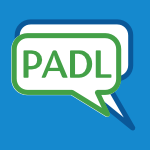 PADL-2020-ChanC #distance #edit distance #flexibility #graph #set #using
PADL-2020-ChanC #distance #edit distance #flexibility #graph #set #using- Flexible Graph Matching and Graph Edit Distance Using Answer Set Programming (SCC, JC), pp. 20–36.
 PADL-2020-ErwigKF
PADL-2020-ErwigKF - Explanations for Dynamic Programming (ME, PK, AF), pp. 179–195.
 PADL-2020-NguyenZJXD #artificial reality #learning #named #set
PADL-2020-NguyenZJXD #artificial reality #learning #named #set- VRASP: A Virtual Reality Environment for Learning Answer Set Programming (VTN, YZ0, KJ, WX, TD), pp. 82–91.
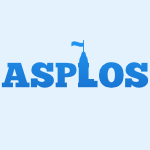 ASPLOS-2020-HildebrandKTLA #automation #integer #linear #memory management #named #using
ASPLOS-2020-HildebrandKTLA #automation #integer #linear #memory management #named #using- AutoTM: Automatic Tensor Movement in Heterogeneous Memory Systems using Integer Linear Programming (MH, JK, ST, JLP, VA), pp. 875–890.
 CGO-2020-JavanmardAKPCH #algorithm #compilation #divide and conquer #multi #parametricity #recursion #using
CGO-2020-JavanmardAKPCH #algorithm #compilation #divide and conquer #multi #parametricity #recursion #using- Deriving parametric multi-way recursive divide-and-conquer dynamic programming algorithms using polyhedral compilers (MMJ, ZA, MK, LNP, RC, RJH), pp. 317–329.
 EDM-2019-BroisinH #automation #design #evaluation #learning #semantics
EDM-2019-BroisinH #automation #design #evaluation #learning #semantics- Design and evaluation of a semantic indicator for automatically supporting programming learning (JB, CH).
 EDM-2019-EmersonSSRMWMBL #modelling #predict #student
EDM-2019-EmersonSSRMWMBL #modelling #predict #student- Predicting Early and Often: Predictive Student Modeling for Block-Based Programming Environments (AE, AS, CS, FJR, WM, ENW, BWM, KEB, JCL).
 EDM-2019-MaoZKPBC #predict #student
EDM-2019-MaoZKPBC #predict #student- One minute is enough: Early Prediction of Student Success and Event-level Difficulty during Novice Programming Tasks (YM, RZ, FK, TWP, TB, MC).
 EDM-2019-TaniguchiSK #c #fault #process
EDM-2019-TaniguchiSK #c #fault #process- Investigating Error Resolution Processes in C Programming Exercise Courses (YT, AS, SK).
 EDM-2019-ZhiMDLPB #data-driven #feedback #towards
EDM-2019-ZhiMDLPB #data-driven #feedback #towards- Toward Data-Driven Example Feedback for Novice Programming (RZ, SM, YD, NL, TWP, TB).
 ICPC-2019-KubelkaRB #evolution #live programming
ICPC-2019-KubelkaRB #evolution #live programming- Live programming and software evolution: questions during a programming change task (JK, RR, AB), pp. 30–41.
 ICPC-2019-SilvaR0SPM #mining #recommendation
ICPC-2019-SilvaR0SPM #mining #recommendation- Recommending comprehensive solutions for programming tasks by mining crowd knowledge (RFGdS, CKR, MMR0, KAS, KVRP, MdAM), pp. 358–368.
 ICPC-2019-XieQMZ #learning #named #visual notation
ICPC-2019-XieQMZ #learning #named #visual notation- DeepVisual: a visual programming tool for deep learning systems (CX, HQ, LM0, JZ), pp. 130–134.
 ICSME-2019-SunXCBW0 #graph
ICSME-2019-SunXCBW0 #graph- Know-How in Programming Tasks: From Textual Tutorials to Task-Oriented Knowledge Graph (JS, ZX, RC, HB, JW, XP0), pp. 257–268.
- IFM-2019-Benoit0 #alias #embedded #performance
- Uniqueness Types for Efficient and Verifiable Aliasing-Free Embedded Systems Programming (TB, BJ0), pp. 46–64.
- ICFP-2019-BahrGM #calculus
- Simply RaTT: a fitch-style modal calculus for reactive programming without space leaks (PB, CG, REM), p. 27.
- ICFP-2019-HameerP #automation #case study #education #experience #functional #using
- Teaching the art of functional programming using automated grading (experience report) (AH, BP), p. 15.
- ICFP-2019-KissFEJ #haskell #higher-order
- Higher-order type-level programming in Haskell (CK, TF, SE, SPJ), p. 26.
- ICFP-2019-LewchenkoRGC
- Sequential programming for replicated data stores (NVL, AR, AG, PC), p. 28.
- ICFP-2019-ShaikhhaFVJ #functional #performance
- Efficient differentiable programming in a functional array-processing language (AS, AF, DV, SPJ), p. 30.
- ICFP-2019-SozeauM #coq #equation #functional #proving
- Equations reloaded: high-level dependently-typed functional programming and proving in Coq (MS, CM), p. 29.
- ICFP-2019-WangZDWER
- Demystifying differentiable programming: shift/reset the penultimate backpropagator (FW, DZ, JMD, XW, GME, TR), p. 31.
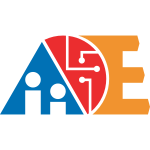 AIIDE-2019-Marino #game studies #learning #realtime #search-based
AIIDE-2019-Marino #game studies #learning #realtime #search-based- Learning Strategies for Real-Time Strategy Games with Genetic Programming (JRHM), pp. 219–220.
 DiGRA-2019-FukuiIHS #empirical #experience #game studies #social #student
DiGRA-2019-FukuiIHS #empirical #experience #game studies #social #student- The Relationship between Prior Gaming Experience and Consciousness of Computer Programming or Social Views on Information: An Empirical Study of High School Students in Japan (MF, TI, JH, YS).
 FDG-2019-JemmaliKBARE #concept #design #game studies #learning #using
FDG-2019-JemmaliKBARE #concept #design #game studies #learning #using- Using game design mechanics as metaphors to enhance learning of introductory programming concepts (CJ, EK, SB, MVA, ER, MSEN), p. 5.
 FDG-2019-Kao #embedded #java #named
FDG-2019-Kao #embedded #java #named- JavaStrike: a Java programming engine embedded in virtual worlds (DK), p. 5.
 FDG-2019-MacCormickZ #development #game studies #named #using #visual notation
FDG-2019-MacCormickZ #development #game studies #named #using #visual notation- SuBViS: the use of subjunctive visual programming environments for exploring alternatives in game development (DM, LZ), p. 11.
 FDG-2019-ZhuAFNCSVO #concept #education #game studies #how #parallel
FDG-2019-ZhuAFNCSVO #concept #education #game studies #how #parallel- Programming in game space: how to represent parallel programming concepts in an educational game (JZ, KA, AF, JN, BC, BKS, JV, SO), p. 10.
 CIKM-2019-MarinR #clustering #semantics
CIKM-2019-MarinR #clustering #semantics- Clustering Recurrent and Semantically Cohesive Program Statements in Introductory Programming Assignments (VJM, CRR), pp. 911–920.
 ECOOP-2019-EichholzCFSM #how #type safety
ECOOP-2019-EichholzCFSM #how #type safety- How to Avoid Making a Billion-Dollar Mistake: Type-Safe Data Plane Programming with SafeP4 (ME, EC, NF, GS, MM), p. 28.
 ECOOP-2019-MukherjeeRGDRLR #framework #reliability #state machine
ECOOP-2019-MukherjeeRGDRLR #framework #reliability #state machine- Reliable State Machines: A Framework for Programming Reliable Cloud Services (SM, NJR, KG, PD, CR, AL, AR, RK), p. 29.
 ECOOP-2019-SpringerM #memory management #named #object-oriented #parallel #performance
ECOOP-2019-SpringerM #memory management #named #object-oriented #parallel #performance- DynaSOAr: A Parallel Memory Allocator for Object-Oriented Programming on GPUs with Efficient Memory Access (MS, HM), p. 37.
 Onward-2019-Tolpin #probability
Onward-2019-Tolpin #probability- Deployable probabilistic programming (DT), pp. 1–16.
 OOPSLA-2019-CairesT #refinement #type safety
OOPSLA-2019-CairesT #refinement #type safety- Refinement kinds: type-safe programming with practical type-level computation (LC, BT), p. 30.
 OOPSLA-2019-MogkDSM #distributed #fault tolerance #interactive
OOPSLA-2019-MogkDSM #distributed #fault tolerance #interactive- A fault-tolerant programming model for distributed interactive applications (RM, JD, GS, MM), p. 29.
 OOPSLA-2019-SergeyNJ0TH #contract
OOPSLA-2019-SergeyNJ0TH #contract- Safer smart contract programming with Scilla (IS, VN, JJ, AK0, AT, KCGH), p. 30.
 OOPSLA-2019-SongLO #automation #detection #fault #functional #logic #scalability
OOPSLA-2019-SongLO #automation #detection #fault #functional #logic #scalability- Automatic and scalable detection of logical errors in functional programming assignments (DS, ML, HO), p. 30.
 PLATEAU-2019-HaoG #question #what
PLATEAU-2019-HaoG #question #what- Approaching Polyglot Programming: What Can We Learn from Bilingualism Studies? (RLH, ELG), p. 7.
 PLATEAU-2019-ZhaoF0I #learning #live programming #network #visualisation
PLATEAU-2019-ZhaoF0I #learning #live programming #network #visualisation- Live Programming Environment for Deep Learning with Instant and Editable Neural Network Visualization (CZ, TF, JK0, TI), p. 5.
 PADL-2019-KahramanE #personalisation #set #using
PADL-2019-KahramanE #personalisation #set #using- Personalized Course Schedule Planning Using Answer Set Programming (MKK, EE0), pp. 37–45.
 PLDI-2019-Cusumano-Towner #named #probability #programmable
PLDI-2019-Cusumano-Towner #named #probability #programmable- Gen: a general-purpose probabilistic programming system with programmable inference (MFCT, FAS, AKL, VKM), pp. 221–236.
 PLDI-2019-LeeLLMZ
PLDI-2019-LeeLLMZ - Programming support for autonomizing software (WCL, PL, YL, SM, XZ), pp. 702–716.
 PLDI-2019-PerryKSZ #clustering #imperative #named #semantics
PLDI-2019-PerryKSZ #clustering #imperative #named #semantics- SemCluster: clustering of imperative programming assignments based on quantitative semantic features (DMP, DK, RS, XZ), pp. 860–873.
 POPL-2019-CastroHJNY #api #communication #distributed #parametricity #static typing #using
POPL-2019-CastroHJNY #api #communication #distributed #parametricity #static typing #using- Distributed programming using role-parametric session types in go: statically-typed endpoint APIs for dynamically-instantiated communication structures (DCP, RH, SSJ, NN, NY), p. 30.
 POPL-2019-ClairambaultVW #game studies #quantum #semantics
POPL-2019-ClairambaultVW #game studies #quantum #semantics- Game semantics for quantum programming (PC, MdV, GW), p. 29.
 POPL-2019-GorinovaGS #flexibility #performance #probability
POPL-2019-GorinovaGS #flexibility #performance #probability- Probabilistic programming with densities in SlicStan: efficient, flexible, and deterministic (MIG, ADG, CAS), p. 30.
 POPL-2019-OmarVCH #functional
POPL-2019-OmarVCH #functional- Live functional programming with typed holes (CO, IV, RC, MAH), p. 32.
 POPL-2019-VakarKS #probability #statistics
POPL-2019-VakarKS #probability #statistics- A domain theory for statistical probabilistic programming (MV, OK, SS), p. 29.
 PPDP-2019-ChupinN #functional
PPDP-2019-ChupinN #functional- Functional Reactive Programming, restated (GC, HN), p. 14.
 PPDP-2019-Gerard0S #functional #syntax
PPDP-2019-Gerard0S #functional #syntax- Functional programming with λ-tree syntax (UG, DM0, GS), p. 16.
 PPDP-2019-SteenvoordenNK #formal method #named
PPDP-2019-SteenvoordenNK #formal method #named- TopHat: A formal foundation for task-oriented programming (TS, NN, MK), p. 13.
 PPDP-2019-Talbot #composition
PPDP-2019-Talbot #composition- Spacetime Programming: A Synchronous Language for Composable Search Strategies (PT), p. 16.
 SAS-2019-YuM #linear #parametricity #performance
SAS-2019-YuM #linear #parametricity #performance- An Efficient Parametric Linear Programming Solver and Application to Polyhedral Projection (HY, DM), pp. 203–224.
 ASE-2019-HuAMLR #program repair
ASE-2019-HuAMLR #program repair- Re-Factoring Based Program Repair Applied to Programming Assignments (YH, UZA, SM, BL, AR), pp. 388–398.
 ASE-2019-KohlerS #automation #refactoring
ASE-2019-KohlerS #automation #refactoring- Automated Refactoring to Reactive Programming (MK, GS), pp. 835–846.
 ASE-2019-MichaelDDLS #regular expression #risk management
ASE-2019-MichaelDDLS #regular expression #risk management- Regexes are Hard: Decision-Making, Difficulties, and Risks in Programming Regular Expressions (LGMI, JD, JCD, DL, FS), pp. 415–426.
 ASE-2019-VerhaegheFGAD #empirical #interface
ASE-2019-VerhaegheFGAD #empirical #interface- Empirical Study of Programming to an Interface (BV, CF, LG, NA, SD), pp. 847–850.
 ESEC-FSE-2019-DuttaZHM #debugging #named #probability #reduction #testing
ESEC-FSE-2019-DuttaZHM #debugging #named #probability #reduction #testing- Storm: program reduction for testing and debugging probabilistic programming systems (SD, WZ, ZH, SM), pp. 729–739.
- ICSE-2019-ZhaoXC00 #named #recognition #workflow
- ActionNet: vision-based workflow action recognition from programming screencasts (DZ, ZX, CC, XX0, GL0), pp. 350–361.
 GPCE-2019-KramerW #c #nondeterminism #parallel
GPCE-2019-KramerW #c #nondeterminism #parallel- Parallel nondeterministic programming as a language extension to C (short paper) (LK, EVW), pp. 20–26.
 SLE-2019-JeanjeanCB #domain-specific language #interactive #specification
SLE-2019-JeanjeanCB #domain-specific language #interactive #specification- From DSL specification to interactive computer programming environment (PJ, BC, OB), pp. 167–178.
 SLE-2019-WeidmannALS #consistency #graph grammar #linear
SLE-2019-WeidmannALS #consistency #graph grammar #linear- Consistency management via a combination of triple graph grammars and linear programming (NW, AA, EL, AS), pp. 29–41.
 ASPLOS-2019-Liskov #manycore #named
ASPLOS-2019-Liskov #manycore #named- Keynote: Multicore Programming (BL), p. 1.
 ASPLOS-2019-SchkufzaWR #compilation #experience
ASPLOS-2019-SchkufzaWR #compilation #experience- Just-In-Time Compilation for Verilog: A New Technique for Improving the FPGA Programming Experience (ES, MW, CJR), pp. 271–286.
 CASE-2019-WannerS #flexibility #polynomial #using
CASE-2019-WannerS #flexibility #polynomial #using- Tool-center-point control of a flexible link concrete pump with hydraulic limitations using quadratic programming (JW, OS), pp. 561–566.
 ESOP-2019-BiXOS #composition #morphism #polymorphism
ESOP-2019-BiXOS #composition #morphism #polymorphism- Distributive Disjoint Polymorphism for Compositional Programming (XB, NX, BCdSO, TS), pp. 381–409.
 ESOP-2019-CastellanP #probability #semantics
ESOP-2019-CastellanP #probability #semantics- Probabilistic Programming Inference via Intensional Semantics (SC, HP), pp. 322–349.
 MSR-2018-Rahman #comprehension #process #question
MSR-2018-Rahman #comprehension #process #question- Comprehension effort and programming activities: related? or not related? (AR), pp. 66–69.
 SCAM-2018-ShepherdFWFLA #ide
SCAM-2018-ShepherdFWFLA #ide- [Engineering Paper] An IDE for Easy Programming of Simple Robotics Tasks (DCS, PF, DW, DF, BL, AA), pp. 209–214.
 SEFM-2018-HallerstedeHKLL #constraints #specification
SEFM-2018-HallerstedeHKLL #constraints #specification- From Software Specifications to Constraint Programming (SH, MH, SK, PGL, ML), pp. 21–36.
 Haskell-2018-SerranoM
Haskell-2018-SerranoM - Generic programming of all kinds (AS0, VCM), pp. 41–54.
- ICFP-2018-ElsmanHAO #functional #gpu #higher-order #in the large
- Static interpretation of higher-order modules in Futhark: functional GPU programming in the large (ME, TH, DA, CEO), p. 30.
- ICFP-2018-NandiWPBGT #compilation #design #functional
- Functional programming for compiling and decompiling computer-aided design (CN, JRW, PP, TB, DG, ZT), p. 31.
- ICFP-2018-Perez #fault tolerance #functional
- Fault tolerant functional reactive programming (functional pearl) (IP0), p. 30.
- ICFP-2018-ScibiorKG #composition #functional
- Functional programming for modular Bayesian inference (AS, OK, ZG), p. 29.
 AIIDE-2018-KantharajuAZCSO #education #game studies #parallel
AIIDE-2018-KantharajuAZCSO #education #game studies #parallel- Tracing Player Knowledge in a Parallel Programming Educational Game (PK, KBA, JZ, BC, BKS, SO), pp. 173–179.
 FDG-2018-SmithPV #generative #graph #set #using
FDG-2018-SmithPV #generative #graph #set #using- Graph-based generation of action-adventure dungeon levels using answer set programming (TS0, JAP, AV), p. 10.
 ICML-2018-FranceschiFSGP #optimisation
ICML-2018-FranceschiFSGP #optimisation- Bilevel Programming for Hyperparameter Optimization and Meta-Learning (LF, PF, SS, RG, MP), pp. 1563–1572.
 ICML-2018-MenschB #predict
ICML-2018-MenschB #predict- Differentiable Dynamic Programming for Structured Prediction and Attention (AM, MB), pp. 3459–3468.
 ICML-2018-WalderK #similarity
ICML-2018-WalderK #similarity- Neural Dynamic Programming for Musical Self Similarity (CJW, DK0), pp. 5092–5100.
 ICML-2018-WuSHDR #algorithm #probability #semantics
ICML-2018-WuSHDR #algorithm #probability #semantics- Discrete-Continuous Mixtures in Probabilistic Programming: Generalized Semantics and Inference Algorithms (YW, SS, NH, SD, SJR), pp. 5339–5348.
 ICML-2018-YurtseverFLC #framework
ICML-2018-YurtseverFLC #framework- A Conditional Gradient Framework for Composite Convex Minimization with Applications to Semidefinite Programming (AY, OF, FL, VC), pp. 5713–5722.
 ICPR-2018-ZhaoSJ #integer #linear #locality #using
ICPR-2018-ZhaoSJ #integer #linear #locality #using- Temporal Pattern Localization using Mixed Integer Linear Programming (RZ, GS, QJ), pp. 1361–1365.
 MoDELS-2018-WeckesserLRS #analysis #modelling
MoDELS-2018-WeckesserLRS #analysis #modelling- Mathematical Programming for Anomaly Analysis of Clafer Models (MW, ML, MR, AS), pp. 34–44.
 ECOOP-2018-MogkBSFM #distributed #fault tolerance
ECOOP-2018-MogkBSFM #distributed #fault tolerance- Fault-tolerant Distributed Reactive Programming (RM, LB, GS, BF, MM), p. 26.
 Onward-2018-MyterSM #distributed
Onward-2018-MyterSM #distributed- A CAPable distributed programming model (FM, CS, WDM), pp. 88–98.
 Onward-2018-OkaMA #data type #visualisation
Onward-2018-OkaMA #data type #visualisation- Live, synchronized, and mental map preserving visualization for data structure programming (AO, HM, TA), pp. 72–87.
 OOPSLA-2018-DesaiPQS #composition #distributed #testing
OOPSLA-2018-DesaiPQS #composition #distributed #testing- Compositional programming and testing of dynamic distributed systems (AD, AP, SQ, SAS), p. 30.
 OOPSLA-2018-DrechslerMSM #thread
OOPSLA-2018-DrechslerMSM #thread- Thread-safe reactive programming (JD, RM, GS, MM), p. 30.
 OOPSLA-2018-FaesG #object-oriented
OOPSLA-2018-FaesG #object-oriented- Concurrency-aware object-oriented programming with roles (MF, TRG), p. 30.
 OOPSLA-2018-LeeSSO #automation #fault #functional #logic
OOPSLA-2018-LeeSSO #automation #fault #functional #logic- Automatic diagnosis and correction of logical errors for functional programming assignments (JL, DS, SS, HO), p. 30.
 OOPSLA-2018-LeissaBHPMSMS #framework #library #named #partial evaluation
OOPSLA-2018-LeissaBHPMSMS #framework #library #named #partial evaluation- AnyDSL: a partial evaluation framework for programming high-performance libraries (RL, KB, SH, APG, RM, PS, AM, BS), p. 30.
 OOPSLA-2018-OttLCLB #named
OOPSLA-2018-OttLCLB #named- BioScript: programming safe chemistry on laboratories-on-a-chip (JO, TL, CC, ML, PB), p. 31.
 PLATEAU-2018-SantolucitoGWP #performance
PLATEAU-2018-SantolucitoGWP #performance- Programming by Example: Efficient, but Not “Helpful” (MS, DG, AW, RP), p. 10.
 PLATEAU-2018-UesbeckS #database #random
PLATEAU-2018-UesbeckS #database #random- A Randomized Controlled Trial on the Impact of Polyglot Programming in a Database Context (PMU, AS), p. 8.
 PLDI-2018-AcharyaB0 #integer #linear
PLDI-2018-AcharyaB0 #integer #linear- Polyhedral auto-transformation with no integer linear programming (AA, UB, AC0), pp. 529–542.
 PLDI-2018-GulwaniRZ #automation #clustering #program repair
PLDI-2018-GulwaniRZ #automation #clustering #program repair- Automated clustering and program repair for introductory programming assignments (SG, IR, FZ), pp. 465–480.
 PLDI-2018-MansinghkaSHRCR #probability #programmable
PLDI-2018-MansinghkaSHRCR #probability #programmable- Probabilistic programming with programmable inference (VKM, US, SH, AR, YC, MR), pp. 603–616.
 PLDI-2018-WangSS #data-driven #feedback #generative
PLDI-2018-WangSS #data-driven #feedback #generative- Search, align, and repair: data-driven feedback generation for introductory programming exercises (KW0, RS, ZS), pp. 481–495.
 POPL-2018-EhrhardPT #higher-order #probability
POPL-2018-EhrhardPT #higher-order #probability- Measurable cones and stable, measurable functions: a model for probabilistic higher-order programming (TE, MP, CT), p. 28.
 POPL-2018-KoH #axiom #bidirectional
POPL-2018-KoH #axiom #bidirectional- An axiomatic basis for bidirectional programming (HSK, ZH), p. 29.
 POPL-2018-SergeyWT #distributed #protocol #proving
POPL-2018-SergeyWT #distributed #protocol #proving- Programming and proving with distributed protocols (IS, JRW, ZT), p. 30.
 ASE-2018-FanSCMLXP #android #fault
ASE-2018-FanSCMLXP #android #fault- Efficiently manifesting asynchronous programming errors in Android apps (LF, TS, SC, GM, YL0, LX, GP), pp. 486–497.
 ASE-2018-SteinCSC #refinement
ASE-2018-SteinCSC #refinement- Safe stream-based programming with refinement types (BS0, LC, MS, BYEC), pp. 565–576.
 ESEC-FSE-2018-BaoXX0L #interactive #named
ESEC-FSE-2018-BaoXX0L #interactive #named- VT-revolution: interactive programming tutorials made possible (LB, ZX, XX0, DL0, SL), pp. 924–927.
 ESEC-FSE-2018-DuttaLHM #probability #testing
ESEC-FSE-2018-DuttaLHM #probability #testing- Testing probabilistic programming systems (SD0, OL, ZH, SM), pp. 574–586.
- ICSE-2018-BhatiaKS
- Neuro-symbolic program corrector for introductory programming assignments (SB, PK, RS), pp. 60–70.
- ICSE-2018-HannebauerHG #question #syntax
- Does syntax highlighting help programming novices? (CH, MH, VG), p. 704.
- ICSE-2018-KubelkaRB #live programming
- The road to live programming: insights from the practice (JK, RR, AB), pp. 1090–1101.
- ICSE-2018-LinJGM #integer #multi #named #testing
- Nemo: multi-criteria test-suite minimization with integer nonlinear programming (JWL, RJ, JG, SM), pp. 1039–1049.
- ICSE-2018-PelegSY
- Programming not only by example (HP, SS, EY), pp. 1114–1124.
- ICSE-2018-XueL #feature model #integer #multi #optimisation #problem
- Multi-objective integer programming approaches for solving optimal feature selection problem: a new perspective on multi-objective optimization problems in SBSE (YX, YFL), pp. 1231–1242.
 CASE-2018-CuiZFKM #kernel #policy
CASE-2018-CuiZFKM #kernel #policy- Factorial Kernel Dynamic Policy Programming for Vinyl Acetate Monomer Plant Model Control (YC, LZ, MF, HK, TM), pp. 304–309.
 CASE-2018-VijayaraghavanK #evaluation #integer #linear #recursion #reduction #reliability
CASE-2018-VijayaraghavanK #evaluation #integer #linear #recursion #reduction #reliability- A Mixed Integer Programming Based Recursive Variance Reduction Method for Reliability Evaluation of Linear Sensor Systems (VV, KK, YD, HP), pp. 836–842.
 CASE-2018-YuZZW #layout #problem
CASE-2018-YuZZW #layout #problem- Hybridizing tabu search with mathematical programming for solving a single row layout problem (MY, XZ, XZ, CW), pp. 974–980.
 CASE-2018-ZhangLFL #integer #linear #sequence #using
CASE-2018-ZhangLFL #integer #linear #sequence #using- Shortest Legal Firing Sequence of Net Condition/Event Systems Using Integer Linear Programming (JZ, HL, GF, ZL), pp. 1556–1561.
 CGO-2018-AndersonG #polynomial
CGO-2018-AndersonG #polynomial- Optimal DNN primitive selection with partitioned boolean quadratic programming (AA0, DG), pp. 340–351.
 ESOP-2018-Matsuda0 #combinator #lens #named #using
ESOP-2018-Matsuda0 #combinator #lens #named #using- HOBiT: Programming Lenses Without Using Lens Combinators (KM, MW0), pp. 31–59.
 CSEET-2017-ScatalonPSBG #design #towards
CSEET-2017-ScatalonPSBG #design #towards- Towards the Role of Test Design in Programming Assignments (LPS, JMP, DMdS, EFB, REG), pp. 170–179.
 CSEET-2017-YangLC #evaluation #object-oriented #visualisation
CSEET-2017-YangLC #evaluation #object-oriented #visualisation- Initial Evaluation of JaguarCode: A Web-Based Object-Oriented Programming Environment with Static and Dynamic Visualization (JY, YL, KHC), pp. 152–161.
 EDM-2017-Albrecht #estimation #framework #student
EDM-2017-Albrecht #estimation #framework #student- A Framework for the Estimation of Students' Programming Abilities (EA).
 EDM-2017-ChenNSN #feedback #realtime
EDM-2017-ChenNSN #feedback #realtime- Real-time programming exercise feedback in MOOCs (ZC, AN, AS, JN).
 EDM-2017-ParedesHH #behaviour #comprehension #student #using
EDM-2017-ParedesHH #behaviour #comprehension #student #using- Understanding Student's Reviewing and Reflection Behaviors Using Web-based Programming Grading Assistant (YVMP, PKH, SIHH).
 EDM-2017-PriceZB #algorithm #data-driven #evaluation #feedback
EDM-2017-PriceZB #algorithm #data-driven #evaluation #feedback- Evaluation of a Data-driven Feedback Algorithm for Open-ended Programming (TWP, RZ, TB).
 EDM-2017-WangSLP #learning #student #using
EDM-2017-WangSLP #learning #student #using- Learning to Represent Student Knowledge on Programming Exercises Using Deep Learning (LW, AS, LL, CP).
 ICSME-2017-CaiR #android #comprehension #security
ICSME-2017-CaiR #android #comprehension #security- Understanding Android Application Programming and Security: A Dynamic Study (HC, BGR), pp. 364–375.
 FSCD-2017-Tasson #probability #semantics
FSCD-2017-Tasson #probability #semantics- Quantitative Semantics for Probabilistic Programming (Invited Talk) (CT), p. 1.
- ICFP-2017-ByrdBRM #approach #functional #problem
- A unified approach to solving seven programming problems (functional pearl) (WEB, MB, GR, MM), p. 26.
- ICFP-2017-CanouCH #education #functional #ml #scalability
- Scaling up functional programming education: under the hood of the OCaml MOOC (BC, RDC, GH), p. 25.
- ICFP-2017-PerezN #debugging #functional #testing
- Testing and debugging functional reactive programming (IP0, HN), p. 27.
- ICFP-2017-ProtzenkoZRRWBD #embedded #low level
- Verified low-level programming embedded in F (JP, JKZ, AR, TR, PW, SZB, ADL, CH, KB, CF, NS), p. 29.
- ICFP-2017-Yallop #staged
- Staged generic programming (JY), p. 29.
 AIIDE-2017-AzadXYL #interactive #linear #scheduling
AIIDE-2017-AzadXYL #interactive #linear #scheduling- Scheduling Live Interactive Narratives with Mixed-Integer Linear Programming (SA, JX, HY, BL), pp. 2–8.
 AIIDE-2017-DongB #education #evaluation #game studies #generative
AIIDE-2017-DongB #education #evaluation #game studies #generative- Evaluation of a Template-Based Puzzle Generator for an Educational Programming Game (YD, TB), pp. 172–178.
 FDG-2017-DongB #education #evaluation #game studies #generative
FDG-2017-DongB #education #evaluation #game studies #generative- Evaluation of a template-based puzzle generator for an educational programming game (YD, TB), p. 4.
 FDG-2017-MelcerI17a #challenge #collaboration #education #game studies #using
FDG-2017-MelcerI17a #challenge #collaboration #education #game studies #using- Embodiment, collaboration, and challenge in educational programming games: exploring use of tangibles and mouse (EFM, KI), p. 6.
 FDG-2017-Valls-VargasZO #game studies #generative #grammarware #graph grammar #learning #parallel
FDG-2017-Valls-VargasZO #game studies #generative #grammarware #graph grammar #learning #parallel- Graph grammar-based controllable generation of puzzles for a learning game about parallel programming (JVV, JZ, SO), p. 10.
 ICML-2017-AliWK #performance
ICML-2017-AliWK #performance- A Semismooth Newton Method for Fast, Generic Convex Programming (AA, EW, JZK), pp. 70–79.
 ICML-2017-BosnjakRNR #interpreter
ICML-2017-BosnjakRNR #interpreter- Programming with a Differentiable Forth Interpreter (MB, TR, JN, SR0), pp. 547–556.
 KDD-2017-FuLTA #integer #recommendation
KDD-2017-FuLTA #integer #recommendation- Unsupervised P2P Rental Recommendations via Integer Programming (YF, GL, MT, CCA), pp. 165–173.
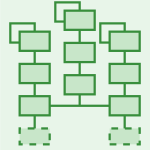 BX-2017-KinoshitaN #bidirectional
BX-2017-KinoshitaN #bidirectional- Bidirectional Certified Programming (DK, KN), pp. 31–38.
 ECOOP-2017-ScalasDHY #composition #distributed #linear #multi
ECOOP-2017-ScalasDHY #composition #distributed #linear #multi- A Linear Decomposition of Multiparty Sessions for Safe Distributed Programming (AS, OD, RH, NY), p. 31.
 OOPSLA-2017-SampsonMM
OOPSLA-2017-SampsonMM - Static stages for heterogeneous programming (AS, KSM, TM), p. 27.
 PADL-2017-NilssonC #declarative
PADL-2017-NilssonC #declarative- Funky Grooves: Declarative Programming of Full-Fledged Musical Applications (HN, GC), pp. 163–172.
 PADL-2017-RathR #object-oriented #set
PADL-2017-RathR #object-oriented #set- Integrating Answer Set Programming with Object-Oriented Languages (JR, CR), pp. 50–67.
 PADL-2017-Vennekens #api #declarative #learning #python
PADL-2017-Vennekens #api #declarative #learning #python- Lowering the Learning Curve for Declarative Programming: A Python API for the IDP System (JV), pp. 86–102.
 PLDI-2017-CaninoL #adaptation #energy
PLDI-2017-CaninoL #adaptation #energy- Proactive and adaptive energy-aware programming with mixed typechecking (AC, YDL), pp. 217–232.
 PLDI-2017-FuS #float
PLDI-2017-FuS #float- Achieving high coverage for floating-point code via unconstrained programming (ZF, ZS), pp. 306–319.
 POPL-2017-AminR17a #abstraction #named
POPL-2017-AminR17a #abstraction #named- LMS-Verify: abstraction without regret for verified systems programming (NA, TR), pp. 859–873.
 POPL-2017-LangeNTY #liveness #safety
POPL-2017-LangeNTY #liveness #safety- Fencing off go: liveness and safety for channel-based programming (JL, NN, BT, NY), pp. 748–761.
 PPDP-2017-Gulwani #algorithm #ambiguity
PPDP-2017-Gulwani #algorithm #ambiguity- Programming by examples: applications, algorithms, and ambiguity resolution (SG), p. 2.
 PPDP-2017-MeiklejohnEYBRB #case study #evaluation #experience #scalability
PPDP-2017-MeiklejohnEYBRB #case study #evaluation #experience #scalability- Practical evaluation of the Lasp programming model at large scale: an experience report (CSM, VE, JY, CB, PVR, AB), pp. 109–114.
 SAS-2017-MarechalMP #linear #parametricity #scalability
SAS-2017-MarechalMP #linear #parametricity #scalability- Scalable Minimizing-Operators on Polyhedra via Parametric Linear Programming (AM, DM, MP), pp. 212–231.
 ASE-2017-LiewSCDZW #case study #execution #float #symbolic computation
ASE-2017-LiewSCDZW #case study #execution #float #symbolic computation- Floating-point symbolic execution: a case study in n-version programming (DL, DS, CC, AFD, RZ, KW), pp. 601–612.
 ASE-2017-WangKZAKLLMZE #named #web
ASE-2017-WangKZAKLLMZE #named #web- PAD: programming third-party web advertisement censorship (WW, YK, YZ, YA, ILK, WCL, YL, WM, XZ0, PE), pp. 240–251.
 ASE-2017-ZamaniradBBC0 #api #natural language
ASE-2017-ZamaniradBBC0 #api #natural language- Programming bots by synthesizing natural language expressions into API invocations (SZ, BB, MCB, FC, CR0), pp. 832–837.
 ESEC-FSE-2017-GreenyerGKDSW #modelling
ESEC-FSE-2017-GreenyerGKDSW #modelling- From scenario modeling to scenario programming for reactive systems with dynamic topology (JG, DG, FK, JD, JS, EW), pp. 974–978.
 ESEC-FSE-2017-LeCLGV #named #semantics #synthesis
ESEC-FSE-2017-LeCLGV #named #semantics #synthesis- S3: syntax- and semantic-guided repair synthesis via programming by examples (XBDL, DHC, DL0, CLG, WV), pp. 593–604.
 ESEC-FSE-2017-YiAKTR #automation #program repair #using
ESEC-FSE-2017-YiAKTR #automation #program repair #using- A feasibility study of using automated program repair for introductory programming assignments (JY, UZA, AK, SHT, AR), pp. 740–751.
 GPCE-2017-CaldwellC #embedded #object-oriented #platform
GPCE-2017-CaldwellC #embedded #object-oriented #platform- Reducing calling convention overhead in object-oriented programming on embedded ARM thumb-2 platforms (JC, SC), pp. 146–156.
 GPCE-2017-GeG #multi #semantics
GPCE-2017-GeG #multi #semantics- Refining semantics for multi-stage programming (RG0, RG), pp. 2–14.
 GPCE-2017-OfenbeckRP #staging
GPCE-2017-OfenbeckRP #staging- Staging for generic programming in space and time (GO, TR, MP), pp. 15–28.
 GPCE-2017-OishiK #multi #staging #type safety
GPCE-2017-OishiK #multi #staging #type safety- Staging with control: type-safe multi-stage programming with control operators (JO, YK), pp. 29–40.
 CASE-2017-CarliD17a #distributed #energy #scalability #using
CASE-2017-CarliD17a #distributed #energy #scalability #using- A decentralized control strategy for energy retrofit planning of large-scale street lighting systems using dynamic programming (RC, MD), pp. 1196–1200.
 CASE-2017-LiS0L #multi
CASE-2017-LiS0L #multi- Nonlinear programming for multi-vehicle motion planning with homotopy initialization strategies (BL, ZS, YZ0, PL), pp. 118–123.
 CASE-2017-SaraiM #artificial reality
CASE-2017-SaraiM #artificial reality- Robot programming for manipulators through volume sweeping and augmented reality (YS, YM), pp. 302–307.
 CASE-2017-WangW #approach #constraints #higher-order #using
CASE-2017-WangW #approach #constraints #higher-order #using- Resolve reactive robot control with perturbed constraints using a second order cone programming approach (YW, LW), pp. 124–129.
 ESOP-2017-Gibbons
ESOP-2017-Gibbons - APLicative Programming with Naperian Functors (JG), pp. 556–583.
 ESOP-2017-KopS #complexity #higher-order #nondeterminism #power of #using
ESOP-2017-KopS #complexity #higher-order #nondeterminism #power of #using- The Power of Non-determinism in Higher-Order Implicit Complexity - Characterising Complexity Classes Using Non-deterministic Cons-Free Programming (CK, JGS), pp. 668–695.
 ESOP-2017-LeinbergerLS #functional #semantics
ESOP-2017-LeinbergerLS #functional #semantics- The Essence of Functional Programming on Semantic Data (ML, RL, SS), pp. 750–776.
 ESOP-2017-Staton #commutative #probability #semantics
ESOP-2017-Staton #commutative #probability #semantics- Commutative Semantics for Probabilistic Programming (SS), pp. 855–879.
 FASE-2017-DamianiHKL
FASE-2017-DamianiHKL - A Unified and Formal Programming Model for Deltas and Traits (FD, RH, EK, ML), pp. 424–441.
 CSEET-2016-BollinPAS #education #re-engineering
CSEET-2016-BollinPAS #education #re-engineering- Software Engineering in Primary and Secondary Schools - Informatics Education is more than Programming (AB, SP, PKA, BS), pp. 132–136.
 CSEET-2016-SouzaFB #assessment #overview #tool support
CSEET-2016-SouzaFB #assessment #overview #tool support- A Systematic Literature Review of Assessment Tools for Programming Assignments (DMdS, KRF, EFB), pp. 147–156.
 CSEET-2016-SrinivasanLY #comprehension #diagrams #object-oriented #sequence chart #using
CSEET-2016-SrinivasanLY #comprehension #diagrams #object-oriented #sequence chart #using- Enhancing Object-Oriented Programming Comprehension Using Optimized Sequence Diagram (MS, YL, JY), pp. 81–85.
 EDM-2016-Kyrilov #automation #feedback #reasoning #using
EDM-2016-Kyrilov #automation #feedback #reasoning #using- Using Case-Based Reasoning to Automatically Generate High-Quality Feedback for Programming Exercises (AK), pp. 669–671.
 EDM-2016-PaassenJH #data transformation #execution #representation
EDM-2016-PaassenJH #data transformation #execution #representation- Execution Traces as a Powerful Data Representation for Intelligent Tutoring Systems for Programming (BP, JJ, BH), pp. 183–190.
 EDM-2016-PriceDB #data-driven #generative
EDM-2016-PriceDB #data-driven #generative- Generating Data-driven Hints for Open-ended Programming (TWP, YD, TB), pp. 191–198.
 ICPC-2016-BreckelT #source code
ICPC-2016-BreckelT #source code- Embedding programming context into source code (AB, MT), pp. 1–4.
 ICPC-2016-HermansA #empirical #smell #source code
ICPC-2016-HermansA #empirical #smell #source code- Do code smells hamper novice programming? A controlled experiment on Scratch programs (FH, EA), pp. 1–10.
 ICPC-2016-MakiharaIYFI #behaviour #detection
ICPC-2016-MakiharaIYFI #behaviour #detection- Detecting exploratory programming behaviors for introductory programming exercises (EM, HI, NY, KF, HI), pp. 1–4.
 ICPC-2016-YangLH #visualisation
ICPC-2016-YangLH #visualisation- Synchronized static and dynamic visualization in a web-based programming environment (JY, YL, DH), pp. 1–4.
 SANER-2016-SohYKG #maintenance #process #question #smell
SANER-2016-SohYKG #maintenance #process #question #smell- Do Code Smells Impact the Effort of Different Maintenance Programming Activities? (ZS, AY, FK, YGG), pp. 393–402.
 FM-2016-YangHCL0 #approach #generative #hybrid #linear
FM-2016-YangHCL0 #approach #generative #hybrid #linear- A Linear Programming Relaxation Based Approach for Generating Barrier Certificates of Hybrid Systems (ZY, CH, XC0, WL, ZL0), pp. 721–738.
 FSCD-2016-Huet #deduction #education #formal method #functional #type system
FSCD-2016-Huet #deduction #education #formal method #functional #type system- Teaching Foundations of Computation and Deduction Through Literate Functional Programming and Type Theory Formalization (GPH), p. 2.
- IFM-2016-CassarF #framework #implementation #on the
- On Implementing a Monitor-Oriented Programming Framework for Actor Systems (IC, AF), pp. 176–192.
- IFM-2016-Preoteasa #invariant #logic #pointer #source code #using #verification
- Verifying Pointer Programs Using Separation Logic and Invariant Based Programming in Isabelle (VP), pp. 457–473.
 Haskell-2016-PerezBN #functional
Haskell-2016-PerezBN #functional- Functional reactive programming, refactored (IP0, MB, HN), pp. 33–44.
- ICFP-2016-BorgstromLGS #probability #λ-calculus
- A lambda-calculus foundation for universal probabilistic programming (JB, UDL, ADG, MS), pp. 33–46.
- ICFP-2016-Morris #functional #linear
- The best of both worlds: linear functional programming without compromise (JGM), pp. 448–461.
 ICML-2016-WangWK #performance
ICML-2016-WangWK #performance- Epigraph projections for fast general convex programming (PWW, MW, JZK), pp. 2868–2877.
 ICPR-2016-LeeS #image #search-based
ICPR-2016-LeeS #image #search-based- Learning-based single image dehazing via genetic programming (CL, LS0), pp. 745–750.
 ICPR-2016-NieGJ #feature model #framework #integer
ICPR-2016-NieGJ #feature model #framework #integer- An information theoretic feature selection framework based on integer programming (SN, TG, QJ), pp. 3584–3589.
 ECOOP-2016-ChenEW #calculus
ECOOP-2016-ChenEW #calculus- A Calculus for Variational Programming (SC, ME, EW), p. 28.
 ECOOP-2016-ScalasY #lightweight #scala
ECOOP-2016-ScalasY #lightweight #scala- Lightweight Session Programming in Scala (AS, NY), p. 28.
 Onward-2016-ForsH #composition #diagrams #named
Onward-2016-ForsH #composition #diagrams #named- Bloqqi: modular feature-based block diagram programming (NF, GH), pp. 57–73.
 Onward-2016-KurajJ #distributed #paradigm
Onward-2016-KurajJ #distributed #paradigm- Exploring the role of sequential computation in distributed systems: motivating a programming paradigm shift (IK, DJ0), pp. 145–164.
 Onward-2016-MarterBLH #identifier #lightweight #readability #similarity #source code #using
Onward-2016-MarterBLH #identifier #lightweight #readability #similarity #source code #using- Lightweight programming experiments without programmers and programs: an example study on the effect of similarity and number of object identifiers on the readability of source code using natural texts (TM, PB, PL, SH), pp. 1–14.
 Onward-2016-MillerHMB #distributed #functional
Onward-2016-MillerHMB #distributed #functional- Function passing: a model for typed, distributed functional programming (HM, PH, NM, JB), pp. 82–97.
 Onward-2016-YadidY #tutorial
Onward-2016-YadidY #tutorial- Extracting code from programming tutorial videos (SY, EY), pp. 98–111.
 OOPSLA-2016-BonettaSMB #named #parallel
OOPSLA-2016-BonettaSMB #named #parallel- GEMs: shared-memory parallel programming for Node.js (DB, LS, SM, WB), pp. 531–547.
 OOPSLA-2016-DanLHV #analysis #memory management #modelling
OOPSLA-2016-DanLHV #analysis #memory management #modelling- Modeling and analysis of remote memory access programming (AMD, PL0, TH, MTV), pp. 129–144.
 OOPSLA-2016-Itzhaky0SYLLC #algorithm #divide and conquer #using
OOPSLA-2016-Itzhaky0SYLLC #algorithm #divide and conquer #using- Deriving divide-and-conquer dynamic programming algorithms using solver-aided transformations (SI, RS0, ASL, KY, YL, CEL, RAC), pp. 145–164.
 OOPSLA-2016-KimK0KPZR #automation #fault #named
OOPSLA-2016-KimK0KPZR #automation #fault #named- Apex: automatic programming assignment error explanation (DK, YK, PL0, ILK, DMP, XZ0, GRR), pp. 311–327.
 OOPSLA-2016-LongLR
OOPSLA-2016-LongLR - First-class effect reflection for effect-guided programming (YL, YDL, HR), pp. 820–837.
 AdaEurope-2016-Mazzanti #ada #experience #manycore #model checking #parallel
AdaEurope-2016-Mazzanti #ada #experience #manycore #model checking #parallel- An Experience in Ada Multicore Programming: Parallelisation of a Model Checking Engine (FM), pp. 94–109.
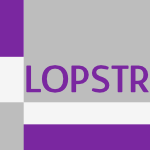 LOPSTR-2016-BichlerMW #named #optimisation #set
LOPSTR-2016-BichlerMW #named #optimisation #set- lpopt: A Rule Optimization Tool for Answer Set Programming (MB, MM, SW), pp. 114–130.
 PADL-2016-GrebeG #arduino #monad #named
PADL-2016-GrebeG #arduino #monad #named- Haskino: A Remote Monad for Programming the Arduino (MG, AG), pp. 153–168.
 PEPM-2016-KoZH #bidirectional #named
PEPM-2016-KoZH #bidirectional #named- BiGUL: a formally verified core language for putback-based bidirectional programming (HSK, TZ, ZH), pp. 61–72.
 PEPM-2016-Yallop #staging
PEPM-2016-Yallop #staging- Staging generic programming (JY), pp. 85–96.
 PLDI-2016-McClurgHFC #network
PLDI-2016-McClurgHFC #network- Event-driven network programming (JM, HH, NF, PC), pp. 369–385.
 POPL-2016-BorgstromGORSS #named #probability
POPL-2016-BorgstromGORSS #named #probability- Fabular: regression formulas as probabilistic programming (JB, ADG, LO, CVR, AS, MS), pp. 271–283.
 POPL-2016-CaiGO #data type #recursion
POPL-2016-CaiGO #data type #recursion- System f-omega with equirecursive types for datatype-generic programming (YC, PGG, KO), pp. 30–43.
 POPL-2016-McKinley #nondeterminism
POPL-2016-McKinley #nondeterminism- Programming the world of uncertain things (keynote) (KSM), pp. 1–2.
 PPDP-2016-FuscaGZACP #development #framework #set
PPDP-2016-FuscaGZACP #development #framework #set- A framework for easing the development of applications embedding answer set programming (DF, SG, JZ, MA, FC, SP), pp. 38–49.
 SAS-2016-RouxVS #invariant #polynomial #validation
SAS-2016-RouxVS #invariant #polynomial #validation- Validating Numerical Semidefinite Programming Solvers for Polynomial Invariants (PR, YLV, SS0), pp. 424–446.
 ASE-2016-Mougouei #dependence #graph #integer #requirements #using
ASE-2016-Mougouei #dependence #graph #integer #requirements #using- Factoring requirement dependencies in software requirement selection using graphs and integer programming (DM), pp. 884–887.
 ASE-2016-Nishi #bound #model checking #towards #using
ASE-2016-Nishi #bound #model checking #towards #using- Towards bounded model checking using nonlinear programming solver (MN), pp. 560–565.
 FSE-2016-Huang
FSE-2016-Huang - Model, execute, and deploy: answering the hard questions in end-user programming (showcase) (SSH), p. 24.
- ICSE-2016-SalvaneschiM #debugging
- Debugging for reactive programming (GS, MM), pp. 796–807.
- ICSE-2016-SpinellisLK #c #case study #evolution #operating system
- The evolution of C programming practices: a study of the Unix operating system 1973-2015 (DS, PL, MK), pp. 748–759.
 SLE-2016-LuoA #c #configuration management #modelling #named #semantics #state machine
SLE-2016-LuoA #c #configuration management #modelling #named #semantics #state machine- BSML-mbeddr: integrating semantically configurable state-machine models in a C programming environment (ZL, JMA), pp. 105–117.
 ASPLOS-2016-AngstadtWS #agile
ASPLOS-2016-AngstadtWS #agile- RAPID Programming of Pattern-Recognition Processors (KA, WW, KS), pp. 593–605.
 ASPLOS-2016-ChangKH #kernel #lightweight #named
ASPLOS-2016-ChangKH #kernel #lightweight #named- DySel: Lightweight Dynamic Selection for Kernel-based Data-parallel Programming Model (LWC, HSK, WmWH), pp. 667–680.
 ASPLOS-2016-HajjMZMAFHRS #multi #named
ASPLOS-2016-HajjMZMAFHRS #multi #named- SpaceJMP: Programming with Multiple Virtual Address Spaces (IEH, AM, GZ, DSM, RA, PF, WmWH, TR, KS), pp. 353–368.
 ASPLOS-2016-LinL #memory management #named #towards
ASPLOS-2016-LinL #memory management #named #towards- memif: Towards Programming Heterogeneous Memory Asynchronously (FXL, XL0), pp. 369–383.
 ASPLOS-2016-McKinley #nondeterminism
ASPLOS-2016-McKinley #nondeterminism- Programming Uncertain jhings (KSM), pp. 1–2.
 ESOP-2016-AlurFR #data type
ESOP-2016-AlurFR #data type- Regular Programming for Quantitative Properties of Data Streams (RA, DF, MR), pp. 15–40.
 ESOP-2016-Garnock-JonesF #concurrent #coordination
ESOP-2016-Garnock-JonesF #concurrent #coordination- Coordinated Concurrent Programming in Syndicate (TGJ, MF), pp. 310–336.
 FASE-2016-Nierstrasz #object-oriented
FASE-2016-Nierstrasz #object-oriented- The Death of Object-Oriented Programming (ON), pp. 3–10.
 IJCAR-2016-Gulwani #algorithm #ambiguity
IJCAR-2016-Gulwani #algorithm #ambiguity- Programming by Examples: Applications, Algorithms, and Ambiguity Resolution (SG), pp. 9–14.
 DRR-2015-RabaevCEK #documentation #using
DRR-2015-RabaevCEK #documentation #using- Aligning transcript of historical documents using dynamic programming (IR, RC, JES, KK).
 VLDB-2015-GreenOW #approach #live programming
VLDB-2015-GreenOW #approach #live programming- Live Programming in the LogicBlox System: A MetaLogiQL Approach (TJG, DO, GW), pp. 1782–1793.
 ITiCSE-2015-AndersonNM
ITiCSE-2015-AndersonNM - Facilitating Programming Success in Data Science Courses through Gamified Scaffolding and Learn2Mine (PEA, TN, RAM), pp. 99–104.
 ITiCSE-2015-Annamaa #ide #learning #python
ITiCSE-2015-Annamaa #ide #learning #python- Thonny, : a Python IDE for Learning Programming (AA), p. 343.
 ITiCSE-2015-AntonucciENPM #automation #incremental
ITiCSE-2015-AntonucciENPM #automation #incremental- An Incremental Hint System For Automated Programming Assignments (PA, HCE, DN, MP, BM), pp. 320–325.
 ITiCSE-2015-Ben-Ari
ITiCSE-2015-Ben-Ari - In Defense of Programming (MBA), p. 2.
 ITiCSE-2015-BrindaKHR #object-oriented #towards
ITiCSE-2015-BrindaKHR #object-oriented #towards- Towards a Competency Model for Object-Oriented Programming (TB, MK, PH, AR), p. 345.
 ITiCSE-2015-GrandeP #gender #motivation
ITiCSE-2015-GrandeP #gender #motivation- Motivation and Grade Gap Related to Gender in a Programming Course (VG, JP), p. 349.
 ITiCSE-2015-MagnenatBKS #artificial reality #feedback #visual notation
ITiCSE-2015-MagnenatBKS #artificial reality #feedback #visual notation- Enhancing Robot Programming with Visual Feedback and Augmented Reality (SM, MBA, SK, RWS), pp. 153–158.
 ITiCSE-2015-MartinezGB #comparison #concept #framework #learning #multi #platform
ITiCSE-2015-MartinezGB #comparison #concept #framework #learning #multi #platform- A Comparison of Preschool and Elementary School Children Learning Computer Science Concepts through a Multilanguage Robot Programming Platform (MCM, MJG, LB), pp. 159–164.
 ITiCSE-2015-PalI
ITiCSE-2015-PalI - Classroom Versus Screencast for Native Language Learners: Effect of Medium of Instruction on Knowledge of Programming (YP, SI), pp. 290–295.
 ITiCSE-2015-QuinsonO #education #learning
ITiCSE-2015-QuinsonO #education #learning- A Teaching System to Learn Programming: the Programmer’s Learning Machine (MQ, GO), pp. 260–265.
 ITiCSE-2015-Rubio #analysis #automation #categorisation #clustering #student #using
ITiCSE-2015-Rubio #analysis #automation #categorisation #clustering #student #using- Automatic Categorization of Introductory Programming Students using Cluster Analysis (MAR), p. 340.
 ITiCSE-2015-ThevathayanH #flexibility #incremental #visual notation
ITiCSE-2015-ThevathayanH #flexibility #incremental #visual notation- Supporting Diverse Novice Programming Cohorts through Flexible and Incremental Visual Constructivist Pathways (CT, MH), pp. 296–301.
 ITiCSE-2015-TollOEW #student
ITiCSE-2015-TollOEW #student- Detailed Recordings of Student Programming Sessions (DT, TO, ME, AW), p. 328.
 ITiCSE-2015-UraiUO #analysis #distributed
ITiCSE-2015-UraiUO #analysis #distributed- Enhancements to Support Functions of Distributed Pair Programming Based on Action Analysis (TU, TU, NO), pp. 177–182.
 ITiCSE-2015-WangZQS
ITiCSE-2015-WangZQS - A TUI-based Programming Tool for Children (DW, LZ, YQ, FS), pp. 219–224.
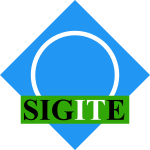 SIGITE-2015-Forster #education #exclamation #geometry
SIGITE-2015-Forster #education #exclamation #geometry- Programming in Scratch and Mathematics: Augmenting Your Geometry Curriculum, Today! (KTF), p. 97.
 SIGITE-2015-LeleuxHSYSG #exclamation
SIGITE-2015-LeleuxHSYSG #exclamation- Work in Progress: Programming is a SNAP! Increasing Knowledge and Interest in Computer Science (HL, TH, AS, GY, CS, TG), p. 101.
 SIGITE-2015-MillerSL #learning #object-oriented #python #testing #towards
SIGITE-2015-MillerSL #learning #object-oriented #python #testing #towards- Learning Object-Oriented Programming in Python: Towards an Inventory of Difficulties and Testing Pitfalls (CSM, AS, JL), pp. 59–64.
 SANER-2015-LiZXBPGZ #named #online
SANER-2015-LiZXBPGZ #named #online- amAssist: In-IDE ambient search of online programming resources (HL, XZ, ZX, LB, XP, DG, WZ), pp. 390–398.
 CIAA-2015-Ade-IbijolaES
CIAA-2015-Ade-IbijolaES - Introducing Code Adviser: A DFA-driven Electronic Programming Tutor (AAI, SE, IDS), pp. 307–312.
 ICALP-v1-2015-BeiCZ #constraints #linear
ICALP-v1-2015-BeiCZ #constraints #linear- Solving Linear Programming with Constraints Unknown (XB, NC, SZ), pp. 129–142.
 HOFM-2015-ErbaturH #guidelines #named #type system
HOFM-2015-ErbaturH #guidelines #named #type system- GuideForce: Type-Based Enforcement of Programming Guidelines (SE, MH0), pp. 75–89.
 CEFP-2015-Cukic #c++ #functional
CEFP-2015-Cukic #c++ #functional- Functional Reactive Programming in C++ (IC), pp. 42–74.
 CEFP-2015-GraniczD #f# #functional #web
CEFP-2015-GraniczD #f# #functional #web- Functional, Reactive Web Programming in F# (AG, LD), pp. 137–160.
 CEFP-2015-Grimm #c++ #functional
CEFP-2015-Grimm #c++ #functional- Programming in a Functional Style in C++ (RG), pp. 111–136.
 CEFP-2015-Porkolab #c++ #functional
CEFP-2015-Porkolab #c++ #functional- Immutables in C++: Language Foundation for Functional Programming (ZP), pp. 75–110.
 Haskell-2015-ScibiorGG #monad #probability
Haskell-2015-ScibiorGG #monad #probability- Practical probabilistic programming with monads (AS, ZG, ADG), pp. 165–176.
 ICFP-2015-MatsudaW #bidirectional #lens
ICFP-2015-MatsudaW #bidirectional #lens- Applicative bidirectional programming with lenses (KM, MW), pp. 62–74.
 ICFP-2015-Sheeran #design #functional #hardware #years after
ICFP-2015-Sheeran #design #functional #hardware #years after- Functional programming and hardware design: still interesting after all these years (MS), p. 165.
 CHI-PLAY-2015-AlSulaimanH #game studies #gender
CHI-PLAY-2015-AlSulaimanH #game studies #gender- Peter the Fashionista?: Computer Programming Games and Gender Oriented Cultural Forms (SA, MSH), pp. 185–195.
 CIG-2015-Garcia-SanchezT #automation #generative #search-based #towards #using
CIG-2015-Garcia-SanchezT #automation #generative #search-based #towards #using- Towards automatic StarCraft strategy generation using genetic programming (PGS, APT, AMM, GS, JJMG), pp. 284–291.
 FDG-2015-ChauNSP #api #concept #education #game studies
FDG-2015-ChauNSP #api #concept #education #game studies- Building Casual Games and APIs for Teaching Introductory Programming Concepts (BC, RN, KS, JP).
 VS-Games-2015-PatinoR #game studies #how #object-oriented
VS-Games-2015-PatinoR #game studies #how #object-oriented- Program with Ixquic: How to Learn Object-Oriented Programming with a Game (TP, CR), pp. 1–2.
 GaM-2015-HochMS #graph
GaM-2015-HochMS #graph- Dynamic Programming on Nominal Graphs (NH, UM, MS), pp. 80–96.
 CHI-2015-MentisSPFS
CHI-2015-MentisSPFS - Being Seen: Co-Interpreting Parkinson’s Patient’s Movement Ability in Deep Brain Stimulation Programming (HMM, RS, SP, PF, LS), pp. 511–520.
 HCI-DE-2015-Alessandrini #challenge #interactive #physics #prototype
HCI-DE-2015-Alessandrini #challenge #interactive #physics #prototype- Practices, Technologies, and Challenges of Constructing and Programming Physical Interactive Prototypes (AA), pp. 132–142.
 LCT-2015-Ludi
LCT-2015-Ludi - A Tablet-Based Lego Mindstorms Programming Environment for Children (SL), pp. 106–114.
 LCT-2015-OrehovackiB #game studies #learning #quality
LCT-2015-OrehovackiB #game studies #learning #quality- Inspecting Quality of Games Designed for Learning Programming (TO, SB), pp. 620–631.
 ICML-2015-FouldsKG #framework #modelling #network #probability #topic
ICML-2015-FouldsKG #framework #modelling #network #probability #topic- Latent Topic Networks: A Versatile Probabilistic Programming Framework for Topic Models (JRF, SHK, LG), pp. 777–786.
 ICML-2015-PerolatSPP #approximate #game studies #markov
ICML-2015-PerolatSPP #approximate #game studies #markov- Approximate Dynamic Programming for Two-Player Zero-Sum Markov Games (JP, BS, BP, OP), pp. 1321–1329.
 KDD-2015-HouWGD #clustering #rank
KDD-2015-HouWGD #clustering #rank- Non-exhaustive, Overlapping Clustering via Low-Rank Semidefinite Programming (YH, JJW, DFG, ISD), pp. 427–436.
 SEKE-2015-ZhuSCW #scalability #stack overflow #taxonomy
SEKE-2015-ZhuSCW #scalability #stack overflow #taxonomy- Building a Large-scale Software Programming Taxonomy from Stackoverflow (JZ, BS, XC, HW), pp. 391–396.
 ECOOP-2015-Choi #in the large #internet
ECOOP-2015-Choi #in the large #internet- Programming in the Large for the Internet of Things (JDC), p. 2.
 ECOOP-2015-ImamS #parallel
ECOOP-2015-ImamS #parallel- The Eureka Programming Model for Speculative Task Parallelism (SI, VS), pp. 421–444.
 ECOOP-2015-Stroustrup #inheritance #object-oriented
ECOOP-2015-Stroustrup #inheritance #object-oriented- Object-Oriented Programming without Inheritance (BS), p. 1.
 Onward-2015-ProkopecO #composition #distributed
Onward-2015-ProkopecO #composition #distributed- Isolates, channels, and event streams for composable distributed programming (AP, MO), pp. 171–182.
 OOPSLA-2015-BostonSGC #approximate #flexibility #probability #type inference
OOPSLA-2015-BostonSGC #approximate #flexibility #probability #type inference- Probability type inference for flexible approximate programming (BB, AS, DG, LC), pp. 470–487.
 OOPSLA-2015-CrafaP #approach
OOPSLA-2015-CrafaP #approach- The chemical approach to typestate-oriented programming (SC, LP), pp. 917–934.
 OOPSLA-2015-KurajKJ #set
OOPSLA-2015-KurajKJ #set- Programming with enumerable sets of structures (IK, VK, DJ), pp. 37–56.
 PLATEAU-2015-CuencaBLC #case study #domain-specific language #execution #interactive #multimodal #performance #user study
PLATEAU-2015-CuencaBLC #case study #domain-specific language #execution #interactive #multimodal #performance #user study- A user study for comparing the programming efficiency of modifying executable multimodal interaction descriptions: a domain-specific language versus equivalent event-callback code (FC, JVdB0, KL, KC), pp. 31–38.
 PLATEAU-2015-FigueroaR #composition #functional #question
PLATEAU-2015-FigueroaR #composition #functional #question- Is functional programming better for modularity? (IF, RR), pp. 49–52.
 PLATEAU-2015-PintoTC #case study #concurrent
PLATEAU-2015-PintoTC #case study #concurrent- A study on the most popular questions about concurrent programming (GP0, WT, FC), pp. 39–46.
 LOPSTR-2015-PalaciosV #execution #functional
LOPSTR-2015-PalaciosV #execution #functional- Concolic Execution in Functional Programming by Program Instrumentation (AP, GV), pp. 277–292.
 PADL-2015-VaugonWC #ml
PADL-2015-VaugonWC #ml- Programming Microcontrollers in OCaml: The OCaPIC Project (BV, PW, EC), pp. 132–148.
 PLDI-2015-DeligiannisDKLT #analysis #state machine #testing
PLDI-2015-DeligiannisDKLT #analysis #state machine #testing- Asynchronous programming, analysis and testing with state machines (PD, AFD, JK, AL, PT), pp. 154–164.
 PLDI-2015-LuciaR #execution
PLDI-2015-LuciaR #execution- A simpler, safer programming and execution model for intermittent systems (BL, BR), pp. 575–585.
 PLDI-2015-Sivaramakrishnan #consistency #declarative
PLDI-2015-Sivaramakrishnan #consistency #declarative- Declarative programming over eventually consistent data stores (KCS, GK, SJ), pp. 413–424.
 POPL-2015-Buneman #database #question
POPL-2015-Buneman #database #question- Databases and Programming: Two Subjects Divided by a Common Language? (PB), p. 487.
 POPL-2015-Chlipala #named #web
POPL-2015-Chlipala #named #web- Ur/Web: A Simple Model for Programming the Web (AC), pp. 153–165.
 POPL-2015-SjobergW #congruence
POPL-2015-SjobergW #congruence- Programming up to Congruence (VS, SW), pp. 369–382.
 PPDP-2015-MeiklejohnR #coordination #distributed #named
PPDP-2015-MeiklejohnR #coordination #distributed #named- Lasp: a language for distributed, coordination-free programming (CM, PVR), pp. 184–195.
 SAS-2015-GargR #integer #linear
SAS-2015-GargR #integer #linear- Synthesizing Heap Manipulations via Integer Linear Programming (AG, SR), pp. 109–127.
 ASE-2015-LinD #android #refactoring
ASE-2015-LinD #android #refactoring- Refactorings for Android Asynchronous Programming (YL, DD), pp. 836–841.
 ASE-2015-LinOD #android #refactoring
ASE-2015-LinOD #android #refactoring- Study and Refactoring of Android Asynchronous Programming (T) (YL, SO, DD), pp. 224–235.
 ESEC-FSE-2015-Makihara #named
ESEC-FSE-2015-Makihara #named- Pockets: a tool to support exploratory programming for novices and educators (EM), pp. 1066–1068.
 ESEC-FSE-2015-ParkEZNH #approximate #composition #named
ESEC-FSE-2015-ParkEZNH #approximate #composition #named- FlexJava: language support for safe and modular approximate programming (JP, HE, XZ, MN, WH), pp. 745–757.
 GTTSE-2015-SchultzBSNHW #case study #configuration management #domain-specific language #self
GTTSE-2015-SchultzBSNHW #case study #configuration management #domain-specific language #self- DSLs in Robotics: A Case Study in Programming Self-reconfigurable Robots (UPS, MB, KS, AN, NH, SW), pp. 98–123.
 ICSE-v1-2015-ZhuLL
ICSE-v1-2015-ZhuLL - A Programming Model for Sustainable Software (HSZ, CL, YDL), pp. 767–777.
 ICSE-v2-2015-DoligezFHM #development #functional #security #validation #xml
ICSE-v2-2015-DoligezFHM #development #functional #security #validation #xml- Avoiding Security Pitfalls with Functional Programming: A Report on the Development of a Secure XML Validator (DD, CF, TH, MM), pp. 209–218.
 ICSE-v2-2015-GulwaniMNP #live programming #named #synthesis
ICSE-v2-2015-GulwaniMNP #live programming #named #synthesis- StriSynth: Synthesis for Live Programming (SG, MM, FN, RP), pp. 701–704.
 ICSE-v2-2015-HaaranenISV #design
ICSE-v2-2015-HaaranenISV #design- In Search of the Emotional Design Effect in Programming (LH, PI, JS, AV), pp. 428–434.
 ICSE-v2-2015-JankeBW #education #learning #object-oriented #question
ICSE-v2-2015-JankeBW #education #learning #object-oriented #question- Does Outside-In Teaching Improve the Learning of Object-Oriented Programming? (EJ, PB, SW), pp. 408–417.
 ICSE-v2-2015-Jayaram #framework #towards
ICSE-v2-2015-Jayaram #framework #towards- Towards Explicitly Elastic Programming Frameworks (KRJ), pp. 619–622.
 ICSE-v2-2015-Jazayeri #case study #experience #learning
ICSE-v2-2015-Jazayeri #case study #experience #learning- Combining Mastery Learning with Project-Based Learning in a First Programming Course: An Experience Report (MJ), pp. 315–318.
 ICSE-v2-2015-LegunsenMR
ICSE-v2-2015-LegunsenMR - Evolution-Aware Monitoring-Oriented Programming (OL, DM, GR), pp. 615–618.
 ICSE-v2-2015-PadhyeDMS
ICSE-v2-2015-PadhyeDMS - Smart Programming Playgrounds (RP, PD, SM, VSS), pp. 607–610.
 ICSE-v2-2015-Rajan
ICSE-v2-2015-Rajan - Capsule-Oriented Programming (HR), pp. 611–614.
 ICSE-v2-2015-SalvaneschiMT
ICSE-v2-2015-SalvaneschiMT - Reactive Programming: A Walkthrough (GS, AM, GT), pp. 953–954.
 ICSE-v2-2015-Zieris #analysis #information management
ICSE-v2-2015-Zieris #analysis #information management- Qualitative Analysis of Knowledge Transfer in Pair Programming (FZ), pp. 855–858.
 SAC-2015-PianiniVB #named
SAC-2015-PianiniVB #named- Protelis: practical aggregate programming (DP, MV, JB), pp. 1846–1853.
 GPCE-2015-ByalikCT #automation #named #platform #synthesis
GPCE-2015-ByalikCT #automation #named #platform #synthesis- Native-2-native: automated cross-platform code synthesis from web-based programming resources (AB, SC, ET), pp. 99–108.
 GPCE-2015-KolesnichenkoPN #contract #gpu
GPCE-2015-KolesnichenkoPN #contract #gpu- Contract-based general-purpose GPU programming (AK, CMP, SN, BM), pp. 75–84.
 GPCE-2015-LopezCRC
GPCE-2015-LopezCRC - Safer SDN programming through Arbiter (ML, CJC, GDR, CC), pp. 65–74.
 ASPLOS-2015-AlglaveBDGKPSW #behaviour #concurrent #gpu
ASPLOS-2015-AlglaveBDGKPSW #behaviour #concurrent #gpu- GPU Concurrency: Weak Behaviours and Programming Assumptions (JA, MB, AFD, GG, JK, DP, TS, JW), pp. 577–591.
 ASPLOS-2015-StewartGMRVA #domain-specific language #named
ASPLOS-2015-StewartGMRVA #domain-specific language #named- Ziria: A DSL for Wireless Systems Programming (GS, MG, GM, BR, DV, CLA), pp. 415–428.
 CASE-2015-AlfonsoXA #approach #capacity #representation #scheduling
CASE-2015-AlfonsoXA #approach #capacity #representation #scheduling- A simulation-optimization approach for capacity planning and appointment scheduling of blood donors based on mathematical programming representation of event dynamics (EA, XX, VA), pp. 728–733.
 CASE-2015-BlanchiniFGP
CASE-2015-BlanchiniFGP - Inverse kinematics by means of convex programming: Some developments (FB, GF, GG, FAP), pp. 515–520.
 CASE-2015-ClevelandTDPKDB #automation #recognition #segmentation #semantics
CASE-2015-ClevelandTDPKDB #automation #recognition #segmentation #semantics- An automated system for semantic object labeling with soft object recognition and dynamic programming segmentation (JC, DT, PD, CJP, TK, KD, JB, VK), pp. 683–690.
 CASE-2015-DiganiHSS #approach #coordination #multi #polynomial
CASE-2015-DiganiHSS #approach #coordination #multi #polynomial- A Quadratic Programming approach for coordinating multi-AGV systems (VD, MAH, LS, CS), pp. 600–605.
 CASE-2015-FrigerioSM #energy #tool support
CASE-2015-FrigerioSM #energy #tool support- Dynamic programming for energy control of machine tools in manufacturing (NF, JGS, AM), pp. 39–44.
 CASE-2015-KamraA #integer #multi
CASE-2015-KamraA #integer #multi- A mixed integer programming model for timed deliveries in multirobot systems (NK, NA), pp. 612–617.
 CASE-2015-LuSJSX #approach #multi #nondeterminism
CASE-2015-LuSJSX #approach #multi #nondeterminism- A chance constrained programming approach for multi-product multi-stage integrated production planning under internal and external uncertainties (SL, HS, CJ, HS, LX), pp. 880–885.
 CASE-2015-LyuWC #algorithm #heuristic #integer
CASE-2015-LyuWC #algorithm #heuristic #integer- Mixed integer programming model and heuristic algorithm for production planning of continuous casting and hot rolling (ML, ZW, FTSC), pp. 1503–1508.
 CASE-2015-ProdelAXJL #database #integer #linear #mining #process #using
CASE-2015-ProdelAXJL #database #integer #linear #mining #process #using- Discovery of patient pathways from a national hospital database using process mining and integer linear programming (MP, VA, XX, BJ, LL), pp. 1409–1414.
 CGO-2015-KimHSLH #architecture #concurrent #cpu #modelling #scheduling #thread
CGO-2015-KimHSLH #architecture #concurrent #cpu #modelling #scheduling #thread- Locality-centric thread scheduling for bulk-synchronous programming models on CPU architectures (HSK, IEH, JAS, SSL, WmWH), pp. 257–268.
 DAC-2015-AsadJ #using #verification
DAC-2015-AsadJ #using #verification- Verifying inevitability of phase-locking in a charge pump phase lock loop using sum of squares programming (HuA, KDJ), p. 6.
 DAC-2015-ZolotovF #integer #linear
DAC-2015-ZolotovF #integer #linear- Variation aware cross-talk aggressor alignment by mixed integer linear programming (VZ, PF), p. 6.
 DATE-2015-CastrillonTSSJA #manycore #question
DATE-2015-CastrillonTSSJA #manycore #question- Multi/many-core programming: where are we standing? (JC, LT, LS, WS, BHHJ, MAM, AP, RJ, VR, RL), pp. 1708–1717.
 DATE-2015-KauerNLSC #geometry #optimisation #using
DATE-2015-KauerNLSC #geometry #optimisation #using- Inductor optimization for active cell balancing using geometric programming (MK, SN, ML, SS, SC), pp. 281–284.
 DATE-2015-KimKK #memory management
DATE-2015-KimKK #memory management- Subpage programming for extending the lifetime of NAND flash memory (JHK, SHK, JSK), pp. 555–560.
 DATE-2015-TrinadhBSPK #approach #named #testing
DATE-2015-TrinadhBSPK #approach #named #testing- DP-fill: a dynamic programming approach to X-filling for minimizing peak test power in scan tests (ST, CSB, SGS, SP, VK), pp. 836–841.
 DATE-2015-ZhuM #linear #machine learning #optimisation #using
DATE-2015-ZhuM #linear #machine learning #optimisation #using- Optimizing dynamic trace signal selection using machine learning and linear programming (CSZ, SM), pp. 1289–1292.
 HPDC-2015-SabneSE #clustering #named #pipes and filters
HPDC-2015-SabneSE #clustering #named #pipes and filters- HeteroDoop: A MapReduce Programming System for Accelerator Clusters (AS, PS, RE), pp. 235–246.
 ISMM-2015-MirandaB #object-oriented #performance
ISMM-2015-MirandaB #object-oriented #performance- A partial read barrier for efficient support of live object-oriented programming (EM, CB), pp. 93–104.
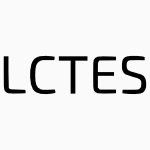 LCTES-2015-LinM #distributed #framework #named #simulation #towards #verification
LCTES-2015-LinM #distributed #framework #named #simulation #towards #verification- StarL: Towards a Unified Framework for Programming, Simulating and Verifying Distributed Robotic Systems (YL, SM), p. 10.
 LCTES-2015-WoitheK #architecture #named
LCTES-2015-WoitheK #architecture #named- TrilobiteG: A programming architecture for autonomous underwater vehicles (HCW, UK), p. 10.
 PDP-2015-DaneluttoTK #parallel
PDP-2015-DaneluttoTK #parallel- A Green Perspective on Structured Parallel Programming (MD, MT, PK), pp. 430–437.
 PPoPP-2015-KimLV #multi
PPoPP-2015-KimLV #multi- An OpenACC-based unified programming model for multi-accelerator systems (JK, SL, JSV), pp. 257–258.
 PPoPP-2015-MuralidharanGCSH #performance
PPoPP-2015-MuralidharanGCSH #performance- A collection-oriented programming model for performance portability (SM, MG, BCC, AS, MWH), pp. 263–264.
 PPoPP-2015-TangYKTGC #algorithm #parallel #recursion
PPoPP-2015-TangYKTGC #algorithm #parallel #recursion- Cache-oblivious wavefront: improving parallelism of recursive dynamic programming algorithms without losing cache-efficiency (YT, RY, HK, JJT, PG, RAC), pp. 205–214.
 PPoPP-2015-VassiliadisPCALBVN #energy #runtime
PPoPP-2015-VassiliadisPCALBVN #energy #runtime- A programming model and runtime system for significance-aware energy-efficient computing (VV, KP, CC, CDA, SL, NB, HV, DSN), pp. 275–276.
 SOSP-2015-MatveevSFM #concurrent #lightweight #named
SOSP-2015-MatveevSFM #concurrent #lightweight #named- Read-log-update: a lightweight synchronization mechanism for concurrent programming (AM, NS, PF, PM), pp. 168–183.
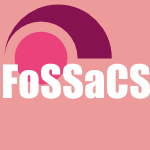 FoSSaCS-2015-CloustonBGB #induction #reasoning #recursion
FoSSaCS-2015-CloustonBGB #induction #reasoning #recursion- Programming and Reasoning with Guarded Recursion for Coinductive Types (RC, AB, HBG, LB), pp. 407–421.
 STOC-2015-LeeRS #bound
STOC-2015-LeeRS #bound- Lower Bounds on the Size of Semidefinite Programming Relaxations (JRL, PR, DS), pp. 567–576.
 CADE-2015-PientkaC #induction #proving
CADE-2015-PientkaC #induction #proving- Inductive Beluga: Programming Proofs (BP, AC), pp. 272–281.
 CAV-2015-SinghG #predict
CAV-2015-SinghG #predict- Predicting a Correct Program in Programming by Example (RS, SG), pp. 398–414.
 CAV-2015-ManoliosPP #framework #modulo theories
CAV-2015-ManoliosPP #framework #modulo theories- The Inez Mathematical Programming Modulo Theories Framework (PM, JP, VP), pp. 53–69.
 ICLP-2015-Charwat #diagrams #research #summary #using
ICLP-2015-Charwat #diagrams #research #summary #using- Dynamic Programming on Tree Decompositions using Binary Decision Diagrams: Research Summary (GC), pp. 301–310.
 ICLP-2015-Harrison #formal method #set
ICLP-2015-Harrison #formal method #set- Formal Methods for Answer Set Programming (AH), pp. 311–318.
 ICLP-2015-LeeWZ #automation #reasoning #set #using
ICLP-2015-LeeWZ #automation #reasoning #set #using- Automated Reasoning about XACML 3.0 Delegation Using Answer Set Programming (JL, YW, YZ), pp. 247–259.
 ICLP-2015-SchullerW #case study #set
ICLP-2015-SchullerW #case study #set- Answer Set Application Programming: a Case Study on Tetris (PS, AW), pp. 73–86.
 ICLP-2015-Wang #consistency #nondeterminism #probability #set
ICLP-2015-Wang #consistency #nondeterminism #probability #set- Handling Probability and Inconsistency in Answer Set Programming (YW), pp. 319–329.
 ICLP-J-2015-AlvianoFG #recursion #set
ICLP-J-2015-AlvianoFG #recursion #set- Rewriting recursive aggregates in answer set programming: back to monotonicity (MA, WF, MG), pp. 559–573.
 ICLP-J-2015-AlvianoL #compilation #complexity #set
ICLP-J-2015-AlvianoL #compilation #complexity #set- Complexity and compilation of GZ-aggregates in answer set programming (MA, NL), pp. 574–587.
 ICLP-J-2015-GagglMRWW #encoding
ICLP-J-2015-GagglMRWW #encoding- Improved answer-set programming encodings for abstract argumentation (SAG, NM, AR, JPW, SW), pp. 434–448.
 ICLP-J-2015-KoponenOJS #optimisation #set #using
ICLP-J-2015-KoponenOJS #optimisation #set #using- Optimizing phylogenetic supertrees using answer set programming (LK, EO, TJ, LS), pp. 604–619.
 ICLP-J-2015-LawRB #constraints #learning #set
ICLP-J-2015-LawRB #constraints #learning #set- Learning weak constraints in answer set programming (ML, AR, KB), pp. 511–525.
 CBSE-2014-SpacekDT #architecture #component #implementation #modelling #prototype
CBSE-2014-SpacekDT #architecture #component #implementation #modelling #prototype- A component-based meta-level architecture and prototypical implementation of a reflective component-based programming and modeling language (PS, CD, CT), pp. 13–22.
 SIGMOD-2014-GulwaniM #data analysis #interactive #named #natural language #spreadsheet
SIGMOD-2014-GulwaniM #data analysis #interactive #named #natural language #spreadsheet- NLyze: interactive programming by natural language for spreadsheet data analysis and manipulation (SG, MM), pp. 803–814.
 VLDB-2014-ConwayAAH #automation #distributed #named
VLDB-2014-ConwayAAH #automation #distributed #named- Edelweiss: Automatic Storage Reclamation for Distributed Programming (NC, PA, EA, JMH), pp. 481–492.
 CSEET-2014-AkpolatS #gamification #re-engineering #student #using
CSEET-2014-AkpolatS #gamification #re-engineering #student #using- Enhancing software engineering student team engagement in a high-intensity extreme programming course using gamification (BSA, WS), pp. 149–153.
 EDM-2014-PeddycordHB #generative #problem #using
EDM-2014-PeddycordHB #generative #problem #using- Generating Hints for Programming Problems Using Intermediate Output (BWPI, AH, TB), pp. 92–98.
 EDM-2014-PeroH #detection #how #question #source code #student
EDM-2014-PeroH #detection #how #question #source code #student- How patterns in source codes of students can help in detection of their programming skills? (SP, TH), pp. 371–372.
 ITiCSE-2014-BainB #question #why
ITiCSE-2014-BainB #question #why- Why is programming so hard to learn? (GB, IB), p. 356.
 ITiCSE-2014-BerryK #game studies #learning
ITiCSE-2014-BerryK #game studies #learning- The state of play: a notional machine for learning programming (MB, MK), pp. 21–26.
 ITiCSE-2014-Frison #algorithm #education #named
ITiCSE-2014-Frison #algorithm #education #named- AlgoTouch: a programming by demonstration tool for teaching algorithms (PF), p. 334.
 ITiCSE-2014-HakulinenM #assessment #automation
ITiCSE-2014-HakulinenM #assessment #automation- QR code programming tasks with automated assessment (LH, LM), pp. 177–182.
 ITiCSE-2014-Hidalgo-CespedesRL #concept #design #game studies #learning #video
ITiCSE-2014-Hidalgo-CespedesRL #concept #design #game studies #learning #video- Playing with metaphors: a methodology to design video games for learning abstract programming concepts (JHC, GMR, VLV), p. 348.
 ITiCSE-2014-Hijon-NeiraVPC #experience #game studies #learning
ITiCSE-2014-Hijon-NeiraVPC #experience #game studies #learning- Game programming for improving learning experience (RBHN, JÁVI, CPR, LC), pp. 225–230.
 ITiCSE-2014-Marcos-Abed #case study #effectiveness #learning
ITiCSE-2014-Marcos-Abed #case study #effectiveness #learning- Learning computer programming: a study of the effectiveness of a COAC# (JMA), p. 333.
 ITiCSE-2014-McKinseyJFG #online
ITiCSE-2014-McKinseyJFG #online- Remote pair programming (RPP) in massively open online courses (MOOCs) (JM, SJ, AF, DDG), p. 340.
 ITiCSE-2014-PiccioniEM
ITiCSE-2014-PiccioniEM - SPOC-supported introduction to programming (MP, HCE, BM), pp. 3–8.
 ITiCSE-2014-PolitzKF #framework #named #overview #platform
ITiCSE-2014-PolitzKF #framework #named #overview #platform- CaptainTeach: a platform for in-flow peer review of programming assignments (JGP, SK, KF), p. 332.
 ITiCSE-2014-PolitzPKF #multi #named #overview
ITiCSE-2014-PolitzPKF #multi #named #overview- CaptainTeach: multi-stage, in-flow peer review for programming assignments (JGP, DP, SK, KF), pp. 267–272.
 ITiCSE-2014-SabitzerP #education
ITiCSE-2014-SabitzerP #education- Brain-based teaching in programming courses (BS, SP), p. 355.
 ITiCSE-2014-SettleVS #motivation
ITiCSE-2014-SettleVS #motivation- Three views on motivation and programming (AS, AV, JS), pp. 321–322.
 ITiCSE-2014-TeagueL #named
ITiCSE-2014-TeagueL #named- Programming: reading, writing and reversing (DT, RL), pp. 285–290.
 ITiCSE-2014-TollOWE #challenge #education #student
ITiCSE-2014-TollOWE #challenge #education #student- The challenge of teaching students the value of programming best practices (DT, TO, AW, ME), p. 347.
 ITiCSE-2014-WatsonL #revisited
ITiCSE-2014-WatsonL #revisited- Failure rates in introductory programming revisited (CW, FWBL), pp. 39–44.
 SIGITE-2014-BrannockNL #java #student
SIGITE-2014-BrannockNL #java #student- Operation Java blitz: extracurricular programming workshops to engage it students (EB, NPN, RL), pp. 135–136.
 SIGITE-2014-DekhaneJ #mobile #student #using
SIGITE-2014-DekhaneJ #mobile #student #using- Using mobile apps to support novice programming students (SD, CJ), pp. 133–134.
 SIGITE-2014-Halper #android #education #framework #platform #using
SIGITE-2014-Halper #android #education #framework #platform #using- Using android as a platform for programming in the IT curriculum (MH), pp. 127–132.
 SIGITE-2014-IhantolaSV #automation #detection
SIGITE-2014-IhantolaSV #automation #detection- Automatically detectable indicators of programming assignment difficulty (PI, JS, AV), pp. 33–38.
 SIGITE-2014-JacksonEC #analysis #contest #performance
SIGITE-2014-JacksonEC #analysis #contest #performance- An analysis of team performance in high school programming contests (SJ, HJCE, RC), pp. 27–32.
 TFPIE-2014-Walck #haskell #physics
TFPIE-2014-Walck #haskell #physics- Learn Physics by Programming in Haskell (SNW), pp. 67–77.
 CSMR-WCRE-2014-RahmanYR #exception #fault #ide #recommendation #towards
CSMR-WCRE-2014-RahmanYR #exception #fault #ide #recommendation #towards- Towards a context-aware IDE-based meta search engine for recommendation about programming errors and exceptions (MMR, SY, CKR), pp. 194–203.
 MSR-2014-PonzanelliBPOL #ide #mining #self #stack overflow
MSR-2014-PonzanelliBPOL #ide #mining #self #stack overflow- Mining StackOverflow to turn the IDE into a self-confident programming prompter (LP, GB, MDP, RO, ML), pp. 102–111.
 FM-2014-HuPF #bidirectional
FM-2014-HuPF #bidirectional- Validity Checking of Putback Transformations in Bidirectional Programming (ZH, HP, SF), pp. 1–15.
 IFM-2014-ErikssonPB #invariant #proving
IFM-2014-ErikssonPB #invariant #proving- Proofs and Refutations in Invariant-Based Programming (JE, MP, RJB), pp. 189–204.
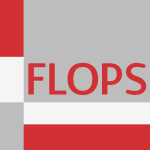 FLOPS-2014-HanadaI #multi #on the #persistent
FLOPS-2014-HanadaI #multi #on the #persistent- On Cross-Stage Persistence in Multi-Stage Programming (YH, AI), pp. 103–118.
 FLOPS-2014-Magalhaes #multi #parametricity
FLOPS-2014-Magalhaes #multi #parametricity- Generic Programming with Multiple Parameters (JPM), pp. 136–151.
 FLOPS-2014-MorihataKO
FLOPS-2014-MorihataKO - Dynamic Programming via Thinning and Incrementalization (AM, MK, AO), pp. 186–202.
 Haskell-2014-EkbladC #type safety #web
Haskell-2014-EkbladC #type safety #web- A seamless, client-centric programming model for type safe web applications (AE, KC), pp. 79–89.
 ICFP-2014-ChenAT #functional #scalability #self
ICFP-2014-ChenAT #functional #scalability #self- Functional programming for dynamic and large data with self-adjusting computation (YC, UAA, KT), pp. 227–240.
 ICFP-2014-StansiferW #flexibility #named
ICFP-2014-StansiferW #flexibility #named- Romeo: a system for more flexible binding-safe programming (PS, MW), pp. 53–65.
 IFL-2014-AchtenSDP #composition #interactive #scalability
IFL-2014-AchtenSDP #composition #interactive #scalability- Task Oriented Programming with Purely Compositional Interactive Scalable Vector Graphics (PA, JS, LD, RP), p. 7.
 ILC-2014-Smith #lisp
ILC-2014-Smith #lisp- Common Lisp’s Predilection for Mathematical Programming (RS), p. 10.
 CHI-2014-FastSWBB #ide
CHI-2014-FastSWBB #ide- Emergent, crowd-scale programming practice in the IDE (EF, DS, LW, JRB, MSB), pp. 2491–2500.
 CHI-2014-LieberBM #concept #visualisation
CHI-2014-LieberBM #concept #visualisation- Addressing misconceptions about code with always-on programming visualizations (TL, JRB, RCM), pp. 2481–2490.
 CHI-2014-UrMHL #smarttech
CHI-2014-UrMHL #smarttech- Practical trigger-action programming in the smart home (BU, EM, MPYH, MLL), pp. 803–812.
 DUXU-DI-2014-Bockermann #approach #big data #data analysis #visual notation
DUXU-DI-2014-Bockermann #approach #big data #data analysis #visual notation- A Visual Programming Approach to Big Data Analytics (CB), pp. 393–404.
 HCI-AIMT-2014-KashimaMY
HCI-AIMT-2014-KashimaMY - Proposal of a Method to Measure Difficulty Level of Programming Code with Eye-Tracking (TK, SM, SY), pp. 264–272.
 LCT-NLE-2014-GiannakosJL #process #women
LCT-NLE-2014-GiannakosJL #process #women- Happy Girls Engaging with Technology: Assessing Emotions and Engagement Related to Programming Activities (MNG, LJ, IL), pp. 398–409.
 ICEIS-v2-2014-EstacioP #distributed #set
ICEIS-v2-2014-EstacioP #distributed #set- A Set of Practices for Distributed Pair Programming (BJdSE, RP), pp. 331–338.
 ICEIS-v2-2014-PintoDOC #aspect-oriented #development #framework #modelling #multi #product line #towards
ICEIS-v2-2014-PintoDOC #aspect-oriented #development #framework #modelling #multi #product line #towards- Evaluating the Effort for Modularizing Multiple-Domain Frameworks Towards Framework Product Lines with Aspect-oriented Programming and Model-driven Development (VHSCP, RSD, ALO, VVdC), pp. 60–70.
 ICEIS-v2-2014-SilvaMS #aspect-oriented #evaluation #overview #performance
ICEIS-v2-2014-SilvaMS #aspect-oriented #evaluation #overview #performance- A Systematic Review on Performance Evaluation of Aspect-Oriented Programming Techniques used to Implement Crosscutting Concerns (RFGdS, MdAM, MSS), pp. 5–13.
 CIKM-2014-LinLZX #named #optimisation #search-based
CIKM-2014-LinLZX #named #optimisation #search-based- GPQ: Directly Optimizing Q-measure based on Genetic Programming (YL, HL, PZ, BX), pp. 1859–1862.
 ICML-c2-2014-LefakisF
ICML-c2-2014-LefakisF - Dynamic Programming Boosting for Discriminative Macro-Action Discovery (LL, FF), pp. 1548–1556.
 ICML-c2-2014-MalekAB #linear #markov #problem #scalability
ICML-c2-2014-MalekAB #linear #markov #problem #scalability- Linear Programming for Large-Scale Markov Decision Problems (AM, YAY, PLB), pp. 496–504.
 ICML-c2-2014-SchoenauerASS #feedback
ICML-c2-2014-SchoenauerASS #feedback- Programming by Feedback (MS, RA, MS, JCS), pp. 1503–1511.
 ICML-c2-2014-TaylorGP #analysis #approximate #linear
ICML-c2-2014-TaylorGP #analysis #approximate #linear- An Analysis of State-Relevance Weights and Sampling Distributions on L1-Regularized Approximate Linear Programming Approximation Accuracy (GT, CG, DP), pp. 451–459.
 ICPR-2014-MiaoSH #linear #multi #robust
ICPR-2014-MiaoSH #linear #multi #robust- Fusion of Multibiometrics Based on a New Robust Linear Programming (DM, ZS, YH), pp. 291–296.
 ICPR-2014-NilufarP #detection #learning
ICPR-2014-NilufarP #detection #learning- Learning to Detect Contours with Dynamic Programming Snakes (SN, TJP), pp. 984–989.
 KDD-2014-SrikantA #machine learning #using
KDD-2014-SrikantA #machine learning #using- A system to grade computer programming skills using machine learning (SS, VA), pp. 1887–1896.
 KMIS-2014-WoitB #collaboration #consistency #development #process
KMIS-2014-WoitB #collaboration #consistency #development #process- Commitment and Consistency in the Collaborative Software Development Process of Extreme Programming (DMW, KJB), pp. 375–381.
 KR-2014-ClercqBSCN #game studies #set #using
KR-2014-ClercqBSCN #game studies #set #using- Using Answer Set Programming for Solving Boolean Games (SDC, KB, SS, MDC, AN).
 SEKE-2014-GrieblerAF #architecture #evaluation #interface #manycore #parallel #performance #usability
SEKE-2014-GrieblerAF #architecture #evaluation #interface #manycore #parallel #performance #usability- Performance and Usability Evaluation of a Pattern-Oriented Parallel Programming Interface for Multi-Core Architectures (DG, DA, LGF), pp. 25–30.
 SEKE-2014-SantosBSC #game studies #learning #semantics #source code
SEKE-2014-SantosBSC #game studies #learning #semantics #source code- A Semantic Analyzer for Simple Games Source Codes to Programming Learning (ECOdS, GBB, VHVdS, EC), pp. 522–527.
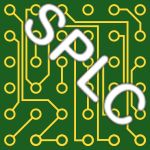 SPLC-2014-SchroterSTS #interface #product line
SPLC-2014-SchroterSTS #interface #product line- Feature-context interfaces: tailored programming interfaces for software product lines (RS, NS, TT, GS), pp. 102–111.
 ECOOP-2014-SunshineHA #documentation #empirical #protocol
ECOOP-2014-SunshineHA #documentation #empirical #protocol- Structuring Documentation to Support State Search: A Laboratory Experiment about Protocol Programming (JS, JDH, JA), pp. 157–181.
 Onward-2014-McDirmidE
Onward-2014-McDirmidE - Programming with Managed Time (SM, JE), pp. 1–10.
 Onward-2014-ReyndersDP #functional #multi #web
Onward-2014-ReyndersDP #functional #multi #web- Multi-Tier Functional Reactive Programming for the Web (BR, DD, FP), pp. 55–68.
 Onward-2014-UngarOK #named #symmetry
Onward-2014-UngarOK #named #symmetry- Korz: Simple, Symmetric, Subjective, Context-Oriented Programming (DU, HO, DK), pp. 113–131.
 OOPSLA-2014-BosboomRWA #compilation #named
OOPSLA-2014-BosboomRWA #compilation #named- StreamJIT: a commensal compiler for high-performance stream programming (JB, SR, WFW, SPA), pp. 177–195.
 OOPSLA-2014-DrechslerSMM #algorithm #distributed
OOPSLA-2014-DrechslerSMM #algorithm #distributed- Distributed REScala: an update algorithm for distributed reactive programming (JD, GS, RM, MM), pp. 361–376.
 OOPSLA-2014-ToschB #automation #debugging #named
OOPSLA-2014-ToschB #automation #debugging #named- SurveyMan: programming and automatically debugging surveys (ET, EDB), pp. 197–211.
 PLATEAU-2014-HundhausenC #education #interactive #social
PLATEAU-2014-HundhausenC #education #interactive #social- Supporting Social Interactions and Awareness in Educational Programming Environments (CDH, ASC), pp. 55–56.
 PLATEAU-2014-KubelkaBR #smalltalk
PLATEAU-2014-KubelkaBR #smalltalk- Asking and Answering Questions during a Programming Change Task in Pharo Language (JK, AB, RR), pp. 1–11.
 AdaEurope-2014-BurnsW #scheduling
AdaEurope-2014-BurnsW #scheduling- Deadline-Aware Programming and Scheduling (AB, AJW), pp. 107–118.
 HILT-2014-TaftMPM #ada #parallel
HILT-2014-TaftMPM #ada #parallel- Safe parallel programming in ada with language extensions (STT, BM, LMP, SM), pp. 87–96.
 PADL-2014-MagalhaesL
PADL-2014-MagalhaesL - Generic Generic Programming (JPM, AL), pp. 216–231.
 PEPM-2014-PachecoHF #bidirectional #combinator #monad
PEPM-2014-PachecoHF #bidirectional #combinator #monad- Monadic combinators for “Putback” style bidirectional programming (HP, ZH, SF), pp. 39–50.
 PLDI-2014-Hoare #concurrent
PLDI-2014-Hoare #concurrent- Laws of concurrent programming (CARH), p. 20.
 POPL-2014-CaveFPP
POPL-2014-CaveFPP - Fair reactive programming (AC, FF, PP, BP), pp. 361–372.
 POPL-2014-KuperTKN #parallel
POPL-2014-KuperTKN #parallel- Freeze after writing: quasi-deterministic parallel programming with LVars (LK, AT, NRK, RRN), pp. 257–270.
 PPDP-2014-DouenceT #imperative
PPDP-2014-DouenceT #imperative- Lazier Imperative Programming (RD, NT), pp. 7–18.
 PPDP-2014-NilssonP #declarative #game studies #tutorial
PPDP-2014-NilssonP #declarative #game studies #tutorial- Declarative Game Programming: Distilled Tutorial (HN, IP), pp. 159–160.
 REFSQ-2014-LiBHT #requirements
REFSQ-2014-LiBHT #requirements- Answer-Set Programming in Requirements Engineering (WL, DB, JHH, MT), pp. 168–183.
 ASE-2014-LiuW #named
ASE-2014-LiuW #named- PiE: programming in eliza (XL, DW), pp. 695–700.
 ASE-2014-LutzD #comparison #data flow #difference #interactive #using #visual notation
ASE-2014-LutzD #comparison #data flow #difference #interactive #using #visual notation- Using visual dataflow programming for interactive model comparison (RL, SD), pp. 653–664.
 FSE-2014-GulwaniRZ #feedback #generative #performance #problem
FSE-2014-GulwaniRZ #feedback #generative #performance #problem- Feedback generation for performance problems in introductory programming assignments (SG, IR, FZ), pp. 41–51.
 FSE-2014-SalvaneschiAPM #comprehension #empirical
FSE-2014-SalvaneschiAPM #comprehension #empirical- An empirical study on program comprehension with reactive programming (GS, SA, SP, MM), pp. 564–575.
 ICSE-2014-OkurHDD #c# #case study #tool support
ICSE-2014-OkurHDD #c# #case study #tool support- A study and toolkit for asynchronous programming in c# (SO, DLH, DD, AvD), pp. 1117–1127.
 SAC-2014-BernardiCL #aspect-oriented #declarative #design pattern #development #using
SAC-2014-BernardiCL #aspect-oriented #declarative #design pattern #development #using- Declarative design pattern-based development using aspect oriented programming (MLB, MC, GADL), pp. 1625–1630.
 SAC-2014-RockiBS #abstraction #future of #performance #question
SAC-2014-RockiBS #abstraction #future of #performance #question- The future of accelerator programming: abstraction, performance or can we have both? (KR, MB, RS), pp. 886–895.
 SAC-2014-SehicNVLD #adaptation #development #named
SAC-2014-SehicNVLD #adaptation #development #named- Entity-adaptation: a programming model for development of context-aware applications (SS, SN, MV, FL, SD), pp. 436–443.
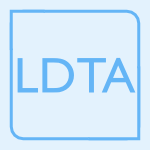 LDTA-J-2011-SauthoffG #analysis #domain-specific language #optimisation
LDTA-J-2011-SauthoffG #analysis #domain-specific language #optimisation- Yield grammar analysis and product optimization in a domain-specific language for dynamic programming (GS, RG), pp. 2–22.
 CASE-2014-ChuLSO #analysis #contract #flexibility #linear #parametricity #using
CASE-2014-ChuLSO #analysis #contract #flexibility #linear #parametricity #using- Flexibility analysis on a supply chain contract using a parametric Linear Programming model (CC, EEL, XS, DO), pp. 704–709.
 CASE-2014-XuLYM #integer #probability
CASE-2014-XuLYM #integer #probability- A mixed integer programming model for Bed planning considering stochastic length of stay (LX, NL, XY, FM), pp. 1069–1074.
 DAC-2014-HeisswolfZZKWTHSHB #communication #named
DAC-2014-HeisswolfZZKWTHSHB #communication #named- CAP: Communication Aware Programming (JH, AZ, AZ, SK, AW, JT, JH, GS, AH, JB), p. 6.
 HPDC-2014-BestaH #fault tolerance #memory management #modelling
HPDC-2014-BestaH #fault tolerance #memory management #modelling- Fault tolerance for remote memory access programming models (MB, TH), pp. 37–48.
 PDP-2014-NgY #named #parallel
PDP-2014-NgY #named #parallel- Pabble: Parameterised Scribble for Parallel Programming (NN, NY), pp. 707–714.
 PPoPP-2014-CunninghamGHIKMSTT #performance
PPoPP-2014-CunninghamGHIKMSTT #performance- Resilient X10: efficient failure-aware programming (DC, DG, BH, AI, KK, HM, VAS, MT, OT), pp. 67–80.
 PPoPP-2014-LuoLHKP #hybrid #manycore #runtime
PPoPP-2014-LuoLHKP #hybrid #manycore #runtime- Initial study of multi-endpoint runtime for MPI+OpenMP hybrid programming model on multi-core systems (ML, XL, KH, KCK, DKP), pp. 395–396.
 PPoPP-2014-MalekiMM #convergence #rank
PPoPP-2014-MalekiMM #convergence #rank- Parallelizing dynamic programming through rank convergence (SM, MM, TM), pp. 219–232.
 PPoPP-2014-Olukotun #domain-specific language #parallel
PPoPP-2014-Olukotun #domain-specific language #parallel- Beyond parallel programming with domain specific languages (KO), pp. 179–180.
 PPoPP-2014-RodriguesJDH #algorithm #clustering #interface #named
PPoPP-2014-RodriguesJDH #algorithm #clustering #interface #named- Triolet: a programming system that unifies algorithmic skeleton interfaces for high-performance cluster computing (CIR, TBJ, AD, WmWH), pp. 247–258.
 ESOP-2014-AguadoMHF #concurrent
ESOP-2014-AguadoMHF #concurrent- Grounding Synchronous Deterministic Concurrency in Sequential Programming (JA, MM, RvH, IF), pp. 229–248.
 STOC-2014-Christiano #learning #online
STOC-2014-Christiano #learning #online- Online local learning via semidefinite programming (PC), pp. 468–474.
 ICLP-J-2014-AlvianoDR #set
ICLP-J-2014-AlvianoDR #set- Anytime Computation of Cautious Consequences in Answer Set Programming (MA, CD, FR), pp. 755–770.
 ICLP-J-2014-HoosLS #algorithm #set
ICLP-J-2014-HoosLS #algorithm #set- claspfolio 2: Advances in Algorithm Selection for Answer Set Programming (HH, MTL, TS), pp. 569–585.
 ICLP-J-2014-MarpleG #consistency #set
ICLP-J-2014-MarpleG #consistency #set- Dynamic Consistency Checking in Goal-Directed Answer Set Programming (KM, GG), pp. 415–427.
 ICLP-J-2014-PimentelON #concurrent #constraints #proving
ICLP-J-2014-PimentelON #concurrent #constraints #proving- A Proof Theoretic Study of Soft Concurrent Constraint Programming (EP, CO, VN), pp. 649–663.
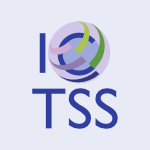 ICTSS-2014-MossigeGM #case study #constraints #industrial #testing #using
ICTSS-2014-MossigeGM #case study #constraints #industrial #testing #using- Testing Robotized Paint System Using Constraint Programming: An Industrial Case Study (MM, AG, HM), pp. 145–160.
 SMT-2014-CarlssonGP #analysis #constraints #protocol
SMT-2014-CarlssonGP #analysis #constraints #protocol- Protocol Log Analysis with Constraint Programming (MC, OG, JP), pp. 17–26.
 SMT-2014-KingBT #integer #linear #smt
SMT-2014-KingBT #integer #linear #smt- Leveraging Linear and Mixed Integer Programming for SMT (TK, CB, CT), p. 65.
 VLDB-2013-KolaitisPT #consistency #database #integer #performance #query
VLDB-2013-KolaitisPT #consistency #database #integer #performance #query- Efficient Querying of Inconsistent Databases with Binary Integer Programming (PGK, EP, WCT), pp. 397–408.
 CSEET-2013-Edwards #testing
CSEET-2013-Edwards #testing- Adding software testing to programming assignments (SHE), pp. 371–373.
 CSEET-2013-LiPK
CSEET-2013-LiPK - A spirit of camaraderie: The impact of pair programming on retention (ZL, CP, EK), pp. 209–218.
 ITiCSE-2013-BalzuweitS #named #visualisation
ITiCSE-2013-BalzuweitS #named #visualisation- SnapViz: visualizing programming assignment snapshots (EB, JS), p. 350.
 ITiCSE-2013-EsperFG #named
ITiCSE-2013-EsperFG #named- CodeSpells: embodying the metaphor of wizardry for programming (SE, SRF, WGG), pp. 249–254.
 ITiCSE-2013-Gordon #concept #mobile
ITiCSE-2013-Gordon #concept #mobile- Concepts for mobile programming (AJG), pp. 58–63.
 ITiCSE-2013-Honig #education #visual notation
ITiCSE-2013-Honig #education #visual notation- Teaching and assessing programming fundamentals for non majors with visual programming (WLH), pp. 40–45.
 ITiCSE-2013-Law13a #feedback #game studies #student #using
ITiCSE-2013-Law13a #feedback #game studies #student #using- Using screencasts to enhance coursework feedback for game programming students (RL), p. 329.
 ITiCSE-2013-LiLMZ #question
ITiCSE-2013-LiLMZ #question- Introduction to programming: science or art? (TL, WL, XM, HZ), p. 324.
 ITiCSE-2013-MatsuzawaOS #process #student #visualisation
ITiCSE-2013-MatsuzawaOS #process #student #visualisation- Programming process visualizer: a proposal of the tool for students to observe their programming process (YM, KO, SS), pp. 46–51.
 ITiCSE-2013-MedinaPGR #data mining #education #learning #mining #using
ITiCSE-2013-MedinaPGR #data mining #education #learning #mining #using- Assistance in computer programming learning using educational data mining and learning analytics (CFM, JRPP, VMÁG, MdPPR), pp. 237–242.
 ITiCSE-2013-SabitzerS #concept #education
ITiCSE-2013-SabitzerS #concept #education- Brain-based programming: a new concept for computer science education (BS, SS), p. 345.
 ITiCSE-2013-ScottG #learning #question
ITiCSE-2013-ScottG #learning #question- Implicit theories of programming aptitude as a barrier to learning to code: are they distinct from intelligence? (MJS, GG), p. 347.
 ITiCSE-2013-SheardSCDH #assessment
ITiCSE-2013-SheardSCDH #assessment- Assessment of programming: pedagogical foundations of exams (JS, S, AC, DJD, MH), pp. 141–146.
 ITiCSE-2013-SpaccoFSR #towards
ITiCSE-2013-SpaccoFSR #towards- Towards improving programming habits to create better computer science course outcomes (JS, DF, JS, KR), pp. 243–248.
 ITiCSE-2013-TsompanoudiSX #collaboration #distributed #embedded
ITiCSE-2013-TsompanoudiSX #collaboration #distributed #embedded- Exploring the effects of collaboration scripts embedded in a distributed pair programming system (DT, MS, SX), pp. 225–230.
 ITiCSE-2013-ZarbHR #communication #guidelines #student
ITiCSE-2013-ZarbHR #communication #guidelines #student- Industry-inspired guidelines improve students’ pair programming communication (MZ, JH, JR), pp. 135–140.
 SIGITE-2013-FaragAD #effectiveness #online #question
SIGITE-2013-FaragAD #effectiveness #online #question- Does language choice influence the effectiveness of online introductory programming courses? (WF, SA, DD), pp. 165–170.
 SIGITE-2013-GasparLBT #overview #student #testing #using
SIGITE-2013-GasparLBT #overview #student #testing #using- A preliminary review of undergraduate programming students’ perspectives on writing tests, working with others, & using peer testing (AG, SL, NRB, RT), pp. 109–114.
 SIGITE-2013-HillC #development #education #framework #hardware #low cost #open source #platform #student #using
SIGITE-2013-HillC #development #education #framework #hardware #low cost #open source #platform #student #using- Using a low-cost open source hardware development platform in teaching young students programming skills (LWH, SC), pp. 63–68.
 SIGITE-2013-KawashD #assembly #development #game studies #student #using #video
SIGITE-2013-KawashD #assembly #development #game studies #student #using #video- Using video game development to engage undergraduate students of assembly language programming (JK, RDC), pp. 71–76.
 ICSM-2013-QianPXJZ #logic #mining
ICSM-2013-QianPXJZ #logic #mining- Mining Logical Clones in Software: Revealing High-Level Business and Programming Rules (WQ, XP, ZX, SJ, WZ), pp. 40–49.
 MSR-2013-MorrisonM #stack overflow
MSR-2013-MorrisonM #stack overflow- Is programming knowledge related to age? an exploration of stack overflow (PM, ERMH), pp. 69–72.
 SCAM-2013-KiwelekarJ #abstraction #object-oriented #ontology
SCAM-2013-KiwelekarJ #abstraction #object-oriented #ontology- Ontological interpretation of object-oriented programming abstractions (AWK, RKJ), pp. 189–198.
 WCRE-2013-HarmanLW #reverse engineering #search-based
WCRE-2013-HarmanLW #reverse engineering #search-based- Genetic programming for Reverse Engineering (MH, WBL, WW), pp. 1–10.
 ICALP-v1-2013-Kolmogorov #linear #power of
ICALP-v1-2013-Kolmogorov #linear #power of- The Power of Linear Programming for Finite-Valued CSPs: A Constructive Characterization (VK), pp. 625–636.
 CEFP-2013-AchtenKP
CEFP-2013-AchtenKP - An Introduction to Task Oriented Programming (PA, PWMK, RP), pp. 187–245.
 CEFP-2013-DaneluttoT #parallel
CEFP-2013-DaneluttoT #parallel- Structured Parallel Programming with “core” FastFlow (MD, MT), pp. 29–75.
 CEFP-2013-Gibbons #domain-specific language #functional
CEFP-2013-Gibbons #domain-specific language #functional- Functional Programming for Domain-Specific Languages (JG), pp. 1–28.
 Haskell-2013-AnknerS #approach #haskell #performance
Haskell-2013-AnknerS #approach #haskell #performance- An EDSL approach to high performance Haskell programming (JA, JS), pp. 1–12.
 Haskell-2013-LindleyM #haskell #named
Haskell-2013-LindleyM #haskell #named- Hasochism: the pleasure and pain of dependently typed haskell programming (SL, CM), pp. 81–92.
 Haskell-2013-Ploeg #functional #monad
Haskell-2013-Ploeg #functional #monad- Monadic functional reactive programming (AvdP), pp. 117–128.
 ICFP-2013-Brady #algebra #dependent type #reasoning
ICFP-2013-Brady #algebra #dependent type #reasoning- Programming and reasoning with algebraic effects and dependent types (EB), pp. 133–144.
 ICFP-2013-Jeffrey #functional #liveness
ICFP-2013-Jeffrey #functional #liveness- Functional reactive programming with liveness guarantees (AJ), pp. 233–244.
 ICFP-2013-Krishnaswami #functional #higher-order
ICFP-2013-Krishnaswami #functional #higher-order- Higher-order functional reactive programming without spacetime leaks (NRK), pp. 221–232.
 ICFP-2013-Norell #dependent type #interactive
ICFP-2013-Norell #dependent type #interactive- Interactive programming with dependent types (UN), pp. 1–2.
 ICFP-2013-PetersenGDAD #case study #experience #functional
ICFP-2013-PetersenGDAD #case study #experience #functional- Experience report: functional programming of mHealth applications (CP, MG, DTD, JMA, GAD), pp. 357–362.
 ICFP-2013-PottierP
ICFP-2013-PottierP - Programming with permissions in Mezzo (FP, JP), pp. 173–184.
 ICFP-2013-ZilianiDKNV #coq #monad #named
ICFP-2013-ZilianiDKNV #coq #monad #named- Mtac: a monad for typed tactic programming in Coq (BZ, DD, NRK, AN, VV), pp. 87–100.
 IFL-2013-FowlerB #dependent type #web
IFL-2013-FowlerB #dependent type #web- Dependent Types for Safe and Secure Web Programming (SF, EB), p. 49.
 CIG-2013-AlhejaliL #heuristic #monte carlo #search-based #using
CIG-2013-AlhejaliL #heuristic #monte carlo #search-based #using- Using genetic programming to evolve heuristics for a Monte Carlo Tree Search Ms Pac-Man agent (AMA, SML), pp. 1–8.
 CIG-2013-BenbassatS #named #search-based
CIG-2013-BenbassatS #named #search-based- EvoMCTS: Enhancing MCTS-based players through genetic programming (AB, MS), pp. 1–8.
 FDG-2013-FontMMT #automation #game studies #generative #search-based #towards
FDG-2013-FontMMT #automation #game studies #generative #search-based #towards- Towards the automatic generation of card games through grammar-guided genetic programming (JMF, TM, DM, JT), pp. 360–363.
 FDG-2013-ZornWCL
FDG-2013-ZornWCL - Exploring Minecraft as a conduit for increasing interest in programming (CZ, CAW, EC, JJLJ), pp. 352–359.
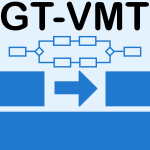 GT-VMT-2013-ColomboP #automaton
GT-VMT-2013-ColomboP #automaton- Monitor-Oriented Compensation Programming Through Compensating Automata (CC, GJP).
 CHI-2013-KuttalSR #debugging
CHI-2013-KuttalSR #debugging- Debugging support for end user mashup programming (SKK, AS, GR), pp. 1609–1618.
 HIMI-LCCB-2013-KanamoriTA #development #learning
HIMI-LCCB-2013-KanamoriTA #development #learning- Development of a Computer Programming Learning Support System Based on Reading Computer Program (HK, TT, TA), pp. 63–69.
 CAiSE-2013-ScekicTD #information management
CAiSE-2013-ScekicTD #information management- Programming Incentives in Information Systems (OS, HLT, SD), pp. 688–703.
 ICML-c1-2013-HallW #modelling #online
ICML-c1-2013-HallW #modelling #online- Dynamical Models and tracking regret in online convex programming (ECH, RW), pp. 579–587.
 ICML-c1-2013-MenonTGLK #framework #machine learning
ICML-c1-2013-MenonTGLK #framework #machine learning- A Machine Learning Framework for Programming by Example (AKM, OT, SG, BWL, AK), pp. 187–195.
 ICML-c3-2013-DalalyanHMS #learning #modelling
ICML-c3-2013-DalalyanHMS #learning #modelling- Learning Heteroscedastic Models by Convex Programming under Group Sparsity (ASD, MH, KM, JS), pp. 379–387.
 KEOD-2013-NogueiraG #multi #nondeterminism #set
KEOD-2013-NogueiraG #multi #nondeterminism #set- Supply Chain Tracing of Multiple Products under Uncertainty and Incomplete Information — An Application of Answer Set Programming (MLN, NPG), pp. 399–406.
 SEKE-2013-JanesMSS #analysis #problem #requirements
SEKE-2013-JanesMSS #analysis #problem #requirements- Domain Analysis in Combination with Extreme Programming toAddress Requirements Volatility Problems (AJ, SM, AS, GS), pp. 226–231.
 SEKE-2013-KatoSWF #comparative #evaluation #paradigm
SEKE-2013-KatoSWF #comparative #evaluation #paradigm- Comparative Evaluation of Programming Paradigms: Separation of Concerns with Object-, Aspect-, and Context-Oriented Programming (FK, KS, HW, YF), pp. 594–599.
 SEKE-2013-SantosBC #analysis #education #game studies #modelling #semantics
SEKE-2013-SantosBC #analysis #education #game studies #modelling #semantics- A Knowledge Modeling System for Semantic Analysis of Games Applied to Programming Education (ECOdS, GBB, EWGC), pp. 668–673.
 ECOOP-2013-MaierO #higher-order #incremental
ECOOP-2013-MaierO #higher-order #incremental- Higher-Order Reactive Programming with Incremental Lists (IM, MO), pp. 707–731.
 ECOOP-2013-OliveiraSLC #algebra #feature model
ECOOP-2013-OliveiraSLC #algebra #feature model- Feature-Oriented Programming with Object Algebras (BCdSO, TvdS, AL, WRC), pp. 27–51.
 ECOOP-2013-ZhuL #composition #linear
ECOOP-2013-ZhuL #composition #linear- Heap Decomposition Inference with Linear Programming (HSZ, YDL), pp. 104–128.
 Onward-2013-MayerK #game studies
Onward-2013-MayerK #game studies- Game programming by demonstration (MM, VK), pp. 75–90.
 Onward-2013-McDirmid #live programming
Onward-2013-McDirmid #live programming- Usable live programming (SM), pp. 53–62.
 Onward-2013-MilicevicJGM #interactive #modelling #paradigm #web
Onward-2013-MilicevicJGM #interactive #modelling #paradigm #web- Model-based, event-driven programming paradigm for interactive web applications (AM, DJ, MG, DM), pp. 17–36.
 Onward-2013-Repenning #interactive #program analysis
Onward-2013-Repenning #interactive #program analysis- Conversational programming: exploring interactive program analysis (AR), pp. 63–74.
 Onward-2013-Steimann #multi #object-oriented
Onward-2013-Steimann #multi #object-oriented- Content over container: object-oriented programming with multiplicities (FS), pp. 173–186.
 HILT-2013-MichellMP #manycore #realtime
HILT-2013-MichellMP #manycore #realtime- Real-time programming on accelerator many-core processors (SM, BM, LMP), pp. 23–36.
 HILT-2013-Taft13a #ada #parallel #set
HILT-2013-Taft13a #ada #parallel #set- Bringing safe, dynamic parallel programming to the spark verifiable subset of ada (STT), pp. 37–40.
 PADL-2013-MachadoAD #declarative #parallel #performance #using
PADL-2013-MachadoAD #declarative #parallel #performance #using- Parallel Performance of Declarative Programming Using a PGAS Model (RM, SA, DD), pp. 244–260.
 PEPM-2013-AktemurKKS #challenge #generative
PEPM-2013-AktemurKKS #challenge #generative- Shonan challenge for generative programming: short position paper (BA, YK, OK, CcS), pp. 147–154.
 PLDI-2013-BurckhardtFHMMTK #exclamation #feedback #user interface
PLDI-2013-BurckhardtFHMMTK #exclamation #feedback #user interface- It’s alive! continuous feedback in UI programming (SB, MF, PdH, SM, MM, NT, JK), pp. 95–104.
 PLDI-2013-CzaplickiC #functional #user interface
PLDI-2013-CzaplickiC #functional #user interface- Asynchronous functional reactive programming for GUIs (EC, SC), pp. 411–422.
 PLDI-2013-DesaiGJQRZ #named
PLDI-2013-DesaiGJQRZ #named- P: safe asynchronous event-driven programming (AD, VG, EKJ, SQ, SKR, DZ), pp. 321–332.
 PLDI-2013-SinghGS #automation #feedback #generative
PLDI-2013-SinghGS #automation #feedback #generative- Automated feedback generation for introductory programming assignments (RS, SG, ASL), pp. 15–26.
 POPL-2013-AbelPTS #infinity #named #pattern matching
POPL-2013-AbelPTS #infinity #named #pattern matching- Copatterns: programming infinite structures by observations (AA, BP, DT, AS), pp. 27–38.
 POPL-2013-CarboneM #multi #named
POPL-2013-CarboneM #multi #named- Deadlock-freedom-by-design: multiparty asynchronous global programming (MC, FM), pp. 263–274.
 POPL-2013-Goodman #probability
POPL-2013-Goodman #probability- The principles and practice of probabilistic programming (NDG), pp. 399–402.
 PPDP-2013-CaballeroST #constraints #finite
PPDP-2013-CaballeroST #constraints #finite- Finite type extensions in constraint programming (RC, PJS, ATF), pp. 217–227.
 PPDP-2013-Corte-RealDR #parallel #prolog
PPDP-2013-Corte-RealDR #parallel #prolog- Prolog programming with a map-reduce parallel construct (JCR, IdCD, RR), pp. 285–296.
 PPDP-2013-PinoBV #concurrent #confluence #constraints #equivalence #performance
PPDP-2013-PinoBV #concurrent #confluence #constraints #equivalence #performance- Efficient computation of program equivalence for confluent concurrent constraint programming (LFP, FB, FDV), pp. 263–274.
 ESEC-FSE-2013-GyoriFDL #functional #imperative #refactoring
ESEC-FSE-2013-GyoriFDL #functional #imperative #refactoring- Crossing the gap from imperative to functional programming through refactoring (AG, LF, DD, JL), pp. 543–553.
 ICSE-2013-Callau #incremental
ICSE-2013-Callau #incremental- Supporting incremental programming with ghosts (OC), pp. 1429–1431.
 ICSE-2013-FranklinGLD #automation #functional #imperative #named #refactoring
ICSE-2013-FranklinGLD #automation #functional #imperative #named #refactoring- LAMBDAFICATOR: from imperative to functional programming through automated refactoring (LF, AG, JL, DD), pp. 1287–1290.
 ICSE-2013-Kuhn #interactive #live programming #on the #testing
ICSE-2013-Kuhn #interactive #live programming #on the #testing- On extracting unit tests from interactive live programming sessions (AK), pp. 1241–1244.
 ICSE-2013-NetoCLGM #approach #named #problem #student #testing
ICSE-2013-NetoCLGM #approach #named #problem #student #testing- POPT: a problem-oriented programming and testing approach for novice students (VLN, RC, LL, DSG, APM), pp. 1099–1108.
 ICSE-2013-SalingerZP #research
ICSE-2013-SalingerZP #research- Liberating pair programming research from the oppressive Driver/Observer regime (SS, FZ, LP), pp. 1201–1204.
 ICSE-2013-TillmannHXGB #education #game studies #interactive #learning #re-engineering
ICSE-2013-TillmannHXGB #education #game studies #interactive #learning #re-engineering- Teaching and learning programming and software engineering via interactive gaming (NT, JdH, TX, SG, JB), pp. 1117–1126.
 SAC-2013-Montesi #web
SAC-2013-Montesi #web- Process-aware web programming with Jolie (FM), pp. 761–763.
 LDTA-J-2009-LammelTK #fault #source code #traversal
LDTA-J-2009-LammelTK #fault #source code #traversal- Programming errors in traversal programs over structured data (RL, SJT, MK), pp. 1770–1808.
 GPCE-2013-ChapinSSW #named #network #staged
GPCE-2013-ChapinSSW #named #network #staged- Scalaness/nesT: type specialized staged programming for sensor networks (PCC, CS, SFS, MW), pp. 135–144.
 GPCE-2013-Richard-FoyBJ #abstraction #performance #web
GPCE-2013-Richard-FoyBJ #abstraction #performance #web- Efficient high-level abstractions for web programming (JRF, OB, JMJ), pp. 53–60.
 CASE-2013-LiF #approach #integer #linear #multi #problem #scheduling
CASE-2013-LiF #approach #integer #linear #multi #problem #scheduling- A mixed integer linear programming approach for multi-degree cyclic multi-hoist scheduling problems without overlapping (XL, RYKF), pp. 274–279.
 CASE-2013-RossanoMHMF #concept #industrial #perspective
CASE-2013-RossanoMHMF #concept #industrial #perspective- Easy robot programming concepts: An industrial perspective (GFR, CM, MH, SM, TAF), pp. 1119–1126.
 CASE-2013-SilvaCTS #automation #linear #optimisation
CASE-2013-SilvaCTS #automation #linear #optimisation- A mixed-integer linear programming model for automatic routing decisions in oil production optimization (TLS, EC, AFT, SS), pp. 280–285.
 DATE-2013-LiuLHCLL #clustering #effectiveness #linear #network #prototype #statistics
DATE-2013-LiuLHCLL #clustering #effectiveness #linear #network #prototype #statistics- Effective power network prototyping via statistical-based clustering and sequential linear programming (SYSL, CJL, CCH, HMC, CTL, CHL), pp. 1701–1706.
 DATE-2013-LukasiewyczSC #using
DATE-2013-LukasiewyczSC #using- Priority assignment for event-triggered systems using mathematical programming (ML, SS, SC), pp. 982–987.
 DATE-2013-Moy #approach #modelling #parallel
DATE-2013-Moy #approach #modelling #parallel- Parallel programming with SystemC for loosely timed models: a non-intrusive approach (MM), pp. 9–14.
 PDP-2013-DaneluttoT #parallel #set
PDP-2013-DaneluttoT #parallel #set- A RISC Building Block Set for Structured Parallel Programming (MD, MT), pp. 46–50.
 PDP-2013-DemirizBA #architecture #constraints #design #named #using
PDP-2013-DemirizBA #architecture #constraints #design #named #using- CPNoC: On Using Constraint Programming in Design of Network-on-Chip Architecture (AD, NB, AA), pp. 486–493.
 PDP-2013-MichailidisM #estimation #kernel #manycore #modelling #parallel
PDP-2013-MichailidisM #estimation #kernel #manycore #modelling #parallel- Parallel Computing of Kernel Density Estimation with Different Multi-core Programming Models (PDM, KGM), pp. 77–85.
 PDP-2013-SuboticSLV #data flow #identification #modelling
PDP-2013-SuboticSLV #data flow #identification #modelling- Identifying Critical Code Sections in Dataflow Programming Models (VS, JCS, JL, MV), pp. 29–37.
 PPoPP-2013-AfekLM #hardware
PPoPP-2013-AfekLM #hardware- Programming with hardware lock elision (YA, AL, AM), pp. 295–296.
 PPoPP-2013-FriedleyHBLM #distributed #manycore #memory management #performance
PPoPP-2013-FriedleyHBLM #distributed #manycore #memory management #performance- Ownership passing: efficient distributed memory programming on multi-core systems (AF, TH, GB, AL, CCM), pp. 177–186.
 PPoPP-2013-ParkST #parallel
PPoPP-2013-ParkST #parallel- Parallel programming with big operators (CP, GLSJ, JBT), pp. 293–294.
 PPoPP-2013-WozniakAWKLF #data flow #named #scalability
PPoPP-2013-WozniakAWKLF #data flow #named #scalability- Swift/T: scalable data flow programming for many-task applications (JMW, TGA, MW, DSK, ELL, ITF), pp. 309–310.
 CAV-2013-DaiXZ #generative
CAV-2013-DaiXZ #generative- Generating Non-linear Interpolants by Semidefinite Programming (LD, BX, NZ), pp. 364–380.
 ICLP-J-2013-BanbaraSTIS #modelling #set
ICLP-J-2013-BanbaraSTIS #modelling #set- Answer set programming as a modeling language for course timetabling (MB, TS, NT, KI, TS), pp. 783–798.
 ICLP-J-2013-BusoniuOPST #debugging #ide #named
ICLP-J-2013-BusoniuOPST #debugging #ide #named- SeaLion: An eclipse-based IDE for answer-set programming with advanced debugging support (PAB, JO, JP, PS, HT), pp. 657–673.
 ICLP-J-2013-GiordanoMSD #constraints #process #set #verification
ICLP-J-2013-GiordanoMSD #constraints #process #set #verification- Business process verification with constraint temporal answer set programming (LG, AM, MS, DTD), pp. 641–655.
 ICST-2013-MossigeGM #constraints #generative #integration #testing #using
ICST-2013-MossigeGM #constraints #generative #integration #testing #using- Test Generation for Robotized Paint Systems Using Constraint Programming in a Continuous Integration Environment (MM, AG, HM), pp. 489–490.
 ICTSS-2013-MauserKH #towards #user interface #using
ICTSS-2013-MauserKH #towards #user interface #using- Towards a GUI Test Model Using State Charts and Programming Code (DM, AK, KH), pp. 271–276.
 LICS-2013-AndersonDH #fixpoint #linear #logic
LICS-2013-AndersonDH #fixpoint #linear #logic- Maximum Matching and Linear Programming in Fixed-Point Logic with Counting (MA, AD, BH), pp. 173–182.
 SAT-2013-SohTB #agile #constraints #named #prototype #satisfiability
SAT-2013-SohTB #agile #constraints #named #prototype #satisfiability- Scarab: A Rapid Prototyping Tool for SAT-Based Constraint Programming Systems (TS, NT, MB), pp. 429–436.
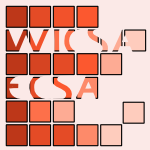 WICSA-ECSA-2012-KeulerWW #agile #architecture
WICSA-ECSA-2012-KeulerWW #agile #architecture- Architecture-aware Programming in Agile Environments (TK, SW, BW), pp. 229–233.
 VLDB-2012-IseleB #learning #search-based #using
VLDB-2012-IseleB #learning #search-based #using- Learning Expressive Linkage Rules using Genetic Programming (RI, CB), pp. 1638–1649.
 CSEET-2012-AroraG #collaboration #learning #source code
CSEET-2012-AroraG #collaboration #learning #source code- Learning to Write Programs with Others: Collaborative Quadruple Programming (RA, SG), pp. 32–41.
 ITiCSE-2012-Aycock #named
ITiCSE-2012-Aycock #named- μPython: non-majors programming from the very first lecture (JA), pp. 345–350.
 ITiCSE-2012-CamaraPV #collaboration #evaluation #framework #learning
ITiCSE-2012-CamaraPV #collaboration #evaluation #framework #learning- Evaluation of a collaborative instructional framework for programming learning (LMSC, MPV, JÁVI), pp. 162–167.
 ITiCSE-2012-FletcherG #object-oriented
ITiCSE-2012-FletcherG #object-oriented- Sample courseware for introductory OO programming (RF, RG), p. 370.
 ITiCSE-2012-GerdesJH #functional #interactive
ITiCSE-2012-GerdesJH #functional #interactive- An interactive functional programming tutor (AG, JJ, BH), pp. 250–255.
 ITiCSE-2012-GordonMM
ITiCSE-2012-GordonMM - Spaghetti for the main course?: observations on the naturalness of scenario-based programming (MG, AM, OMS), pp. 198–203.
 ITiCSE-2012-GovenderG #learning #object-oriented #student
ITiCSE-2012-GovenderG #learning #object-oriented #student- Are students learning object oriented programming in an object oriented programming course?: student voices (DWG, IG), p. 395.
 ITiCSE-2012-KortsartsK #component #probability
ITiCSE-2012-KortsartsK #component #probability- Enriching introductory programming courses with non-intuitive probability experiments component (YK, YK), pp. 128–131.
 ITiCSE-2012-MalekoHD #case study #experience #learning #mobile #social
ITiCSE-2012-MalekoHD #case study #experience #learning #mobile #social- Novices’ perceptions and experiences of a mobile social learning environment for learning of programming (MM, MH, DJD), pp. 285–290.
 ITiCSE-2012-MeyerW #lessons learnt
ITiCSE-2012-MeyerW #lessons learnt- Programming studio: advances and lessons learned (CM, MW), p. 369.
 ITiCSE-2012-QueirosL #education #named
ITiCSE-2012-QueirosL #education #named- PETCHA: a programming exercises teaching assistant (RAPQ, JPL), pp. 192–197.
 ITiCSE-2012-TillmannB #education #mobile
ITiCSE-2012-TillmannB #education #mobile- Teaching programming on a mobile device (NT, JB), p. 404.
 ITiCSE-2012-TillmannMHFBSX #education #future of #mobile
ITiCSE-2012-TillmannMHFBSX #education #future of #mobile- The future of teaching programming is on mobile devices (NT, MM, JdH, MF, JB, AS, TX), pp. 156–161.
 SIGITE-2012-AhmadzadehM #algorithm #clustering #education #research #using
SIGITE-2012-AhmadzadehM #algorithm #clustering #education #research #using- A feasibility study on using clustering algorithms in programming education research (MA, EM), pp. 145–150.
 SIGITE-2012-AndersonG #case study #experience #student #using
SIGITE-2012-AndersonG #case study #experience #student #using- Engaging undergraduate programming students: experiences using lego mindstorms NXT (MA, CG), pp. 139–144.
 SIGITE-2012-ElnagarA #delivery #effectiveness #learning
SIGITE-2012-ElnagarA #delivery #effectiveness #learning- A modified team-based learning methodology for effective delivery of an introductory programming course (AE, MA), pp. 177–182.
 SIGITE-2012-Farag #learning #online
SIGITE-2012-Farag #learning #online- Comparing achievement of intended learning outcomes in online programming classes with blended offerings (WF), pp. 25–30.
 SIGITE-2012-VihavainenLK #multi
SIGITE-2012-VihavainenLK #multi- Multi-faceted support for MOOC in programming (AV, ML, JK), pp. 171–176.
 TFPIE-2012-StutterheimSS #declarative #education #prolog
TFPIE-2012-StutterheimSS #declarative #education #prolog- Forty hours of declarative programming: Teaching Prolog at the Junior College Utrecht (JS, WS, SDS), pp. 50–62.
 ICPC-2012-FeigenspanKLAH #experience
ICPC-2012-FeigenspanKLAH #experience- Measuring programming experience (JF, CK, JL, SA, SH), pp. 73–82.
 ICSM-2012-NasehiSMB #case study #stack overflow #what
ICSM-2012-NasehiSMB #case study #stack overflow #what- What makes a good code example?: A study of programming Q&A in StackOverflow (SMN, JS, FM, CB), pp. 25–34.
 ICALP-v1-2012-BhaskaraCMV #on the #polynomial
ICALP-v1-2012-BhaskaraCMV #on the #polynomial- On Quadratic Programming with a Ratio Objective (AB, MC, RM, AV), pp. 109–120.
 LATA-2012-BilleS #dependence #performance
LATA-2012-BilleS #dependence #performance- Fast and Cache-Oblivious Dynamic Programming with Local Dependencies (PB, MS), pp. 131–142.
 IFM-2012-RochaBCN #bound #comprehension #debugging #model checking #using
IFM-2012-RochaBCN #bound #comprehension #debugging #model checking #using- Understanding Programming Bugs in ANSI-C Software Using Bounded Model Checking Counter-Examples (HR, RSB, LCC, ADN), pp. 128–142.
 SEFM-2012-BistarelliS #concurrent #constraints
SEFM-2012-BistarelliS #concurrent #constraints- Securely Accessing Shared Resources with Concurrent Constraint Programming (SB, FS), pp. 308–322.
 FLOPS-2012-Codish
FLOPS-2012-Codish - Programming with Boolean Satisfaction (MC), p. 1.
 FLOPS-2012-Weirich #haskell
FLOPS-2012-Weirich #haskell- Dependently-Typed Programming in GHC (SW), p. 3.
 Haskell-2012-AdamsD #haskell #performance #using
Haskell-2012-AdamsD #haskell #performance #using- Template your boilerplate: using template haskell for efficient generic programming (MDA0, TD), pp. 13–24.
 Haskell-2012-EisenbergW
Haskell-2012-EisenbergW - Dependently typed programming with singletons (RAE, SW), pp. 117–130.
 Haskell-2012-Swierstra #case study #coq #experience #proving
Haskell-2012-Swierstra #case study #coq #experience #proving- xmonad in Coq (experience report): programming a window manager in a proof assistant (WS), pp. 131–136.
 ICFP-2012-McBride #dependent type
ICFP-2012-McBride #dependent type- Agda-curious?: an exploration of programming with dependent types (CTM), pp. 1–2.
 ICFP-2012-OliveiraC #functional #graph
ICFP-2012-OliveiraC #functional #graph- Functional programming with structured graphs (BCdSO, WRC), pp. 77–88.
 ICFP-2012-Sheard #design #reduction
ICFP-2012-Sheard #design #reduction- Painless programming combining reduction and search: design principles for embedding decision procedures in high-level languages (TES), pp. 89–102.
 ICFP-2012-Siederdissen #combinator #performance
ICFP-2012-Siederdissen #combinator #performance- Sneaking around concatMap: efficient combinators for dynamic programming (CHzS), pp. 215–226.
 IFL-2012-IonescuJ #modelling
IFL-2012-IonescuJ #modelling- Dependently-Typed Programming in Scientific Computing — Examples from Economic Modelling (CI, PJ), pp. 140–156.
 CIG-2012-BenbassatS #evolution #search-based #using
CIG-2012-BenbassatS #evolution #search-based #using- Evolving both search and strategy for Reversi players using genetic programming (AB, MS), pp. 47–54.
 CIG-2012-BrandstetterA #information retrieval #search-based #using
CIG-2012-BrandstetterA #information retrieval #search-based #using- Reactive control of Ms. Pac Man using information retrieval based on Genetic Programming (MFB, SA), pp. 250–256.
 FDG-2012-SimmonsDG #development #game studies #using
FDG-2012-SimmonsDG #development #game studies #using- Using game development to reveal programming competency (SS, BJD, MG), pp. 89–96.
 CHI-2012-BogartBDAW #case study #debugging #design #interactive
CHI-2012-BogartBDAW #case study #debugging #design #interactive- Designing a debugging interaction language for cognitive modelers: an initial case study in natural programming plus (CB, MMB, SD, HA, RW), pp. 2469–2478.
 CHI-2012-JungCL #interactive #performance
CHI-2012-JungCL #interactive #performance- Group hedonic balance and pair programming performance: affective interaction dynamics as indicators of performance (MJ, JC, LJL), pp. 829–838.
 CHI-2012-LuL #gesture #multi
CHI-2012-LuL #gesture #multi- Gesture coder: a tool for programming multi-touch gestures by demonstration (HL, YL), pp. 2875–2884.
 CHI-2012-XieLC #interactive
CHI-2012-XieLC #interactive- Evaluating interactive support for secure programming (JX, HRL, BtC), pp. 2707–2716.
 CSCW-2012-NussliJ #interactive #quality
CSCW-2012-NussliJ #interactive #quality- Effects of sharing text selections on gaze cross-recurrence and interaction quality in a pair programming task (MAN, PJ), pp. 1125–1134.
 ICEIS-v2-2012-FrancaS #aspect-oriented #evaluation #metric #overview #using
ICEIS-v2-2012-FrancaS #aspect-oriented #evaluation #metric #overview #using- A Systematic Review on Evaluation of Aspect Oriented Programming using Software Metrics (JMSF, MdSS), pp. 77–83.
 CIKM-2012-ZhangWH #integer #linear #set
CIKM-2012-ZhangWH #integer #linear #set- Selecting expansion terms as a set via integer linear programming (QZ, YW, XH), pp. 2399–2402.
 ICML-2012-HannahD #design #geometry
ICML-2012-HannahD #design #geometry- Ensemble Methods for Convex Regression with Applications to Geometric Programming Based Circuit Design (LH, DBD), p. 24.
 ICML-2012-Petrik #approximate #bound #robust
ICML-2012-Petrik #approximate #bound #robust- Approximate Dynamic Programming By Minimizing Distributionally Robust Bounds (MP), p. 207.
 ICML-2012-YangMJZZ #kernel #learning #multi #probability
ICML-2012-YangMJZZ #kernel #learning #multi #probability- Multiple Kernel Learning from Noisy Labels by Stochastic Programming (TY, MM, RJ, LZ, YZ), p. 21.
 ICPR-2012-KramerABSB #component #documentation #robust
ICPR-2012-KramerABSB #component #documentation #robust- Robust stereo correspondence for documents by matching connected components of text-lines with dynamic programming (MK, MZA, SSB, FS, TMB), pp. 734–737.
 ICPR-2012-RayAZ #segmentation
ICPR-2012-RayAZ #segmentation- Seeing through clutter: Snake computation with dynamic programming for particle segmentation (NR, STA, HZ), pp. 801–804.
 ICPR-2012-WangST #feature model #linear #recognition #robust
ICPR-2012-WangST #feature model #linear #recognition #robust- Robust regularized feature selection for iris recognition via linear programming (LW, ZS, TT), pp. 3358–3361.
 ICPR-2012-WittW #using
ICPR-2012-WittW #using- Sparse stereo by edge-based search using dynamic programming (JW, UW), pp. 3631–3635.
 KEOD-2012-NogueiraG #set #using
KEOD-2012-NogueiraG #set #using- Recall-driven Product Tracing and Supply Chain Tracking using Answer Set Programming (MLN, NPG), pp. 125–133.
 KR-2012-BaralD #automation #how #learning #set
KR-2012-BaralD #automation #how #learning #set- Solving Puzzles Described in English by Automated Translation to Answer Set Programming and Learning How to Do that Translation (CB, JD).
 KR-2012-ChaudhriS #knowledge base #reasoning #set #specification #using
KR-2012-ChaudhriS #knowledge base #reasoning #set #specification #using- Specifying and Reasoning with Underspecified Knowledge Bases Using Answer Set Programming (VKC, TCS).
 KR-2012-FebbraroLGR #framework #java #named #set
KR-2012-FebbraroLGR #framework #java #named #set- JASP: A Framework for Integrating Answer Set Programming with Java (OF, NL, GG, FR).
 KR-2012-GebserGKOSS #reasoning #set
KR-2012-GebserGKOSS #reasoning #set- Stream Reasoning with Answer Set Programming: Preliminary Report (MG, TG, RK, PO, OS, TS).
 KR-2012-LiuJN #integer #set
KR-2012-LiuJN #integer #set- Answer Set Programming via Mixed Integer Programming (GL, TJ, IN).
 MLDM-2012-NguyenF
MLDM-2012-NguyenF - A General Lp-norm Support Vector Machine via Mixed 0-1 Programming (HTN, KF), pp. 40–49.
 SEKE-2012-CookN #aspect-oriented #concept #towards
SEKE-2012-CookN #aspect-oriented #concept #towards- Towards More Generic Aspect-Oriented Programming: Rethinking the AOP Joinpoint Concept (JC, AN), pp. 154–157.
 BX-2012-AnjorinVS #constraints #graph grammar
BX-2012-AnjorinVS #constraints #graph grammar- Complex Attribute Manipulation in TGGs with Constraint-Based Programming Techniques (AA, GV, AS), pp. 68–83.
 ECOOP-2012-ReichenbachSI #java #named #parallel
ECOOP-2012-ReichenbachSI #java #named #parallel- PQL: A Purely-Declarative Java Extension for Parallel Programming (CR, YS, NI), pp. 53–78.
 Onward-2012-AfshariBS
Onward-2012-AfshariBS - Liberating the programmer with prorogued programming (MA, ETB, ZS), pp. 11–26.
 Onward-2012-BainomugishaVRCM #fresh look
Onward-2012-BainomugishaVRCM #fresh look- Interruptible context-dependent executions: a fresh look at programming context-aware applications (EB, JV, CDR, ALC, WDM), pp. 67–84.
 Onward-2012-HansenLG #architecture
Onward-2012-HansenLG #architecture- Cognitive architectures: a way forward for the psychology of programming (MEH, AL, RLG), pp. 27–38.
 Onward-2012-Schachman #interface
Onward-2012-Schachman #interface- Alternative programming interfaces for alternative programmers (TS), pp. 1–10.
 Onward-2012-TaeumelSH #runtime
Onward-2012-TaeumelSH #runtime- The VIVIDE programming environment: connecting run-time information with programmers’ system knowledge (MT, BS, RH), pp. 117–126.
 TOOLS-EUROPE-2012-NgYH #optimisation #parallel
TOOLS-EUROPE-2012-NgYH #optimisation #parallel- Multiparty Session C: Safe Parallel Programming with Message Optimisation (NN, NY, KH), pp. 202–218.
 AdaEurope-2012-ForlerLW #api #design #encryption #library
AdaEurope-2012-ForlerLW #api #design #encryption #library- Designing the API for a Cryptographic Library — A Misuse-Resistant Application Programming Interface (CF, SL, JW), pp. 75–88.
 HILT-2012-Liskov #turing machine
HILT-2012-Liskov #turing machine- Keynote presentation: Programming the turing machine (BL), pp. 23–24.
 HILT-2012-Taft #divide and conquer #manycore #named #tutorial #using
HILT-2012-Taft #divide and conquer #manycore #named #tutorial #using- Tutorial: multicore programming using divide-and-conquer and work stealing (STT), pp. 13–14.
 LOPSTR-2012-RamliNN #set
LOPSTR-2012-RamliNN #set- XACML 3.0 in Answer Set Programming (CDPKR, HRN, FN), pp. 89–105.
 PADL-2012-BradyH #domain-specific language #embedded
PADL-2012-BradyH #domain-specific language #embedded- Resource-Safe Systems Programming with Embedded Domain Specific Languages (EB, KH), pp. 242–257.
 PADL-2012-MartinsME #functional
PADL-2012-MartinsME #functional- The Environment as an Argument — Context-Aware Functional Programming (PMM, JAM, SE), pp. 48–62.
 PADL-2012-Stewart #exclamation #functional #haskell
PADL-2012-Stewart #exclamation #functional #haskell- Make Things Now! Pragmatic Functional Programming in Haskell (DS), p. 17.
 PEPM-2012-Katayama #functional #induction #source code
PEPM-2012-Katayama #functional #induction #source code- An analytical inductive functional programming system that avoids unintended programs (SK), pp. 43–52.
 PLDI-2012-OliveiraSCLY #calculus
PLDI-2012-OliveiraSCLY #calculus- The implicit calculus: a new foundation for generic programming (BCdSO, TS, WC, WL, KY), pp. 35–44.
 POPL-2012-CaveP #data type
POPL-2012-CaveP #data type- Programming with binders and indexed data-types (AC, BP), pp. 413–424.
 POPL-2012-KrishnaswamiBH #bound #functional #higher-order
POPL-2012-KrishnaswamiBH #bound #functional #higher-order- Higher-order functional reactive programming in bounded space (NRK, NB, JH), pp. 45–58.
 PPDP-2012-PlasmeijerLMAK #functional
PPDP-2012-PlasmeijerLMAK #functional- Task-oriented programming in a pure functional language (RP, BL, SM, PA, PWMK), pp. 195–206.
 ASE-2012-FalconeC #android #aspect-oriented #embedded #in the cloud
ASE-2012-FalconeC #android #aspect-oriented #embedded #in the cloud- Weave droid: aspect-oriented programming on Android devices: fully embedded or in the cloud (YF, SC), pp. 350–353.
 ASE-2012-HarmanLJWAC #challenge #search-based #source code #using
ASE-2012-HarmanLJWAC #challenge #search-based #source code #using- The GISMOE challenge: constructing the pareto program surface using genetic programming to find better programs (MH, WBL, YJ, DRW, AA, JAC), pp. 1–14.
 FSE-2012-ZaeemK #generative #using
FSE-2012-ZaeemK #generative #using- Test input generation using dynamic programming (RNZ, SK), p. 34.
 ICSE-2012-Braithwaite #how #what
ICSE-2012-Braithwaite #how #what- Software as an engineering material: How the affordances of programming have changed and what to do about it (KB), p. 998.
 ICSE-2012-LemosFSG #agile #assessment #development #empirical
ICSE-2012-LemosFSG #agile #assessment #development #empirical- Development of auxiliary functions: Should you be agile? An empirical assessment of pair programming and test-first programming (OALL, FCF, FFS, AG), pp. 529–539.
 ICSE-2012-PankratiusSG #empirical #functional #imperative #java #manycore #scala
ICSE-2012-PankratiusSG #empirical #functional #imperative #java #manycore #scala- Combining functional and imperative programming for multicore software: An empirical study evaluating Scala and Java (VP, FS, GG), pp. 123–133.
 ICSE-2012-PlonkaSL #matter #question
ICSE-2012-PlonkaSL #matter #question- Disengagement in pair programming: Does it matter? (LP, HS, JvdL), pp. 496–506.
 ICSE-2012-ReissBL
ICSE-2012-ReissBL - Code Bubbles: A practical working-set programming environment (SPR, JNB, JJLJ), pp. 1411–1414.
 ICSE-2012-SillittiSV #case study #comprehension #developer #industrial #scalability
ICSE-2012-SillittiSV #case study #comprehension #developer #industrial #scalability- Understanding the impact of Pair Programming on developers attention: A case study on a large industrial experimentation (AS, GS, JV), pp. 1094–1101.
 SAC-2012-BistarelliCS #concurrent #constraints #coordination
SAC-2012-BistarelliCS #concurrent #constraints #coordination- A secure coordination of agents with nonmonotonic soft Concurrent Constraint Programming (SB, PC, FS), pp. 1551–1553.
 SAC-2012-DamianiPW #object-oriented #type system
SAC-2012-DamianiPW #object-oriented #type system- A type system for checking specialization of packages in object-oriented programming (FD, APH, YW), pp. 1737–1742.
 SAC-2012-FahmyRJ #implementation #interface #kernel #linux #realtime #scheduling #thread
SAC-2012-FahmyRJ #implementation #interface #kernel #linux #realtime #scheduling #thread- Implementing distributable real-time threads in the Linux kernel: programming interface and scheduling support (SFF, BR, EDJ), pp. 1771–1778.
 SAC-2012-FanS #automation #collaboration #dependence #realtime #semantics
SAC-2012-FanS #automation #collaboration #dependence #realtime #semantics- Dependency-based automatic locking for semantic conflict prevention in real-time collaborative programming (HF, CS), pp. 737–742.
 SAC-2012-HarnieDBM
SAC-2012-HarnieDBM - Programming urban-area applications (DH, TD, EGB, WDM), pp. 1516–1521.
 SAC-2012-NobakhtBJS #deployment #scheduling
SAC-2012-NobakhtBJS #deployment #scheduling- Programming and deployment of active objects with application-level scheduling (BN, FSdB, MMJ, RS), pp. 1883–1888.
 SAC-2012-SarroFG #development #estimation #multi #search-based
SAC-2012-SarroFG #development #estimation #multi #search-based- Single and Multi Objective Genetic Programming for software development effort estimation (FS, FF, CG), pp. 1221–1226.
 SAC-2012-TruyenCWVBGDJ #as a service
SAC-2012-TruyenCWVBGDJ #as a service- Context-oriented programming for customizable SaaS applications (ET, NC, SW, JV, EB, SG, TD, WJ), pp. 418–425.
 SAC-2012-YuHJSLH #novel #segmentation
SAC-2012-YuHJSLH #novel #segmentation- A novel segmentation method for convex lesions based on dynamic programming with local intra-class variance (MY, QH, RJ, ES, HL, CCH), pp. 39–44.
 GPCE-2012-SpacekDTF #behaviour #component #inheritance #reuse
GPCE-2012-SpacekDTF #behaviour #component #inheritance #reuse- An inheritance system for structural & behavioral reuse in component-based software programming (PS, CD, CT, LF), pp. 60–69.
 ASPLOS-2012-EsmaeilzadehSCB #approximate #architecture
ASPLOS-2012-EsmaeilzadehSCB #approximate #architecture- Architecture support for disciplined approximate programming (HE, AS, LC, DB), pp. 301–312.
 CASE-2012-BaoLYL #energy #realtime
CASE-2012-BaoLYL #energy #realtime- Battery energy storage system load shifting control based on real time load forecast and dynamic programming (GB, CL, ZY, ZL), pp. 815–820.
 CC-2012-MarronLB #analysis #paradigm
CC-2012-MarronLB #analysis #paradigm- Programming Paradigm Driven Heap Analysis (MM, OL, AB), pp. 41–60.
 DAC-2012-ShojaeiDR #integer
DAC-2012-ShojaeiDR #integer- Confidentiality preserving integer programming for global routing (HS, AD, PR), pp. 709–716.
 HPCA-2012-SeguljaA #architecture #parallel
HPCA-2012-SeguljaA #architecture #parallel- Architectural support for synchronization-free deterministic parallel programming (CS, TSA), pp. 337–348.
 LCTES-2012-SbirleaZBCS #data flow #platform
LCTES-2012-SbirleaZBCS #data flow #platform- Mapping a data-flow programming model onto heterogeneous platforms (ASS, YZ, ZB, JC, VS), pp. 61–70.
 OSDI-2012-HanMCR #interface #named #network #scalability
OSDI-2012-HanMCR #interface #named #network #scalability- MegaPipe: A New Programming Interface for Scalable Network I/O (SH, SM, BGC, SR), pp. 135–148.
 PPoPP-2012-AnderschCJ #embedded #parallel
PPoPP-2012-AnderschCJ #embedded #parallel- Programming parallel embedded and consumer applications in OpenMP superscalar (MA, CCC, BHHJ), pp. 281–282.
 PPoPP-2012-KimSLNJL #clustering #cpu #gpu
PPoPP-2012-KimSLNJL #clustering #cpu #gpu- OpenCL as a unified programming model for heterogeneous CPU/GPU clusters (JK, SS, JL, JN, GJ, JL), pp. 299–300.
 PPoPP-2012-LeissaHW
PPoPP-2012-LeissaHW - Extending a C-like language for portable SIMD programming (RL, SH, IW), pp. 65–74.
 ESOP-2012-EmotoFH #framework #parallel #pipes and filters
ESOP-2012-EmotoFH #framework #parallel #pipes and filters- Generate, Test, and Aggregate — A Calculation-based Framework for Systematic Parallel Programming with MapReduce (KE, SF, ZH), pp. 254–273.
 FASE-2012-NaujokatLS
FASE-2012-NaujokatLS - Loose Programming with PROPHETS (SN, ALL, BS), pp. 94–98.
 FASE-2012-ThumSKAS #contract #design #feature model
FASE-2012-ThumSKAS #contract #design #feature model- Applying Design by Contract to Feature-Oriented Programming (TT, IS, MK, SA, GS), pp. 255–269.
 CAV-2012-HarrisJR #automaton #game studies #safety
CAV-2012-HarrisJR #automaton #game studies #safety- Secure Programming via Visibly Pushdown Safety Games (WRH, SJ, TWR), pp. 581–598.
 CAV-2012-SinghS #named
CAV-2012-SinghS #named- SPT: Storyboard Programming Tool (RS, ASL), pp. 738–743.
 ICLP-2012-BanbaraTI #generative #matrix #testing
ICLP-2012-BanbaraTI #generative #matrix #testing- Generating Event-Sequence Test Cases by Answer Set Programming with the Incidence Matrix (MB, NT, KI), pp. 86–97.
 ICLP-2012-DeneckerLTV #semantics #set
ICLP-2012-DeneckerLTV #semantics #set- A Tarskian Informal Semantics for Answer Set Programming (MD, YL, MT, JV), pp. 277–289.
 ICLP-2012-Dieguez #set
ICLP-2012-Dieguez #set- Temporal Answer Set Programming (MD), pp. 445–450.
 ICLP-2012-MorakW #preprocessor #set
ICLP-2012-MorakW #preprocessor #set- Preprocessing of Complex Non-Ground Rules in Answer Set Programming (MM, SW), pp. 247–258.
 ICLP-2012-Redl #set
ICLP-2012-Redl #set- Answer Set Programming with External Sources (CR), pp. 469–475.
 ICLP-2012-SchandaB #development #set #using
ICLP-2012-SchandaB #development #set #using- Using Answer Set Programming in the Development of Verified Software (FS, MB), pp. 72–85.
 ICLP-J-2012-BaralDGG #algorithm #correctness #set #λ-calculus
ICLP-J-2012-BaralDGG #algorithm #correctness #set #λ-calculus- Typed answer set programming λ calculus theories and correctness of inverse λ algorithms with respect to them (CB, JD, MAG, AG), pp. 775–791.
 ICLP-J-2012-BliemMW #declarative #named #problem #using
ICLP-J-2012-BliemMW #declarative #named #problem #using- D-FLAT: Declarative problem solving using tree decompositions and answer-set programming (BB, MM, SW), pp. 445–464.
 ICST-2012-GotliebHB #constraints #using
ICST-2012-GotliebHB #constraints #using- Minimum Pairwise Coverage Using Constraint Programming Techniques (AG, AH, BB), pp. 773–774.
 ICST-2012-PonsiniMR #abstract interpretation #analysis #constraints #float #source code
ICST-2012-PonsiniMR #abstract interpretation #analysis #constraints #float #source code- Combining Constraint Programming and Abstract Interpretation for Value Analysis of Floating-point Programs (OP, CM, MR), pp. 775–776.
 SAT-2012-Knuth #satisfiability
SAT-2012-Knuth #satisfiability- Satisfiability and The Art of Computer Programming (DEK), p. 15.
 VLDB-2011-HerodotouDB #cost analysis #optimisation #pipes and filters
VLDB-2011-HerodotouDB #cost analysis #optimisation #pipes and filters- MapReduce Programming and Cost-based Optimization? Crossing this Chasm with Starfish (HH, FD, SB), pp. 1446–1449.
 CSEET-2011-ChenT #quality #smell
CSEET-2011-ChenT #quality #smell- Grading code quality of programming assignments based on bad smells (WKC, PYT), p. 559.
 CSEET-2011-JiS
CSEET-2011-JiS - Comparing extreme programming and Waterfall project results (FJ, TS), pp. 482–486.
 CSEET-2011-LethbridgeMFB #education #uml #using
CSEET-2011-LethbridgeMFB #education #uml #using- Teaching UML using umple: Applying model-oriented programming in the classroom (TCL, GM, AF, OBB), pp. 421–428.
 CSEET-2011-RadermacherW #empirical #interactive #student #using
CSEET-2011-RadermacherW #empirical #interactive #student #using- Investigating student-instructor interactions when using pair programming: An empirical study (AR, GSW), pp. 41–50.
 CSEET-2011-SallehMG #education #experience
CSEET-2011-SallehMG #education #experience- The effects of openness to experience on pair programming in a higher education context (NS, EM, JCG), pp. 149–158.
 CSEET-2011-SouzaMB #evaluation #named #process #testing
CSEET-2011-SouzaMB #evaluation #named #process #testing- ProgTest: An environment for the submission and evaluation of programming assignments based on testing activities (DMdS, JCM, EFB), pp. 1–10.
 CSEET-2011-Tanuan #case study #delivery #design #experience #mobile
CSEET-2011-Tanuan #case study #delivery #design #experience #mobile- Design and delivery of a modern mobile application programming course — An experience report (MT), pp. 237–246.
 CSEET-2011-TsukamotoTNM #analysis #motivation
CSEET-2011-TsukamotoTNM #analysis #motivation- Analysis of the motivation of learners in the in-house training of programming in Japanese ICT industries (HT, YT, HN, KiM), pp. 121–128.
 ITiCSE-2011-BarrosBV #java #named #object-oriented #sequence #source code #visualisation
ITiCSE-2011-BarrosBV #java #named #object-oriented #sequence #source code #visualisation- Java2Sequence: a tool for the visualization of object-oriented programs in introductory programming (JPB, LB, MV), p. 369.
 ITiCSE-2011-BellCCDH #student
ITiCSE-2011-BellCCDH #student- Introducing students to computer science with programmes that don’t emphasise programming (TB, PC, QIC, VD, BH), p. 391.
 ITiCSE-2011-CamachoM #learning
ITiCSE-2011-CamachoM #learning- Facilitating learning dynamic programming through a previous introduction of exhaustive search (AC, AM), p. 355.
 ITiCSE-2011-EckerdalLLS #concept #perspective
ITiCSE-2011-EckerdalLLS #concept #perspective- Relationship between text and action conceptions of programming: a phenomenographic and quantitative perspective (AE, MJL, ML, AS), pp. 33–37.
 ITiCSE-2011-GiannakosDVK #education
ITiCSE-2011-GiannakosDVK #education- Programming in secondary education: benefits and perspectives (MNG, SD, PV, CK), p. 349.
 ITiCSE-2011-HubwieserM #object-oriented
ITiCSE-2011-HubwieserM #object-oriented- Investigating cognitive structures of object oriented programming (PH, AM), p. 377.
 ITiCSE-2011-HullPK #automation #named #student
ITiCSE-2011-HullPK #automation #named #student- Infandango: automated grading for student programming (MJH, DP, EK), p. 330.
 ITiCSE-2011-Mahmoud11a #approach #mobile
ITiCSE-2011-Mahmoud11a #approach #mobile- A mobile web-based approach to introductory programming (QHM), p. 334.
 ITiCSE-2011-Meerbaum-SalantAB
ITiCSE-2011-Meerbaum-SalantAB - Habits of programming in scratch (OMS, MA, MBA), pp. 168–172.
 ITiCSE-2011-MselleM #concept #education #memory management
ITiCSE-2011-MselleM #concept #education #memory management- The impact of memory transfer language (MTL) in reducing misconceptions in teaching programming to novices (LJM, RM), p. 388.
 ITiCSE-2011-OliveiraMR #learning #problem
ITiCSE-2011-OliveiraMR #learning #problem- From concrete to abstract?: problem domain in the learning of introductory programming (OLO, AMM, NTR), pp. 173–177.
 ITiCSE-2011-OliveiraMR11a #case study #natural language
ITiCSE-2011-OliveiraMR11a #case study #natural language- Natural language in introductory programming: an experimental study (OLO, AMM, NTR), p. 363.
 ITiCSE-2011-PauHGW #case study #exclamation #experience #student
ITiCSE-2011-PauHGW #case study #exclamation #experience #student- Female students’ experiences of programming: it’s not all bad! (RP, WH, MG, JW), pp. 323–327.
 ITiCSE-2011-StrieweG11a #automation #runtime #using
ITiCSE-2011-StrieweG11a #automation #runtime #using- Using run time traces in automated programming tutoring (MS, MG), pp. 303–307.
 ITiCSE-2011-WittmannBK #using
ITiCSE-2011-WittmannBK #using- Using the SCORE software package to analyse novice computer graphics programming (MRAW, MB, MKT), pp. 118–122.
 ITiCSE-2011-YooSKF #named
ITiCSE-2011-YooSKF #named- WeScheme: the browser is your programming environment (DY, ES, SK, KF), pp. 163–167.
 ITiCSE-2011-ZarbH
ITiCSE-2011-ZarbH - Exploring flow in novice programming environments (MZ, JH), p. 394.
 SIGITE-2011-KurhilaV #scalability #tool support
SIGITE-2011-KurhilaV #scalability #tool support- Management, structures and tools to scale up personal advising in large programming courses (JK, AV), pp. 3–8.
 SIGITE-2011-ManzoHH #education #multi #visual notation
SIGITE-2011-ManzoHH #education #multi #visual notation- Multimedia-based visual programming promoting core competencies in IT education (VJM, MH, MH), pp. 203–208.
 SIGITE-2011-Prabhakar #approach #java
SIGITE-2011-Prabhakar #approach #java- Applying pair programming for advanced Java course: a different approach (ABP), pp. 319–320.
 ICPC-J-2009-ParninR11
ICPC-J-2009-ParninR11 - Resumption strategies for interrupted programming tasks (CP, SR), pp. 5–34.
 CSMR-2011-Przybylek #aspect-oriented #composition
CSMR-2011-Przybylek #aspect-oriented #composition- Impact of Aspect-Oriented Programming on Software Modularity (AP), pp. 369–372.
 ICPC-2011-Burnett #question #tool support
ICPC-2011-Burnett #question #tool support- Males and Females Developing Software: Are Programming Tools Getting in the Way? (MB), p. xvii.
 ICPC-2011-EndrikatH #aspect-oriented #development #maintenance
ICPC-2011-EndrikatH #aspect-oriented #development #maintenance- Is Aspect-Oriented Programming a Rewarding Investment into Future Code Changes? A Socio-technical Study on Development and Maintenance Time (SE, SH), pp. 51–60.
 ICPC-2011-RupakhetiH
ICPC-2011-RupakhetiH - Satisfying Programmers’ Information Needs in API-Based Programming (CRR, DH), pp. 250–253.
 ICPC-2011-SamaraweeraSQ #approach #towards
ICPC-2011-SamaraweeraSQ #approach #towards- Programming from the Reader’s Perspective: Toward an Expectations Approach (GS, MS, JQ), pp. 211–212.
 ICPC-2011-ZibranR #approach #constraints #refactoring #scheduling
ICPC-2011-ZibranR #approach #constraints #refactoring #scheduling- Conflict-Aware Optimal Scheduling of Code Clone Refactoring: A Constraint Programming Approach (MFZ, CKR), pp. 266–269.
 SCAM-2011-Gold #analysis #music #source code
SCAM-2011-Gold #analysis #music #source code- Knitting Music and Programming: Reflections on the Frontiers of Source Code Analysis (NG), pp. 10–14.
 SCAM-2011-ZibranR #approach #constraints #refactoring #scheduling
SCAM-2011-ZibranR #approach #constraints #refactoring #scheduling- A Constraint Programming Approach to Conflict-Aware Optimal Scheduling of Prioritized Code Clone Refactoring (MFZ, CKR), pp. 105–114.
 ICALP-v2-2011-AhnG #linear #problem
ICALP-v2-2011-AhnG #linear #problem- Linear Programming in the Semi-streaming Model with Application to the Maximum Matching Problem (KJA, SG), pp. 526–538.
 ICALP-v2-2011-SuenagaH #hybrid #modelling
ICALP-v2-2011-SuenagaH #hybrid #modelling- Programming with Infinitesimals: A While-Language for Hybrid System Modeling (KS, IH), pp. 392–403.
 FM-2011-Harel #behaviour
FM-2011-Harel #behaviour- Some Thoughts on Behavioral Programming (DH), p. 2.
 TLCA-2011-RoweB #approximate #object-oriented #semantics
TLCA-2011-RoweB #approximate #object-oriented #semantics- Approximation Semantics and Expressive Predicate Assignment for Object-Oriented Programming — (RNSR, SvB), pp. 229–244.
 CEFP-2011-JeuringGH #haskell
CEFP-2011-JeuringGH #haskell- A Programming Tutor for Haskell (JJ, AG, BH), pp. 1–45.
 CEFP-2011-Loogen #functional #haskell #named #parallel
CEFP-2011-Loogen #functional #haskell #named #parallel- Eden — Parallel Functional Programming with Haskell (RL), pp. 142–206.
 CEFP-2011-Marlow #concurrent #haskell #parallel
CEFP-2011-Marlow #concurrent #haskell #parallel- Parallel and Concurrent Programming in Haskell (SM), pp. 339–401.
 CEFP-2011-SlodicakMN #category theory #functional
CEFP-2011-SlodicakMN #category theory #functional- Some New Approaches in Functional Programming Based on Categories (VS, PM, VN), pp. 517–532.
 ICFP-2011-FisherFWZ #named #tool support
ICFP-2011-FisherFWZ #named #tool support- Forest: a language and toolkit for programming with filestores (KF, NF, DW, KQZ), pp. 292–306.
 ICFP-2011-Mitchell #ecosystem #functional #modelling
ICFP-2011-Mitchell #ecosystem #functional #modelling- Functional programming through deep time: modeling the first complex ecosystems on earth (EGM), pp. 28–31.
 ICFP-2011-MorihataM #functional #parallel
ICFP-2011-MorihataM #functional #parallel- Balanced trees inhabiting functional parallel programming (AM, KM), pp. 117–128.
 ICFP-2011-SwamyCFSBY #dependent type #distributed
ICFP-2011-SwamyCFSBY #dependent type #distributed- Secure distributed programming with value-dependent types (NS, JC, CF, PYS, KB, JY), pp. 266–278.
 ICFP-2011-SwamyGLH #lightweight #ml #monad
ICFP-2011-SwamyGLH #lightweight #ml #monad- Lightweight monadic programming in ML (NS, NG, DL, MH), pp. 15–27.
 ICFP-2011-Takeyama #assurance
ICFP-2011-Takeyama #assurance- Programming assurance cases in Agda (MT), p. 142.
 CIG-2011-AgapitosOBT #learning #modelling #search-based #using
CIG-2011-AgapitosOBT #learning #modelling #search-based #using- Learning environment models in car racing using stateful Genetic Programming (AA, MO0, AB, TT), pp. 219–226.
 CIG-2011-AlhejaliL #search-based #using
CIG-2011-AlhejaliL #search-based #using- Using a training camp with Genetic Programming to evolve Ms Pac-Man agents (AMA, SML), pp. 118–125.
 FDG-2011-FowlerC #concept #game studies #learning #motivation
FDG-2011-FowlerC #concept #game studies #learning #motivation- Kodu game lab: improving the motivation for learning programming concepts (AF, BC), pp. 238–240.
 VS-Games-2011-PaliokasAM #3d #education #game studies #interactive #video
VS-Games-2011-PaliokasAM #3d #education #game studies #interactive #video- PlayLOGO 3D: A 3D Interactive Video Game for Early Programming Education: Let LOGO Be a Game (IP, CA, MM), pp. 24–31.
 DUXU-v2-2011-ObermeierBSV #aspect-oriented #automation #evaluation #modelling #object-oriented #usability
DUXU-v2-2011-ObermeierBSV #aspect-oriented #automation #evaluation #modelling #object-oriented #usability- Fundamental Aspects Concerning the Usability Evaluation of Model-Driven Object Oriented Programming Approaches in Machine and Plant Automation (MO, SB, KS, BVH), pp. 497–506.
 HCI-MIIE-2011-AshBCJLLMQUZ
HCI-MIIE-2011-AshBCJLLMQUZ - Scratchable Devices: User-Friendly Programming for Household Appliances (JA, MB, GC, SJ, SL, MLL, VNM, PQ, BU, EZ), pp. 137–146.
 HIMI-v1-2011-BottaroMMPRS #visual notation
HIMI-v1-2011-BottaroMMPRS #visual notation- Visual Programming of Location-Based Services (AB, EM, FM, AP, MR, FS), pp. 3–12.
 CAiSE-2011-BarnC #architecture #enterprise #modelling
CAiSE-2011-BarnC #architecture #enterprise #modelling- Revisiting Naur’s Programming as Theory Building for Enterprise Architecture Modelling (BSB, TC), pp. 229–236.
 ICML-2011-HannahD #approximate #problem
ICML-2011-HannahD #approximate #problem- Approximate Dynamic Programming for Storage Problems (LH, DBD), pp. 337–344.
 KDIR-2011-BorcheninovO #embedded #search-based #symbolic computation
KDIR-2011-BorcheninovO #embedded #search-based #symbolic computation- Genetic Programming with Embedded Features of Symbolic Computations (YVB, YSO), pp. 476–479.
 KDIR-2011-RomeiT #process #using #xquery
KDIR-2011-RomeiT #process #using #xquery- Programming the KDD Process using XQuery (AR, FT), pp. 131–139.
 BX-2011-Gibbons #bidirectional #topic
BX-2011-Gibbons #bidirectional #topic- HOT Topics in Bidirectional Programming (JG), p. 56.
 ECOOP-2011-BocchinoA #framework #object-oriented #parallel
ECOOP-2011-BocchinoA #framework #object-oriented #parallel- Types, Regions, and Effects for Safe Programming with Object-Oriented Parallel Frameworks (RLBJ, VSA), pp. 306–332.
 Onward-2011-Puschel #automation #performance
Onward-2011-Puschel #automation #performance- Automatic performance programming (MP), pp. 1–2.
 Onward-2011-TillmannMHF #mobile #named
Onward-2011-TillmannMHF #mobile #named- TouchDevelop: programming cloud-connected mobile devices via touchscreen (NT, MM, JdH, MF), pp. 49–60.
 OOPSLA-2011-CledatKP
OOPSLA-2011-CledatKP - Efficiently speeding up sequential computation through the n-way programming model (RC, TK, SP), pp. 537–554.
 OOPSLA-2011-DemetrescuFR #constraints #data flow #imperative
OOPSLA-2011-DemetrescuFR #constraints #data flow #imperative- Reactive imperative programming with dataflow constraints (CD, IF, AR), pp. 407–426.
 OOPSLA-2011-HemelV #mobile #web
OOPSLA-2011-HemelV #mobile #web- Declaratively programming the mobile web with Mobl (ZH, EV), pp. 695–712.
 OOPSLA-2011-HoffmanME #memory management #named
OOPSLA-2011-HoffmanME #memory management #named- Ribbons: a partially shared memory programming model (KJH, HM, PE), pp. 289–306.
 OOPSLA-2011-KeLZBJD #dependence #parallel #using
OOPSLA-2011-KeLZBJD #dependence #parallel #using- Safe parallel programming using dynamic dependence hints (CK, LL, CZ, TB, BJ, CD), pp. 243–258.
 OOPSLA-2011-LorenzR #named
OOPSLA-2011-LorenzR #named- Cedalion: a language for language oriented programming (DHL, BR), pp. 733–752.
 OOPSLA-2011-PuBS #algorithm #first-order #synthesis
OOPSLA-2011-PuBS #algorithm #first-order #synthesis- Synthesis of first-order dynamic programming algorithms (YP, RB, SS), pp. 83–98.
 PLATEAU-2011-KleinschmagerH #case study #how #self
PLATEAU-2011-KleinschmagerH #case study #how #self- How to rate programming skills in programming experiments?: a preliminary, exploratory, study based on university marks, pretests, and self-estimation (SK, SH), pp. 15–24.
 PLATEAU-2011-Myers
PLATEAU-2011-Myers - Inherent vs. accidental vs. intentional difficulties in programming (BAM), pp. 1–2.
 TOOLS-EUROPE-2011-Przybylek #aspect-oriented #evolution #object-oriented #reuse
TOOLS-EUROPE-2011-Przybylek #aspect-oriented #evolution #object-oriented #reuse- Systems Evolution and Software Reuse in Object-Oriented Programming and Aspect-Oriented Programming (AP), pp. 163–178.
 TOOLS-EUROPE-2011-WelschS #distributed #object-oriented
TOOLS-EUROPE-2011-WelschS #distributed #object-oriented- Location Types for Safe Distributed Object-Oriented Programming (YW, JS), pp. 194–210.
 AdaEurope-2011-Taft #implementation #manycore #parallel #specification
AdaEurope-2011-Taft #implementation #manycore #parallel #specification- Multicore Programming in ParaSail — Parallel Specification and Implementation Language (STT), pp. 196–200.
 PADL-2011-PetricekS #concurrent #control flow #named #parallel
PADL-2011-PetricekS #concurrent #control flow #named #parallel- Joinads: A Retargetable Control-Flow Construct for Reactive, Parallel and Concurrent Programming (TP, DS), pp. 205–219.
 PADL-2011-SymePL #f#
PADL-2011-SymePL #f#- The F# Asynchronous Programming Model (DS, TP, DL), pp. 175–189.
 PADL-2011-VoellmyH #named #network
PADL-2011-VoellmyH #named #network- Nettle: Taking the Sting Out of Programming Network Routers (AV, PH), pp. 235–249.
 PEPM-2011-BauerEFP #adaptation #java
PEPM-2011-BauerEFP #adaptation #java- Adaptation-based programming in java (TB, ME, AF, JP), pp. 81–90.
 PEPM-2011-WangG #embedded #protocol
PEPM-2011-WangG #embedded #protocol- An embedded language for programming protocol stacks in embedded systems (YW, VG), pp. 63–72.
 PLDI-2011-PrabhuGZJA #commutative #parallel #set
PLDI-2011-PrabhuGZJA #commutative #parallel #set- Commutative set: a language extension for implicit parallel programming (PP, SG, YZ, NPJ, DIA), pp. 1–11.
 PPDP-2011-SauthoffJG #declarative
PPDP-2011-SauthoffJG #declarative- Bellman’s GAP: a declarative language for dynamic programming (GS, SJ, RG), pp. 29–40.
 PPDP-2011-VirsedaM #composition #constraints #declarative #higher-order #semantics
PPDP-2011-VirsedaM #composition #constraints #declarative #higher-order #semantics- A modular semantics for higher-order declarative programming with constraints (RdVV, FPM), pp. 41–52.
 SIGAda-2011-AliP #ada #parallel
SIGAda-2011-AliP #ada #parallel- A parallel programming model for ada (HIA, LMP), pp. 19–26.
 ASE-2011-Groce #adaptation #generative
ASE-2011-Groce #adaptation #generative- Coverage rewarded: Test input generation via adaptation-based programming (AG), pp. 380–383.
 GTTSE-2011-ErwigW #calculus
GTTSE-2011-ErwigW #calculus- Variation Programming with the Choice Calculus (ME, EW), pp. 55–100.
 ICSE-2011-Pankratius #automation #evaluation #parallel #usability
ICSE-2011-Pankratius #automation #evaluation #parallel #usability- Automated usability evaluation of parallel programming constructs (VP), pp. 936–939.
 SAC-2011-LinTBBK #component #configuration management #distributed #evolution
SAC-2011-LinTBBK #component #configuration management #distributed #evolution- Transparent componentisation: high-level (re)configurable programming for evolving distributed systems (SL, FT, MB, GSB, AMK), pp. 203–208.
 SAC-2011-SantosaMK #approach #named #search-based
SAC-2011-SantosaMK #approach #named #search-based- HMXT-GP: an information-theoretic approach to genetic programming that maintains diversity (HS, JM, PJK), pp. 1070–1075.
 SAC-2011-SbaragliaCV #coordination
SAC-2011-SbaragliaCV #coordination- Programming coordination laws of artifacts in CArtAgO (MS, MC, MV), pp. 885–886.
 GPCE-J-2005-CaretteK11 #abstraction #monad #multi
GPCE-J-2005-CaretteK11 #abstraction #monad #multi- Multi-stage programming with functors and monads: Eliminating abstraction overhead from generic code (JC, OK), pp. 349–375.
 GPCE-J-2005-SiekL11 #in the large
GPCE-J-2005-SiekL11 #in the large- A language for generic programming in the large (JGS, AL), pp. 423–465.
 GPCE-2011-Felleisen #component #multi
GPCE-2011-Felleisen #component #multi- Multilingual component programming in racket (MF), pp. 1–2.
 SLE-2011-NishimoriK #framework #game studies
SLE-2011-NishimoriK #framework #game studies- Join Token-Based Event Handling: A Comprehensive Framework for Game Programming (TN, YK), pp. 119–138.
 ASPLOS-2011-HormatiSWMM #named
ASPLOS-2011-HormatiSWMM #named- Sponge: portable stream programming on graphics engines (AH, MS, MW, TNM, SAM), pp. 381–392.
 CASE-2011-AnghinolfiPSS #integer #optimisation
CASE-2011-AnghinolfiPSS #integer #optimisation- Integer programming and ant colony optimization for planning intermodal freight transportation operations (DA, MP, SS, SS), pp. 214–219.
 CASE-2011-CostantinoDFFMSU #approach #design #fuzzy #network
CASE-2011-CostantinoDFFMSU #approach #design #fuzzy #network- A fuzzy programming approach for the strategic design of distribution networks (NC, MD, MF, MPF, AMM, FS, WU), pp. 66–71.
 CASE-2011-DingRGS
CASE-2011-DingRGS - Mixed-integer programming for optimal path planning of robotic manipulators (HD, GR, DG, OS), pp. 133–138.
 CASE-2011-MovafaghpourM #approach #linear #probability
CASE-2011-MovafaghpourM #approach #linear #probability- A linear programming approach for probabilistic robot path planning with missing information of outcomes (MAM, EM), pp. 126–132.
 DAC-2011-Paulin #challenge #industrial #multi #perspective
DAC-2011-Paulin #challenge #industrial #multi #perspective- Programming challenges & solutions for multi-processor SoCs: an industrial perspective (PGP), pp. 262–267.
 DATE-2011-BaiDDC #network #program transformation #runtime
DATE-2011-BaiDDC #network #program transformation #runtime- Simplified programming of faulty sensor networks via code transformation and run-time interval computation (LSB, RPD, PAD, PHC), pp. 88–93.
 DATE-2011-WuWWZLXY #architecture #parallel
DATE-2011-WuWWZLXY #architecture #parallel- Gemma in April: A matrix-like parallel programming architecture on OpenCL (TW, DW, YW, XZ, HL, NX, HY), pp. 703–708.
 HPCA-2011-Larus
HPCA-2011-Larus - Programming the cloud (JRL), p. 1.
 HPDC-2011-TejedorFGBAL #clustering #named
HPDC-2011-TejedorFGBAL #clustering #named- ClusterSs: a task-based programming model for clusters (ET, MF, DG, RMB, GA, JL), pp. 267–268.
 LCTES-2011-BerthierMM #embedded #operating system
LCTES-2011-BerthierMM #embedded #operating system- Synchronous programming of device drivers for global resource control in embedded operating systems (NB, FM, LM), pp. 81–90.
 PDP-2011-AliKGP #approach #communication #fault tolerance #modelling #scalability
PDP-2011-AliKGP #approach #communication #fault tolerance #modelling #scalability- A Redundant Communication Approach to Scalable Fault Tolerance in PGAS Programming Models (NA, SK, NG, BJP), pp. 24–31.
 PDP-2011-BoyerBE #gpu #multi
PDP-2011-BoyerBE #gpu #multi- Dense Dynamic Programming on Multi GPU (VB, DEB, ME), pp. 545–551.
 PDP-2011-KarantasisP #abstraction #clustering #gpu #memory management
PDP-2011-KarantasisP #abstraction #clustering #gpu #memory management- Programming GPU Clusters with Shared Memory Abstraction in Software (KIK, EDP), pp. 223–230.
 PPoPP-2011-BauerCSA #memory management #parallel
PPoPP-2011-BauerCSA #memory management #parallel- Programming the memory hierarchy revisited: supporting irregular parallelism in sequoia (MB, JC, ES, AA), pp. 13–24.
 PPoPP-2011-Ding #concurrent #parallel
PPoPP-2011-Ding #concurrent #parallel- Two examples of parallel programming without concurrency constructs (PP-CC) (CD), pp. 299–300.
 PPoPP-2011-Larus
PPoPP-2011-Larus - Programming the cloud (JRL), pp. 1–2.
 PPoPP-2011-WillcockHEL #data-driven #fine-grained #parallel
PPoPP-2011-WillcockHEL #data-driven #fine-grained #parallel- Active pebbles: a programming model for highly parallel fine-grained data-driven computations (JW, TH, NGE, AL), pp. 305–306.
 FoSSaCS-2011-AristizabalBPPV #concurrent #constraints #similarity
FoSSaCS-2011-AristizabalBPPV #concurrent #constraints #similarity- Deriving Labels and Bisimilarity for Concurrent Constraint Programming (AA, FB, CP, LFP, FDV), pp. 138–152.
 CADE-2011-KoksalKS #power of #scala #smt
CADE-2011-KoksalKS #power of #scala #smt- Scala to the Power of Z3: Integrating SMT and Programming (ASK, VK, PS), pp. 400–406.
 ICLP-2011-Brik #set
ICLP-2011-Brik #set- Extensions of Answer Set Programming (AB), pp. 261–267.
 ICLP-2011-CasolaryL #representation #set
ICLP-2011-CasolaryL #representation #set- Representing the Language of the Causal Calculator in Answer Set Programming (MC, JL), pp. 51–61.
 ICLP-2011-DrescherW #constraints #modelling #set
ICLP-2011-DrescherW #constraints #modelling #set- Modelling Grammar Constraints with Answer Set Programming (CD, TW), pp. 28–39.
 ICLP-2011-GebserKKS #multi #optimisation #set
ICLP-2011-GebserKKS #multi #optimisation #set- Multi-Criteria Optimization in Answer Set Programming (MG, RK, BK, TS), pp. 1–10.
 ICLP-J-2011-GebserKS #optimisation #set
ICLP-J-2011-GebserKS #optimisation #set- Complex optimization in answer set programming (MG, RK, TS), pp. 821–839.
 ICLP-J-2011-GutmannTKBR #logic #probability
ICLP-J-2011-GutmannTKBR #logic #probability- The magic of logical inference in probabilistic programming (BG, IT, AK, MB, LDR), pp. 663–680.
 CSEET-2010-IshiiSFF #education #modelling #social #uml
CSEET-2010-IshiiSFF #education #modelling #social #uml- Fostering UML Modeling Skills and Social Skills through Programming Education (NI, YS, HF, TF), pp. 25–32.
 ITiCSE-2010-AlaoutinenS #self #student #taxonomy #using
ITiCSE-2010-AlaoutinenS #self #student #taxonomy #using- Student self-assessment in a programming course using bloom’s revised taxonomy (SA, KS), pp. 155–159.
 ITiCSE-2010-DennyLHDP #performance #predict #self
ITiCSE-2010-DennyLHDP #performance #predict #self- Self-predicted and actual performance in an introductory programming course (PD, ALR, JH, DBD, HCP), pp. 118–122.
 ITiCSE-2010-DukielskaS #distributed
ITiCSE-2010-DukielskaS #distributed- JavaSpaces NetBeans: a linda workbench for distributed programming course (MD, JS), pp. 23–27.
 ITiCSE-2010-KarakostasDRA #multi
ITiCSE-2010-KarakostasDRA #multi- e-Lectures to support blended instruction in multimedia programming course (AK, SND, VR, MA), pp. 189–193.
 ITiCSE-2010-LappalainenIIK #agile #named #testing
ITiCSE-2010-LappalainenIIK #agile #named #testing- ComTest: a tool to impart TDD and unit testing to introductory level programming (VL, JI, VI, SK), pp. 63–67.
 ITiCSE-2010-Marsh #case study #comparative #student #towards
ITiCSE-2010-Marsh #case study #comparative #student #towards- A sub-saharan comparative study of university students’ attitudes towards computer programming (CJM), pp. 33–37.
 ITiCSE-2010-QianLYL #learning
ITiCSE-2010-QianLYL #learning- Inquiry-based active learning in introductory programming courses (KQ, CTDL, LY, JL), p. 312.
 ITiCSE-2010-RagonisH #design #paradigm
ITiCSE-2010-RagonisH #design #paradigm- Linking different programming paradigms: thoughts about instructional design (NR, BH), p. 310.
 ITiCSE-2010-RodgerBDHLNQ #education
ITiCSE-2010-RodgerBDHLNQ #education- Enhancing K-12 education with alice programming adventures (SHR, MB, LD, JH, LL, DN, HQ), pp. 234–238.
 ITiCSE-2010-Rubio-Sanchez #recursion
ITiCSE-2010-Rubio-Sanchez #recursion- Tail recursive programming by applying generalization (MRS), pp. 98–102.
 SIGITE-2010-WuW #education
SIGITE-2010-WuW #education- Teaching a fundamental programming course via a Chinese/American faculty exchange agreement (HW, CW), pp. 159–162.
 SCAM-2010-KatsV #aspect-oriented #case study #encapsulation #framework #logic #platform #using
SCAM-2010-KatsV #aspect-oriented #case study #encapsulation #framework #logic #platform #using- Encapsulating Software Platform Logic by Aspect-Oriented Programming: A Case Study in Using Aspects for Language Portability (LCLK, EV), pp. 147–156.
 WCRE-2010-WongASLM #behaviour #detection #reverse engineering #search-based #using
WCRE-2010-WongASLM #behaviour #detection #reverse engineering #search-based #using- Reverse Engineering Utility Functions Using Genetic Programming to Detect Anomalous Behavior in Software (SW, MA, JS, KL, SM), pp. 141–149.
 ICALP-v1-2010-RueST #graph
ICALP-v1-2010-RueST #graph- Dynamic Programming for Graphs on Surfaces (JR, IS, DMT), pp. 372–383.
 IFM-2010-Joshi
IFM-2010-Joshi - Programming with Miracles (RJ), p. 27.
 FLOPS-2010-Pientka #dependent type #named
FLOPS-2010-Pientka #dependent type #named- Beluga: Programming with Dependent Types, Contextual Data, and Contexts (BP), pp. 1–12.
 ICFP-2010-MorgensternL
ICFP-2010-MorgensternL - Security-typed programming within dependently typed programming (JM, DRL), pp. 169–180.
 ICFP-2010-MorrisJ
ICFP-2010-MorrisJ - Instance chains: type class programming without overlapping instances (JGM, MPJ), pp. 375–386.
 ICFP-2010-PouillardP #fresh look
ICFP-2010-PouillardP #fresh look- A fresh look at programming with names and binders (NP, FP), pp. 217–228.
 ICFP-2010-ScottSGM #functional #industrial #using
ICFP-2010-ScottSGM #functional #industrial #using- Using functional programming within an industrial product group: perspectives and perceptions (DJS, RS, TG, AM), pp. 87–92.
 ILC-2010-Turner #lisp #named
ILC-2010-Turner #lisp #named- LP/LISP: literate programming for Lisp (RMT), pp. 21–28.
 CIG-2010-BenbassatS #evolution #search-based #using
CIG-2010-BenbassatS #evolution #search-based #using- Evolving Lose-Checkers players using genetic programming (AB, MS), pp. 30–37.
 CHI-2010-AssogbaD #bound #named
CHI-2010-AssogbaD #bound #named- Share: a programming environment for loosely bound cooperation (YA, JSD), pp. 961–970.
 CHI-2010-BrandtDWK #development #web
CHI-2010-BrandtDWK #development #web- Example-centric programming: integrating web search into the development environment (JB, MD, MW, SRK), pp. 513–522.
 CHI-2010-CaoRWBG #design #lens
CHI-2010-CaoRWBG #design #lens- End-user mashup programming: through the design lens (JC, YR, SW, MMB, VG), pp. 1009–1018.
 CHI-2010-DornG #design #learning #web
CHI-2010-DornG #design #learning #web- Learning on the job: characterizing the programming knowledge and learning strategies of web designers (BD, MG), pp. 703–712.
 CHI-2010-FarooqWZ #api #usability
CHI-2010-FarooqWZ #api #usability- API usability peer reviews: a method for evaluating the usability of application programming interfaces (UF, LW, DZ), pp. 2327–2336.
 CHI-2010-ParninD
CHI-2010-ParninD - Evaluating cues for resuming interrupted programming tasks (CP, RD), pp. 93–102.
 CSCW-2010-FarooqZ #api #usability
CSCW-2010-FarooqZ #api #usability- API peer reviews: a method for evaluating usability of application programming interfaces (UF, DZ), pp. 207–210.
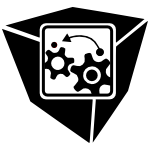 SOFTVIS-2010-HelminenM #named #python #visualisation
SOFTVIS-2010-HelminenM #named #python #visualisation- Jype — a program visualization and programming exercise tool for Python (JH, LM), pp. 153–162.
 SOFTVIS-2010-ParninGR #interactive #maintenance #named
SOFTVIS-2010-ParninGR #interactive #maintenance #named- CodePad: interactive spaces for maintaining concentration in programming environments (CP, CG, SR), pp. 15–24.
 EDOC-2010-AmarLCN #aspect-oriented #imperative #using
EDOC-2010-AmarLCN #aspect-oriented #imperative #using- Using Aspect-Oriented Programming to Trace Imperative Transformations (BA, HL, BC, CN), pp. 143–152.
 ICEIS-DISI-2010-PapatheocharousIA #approach #cost analysis #estimation #modelling #search-based
ICEIS-DISI-2010-PapatheocharousIA #approach #cost analysis #estimation #modelling #search-based- A Genetic Programming Approach to Software Cost Modeling and Estimation (EP, AI, ASA), pp. 281–287.
 ICEIS-HCI-2010-BellstromT #education #on the #visualisation
ICEIS-HCI-2010-BellstromT #education #on the #visualisation- On the Importance of Visualizing in Programming Education (PB, CT), pp. 131–136.
 CIKM-2010-SilvestriV #encoding #integer #named #performance
CIKM-2010-SilvestriV #encoding #integer #named #performance- VSEncoding: efficient coding and fast decoding of integer lists via dynamic programming (FS, RV), pp. 1219–1228.
 ICML-2010-ThiaoTA #approach #problem
ICML-2010-ThiaoTA #approach #problem- A DC Programming Approach for Sparse Eigenvalue Problem (MT, PDT, LTHA), pp. 1063–1070.
 ICPR-2010-AtmosukartoSH #3d #learning #search-based #using
ICPR-2010-AtmosukartoSH #3d #learning #search-based #using- The Use of Genetic Programming for Learning 3D Craniofacial Shape Quantifications (IA, LGS, CH), pp. 2444–2447.
 ICPR-2010-Cevikalp #distance #learning #metric #polynomial
ICPR-2010-Cevikalp #distance #learning #metric #polynomial- Semi-supervised Distance Metric Learning by Quadratic Programming (HC), pp. 3352–3355.
 ICPR-2010-WangLL #3d #linear #using
ICPR-2010-WangLL #3d #linear #using- Monocular 3D Tracking of Deformable Surfaces Using Linear Programming (CW, XL, YL), pp. 1710–1713.
 ICPR-2010-Yanagisawa #integer
ICPR-2010-Yanagisawa #integer- An Offline Map Matching via Integer Programming (HY), pp. 4206–4209.
 KEOD-2010-ZakraouiZ #interactive #set #using #web
KEOD-2010-ZakraouiZ #interactive #set #using #web- Integrating Context Knowledge in user Interaction using Answer Set Programming for Enhancing Web Accessibility (JZ, WLZ), pp. 459–466.
 KR-2010-BalducciniG #formal method #set
KR-2010-BalducciniG #formal method #set- Formalizing Psychological Knowledge in Answer Set Programming (MB, SG).
 KR-2010-EiterFM #set
KR-2010-EiterFM #set- Paracoherent Answer Set Programming (TE, MF, JM).
 KR-2010-GebserGISSTV #biology #consistency #network #nondeterminism #predict #scalability #set
KR-2010-GebserGISSTV #biology #consistency #network #nondeterminism #predict #scalability #set- Repair and Prediction (under Inconsistency) in Large Biological Networks with Answer Set Programming (MG, CG, MI, TS, AS, ST, PV).
 KR-2010-PichlerRSW #bound #constraints
KR-2010-PichlerRSW #bound #constraints- Tractable Answer-Set Programming with Weight Constraints: Bounded Treewidth Is not Enough (RP, SR, SS, SW).
 SEKE-2010-Cooke #challenge #manycore
SEKE-2010-Cooke #challenge #manycore- The multi-core programming challenge (DC), pp. 3–4.
 MoDELS-v1-2010-MadsenM #approach #modelling
MoDELS-v1-2010-MadsenM #approach #modelling- A Unified Approach to Modeling and Programming (OLM, BMP), pp. 1–15.
 SPLC-2010-SchaeferBBDT #product line
SPLC-2010-SchaeferBBDT #product line- Delta-Oriented Programming of Software Product Lines (IS, LB, VB, FD, NT), pp. 77–91.
 SPLC-2010-ZhangJ #approach #feature model #hybrid
SPLC-2010-ZhangJ #approach #feature model #hybrid- A Hybrid Approach to Feature-Oriented Programming in XVCL (HZ, SJ), pp. 440–445.
 ECOOP-2010-Hanenberg #developer #empirical #static typing #type system
ECOOP-2010-Hanenberg #developer #empirical #static typing #type system- Doubts about the Positive Impact of Static Type Systems on Programming Tasks in Single Developer Projects — An Empirical Study (SH), pp. 300–303.
 ECOOP-2010-HarelMW #behaviour #coordination #java
ECOOP-2010-HarelMW #behaviour #coordination #java- Programming Coordinated Behavior in Java (DH, AM, GW), pp. 250–274.
 OOPSLA-2010-ArnoldL #ambiguity
OOPSLA-2010-ArnoldL #ambiguity- Managing ambiguity in programming by finding unambiguous examples (KCA, HL), pp. 877–884.
 OOPSLA-2010-BurckhardtBL #concurrent
OOPSLA-2010-BurckhardtBL #concurrent- Concurrent programming with revisions and isolation types (SB, AB, DL), pp. 691–707.
 OOPSLA-2010-LiZH #named
OOPSLA-2010-LiZH #named- G-Finder: routing programming questions closer to the experts (WL, CZ, SH), pp. 62–73.
 OOPSLA-2010-SorensenG #cyber-physical
OOPSLA-2010-SorensenG #cyber-physical- Programming with time: cyber-physical programming with impromptu (AS, HG), pp. 822–834.
 TOOLS-EUROPE-2010-CarretonMCM #ad hoc #distributed #mobile #network
TOOLS-EUROPE-2010-CarretonMCM #ad hoc #distributed #mobile #network- Loosely-Coupled Distributed Reactive Programming in Mobile Ad Hoc Networks (ALC, SM, TVC, WDM), pp. 41–60.
 AdaEurope-2010-HongHBB #ada #named #type system
AdaEurope-2010-HongHBB #ada #named #type system- AdaStreams: A Type-Based Programming Extension for Stream-Parallelism with Ada 2005 (GH, KH, BB, JB), pp. 208–221.
 AdaEurope-2010-WellingsB #ada #evolution #realtime
AdaEurope-2010-WellingsB #ada #evolution #realtime- The Evolution of Real-Time Programming Revisited: Programming the Giotto Model in Ada 2005 (AJW, AB), pp. 196–207.
 PADL-2010-GrumbachW #distributed #rule-based
PADL-2010-GrumbachW #distributed #rule-based- Netlog, a Rule-Based Language for Distributed Programming (SG, FW), pp. 88–103.
 PADL-2010-HanusK #declarative #framework #web
PADL-2010-HanusK #declarative #framework #web- An ER-Based Framework for Declarative Web Programming (MH, SK), pp. 201–216.
 PADL-2010-LeoneRRT #integration #performance #set
PADL-2010-LeoneRRT #integration #performance #set- Efficient Application of Answer Set Programming for Advanced Data Integration (NL, FR, LAR, GT), pp. 10–24.
 PADL-2010-Perera #first-order #interactive
PADL-2010-Perera #first-order #interactive- First-Order Interactive Programming (RP), pp. 186–200.
 PADL-2010-Pontelli #perspective #set
PADL-2010-Pontelli #perspective #set- Answer Set Programming in 2010: A Personal Perspective (EP), pp. 1–3.
 PEPM-2010-Hofmann #functional #induction #named
PEPM-2010-Hofmann #functional #induction #named- IGOR2 — an analytical inductive functional programming system: tool demo (MH0), pp. 29–32.
 PEPM-2010-RiescoR #nondeterminism
PEPM-2010-RiescoR #nondeterminism- Programming with singular and plural non-deterministic functions (AR, JRH), pp. 83–92.
 PLDI-2010-BaekC #approximate #energy #framework #named #using
PLDI-2010-BaekC #approximate #energy #framework #named #using- Green: a framework for supporting energy-conscious programming using controlled approximation (WB, TMC), pp. 198–209.
 PLDI-2010-RajanRY #collaboration #distributed #named
PLDI-2010-RajanRY #collaboration #distributed #named- GUESSTIMATE: a programming model for collaborative distributed systems (KR, SKR, SY), pp. 210–220.
 PLDI-2010-WestbrookRIYAT #java #multi #named #using
PLDI-2010-WestbrookRIYAT #java #multi #named #using- Mint: Java multi-stage programming using weak separability (EMW, MR, JI, YY, TA, WT), pp. 400–411.
 POPL-2010-BodikCGKTBR #nondeterminism
POPL-2010-BodikCGKTBR #nondeterminism- Programming with angelic nondeterminism (RB, SC, JG, DK, NT, SB, CR), pp. 339–352.
 POPL-2010-GayVRGC #composition #distributed #object-oriented
POPL-2010-GayVRGC #composition #distributed #object-oriented- Modular session types for distributed object-oriented programming (SJG, VTV, AR, NG, AZC), pp. 299–312.
 PPDP-2010-Martinez #concurrent #constraints #linear #semantics
PPDP-2010-Martinez #concurrent #constraints #linear #semantics- Semantics-preserving translations between linear concurrent constraint programming and constraint handling rules (TM), pp. 57–66.
 ASE-2010-HarelMSB #named #towards
ASE-2010-HarelMSB #named #towards- PlayGo: towards a comprehensive tool for scenario based programming (DH, SM, SS, DB), pp. 359–360.
 ASE-2010-LiuZHJM #named #web
ASE-2010-LiuZHJM #named #web- iMashup: assisting end-user programming for the service-oriented web (XL, QZ, GH, ZJ, HM), pp. 285–288.
 ICSE-2010-GligoricGJKKM #generative #testing
ICSE-2010-GligoricGJKKM #generative #testing- Test generation through programming in UDITA (MG, TG, VJ, SK, VK, DM), pp. 225–234.
 ICSE-2010-Goldman #testing
ICSE-2010-Goldman #testing- Test-driven roles for pair programming (MG), pp. 515–516.
 ICSE-2010-SallehMGB #empirical #using
ICSE-2010-SallehMGB #empirical #using- An empirical study of the effects of conscientiousness in pair programming using the five-factor personality model (NS, EM, JCG, GSJB), pp. 577–586.
 SAC-2010-HurnausP #automation #composition #contract #verification
SAC-2010-HurnausP #automation #composition #contract #verification- Programming assistance based on contracts and modular verification in the automation domain (DH, HP), pp. 2544–2551.
 GPCE-J-2007-JarviMS10 #c++ #concept
GPCE-J-2007-JarviMS10 #c++ #concept- Programming with C++ concepts (JJ, MM, JNS), pp. 596–614.
 GPCE-2010-WurthingerBAMM #aspect-oriented #development #evolution #java #user interface
GPCE-2010-WurthingerBAMM #aspect-oriented #development #evolution #java #user interface- Applications of enhanced dynamic code evolution for Java in GUI development and dynamic aspect-oriented programming (TW, WB, DA, PM, HM), pp. 123–126.
 SLE-2010-GonzalezCMCLG #framework #mobile #named #platform
SLE-2010-GonzalezCMCLG #framework #mobile #named #platform- Subjective-C — Bringing Context to Mobile Platform Programming (SG, NC, KM, AC, JCL, JG), pp. 246–265.
 CASE-2010-KumarKST #predict
CASE-2010-KumarKST #predict- A mathematical programming for predicting molecular formulas in accurate mass spectrometry (SK, MK, RS, KT), pp. 246–251.
 CASE-2010-LiuCW
CASE-2010-LiuCW - Aggregated state dynamic programming for operating theater planning (YL, CC, KW), pp. 1013–1018.
 CASE-2010-NetoMPM
CASE-2010-NetoMPM - CAD-based robot programming: The role of Fuzzy-PI force control in unstructured environments (PN, NM, JNP, APM), pp. 362–367.
 CC-2010-Larus
CC-2010-Larus - Programming Clouds (JRL), pp. 1–9.
 DAC-2010-GuthausWR #linear #optimisation
DAC-2010-GuthausWR #linear #optimisation- Non-uniform clock mesh optimization with linear programming buffer insertion (MRG, GW, RR), pp. 74–79.
 DAC-2010-WuDL #approach #integer #parallel
DAC-2010-WuDL #approach #integer #parallel- A parallel integer programming approach to global routing (THW, AD, JTL), pp. 194–199.
 DATE-2010-FerentSGD #approach #embedded #linear #network
DATE-2010-FerentSGD #approach #embedded #linear #network- Linear programming approach for performance-driven data aggregation in networks of embedded sensors (CF, VS, MG, AD), pp. 1456–1461.
 DATE-2010-GaoH #geometry #optimisation #using
DATE-2010-GaoH #geometry #optimisation #using- A power optimization method for CMOS Op-Amps using sub-space based geometric programming (WG, RH), pp. 508–513.
 DATE-2010-LeupersTNKWI
DATE-2010-LeupersTNKWI - Cool MPSoC programming (RL, LT, XN, BK, MW, TI), pp. 1488–1493.
 DATE-2010-MahmoodBMMD #modelling #multi #order
DATE-2010-MahmoodBMMD #modelling #multi #order- Passive reduced order modeling of multiport interconnects via semidefinite programming (ZM, BNB, TM, AM, LD), pp. 622–625.
 PDP-2010-BakerHEW #api #manycore
PDP-2010-BakerHEW #api #manycore- A Light-weight API for Portable Multicore Programming (CGB, MAH, HCE, ABW), pp. 601–606.
 PDP-2010-LeytonP #algorithm #manycore #named
PDP-2010-LeytonP #algorithm #manycore #named- Skandium: Multi-core Programming with Algorithmic Skeletons (ML, JMP), pp. 289–296.
 PPoPP-2010-AgrawalLS #parallel
PPoPP-2010-AgrawalLS #parallel- Helper locks for fork-join parallel programming (KA, CEL, JS), pp. 245–256.
 PPoPP-2010-ChandramowlishwaranKV #algebra #concurrent #linear #parallel
PPoPP-2010-ChandramowlishwaranKV #algebra #concurrent #linear #parallel- Applying the concurrent collections programming model to asynchronous parallel dense linear algebra (AC, KK, RWV), pp. 345–346.
 PPoPP-2010-RossbachHW #question #transaction
PPoPP-2010-RossbachHW #question #transaction- Is transactional programming actually easier? (CJR, OSH, EW), pp. 47–56.
 ESOP-2010-LagoS #functional #sublinear
ESOP-2010-LagoS #functional #sublinear- Functional Programming in Sublinear Space (UDL, US), pp. 205–225.
 STOC-2010-DeyHK #linear
STOC-2010-DeyHK #linear- Optimal homologous cycles, total unimodularity, and linear programming (TKD, ANH, BK), pp. 221–230.
 ICLP-2010-Demeyer10 #concurrent #declarative #program analysis
ICLP-2010-Demeyer10 #concurrent #declarative #program analysis- Program Analysis to Support Concurrent Programming in Declarative Languages (RD), pp. 248–254.
 ICLP-2010-Drescher10 #constraints #set
ICLP-2010-Drescher10 #constraints #set- Constraint Answer Set Programming Systems (CD), pp. 255–264.
 ICLP-2010-Gaggl10 #towards
ICLP-2010-Gaggl10 #towards- Towards a General Argumentation System based on Answer-Set Programming (SAG), pp. 265–269.
 ICLP-2010-P10 #concurrent #constraints #similarity
ICLP-2010-P10 #concurrent #constraints #similarity- Bisimilarity in Concurrent Constraint Programming (AAAP), pp. 236–240.
 ICLP-2010-Parisini10 #branch #constraints #framework
ICLP-2010-Parisini10 #branch #constraints #framework- Local Branching in a Constraint Programming Framework (FP), pp. 286–288.
 ICLP-J-2010-BalducciniG #formal method #set
ICLP-J-2010-BalducciniG #formal method #set- Formalization of psychological knowledge in answer set programming and its application (MB, SG), pp. 725–740.
 IJCAR-2010-PientkaD #deduction #framework #named #reasoning
IJCAR-2010-PientkaD #deduction #framework #named #reasoning- Beluga: A Framework for Programming and Reasoning with Deductive Systems (BP, JD), pp. 15–21.
 VMCAI-2010-BuZL #automaton #hybrid #reachability #using #verification
VMCAI-2010-BuZL #automaton #hybrid #reachability #using #verification- Path-Oriented Reachability Verification of a Class of Nonlinear Hybrid Automata Using Convex Programming (LB, JZ, XL), pp. 78–94.
 ICDAR-2009-BodicLAHLK #detection #graph #integer #linear #using
ICDAR-2009-BodicLAHLK #detection #graph #integer #linear #using- Symbol Detection Using Region Adjacency Graphs and Integer Linear Programming (PLB, HL, SA, PH, YL, AK), pp. 1320–1324.
 ICDAR-2009-RoyPLD #multi #segmentation #using
ICDAR-2009-RoyPLD #multi #segmentation #using- Multi-Oriented and Multi-Sized Touching Character Segmentation Using Dynamic Programming (PPR, UP, JL, MD), pp. 11–15.
 SIGMOD-2009-BrodskyBCEW #abstraction #database #query
SIGMOD-2009-BrodskyBCEW #abstraction #database #query- A decisions query language (DQL): high-level abstraction for mathematical programming over databases (AB, MMB, MC, NEE, XSW), pp. 1059–1062.
 CSEET-2009-BreretonTK #education #empirical #overview #student
CSEET-2009-BreretonTK #education #empirical #overview #student- Pair programming as a teaching tool: a student review of empirical studies (PB, MT, RK), pp. 240–247.
 CSEET-2009-CastilloOFE #approach #developer #education #towards
CSEET-2009-CastilloOFE #approach #developer #education #towards- Toward an Approach to Programming Education to Produce Qualified Software Developers (JFC, CMdO, ESF, PVE), pp. 101–104.
 EDM-2009-ZafraV #learning #multi #predict #search-based #student
EDM-2009-ZafraV #learning #multi #predict #search-based #student- Predicting Student Grades in Learning Management Systems with Multiple Instance Learning Genetic Programming (AZ, SV), pp. 309–318.
 ITiCSE-2009-Al-BarakatiA #performance #student #visualisation
ITiCSE-2009-Al-BarakatiA #performance #student #visualisation- The effect of visualizing roles of variables on student performance in an introductory programming course (NMAB, AYAA), pp. 228–232.
 ITiCSE-2009-Al-BowAEFFLLM #education #game studies #student #using
ITiCSE-2009-Al-BowAEFFLLM #education #game studies #student #using- Using game creation for teaching computer programming to high school students and teachers (MAB, DA, JE, RF, JF, CL, STL, SM), pp. 104–108.
 ITiCSE-2009-Boisvert #process #visualisation
ITiCSE-2009-Boisvert #process #visualisation- A visualisation tool for the programming process (CB), pp. 328–332.
 ITiCSE-2009-FesakisS #education
ITiCSE-2009-FesakisS #education- Influence of the familiarization with “scratch” on future teachers’ opinions and attitudes about programming and ICT in education (GF, KS), pp. 258–262.
 ITiCSE-2009-Hislop
ITiCSE-2009-Hislop - Replacing introductory programming courses with a broader perspective on computing (GWH), p. 390.
 ITiCSE-2009-Kagawa #framework #named #plugin
ITiCSE-2009-Kagawa #framework #named #plugin- WAPPEN: a web-based application framework for programming and its bison/flex plug-in (KK), p. 383.
 ITiCSE-2009-KasurinenN
ITiCSE-2009-KasurinenN - Estimating programming knowledge with Bayesian knowledge tracing (JK, UN), pp. 313–317.
 ITiCSE-2009-Lasserre #adaptation #learning
ITiCSE-2009-Lasserre #adaptation #learning- Adaptation of team-based learning on a first term programming class (PL), pp. 186–190.
 ITiCSE-2009-ListerFT
ITiCSE-2009-ListerFT - Further evidence of a relationship between explaining, tracing and writing skills in introductory programming (RL, CJF, DT), pp. 161–165.
 ITiCSE-2009-PatersonHC #approach #education #modelling #object-oriented #using
ITiCSE-2009-PatersonHC #approach #education #modelling #object-oriented #using- Using coding patterns in a model-driven approach to teaching object oriented programming (JHP, JH, KFC), p. 358.
 ITiCSE-2009-Rosenbloom #contest
ITiCSE-2009-Rosenbloom #contest- Running a programming contest in an introductory computer science course (AR), p. 347.
 ITiCSE-2009-Saeli #education #how
ITiCSE-2009-Saeli #education #how- How to teach programming in secondary education: first results of a PhD project (MS), p. 356.
 ITiCSE-2009-Seidman #3d #game studies #interactive
ITiCSE-2009-Seidman #3d #game studies #interactive- Alice first: 3D interactive game programming (RHS), p. 345.
 ITiCSE-2009-SkupasDR #classification
ITiCSE-2009-SkupasDR #classification- Developing classification criteria for programming tasks (BS, VD, MAR), p. 373.
 ITiCSE-2009-VillalobosCJ #interactive #learning #using
ITiCSE-2009-VillalobosCJ #interactive #learning #using- Developing programming skills by using interactive learning objects (JV, NAC, CJ), pp. 151–155.
 SIGITE-2009-ConnollyM #education #re-engineering
SIGITE-2009-ConnollyM #education #re-engineering- Integrating software engineering in computer programming education (CMC, GM), pp. 50–54.
 ICPC-2009-HouJJ #named #towards
ICPC-2009-HouJJ #named #towards- CnP: Towards an environment for the proactive management of copy-and-paste programming (DH, PJ, FJ), pp. 238–242.
 ICPC-2009-MurphyVS #behaviour #process #using
ICPC-2009-MurphyVS #behaviour #process #using- Using activity traces to characterize programming behaviour beyond the lab (GCM, PV, DCS), pp. 90–94.
 ICPC-2009-ParninR
ICPC-2009-ParninR - Resumption strategies for interrupted programming tasks (CP, SR), pp. 80–89.
 ICSM-2009-MunozBDT #aspect-oriented #empirical
ICSM-2009-MunozBDT #aspect-oriented #empirical- Inquiring the usage of aspect-oriented programming: An empirical study (FM, BB, RD, YLT), pp. 137–146.
 ICSM-2009-VillazonBMA #aspect-oriented #development #flexibility #named
ICSM-2009-VillazonBMA #aspect-oriented #development #flexibility #named- MAJOR: Flexible tool development with aspect-oriented programming (AV, WB, PM, DA), pp. 387–388.
 SEFM-2009-LaneseZ
SEFM-2009-LaneseZ - Programming Sagas in SOCK (IL, GZ), pp. 189–198.
 CEFP-2009-CesariniT #behaviour #design pattern #erlang #process
CEFP-2009-CesariniT #behaviour #design pattern #erlang #process- Erlang Behaviours: Programming with Process Design Patterns (FC, SJT), pp. 19–41.
 CEFP-2009-FluetBFRRSX #functional #parallel
CEFP-2009-FluetBFRRSX #functional #parallel- Programming in Manticore, a Heterogenous Parallel Functional Language (MF, LB, NF, MR, JHR, AS, YX), pp. 94–145.
 Haskell-2009-Elliott #functional
Haskell-2009-Elliott #functional- Push-pull functional reactive programming (CME), pp. 25–36.
 ICFP-2009-BalatVY #case study #experience #framework #web
ICFP-2009-BalatVY #case study #experience #framework #web- Experience report: ocsigen, a web programming framework (VB, JV, BY), pp. 311–316.
 ICFP-2009-FischerKS #functional #lazy evaluation #nondeterminism
ICFP-2009-FischerKS #functional #lazy evaluation #nondeterminism- Purely functional lazy non-deterministic programming (SF, OK, CcS), pp. 11–22.
 ICFP-2009-GazagnaireH #database #functional #named #performance #transaction #using
ICFP-2009-GazagnaireH #database #functional #named #performance #transaction #using- OXenstored: an efficient hierarchical and transactional database using functional programming with reference cell comparisons (TG, VH), pp. 203–214.
 ICFP-2009-SculthorpeN #dependent type #functional
ICFP-2009-SculthorpeN #dependent type #functional- Safe functional reactive programming through dependent types (NS, HN), pp. 23–34.
 ICFP-2009-VieraSS #aspect-oriented #attribute grammar #haskell #how
ICFP-2009-VieraSS #aspect-oriented #attribute grammar #haskell #how- Attribute grammars fly first-class: how to do aspect oriented programming in Haskell (MV, SDS, WS), pp. 245–256.
 ICFP-2009-YakushevHLJ #data type #fixpoint #recursion
ICFP-2009-YakushevHLJ #data type #fixpoint #recursion- Generic programming with fixed points for mutually recursive datatypes (ARY, SH, AL, JJ), pp. 233–244.
 CIG-2009-EbnerT #evolution #search-based #using
CIG-2009-EbnerT #evolution #search-based #using- Evolving driving controllers using Genetic Programming (ME, TT), pp. 279–286.
 FDG-2009-MacLaurin #design #game studies #named
FDG-2009-MacLaurin #design #game studies #named- Kodu: end-user programming and design for games (MM).
 CHI-2009-BrandtGLDK #learning #web
CHI-2009-BrandtGLDK #learning #web- Two studies of opportunistic programming: interleaving web foraging, learning, and writing code (JB, PJG, JL, MD, SRK), pp. 1589–1598.
 CHI-2009-HerkVF #adaptation
CHI-2009-HerkVF #adaptation- ESPranto SDK: an adaptive programming environment for tangible applications (RvH, JV, WF), pp. 849–858.
 DHM-2009-MobusE #approach #modelling #towards
DHM-2009-MobusE #approach #modelling #towards- Further Steps towards Driver Modeling According to the Bayesian Programming Approach (CM, ME), pp. 413–422.
 HCI-NT-2009-Goschnick #analysis #design #interactive
HCI-NT-2009-Goschnick #analysis #design #interactive- People-Oriented Programming: From Agent-Oriented Analysis to the Design of Interactive Systems (SG), pp. 836–845.
 HCI-NT-2009-LucasAW #composition #declarative #development #named #web
HCI-NT-2009-LucasAW #composition #declarative #development #named #web- Collage: A Declarative Programming Model for Compositional Development of Web Applications (BL, RPA, CW), pp. 856–865.
 ICEIS-DISI-2009-KleinschmagerH #aspect-oriented
ICEIS-DISI-2009-KleinschmagerH #aspect-oriented- Is the Application of Aspect-oriented Programming Constructs Beneficial? — First Experimental Results (SK, SH), pp. 196–201.
 ICEIS-SAIC-2009-CastroFSC #learning
ICEIS-SAIC-2009-CastroFSC #learning- Fleshing Out Clues on Group Programming Learning (TC, HF, LS, ANdCJ), pp. 68–73.
 CIKM-2009-WangML #learning #question #rank #search-based #using
CIKM-2009-WangML #learning #question #rank #search-based #using- Learning to rank using evolutionary computation: immune programming or genetic programming? (SW, JM, JL), pp. 1879–1882.
 ICML-2009-NowozinJ #clustering #graph #learning #linear
ICML-2009-NowozinJ #clustering #graph #learning #linear- Solution stability in linear programming relaxations: graph partitioning and unsupervised learning (SN, SJ), pp. 769–776.
 KDD-2009-NijssenGR #approach #constraints #correlation #mining
KDD-2009-NijssenGR #approach #constraints #correlation #mining- Correlated itemset mining in ROC space: a constraint programming approach (SN, TG, LDR), pp. 647–656.
 KDIR-2009-TsakonasD #estimation #modelling #search-based
KDIR-2009-TsakonasD #estimation #modelling #search-based- Deriving Models for Software Project Effort Estimation by Means of Genetic Programming (AT, GD), pp. 34–42.
 ICMT-2009-Pierce #bidirectional
ICMT-2009-Pierce #bidirectional- Foundations for Bidirectional Programming (BCP), pp. 1–3.
 OOPSLA-2009-BergerYLN #c #c++ #named #parallel #thread
OOPSLA-2009-BergerYLN #c #c++ #named #parallel #thread- Grace: safe multithreaded programming for C/C++ (EDB, TY, TL, GN), pp. 81–96.
 OOPSLA-2009-LublinermanCC #parallel
OOPSLA-2009-LublinermanCC #parallel- Parallel programming with object assemblies (RL, SC, PC), pp. 61–80.
 OOPSLA-2009-SongT #program transformation #tool support
OOPSLA-2009-SongT #program transformation #tool support- Enhancing source-level programming tools with an awareness of transparent program transformations (MS, ET), pp. 301–320.
 TOOLS-EUROPE-2009-Vitek #concurrent #modelling #realtime
TOOLS-EUROPE-2009-Vitek #concurrent #modelling #realtime- Programming Models for Concurrency and Real-Time (JV), p. 17.
 AdaEurope-2009-Montoya-DatoAG #ada #experience #online #using
AdaEurope-2009-Montoya-DatoAG #ada #experience #online #using- An Experience on Ada Programming Using On-Line Judging (FJMD, JLFA, GGM), pp. 75–89.
 PADL-2009-HanusK #declarative #user interface
PADL-2009-HanusK #declarative #user interface- Declarative Programming of User Interfaces (MH, CK), pp. 16–30.
 PEPM-2009-Lopez-FraguasRS #flexibility #framework #nondeterminism
PEPM-2009-Lopez-FraguasRS #flexibility #framework #nondeterminism- A flexible framework for programming with non-deterministic functions (FJLF, JRH, JSH), pp. 91–100.
 PLDI-2009-SahaZCGYRFZRM #framework #platform
PLDI-2009-SahaZCGYRFZRM #framework #platform- Programming model for a heterogeneous x86 platform (BS, XZ, HC, YG, SY, MR, JF, PZ, RR, AM), pp. 431–440.
 PPDP-2009-DvorakGPW #paradigm
PPDP-2009-DvorakGPW #paradigm- Alternation as a programming paradigm (WD, GG, RP, SW), pp. 61–72.
 PPDP-2009-Vasconcelos #functional #linear #parallel #thread
PPDP-2009-Vasconcelos #functional #linear #parallel #thread- Session types for linear multithreaded functional programming (VTV), pp. 1–6.
 QAPL-2009-TafliovichH #communication #quantum
QAPL-2009-TafliovichH #communication #quantum- Programming with Quantum Communication (AT, ECRH), pp. 99–118.
 SIGAda-2009-Ochem #ada #multi
SIGAda-2009-Ochem #ada #multi- Multi-language programming with Ada (QO), pp. 19–20.
 RE-2009-SalinesiDDMR #constraints #finite #modelling #product line
RE-2009-SalinesiDDMR #constraints #finite #modelling #product line- Exploiting the Versatility of Constraint Programming over Finite Domains to Integrate Product Line Models (CS, DD, OD, RM, CR), pp. 375–376.
 ASE-2009-DeanPMW #approach #automation #fault #linear #locality #multi
ASE-2009-DeanPMW #approach #automation #fault #linear #locality #multi- A Linear Programming Approach for Automated Localization of Multiple Faults (BCD, WBP, BAM, AAW), pp. 640–644.
 ASE-2009-Majumdar #aspect-oriented #migration #paradigm
ASE-2009-Majumdar #aspect-oriented #migration #paradigm- Migration from Procedural Programming to Aspect Oriented Paradigm (DM), pp. 712–715.
 ICSE-2009-WeimerNGF #automation #search-based #using
ICSE-2009-WeimerNGF #automation #search-based #using- Automatically finding patches using genetic programming (WW, TN, CLG, SF), pp. 364–374.
 SAC-2009-ParkH #embedded #fine-grained #operating system #using
SAC-2009-ParkH #embedded #fine-grained #operating system #using- Building a customizable embedded operating system with fine-grained joinpoints using the AOX programming environment (JP, SH), pp. 1952–1956.
 SAC-2009-Vaidya #linear #privacy
SAC-2009-Vaidya #linear #privacy- Privacy-preserving linear programming (JV), pp. 2002–2007.
 LDTA-2008-LammelTK09 #fault #source code #traversal
LDTA-2008-LammelTK09 #fault #source code #traversal- Programming Errors in Traversal Programs Over Structured Data (RL, SJT, MK), pp. 135–153.
 GPCE-2009-CassouBLC #approach #generative #pervasive
GPCE-2009-CassouBLC #approach #generative #pervasive- A generative programming approach to developing pervasive computing systems (DC, BB, NL, CC), pp. 137–146.
 GPCE-2009-VillazonBAM09a #adaptation #aspect-oriented #java #named #tool support
GPCE-2009-VillazonBAM09a #adaptation #aspect-oriented #java #named #tool support- HotWave: creating adaptive tools with dynamic aspect-oriented programming in Java (AV, WB, DA, PM), pp. 95–98.
 CC-2009-KatsSV #attribute grammar
CC-2009-KatsSV #attribute grammar- Decorated Attribute Grammars: Attribute Evaluation Meets Strategic Programming (LCLK, AMS, EV), pp. 142–157.
 DAC-2009-WuDL #3d #integer #named #scalability #using
DAC-2009-WuDL #3d #integer #named #scalability #using- GRIP: scalable 3D global routing using integer programming (THW, AD, JTL), pp. 320–325.
 DATE-2009-LeupersVBHDN #exclamation
DATE-2009-LeupersVBHDN #exclamation- Programming MPSoC platforms: Road works ahead! (RL, AV, MB, SH, RD, AN), pp. 1584–1589.
 PDP-2009-AndradeFBP #manycore
PDP-2009-AndradeFBP #manycore- Task-Parallel versus Data-Parallel Library-Based Programming in Multicore Systems (DA, BBF, JCB, DAP), pp. 101–110.
 PDP-2009-BadiaPAL #architecture #manycore #memory management #modelling
PDP-2009-BadiaPAL #architecture #manycore #memory management #modelling- Impact of the Memory Hierarchy on Shared Memory Architectures in Multicore Programming Models (RMB, JMP, EA, JL), pp. 437–445.
 PDP-2009-RabenseifnerHJ #clustering #hybrid #manycore #parallel
PDP-2009-RabenseifnerHJ #clustering #hybrid #manycore #parallel- Hybrid MPI/OpenMP Parallel Programming on Clusters of Multi-Core SMP Nodes (RR, GH, GJ), pp. 427–436.
 PPoPP-2009-HaTA #parallel
PPoPP-2009-HaTA #parallel- Preliminary results on nb-feb, a synchronization primitive for parallel programming (PHH, PT, OJA), pp. 295–296.
 PPoPP-2009-SchneiderYRLSN #comparison #memory management #modelling #multi
PPoPP-2009-SchneiderYRLSN #comparison #memory management #modelling #multi- A comparison of programming models for multiprocessors with explicitly managed memory hierarchies (SS, JSY, BR, JCL, AS, DSN), pp. 131–140.
 ESOP-2009-LakinP #functional #higher-order #induction
ESOP-2009-LakinP #functional #higher-order #induction- Resolving Inductive Definitions with Binders in Higher-Order Typed Functional Programming (MRL, AMP), pp. 47–61.
 STOC-2009-KannanN #linear #random
STOC-2009-KannanN #linear #random- Random walks on polytopes and an affine interior point method for linear programming (RK, HN), pp. 561–570.
 ICLP-2009-EiterEEF #set
ICLP-2009-EiterEEF #set- Finding Similar or Diverse Solutions in Answer Set Programming (TE, EE, HE, MF), pp. 342–356.
 ICLP-2009-HildebrandtL #concurrent #constraints #pattern matching
ICLP-2009-HildebrandtL #concurrent #constraints #pattern matching- Types for Secure Pattern Matching with Local Knowledge in Universal Concurrent Constraint Programming (TTH, HAL), pp. 417–431.
 ICLP-2009-Ji #approach #architecture #set
ICLP-2009-Ji #approach #architecture #set- A Cognitive Architecture for a Service Robot: An Answer Set Programming Approach (JJ), pp. 532–533.
 ICLP-2009-PaluDPR #constraints #lazy evaluation #set #using
ICLP-2009-PaluDPR #constraints #lazy evaluation #set #using- Answer Set Programming with Constraints Using Lazy Grounding (ADP, AD, EP, GR), pp. 115–129.
 ICLP-2009-Rosa #detection #distributed
ICLP-2009-Rosa #detection #distributed- Locally Distributed Predicates: A Programming Facility for Distributed State Detection (MD), pp. 557–558.
 ICLP-2009-SchaubT #network #set
ICLP-2009-SchaubT #network #set- Metabolic Network Expansion with Answer Set Programming (TS, ST), pp. 312–326.
 ICLP-2009-Thielscher #game studies #set
ICLP-2009-Thielscher #game studies #set- Answer Set Programming for Single-Player Games in General Game Playing (MT), pp. 327–341.
 ICST-2009-TanNM #automation #black box #library #parallel #testing
ICST-2009-TanNM #automation #black box #library #parallel #testing- Automated Black Box Testing Tool for a Parallel Programming Library (RPT, PN, SM), pp. 307–316.
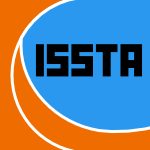 ISSTA-2009-ZhangHGXM #integer #linear #testing #using
ISSTA-2009-ZhangHGXM #integer #linear #testing #using- Time-aware test-case prioritization using integer linear programming (LZ, SSH, CG, TX, HM), pp. 213–224.
 VMCAI-2009-EtessamiG #transaction
VMCAI-2009-EtessamiG #transaction- An Abort-Aware Model of Transactional Programming (KE, PG), pp. 59–73.
 CBSE-2008-ParrendF #classification #component #java #platform
CBSE-2008-ParrendF #classification #component #java #platform- Classification of Component Vulnerabilities in Java Service Oriented Programming (SOP) Platforms (PP, SF), pp. 80–96.
 SIGMOD-2008-MoerkotteN
SIGMOD-2008-MoerkotteN - Dynamic programming strikes back (GM, TN), pp. 539–552.
 CSEET-2008-JohnsgardM #overview #using
CSEET-2008-JohnsgardM #overview #using- Using Alice in Overview Courses to Improve Success Rates in Programming I (KJ, JM), pp. 129–136.
 EDM-2008-LynchAPA #classification #graph #search-based
EDM-2008-LynchAPA #classification #graph #search-based- Argument graph classification with Genetic Programming and C4.5 (CL, KDA, NP, VA), pp. 137–146.
 ITiCSE-2008-BoyerDFVL #collaboration #development #distributed
ITiCSE-2008-BoyerDFVL #collaboration #development #distributed- A development environment for distributed synchronous collaborative programming (KEB, AAD, RTF, MAV, JCL), pp. 158–162.
 ITiCSE-2008-Burrell #learning #object-oriented #process #source code #visualisation
ITiCSE-2008-Burrell #learning #object-oriented #process #source code #visualisation- Learning object oriented programming: unique visualizations of individuals learning styles, activities and the programs produced (CJB), p. 339.
 ITiCSE-2008-EdwardsP #automation #named
ITiCSE-2008-EdwardsP #automation #named- Web-CAT: automatically grading programming assignments (SHE, MAPQ), p. 328.
 ITiCSE-2008-GotelSW #assessment #assurance #education #open source #quality #student
ITiCSE-2008-GotelSW #assessment #assurance #education #open source #quality #student- Teaching software quality assurance by encouraging student contributions to an open source web-based system for the assessment of programming assignments (OG, CS, AW), pp. 214–218.
 ITiCSE-2008-Jackova #learning
ITiCSE-2008-Jackova #learning- Learning for mastery in an introductory programming course (JJ), p. 352.
 ITiCSE-2008-JiWC #contest #detection #experience #source code
ITiCSE-2008-JiWC #contest #detection #experience #source code- An experience of detecting plagiarized source codes in competitive programming contests (JHJ, GW, HGC), p. 369.
 ITiCSE-2008-Kolling #ide #learning #named #object-oriented #visual notation
ITiCSE-2008-Kolling #ide #learning #named #object-oriented #visual notation- Greenfoot: a highly graphical ide for learning object-oriented programming (MK), p. 327.
 ITiCSE-2008-LinhoffS #education #game studies #using
ITiCSE-2008-LinhoffS #education #game studies #using- Teaching game programming using XNA (JL, AS), pp. 250–254.
 ITiCSE-2008-MurphyPK #approach #distance #education #learning
ITiCSE-2008-MurphyPK #approach #distance #education #learning- A distance learning approach to teaching eXtreme programming (CM, DBP, GEK), pp. 199–203.
 ITiCSE-2008-RosslingH #named #online
ITiCSE-2008-RosslingH #named #online- WebTasks: online programming exercises made easy (GR, SH), p. 363.
 ITiCSE-2008-TonderNC #development #lightweight #named
ITiCSE-2008-TonderNC #development #lightweight #named- Jenuity: a lightweight development environment for intermediate level programming courses (MvT, KN, CC), pp. 58–62.
 SIGITE-2008-BoyerLG #education
SIGITE-2008-BoyerLG #education- Self direction & constructivism in programming education (NRB, SL, AG), pp. 89–94.
 SIGITE-2008-Edirisinghe #education #fault #game studies #identification #student #using
SIGITE-2008-Edirisinghe #education #fault #game studies #identification #student #using- Teaching students to identify common programming errors using a game (EMNSE), pp. 95–98.
 SIGITE-2008-MullinsC #student #using
SIGITE-2008-MullinsC #student #using- Engaging students in programming fundamentals using alice 2.0 (PMM, MC), pp. 81–88.
 ICSM-2008-Chan #maintenance
ICSM-2008-Chan #maintenance- Impact of programming and application-specific knowledge on maintenance effort: A hazard rate model (TC), pp. 47–56.
 ICSM-2008-He #generative #refinement #testing
ICSM-2008-He #generative #refinement #testing- Refinement and test case generation in Unifying Theory of Programming (JH), p. 6.
 WCRE-2008-Ebraert #feature model
WCRE-2008-Ebraert #feature model- First-Class Change Objects for Feature-Oriented Programming (PE), pp. 319–322.
 ICALP-A-2008-CicaleseL #evaluation #linear
ICALP-A-2008-CicaleseL #evaluation #linear- Function Evaluation Via Linear Programming in the Priced Information Model (FC, ESL), pp. 173–185.
 ICALP-A-2008-LeeM #theorem
ICALP-A-2008-LeeM #theorem- Product Theorems Via Semidefinite Programming (TL, RM), pp. 674–685.
 SEFM-2008-TruongTHNTH #aspect-oriented #interactive #interface #protocol #using
SEFM-2008-TruongTHNTH #aspect-oriented #interactive #interface #protocol #using- Checking Interface Interaction Protocols Using Aspect-Oriented Programming (AHT, TBT, DVH, VHN, NTTT, PDH), pp. 382–386.
 AFP-2008-JeuringLMY08 #haskell #library
AFP-2008-JeuringLMY08 #haskell #library- Libraries for Generic Programming in Haskell (JJ, SL, JPM, ARY), pp. 165–229.
 AFP-2008-JonesS08 #concurrent #haskell #parallel #tutorial
AFP-2008-JonesS08 #concurrent #haskell #parallel #tutorial- A Tutorial on Parallel and Concurrent Programming in Haskell (SLPJ, SS), pp. 267–305.
 AFP-2008-Norell08
AFP-2008-Norell08 - Dependently Typed Programming in Agda (UN), pp. 230–266.
 FLOPS-2008-Schaub #information management #modelling #reasoning #representation #set
FLOPS-2008-Schaub #information management #modelling #reasoning #representation #set- Model-Based Knowledge Representation and Reasoning Via Answer Set Programming (TS), pp. 1–2.
 Haskell-2008-RodriguezJJGKO #haskell #library
Haskell-2008-RodriguezJJGKO #haskell #library- Comparing libraries for generic programming in haskell (AR, JJ, PJ, AG, OK, BCdSO), pp. 111–122.
 ICFP-2008-DolstraHHHJLLMRS #contest
ICFP-2008-DolstraHHHJLLMRS #contest- Report on the tenth ICFP programming contest (ED, JH, BH, SH, JJ, AL, CL, AM, AR, JvS), pp. 397–408.
 ICFP-2008-Jones08a #functional #morphism #perspective #polymorphism
ICFP-2008-Jones08a #functional #morphism #perspective #polymorphism- Polymorphism and page tables: systems programming from a functional programmer’s perspective (MPJ), pp. 265–266.
 ICFP-2008-MainlandMW #functional #named #network #staged
ICFP-2008-MainlandMW #functional #named #network #staged- Flask: staged functional programming for sensor networks (GM, GM, MW), pp. 335–346.
 IFL-2008-LijnseP #automation #data type #database #relational #using
IFL-2008-LijnseP #automation #data type #database #relational #using- Between Types and Tables — Using Generic Programming for Automated Mapping between Data Types and Relational Databases (BL, RP), pp. 272–290.
 IFL-2008-SvenssonSC #embedded #named #parallel
IFL-2008-SvenssonSC #embedded #named #parallel- Obsidian: A Domain Specific Embedded Language for Parallel Programming of Graphics Processors (JS, MS, KC), pp. 156–173.
 AIIDE-2008-WitzelZK #game studies
AIIDE-2008-WitzelZK #game studies- Explicit Knowledge Programming for Computer Games (AW, JAZ, EK).
 CIG-2008-ChiouW #adaptation #user satisfaction #using
CIG-2008-ChiouW #adaptation #user satisfaction #using- Player Adaptive Entertainment Computing (PAEC): Mechanism to model user satisfaction by using Neuro Linguistic Programming (NLP) techniques (AC, KWW), pp. 343–349.
 GDCSE-2008-BoudreauxER #education #game studies
GDCSE-2008-BoudreauxER #education #game studies- Adding handheld game programming to a computer science curriculum (HB, JE, TR), pp. 16–20.
 GDCSE-2008-SumnerTG #game studies #visual notation
GDCSE-2008-SumnerTG #game studies #visual notation- The ETH game programming laboratory: a capstone for computer science and visual computing (RWS, NT, MHG), pp. 46–50.
 GDCSE-2008-SungRPA
GDCSE-2008-SungRPA - Assessing game-themed programming assignments for CS1/2 courses (KS, RR, MP, RA), pp. 51–55.
 GT-VMT-2006-MinasH08 #graph transformation
GT-VMT-2006-MinasH08 #graph transformation- An Example of Cloning Graph Transformation Rules for Programming (MM, BH), pp. 241–250.
 GT-VMT-2008-ManningP
GT-VMT-2008-ManningP - The GP Programming System (GM, DP).
 ICEIS-HCI-2008-StoitsevSFM08a #modelling #process
ICEIS-HCI-2008-StoitsevSFM08a #modelling #process- Enabling end Users to Proactively Tailor Underspecified, Human-Centric Business Processes — “Programming by Example” of Weakly-Structured Process Models (TS, SS, FF, MM), pp. 38–46.
 ICEIS-ISAS2-2008-FernandesAS #performance #release planning
ICEIS-ISAS2-2008-FernandesAS #performance #release planning- An Extreme Programming Release Plan that Maximizes Business Performance (MCF, AJA, EAS), pp. 12–22.
 ICEIS-J-2008-StoitsevSFM08b #modelling #process
ICEIS-J-2008-StoitsevSFM08b #modelling #process- Enabling End Users to Proactively Tailor Underspecified, Human-Centric Business Processes: “Programming by Example” of Weakly-Structured Process Models (TS, SS, FF, MM), pp. 307–320.
 ICML-2008-KolterCNGD #learning
ICML-2008-KolterCNGD #learning- Space-indexed dynamic programming: learning to follow trajectories (JZK, AC, AYN, YG, CD), pp. 488–495.
 ICML-2008-LiLT #classification #constraints
ICML-2008-LiLT #classification #constraints- Pairwise constraint propagation by semidefinite programming for semi-supervised classification (ZL, JL, XT), pp. 576–583.
 ICML-2008-SyedBS #learning #linear #using
ICML-2008-SyedBS #learning #linear #using- Apprenticeship learning using linear programming (US, MHB, RES), pp. 1032–1039.
 ICPR-2008-KadarBS #bound #detection #evolution #image #search-based
ICPR-2008-KadarBS #bound #detection #evolution #image #search-based- Evolving boundary detectors for natural images via Genetic Programming (IK, OBS, MS), pp. 1–4.
 ICPR-2008-Kopylov #image
ICPR-2008-Kopylov #image- Tree-serial dynamic programming for image processing (AK), pp. 1–4.
 ICPR-2008-PerezO #invariant #learning #search-based
ICPR-2008-PerezO #invariant #learning #search-based- Learning invariant region descriptor operators with genetic programming and the F-measure (CBP, GO), pp. 1–4.
 ICPR-2008-RiveraCT #image #polynomial #segmentation
ICPR-2008-RiveraCT #image #polynomial #segmentation- Image segmentation by convex quadratic programming (MR, ODC, JT), pp. 1–5.
 ICPR-2008-ShenZL #detection #higher-order #using
ICPR-2008-ShenZL #detection #higher-order #using- Deformable surface stereo tracking-by-detection using Second Order Cone Programming (SS, YZ, YL), pp. 1–4.
 ICPR-2008-TortorellaPM #approach
ICPR-2008-TortorellaPM #approach- A Dynamic Programming approach for segmenting digital planar curves into line segments and circular arcs (FT, RP, MM), pp. 1–4.
 KDD-2008-RaedtGN #constraints #mining
KDD-2008-RaedtGN #constraints #mining- Constraint programming for itemset mining (LDR, TG, SN), pp. 204–212.
 KR-2008-LinW #set
KR-2008-LinW #set- Answer Set Programming with Functions (FL, YW), pp. 454–465.
 SEKE-2008-ZhouZ #distributed #virtual machine
SEKE-2008-ZhouZ #distributed #virtual machine- A Virtual Machine for Distributed Agent-oriented Programming (BZ, HZ), pp. 729–734.
 ECOOP-2008-HuangHBR #bound #hardware #object-oriented
ECOOP-2008-HuangHBR #bound #hardware #object-oriented- Liquid Metal: Object-Oriented Programming Across the Hardware/Software Boundary (SSH, AH, DFB, RMR), pp. 76–103.
 ECOOP-2008-HuYH #distributed #java
ECOOP-2008-HuYH #distributed #java- Session-Based Distributed Programming in Java (RH, NY, KH), pp. 516–541.
 ECOOP-2008-OstrowskiBDA #distributed
ECOOP-2008-OstrowskiBDA #distributed- Programming with Live Distributed Objects (KO, KB, DD, JHA), pp. 463–489.
 LOPSTR-2008-Kitzelmann #functional #induction
LOPSTR-2008-Kitzelmann #functional #induction- Analytical Inductive Functional Programming (EK), pp. 87–102.
 PADL-2008-BrasselHM #database
PADL-2008-BrasselHM #database- High-Level Database Programming in Curry (BB, MH, MM), pp. 316–332.
 PADL-2008-FernandezFFGM #developer #ml #tool support
PADL-2008-FernandezFFGM #developer #ml #tool support- A Generic Programming Toolkit for PADS/ML: First-Class Upgrades for Third-Party Developers (MFF, KF, JNF, MG, YM), pp. 133–149.
 PADL-2008-Launchbury #functional #industrial
PADL-2008-Launchbury #functional #industrial- Industrial Functional Programming (JL), p. 1.
 PADL-2008-MouraCN #multi #thread
PADL-2008-MouraCN #multi #thread- High-Level Multi-threading Programming in Logtalk (PM, PC, PN), pp. 265–281.
 PLDI-2008-Terauchi #linear
PLDI-2008-Terauchi #linear- Checking race freedom via linear programming (TT), pp. 1–10.
 POPL-2008-JohannG #data type
POPL-2008-JohannG #data type- Foundations for structured programming with GADTs (PJ, NG), pp. 297–308.
 POPL-2008-NeamtiuHFP #concurrent
POPL-2008-NeamtiuHFP #concurrent- Contextual effects for version-consistent dynamic software updating and safe concurrent programming (IN, MH, JSF, PP), pp. 37–49.
 POPL-2008-Pientka #higher-order #syntax
POPL-2008-Pientka #higher-order #syntax- A type-theoretic foundation for programming with higher-order abstract syntax and first-class substitutions (BP), pp. 371–382.
 PPDP-2008-BenzakenCCM #query #visual notation #xml
PPDP-2008-BenzakenCCM #query #visual notation #xml- Pattern by example: type-driven visual programming of XML queries (VB, GC, DC, CM), pp. 131–142.
 PPDP-2008-ChenouardGS #constraints #modelling
PPDP-2008-ChenouardGS #constraints #modelling- Model-driven constraint programming (RC, LG, RS), pp. 236–246.
 PPDP-2008-Leuschel #declarative #verification
PPDP-2008-Leuschel #declarative #verification- Declarative programming for verification: lessons and outlook (ML), pp. 1–7.
 PPDP-2008-PientkaD #proving
PPDP-2008-PientkaD #proving- Programming with proofs and explicit contexts (BP, JD), pp. 163–173.
 QAPL-2008-Bortolussi #approximate #concurrent #constraints #equation #on the #probability
QAPL-2008-Bortolussi #approximate #concurrent #constraints #equation #on the #probability- On the Approximation of Stochastic Concurrent Constraint Programming by Master Equation (LB), pp. 163–180.
 ASE-2008-HegdeD #ad hoc #collaboration
ASE-2008-HegdeD #ad hoc #collaboration- Connecting Programming Environments to Support Ad-Hoc Collaboration (RH, PD), pp. 178–187.
 ASE-2008-IspirC #aspect-oriented #verification
ASE-2008-IspirC #aspect-oriented #verification- An Assume Guarantee Verification Methodology for Aspect-Oriented Programming (MI, ABC), pp. 391–394.
 ASE-2008-RuengmeeFBRL #aspect-oriented #editing #usability
ASE-2008-RuengmeeFBRL #aspect-oriented #editing #usability- XE (eXtreme Editor) — Bridging the Aspect-Oriented Programming Usability Gap (WR, RSSF, SKB, DFR, CVL), pp. 435–438.
 FSE-2008-BoddenLH #fault #monitoring #runtime
FSE-2008-BoddenLH #fault #monitoring #runtime- Finding programming errors earlier by evaluating runtime monitors ahead-of-time (EB, PL, LJH), pp. 36–47.
 ICSE-2008-CabotDMVR #distributed #experience #modelling #re-engineering
ICSE-2008-CabotDMVR #distributed #experience #modelling #re-engineering- From programming to modeling: our experience with a distributed software engineering course (JC, FD, NM, AV, JRR), pp. 749–758.
 ICSE-2008-DenzlerG #design pattern
ICSE-2008-DenzlerG #design pattern- Design patterns: between programming and software design (CD, DG), pp. 801–804.
 ICSE-2008-LanzaMRLB #approach #java #smalltalk
ICSE-2008-LanzaMRLB #approach #java #smalltalk- A teamwork-based approach to programming fundamentals with scheme, smalltalk & java (ML, ALM, RR, ML, PB), pp. 787–790.
 ICSE-2008-StapelLK #design
ICSE-2008-StapelLK #design- Best practices in extreme programming course design (KS, DL, EK), pp. 769–776.
 SAC-2008-CarvalhoLGS #identification #search-based #using
SAC-2008-CarvalhoLGS #identification #search-based #using- Replica identification using genetic programming (MGdC, AHFL, MAG, ASdS), pp. 1801–1806.
 SAC-2008-LuizPBR #approach #mobile #search-based #using
SAC-2008-LuizPBR #approach #mobile #search-based #using- A new approach to control a population of mobile robots using genetic programming (AL, FP, GB, MR), pp. 1602–1606.
 SAC-2008-MusicantePC #web #web service
SAC-2008-MusicantePC #web #web service- A programming environment for web services (MAM, EP, MAC), pp. 2363–2367.
 SAC-2008-PothierT #aspect-oriented #debugging
SAC-2008-PothierT #aspect-oriented #debugging- Extending omniscient debugging to support aspect-oriented programming (GP, ÉT), pp. 266–270.
 SAC-2008-YuV #rule-based #visualisation
SAC-2008-YuV #rule-based #visualisation- Visualization of rule-based programming (WY, RMV), pp. 1258–1259.
 GPCE-2008-ApelKL #calculus #feature model #java #refinement
GPCE-2008-ApelKL #calculus #feature model #java #refinement- Feature featherweight java: a calculus for feature-oriented programming and stepwise refinement (SA, CK, CL), pp. 101–112.
 GPCE-2008-Meijer #functional
GPCE-2008-Meijer #functional- Fundamentalist functional programming (EM), pp. 99–100.
 ASPLOS-2008-CoxBCKK #compilation
ASPLOS-2008-CoxBCKK #compilation- Xoc, an extension-oriented compiler for systems programming (RC, TB, ATC, MFK, EK), pp. 244–254.
 ASPLOS-2008-GummarajuCTR #manycore #named #using
ASPLOS-2008-GummarajuCTR #manycore #named #using- Streamware: programming general-purpose multicore processors using streams (JG, JC, YT, MR), pp. 297–307.
 ASPLOS-2008-LindermanCWM #manycore #named
ASPLOS-2008-LindermanCWM #manycore #named- Merge: a programming model for heterogeneous multi-core systems (MDL, JDC, HW, THYM), pp. 287–296.
 ASPLOS-2008-Winfree #towards
ASPLOS-2008-Winfree #towards- Toward molecular programming with DNA (EW), p. 1.
 CASE-2008-LjungkrantzAF #component #industrial #logic #specification #verification
CASE-2008-LjungkrantzAF #component #industrial #logic #specification #verification- Formal specification and verification of components for industrial logic control programming (OL, KÅ, MF), pp. 935–940.
 DAC-2008-MattsonW #parallel #question
DAC-2008-MattsonW #parallel #question- Parallel programming: can we PLEASE get it right this time? (TM, MW), pp. 7–11.
 DATE-2008-EdwardsVT #compilation #concurrent #memory management #message passing #multi #thread
DATE-2008-EdwardsVT #compilation #concurrent #memory management #message passing #multi #thread- Programming Shared Memory Multiprocessors with Deterministic Message-Passing Concurrency: Compiling SHIM to Pthreads (SAE, NV, OT), pp. 1498–1503.
 DATE-2008-Parandeh-AfsharBI #integer #linear #synthesis
DATE-2008-Parandeh-AfsharBI #integer #linear #synthesis- Improving Synthesis of Compressor Trees on FPGAs via Integer Linear Programming (HPA, PB, PI), pp. 1256–1261.
 ISMM-2008-Trancon-y-Widemann #functional #garbage collection
ISMM-2008-Trancon-y-Widemann #functional #garbage collection- A reference-counting garbage collection algorithmfor cyclical functional programming (BTyW), pp. 71–80.
 LCTES-2008-AuerbachBGSV #concurrent #flexibility #graph #java #strict #thread
LCTES-2008-AuerbachBGSV #concurrent #flexibility #graph #java #strict #thread- Flexible task graphs: a unified restricted thread programming model for java (JSA, DFB, RG, JHS, JV), pp. 1–11.
 PDP-2008-RolfK #constraints #parallel
PDP-2008-RolfK #constraints #parallel- State-copying and Recomputation in Parallel Constraint Programming with Global Constraints (CCR, KK), pp. 311–317.
 PPoPP-2008-GuoBFGP
PPoPP-2008-GuoBFGP - Programming with tiles (JG, GB, BBF, MJG, DAP), pp. 111–122.
 ESOP-2008-Coquand #functional
ESOP-2008-Coquand #functional- Constructive Mathematics and Functional Programming (TC), pp. 146–147.
 ESOP-2008-MandelM
ESOP-2008-MandelM - Programming in JoCaml (LM, LM), pp. 108–111.
 ESOP-2008-PoswolskyS #dependent type #encoding #higher-order
ESOP-2008-PoswolskyS #dependent type #encoding #higher-order- Practical Programming with Higher-Order Encodings and Dependent Types (AP, CS), pp. 93–107.
 ESOP-2008-TerauchiM #bound #linear
ESOP-2008-TerauchiM #bound #linear- Inferring Channel Buffer Bounds Via Linear Programming (TT, AM), pp. 284–298.
 FASE-2008-AtirHKM #composition
FASE-2008-AtirHKM #composition- Object Composition in Scenario-Based Programming (YA, DH, AK, SM), pp. 301–316.
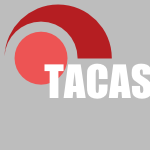 TACAS-2008-KatzP #model checking #search-based
TACAS-2008-KatzP #model checking #search-based- Model Checking-Based Genetic Programming with an Application to Mutual Exclusion (GK, DP), pp. 141–156.
 ICLP-2008-ArandaPRV #behaviour #concurrent #constraints #probability
ICLP-2008-ArandaPRV #behaviour #concurrent #constraints #probability- Stochastic Behavior and Explicit Discrete Time in Concurrent Constraint Programming (JA, JAP, CR, FDV), pp. 682–686.
 ICLP-2008-Baral #information management #reasoning #representation #set #using
ICLP-2008-Baral #information management #reasoning #representation #set #using- Using Answer Set Programming for Knowledge Representation and Reasoning: Future Directions (CB), pp. 69–70.
 ICLP-2008-BeniniBM #constraints #multi #platform #policy #resource management #using
ICLP-2008-BeniniBM #constraints #multi #platform #policy #resource management #using- Resource Management Policy Handling Multiple Use-Cases in MPSoC Platforms Using Constraint Programming (LB, DB, MM), pp. 470–484.
 ICLP-2008-BoennBVF #automation #composition #music #set
ICLP-2008-BoennBVF #automation #composition #music #set- Automatic Composition of Melodic and Harmonic Music by Answer Set Programming (GB, MB, MDV, Jf), pp. 160–174.
 ICLP-2008-Cabalar #set #similarity
ICLP-2008-Cabalar #set #similarity- Partial Functions and Equality in Answer Set Programming (PC), pp. 392–406.
 ICLP-2008-Cipriano #constraints #modelling #on the #tool support
ICLP-2008-Cipriano #constraints #modelling #on the #tool support- On the Hybridization of Constraint Programming and Local Search Techniques: Models and Software Tools (RC), pp. 803–804.
 ICLP-2008-CliffeVBP #animation #declarative #named #set #using #visualisation
ICLP-2008-CliffeVBP #animation #declarative #named #set #using #visualisation- ASPVIZ: Declarative Visualisation and Animation Using Answer Set Programming (OC, MDV, MB, JAP), pp. 724–728.
 ICLP-2008-EglyGW #framework #implementation #named #using
ICLP-2008-EglyGW #framework #implementation #named #using- ASPARTIX: Implementing Argumentation Frameworks Using Answer-Set Programming (UE, SAG, SW), pp. 734–738.
 ICLP-2008-Fink #logic
ICLP-2008-Fink #logic- Equivalences in Answer-Set Programming by Countermodels in the Logic of Here-and-There (MF), pp. 99–113.
 ICLP-2008-GebserSTUV #biology #consistency #detection #network #nondeterminism #scalability #set
ICLP-2008-GebserSTUV #biology #consistency #detection #network #nondeterminism #scalability #set- Detecting Inconsistencies in Large Biological Networks with Answer Set Programming (MG, TS, ST, BU, PV), pp. 130–144.
 ICLP-2008-Marek #question #set
ICLP-2008-Marek #question #set- Quo Vadis Answer Set Programming? (VWM), pp. 83–87.
 ICLP-2008-Niemela #set
ICLP-2008-Niemela #set- Answer Set Programming without Unstratified Negation (IN), pp. 88–92.
 ICLP-2008-PerezR #concurrent #constraints #nondeterminism
ICLP-2008-PerezR #concurrent #constraints #nondeterminism- Non-determinism and Probabilities in Timed Concurrent Constraint Programming (JAP, CR), pp. 677–681.
 ICLP-2008-Saurin #interactive #proving #towards
ICLP-2008-Saurin #interactive #proving #towards- Towards Ludics Programming: Interactive Proof Search (AS), pp. 253–268.
 ICLP-2008-Schaub #exclamation #set
ICLP-2008-Schaub #exclamation #set- Here’s the Beef: Answer Set Programming ! (TS), pp. 93–98.
 CBSE-2007-FornasierWG #component #composition #named #runtime #using
CBSE-2007-FornasierWG #component #composition #named #runtime #using- Soya: A Programming Model and Runtime Environment for Component Composition Using SSDL (PF, JW, IG), pp. 227–241.
 ICDAR-2007-FujimotoSTSN #documentation #image #parallel #using
ICDAR-2007-FujimotoSTSN #documentation #image #parallel #using- Curved paper rectification for digital camera document images by shape from parallel geodesics using continuous dynamic programming (KF, JS, HT, MS, SN), pp. 267–271.
 ICDAR-2007-GaoWHD #documentation #image #integer #linear #using
ICDAR-2007-GaoWHD #documentation #image #integer #linear #using- Decompose Document Image Using Integer Linear Programming (DG, YW, HH, MD), pp. 397–401.
 ICDAR-2007-LiwickiIB #detection #online #using
ICDAR-2007-LiwickiIB #detection #online #using- On-Line Handwritten Text Line Detection Using Dynamic Programming (ML, EI, HB), pp. 447–451.
 SIGMOD-2007-CastroMA #abstraction #framework
SIGMOD-2007-CastroMA #abstraction #framework- ADO.NET entity framework: raising the level of abstraction in data programming (PC, SM, AA), pp. 1070–1072.
 VLDB-2007-TatikondaPG #named #query #xml
VLDB-2007-TatikondaPG #named #query #xml- LCS-TRIM: Dynamic Programming Meets XML Indexing and Querying (ST, SP, MG), pp. 63–74.
 CSEET-2007-CarverHHHR #re-engineering #student #using
CSEET-2007-CarverHHHR #re-engineering #student #using- Increased Retention of Early Computer Science and Software Engineering Students Using Pair Programming (JCC, LH, LH, JEH, DSR), pp. 115–122.
 CSEET-2007-DistanteH #challenge #education #lessons learnt #re-engineering #student
CSEET-2007-DistanteH #challenge #education #lessons learnt #re-engineering #student- Challenges and Lessons Learned in Teaching Software Engineering and Programming to Hearing-Impaired Students (DD, SH), pp. 344–354.
 CSEET-2007-TakemuraNHM #analysis #education #motivation
CSEET-2007-TakemuraNHM #analysis #education #motivation- Analysis of the Relation between the Teaching Materials and Motivation in Programming Education (YT, HN, KLH, KiM), pp. 317–326.
 ITiCSE-2007-AlstesL #learning #named #network #online
ITiCSE-2007-AlstesL #learning #named #network #online- VERKKOKE: learning routing and network programming online (AA, JL), pp. 91–95.
 ITiCSE-2007-BagleyC #collaboration #java #learning
ITiCSE-2007-BagleyC #collaboration #java #learning- Collaboration and the importance for novices in learning java computer programming (CAB, CCC), pp. 211–215.
 ITiCSE-2007-CaspersenLB #modelling
ITiCSE-2007-CaspersenLB #modelling- Mental models and programming aptitude (MEC, KDL, JB), pp. 206–210.
 ITiCSE-2007-GoldwasserL #network
ITiCSE-2007-GoldwasserL #network- Introducing network programming into a CS1 course (MHG, DL), pp. 19–22.
 ITiCSE-2007-GoldwasserL07a #education #object-oriented #python
ITiCSE-2007-GoldwasserL07a #education #object-oriented #python- Teaching object-oriented programming in python (MHG, DL), pp. 365–366.
 ITiCSE-2007-Govender #assessment #comprehension #performance #student
ITiCSE-2007-Govender #assessment #comprehension #performance #student- Understanding students’ performance in programming assessment questions (IG), p. 326.
 ITiCSE-2007-Helmick #automation #interface #java #source code
ITiCSE-2007-Helmick #automation #interface #java #source code- Interface-based programming assignments and automatic grading of java programs (MTH), pp. 63–67.
 ITiCSE-2007-MillerS #agile #approach #embedded #student
ITiCSE-2007-MillerS #agile #approach #embedded #student- A TDD approach to introducing students to embedded programming (JM, MRS), pp. 33–37.
 SIGITE-2007-BillsC #education
SIGITE-2007-BillsC #education- Sharing introductory programming curriculum across disciplines (DPB, RLC), pp. 99–106.
 SIGITE-2007-GasparL
SIGITE-2007-GasparL - Restoring “coding with intention” in introductory programming courses (AG, SL), pp. 91–98.
 ICSM-2007-Ceccato #aspect-oriented #migration #object-oriented
ICSM-2007-Ceccato #aspect-oriented #migration #object-oriented- Migrating Object Oriented code to Aspect Oriented Programming (MC), pp. 497–498.
 PASTE-2007-ChinMMM #validation
PASTE-2007-ChinMMM #validation- Enforcing and validating user-defined programming disciplines (BC, DM, SM, TDM), pp. 85–86.
 CEFP-2007-Pop #functional #object-oriented #tutorial
CEFP-2007-Pop #functional #object-oriented #tutorial- A Tutorial on Object-Oriented Functional Programming (HFP), pp. 228–249.
 CEFP-2007-SheardL
CEFP-2007-SheardL - Programming in Ωmega (TS, NL), pp. 158–227.
 ICFP-2007-BeshersFS #case study #experience #functional #linux #using
ICFP-2007-BeshersFS #case study #experience #functional #linux #using- Experience report: using functional programming to manage a linux distribution (CB, DF, JS), pp. 213–218.
 ICFP-2007-Elliott #functional
ICFP-2007-Elliott #functional- Tangible functional programming (CE), pp. 59–70.
 ICFP-2007-EnnalsG #functional #web
ICFP-2007-EnnalsG #functional #web- User-friendly functional programming for web mashups (RE, DG), pp. 223–234.
 ICFP-2007-FlattYFF #composition
ICFP-2007-FlattYFF #composition- Adding delimited and composable control to a production programming environment (MF, GY, RBF, MF), pp. 165–176.
 ICFP-2007-Lloyd #declarative
ICFP-2007-Lloyd #declarative- Declarative programming for artificial intelligence applications (JWL), pp. 123–124.
 ICFP-2007-Wazny #case study #experience #functional
ICFP-2007-Wazny #case study #experience #functional- Experience report: functional programming in c-rules (JW), pp. 25–28.
 IFL-2007-WidemannP #functional
IFL-2007-WidemannP #functional- Tabular Expressions and Total Functional Programming (BTyW, DLP), pp. 219–236.
 ILC-2007-Leitao #library
ILC-2007-Leitao #library- The next 700 programming libraries (AML), p. 21.
 CIG-2007-WittkampBW #comparison #game studies #learning #search-based
CIG-2007-WittkampBW #comparison #game studies #learning #search-based- A Comparison of Genetic Programming and Look-up Table Learning for the Game of Spoof (MW, LB, RLW), pp. 63–71.
 GT-VMT-2007-MackiePV #interactive #recursion #visual notation
GT-VMT-2007-MackiePV #interactive #recursion #visual notation- Visual Programming with Recursion Patterns in Interaction Nets (IM, JSP, MV).
 CHI-2007-KelleherPK #motivation #women
CHI-2007-KelleherPK #motivation #women- Storytelling alice motivates middle school girls to learn computer programming (CK, RFP, SBK), pp. 1455–1464.
 CHI-2007-WongH #towards #web
CHI-2007-WongH #towards #web- Making mashups with marmite: towards end-user programming for the web (JW, JIH), pp. 1435–1444.
 HCI-IDU-2007-LimLK #development #visual notation #web
HCI-IDU-2007-LimLK #development #visual notation #web- Application of Visual Programming to Web Mash Up Development (SCL, SL, JK), pp. 1139–1148.
 HCI-IDU-2007-TarbyERTLK #architecture #aspect-oriented #comparison #evaluation #interactive #usability #using
HCI-IDU-2007-TarbyERTLK #architecture #aspect-oriented #comparison #evaluation #interactive #usability #using- Traces Using Aspect Oriented Programming and Interactive Agent-Based Architecture for Early Usability Evaluation: Basic Principles and Comparison (JCT, HE, JR, CDT, PL, CK), pp. 632–641.
 HCI-IDU-2007-TinglingS #case study
HCI-IDU-2007-TinglingS #case study- Extreme Programming in Action: A Longitudinal Case Study (PT, AS), pp. 242–251.
 HIMI-MTT-2007-KhowajaG #interactive #visual notation
HIMI-MTT-2007-KhowajaG #interactive #visual notation- Visual Agent Programming (VAP): An Interactive System to Program Animated Agents (KK, SG), pp. 650–658.
 OCSC-2007-ChoY #how
OCSC-2007-ChoY #how- How to See the Beauty That Is Not There : The Aesthetic Element of Programming in the Computer- Based Media Art (HC, JY), pp. 292–300.
 ICML-2007-SriperumbudurTL
ICML-2007-SriperumbudurTL - Sparse eigen methods by D.C. programming (BKS, DAT, GRGL), pp. 831–838.
 ICML-2007-YeCJ #kernel #learning #parametricity
ICML-2007-YeCJ #kernel #learning #parametricity- Discriminant kernel and regularization parameter learning via semidefinite programming (JY, JC, SJ), pp. 1095–1102.
 KDD-2007-YeJC #analysis #kernel #learning #matrix #polynomial
KDD-2007-YeJC #analysis #kernel #learning #matrix #polynomial- Learning the kernel matrix in discriminant analysis via quadratically constrained quadratic programming (JY, SJ, JC), pp. 854–863.
 SIGIR-2007-AlmeidaGCC #adaptation #approach #component #ranking #search-based
SIGIR-2007-AlmeidaGCC #adaptation #approach #component #ranking #search-based- A combined component approach for finding collection-adapted ranking functions based on genetic programming (HMdA, MAG, MC, PC), pp. 399–406.
 ECOOP-2007-HauptS #aspect-oriented
ECOOP-2007-HauptS #aspect-oriented- A Machine Model for Aspect-Oriented Programming (MH, HS), pp. 501–524.
 OOPSLA-2007-KuhneS #multi
OOPSLA-2007-KuhneS #multi- Can programming be liberated from the two-level style: multi-level programming with deepjava (TK, DS), pp. 229–244.
 OOPSLA-2007-SpringPGV #java #named
OOPSLA-2007-SpringPGV #java #named- Streamflex: high-throughput stream programming in java (JHS, JP, RG, JV), pp. 211–228.
 PADL-2007-BarahonaK #approach #constraints #problem
PADL-2007-BarahonaK #approach #constraints #problem- A Constraint Programming Approach to Bioinformatics Structural Problems (PB, LK), pp. 33–49.
 PADL-2007-GustafssonS #erlang #evaluation #implementation #performance
PADL-2007-GustafssonS #erlang #evaluation #implementation #performance- Applications, Implementation and Performance Evaluation of Bit Stream Programming in Erlang (PG, KFS), pp. 94–108.
 PADL-2007-Liang #aspect-oriented #higher-order #linear #logic
PADL-2007-Liang #aspect-oriented #higher-order #linear #logic- Aspect-Oriented Programming in Higher-Order and Linear Logic (CCL), pp. 305–319.
 PEPM-2007-FischerMM #named
PEPM-2007-FischerMM #named- Tasks: language support for event-driven programming (JF, RM, TDM), pp. 134–143.
 PLDI-2007-KothariGMG #abstraction #network #performance #reliability
PLDI-2007-KothariGMG #abstraction #network #performance #reliability- Reliable and efficient programming abstractions for wireless sensor networks (NK, RG, TDM, RG), pp. 200–210.
 PLDI-2007-WangCCJTGYLW #architecture #manycore #named #parallel #thread
PLDI-2007-WangCCJTGYLW #architecture #manycore #named #parallel #thread- EXOCHI: architecture and programming environment for a heterogeneous multi-core multithreaded system (PHW, JDC, GNC, HJ, XT, MG, NYY, GYL, HW), pp. 156–166.
 PPDP-2007-Hanus #declarative #javascript #web
PPDP-2007-Hanus #declarative #javascript #web- Putting declarative programming into the web: translating curry to javascript (MH), pp. 155–166.
 QAPL-2007-BortolussiP #concurrent #constraints #difference #equation #probability
QAPL-2007-BortolussiP #concurrent #constraints #difference #equation #probability- Stochastic Concurrent Constraint Programming and Differential Equations (LB, AP), pp. 27–42.
 SAC-OOPS-J-2006-IgarashiN07 #object-oriented
SAC-OOPS-J-2006-IgarashiN07 #object-oriented- Union Types for Object-Oriented Programming (AI, HN), pp. 47–68.
 SAC-OOPS-J-2006-Steimann07 #interface #refactoring
SAC-OOPS-J-2006-Steimann07 #interface #refactoring- The Infer Type Refactoring and its Use for Interface-Based Programming (FS), pp. 99–120.
 ASE-2007-CabotCR #constraints #modelling #named #ocl #uml #using #verification
ASE-2007-CabotCR #constraints #modelling #named #ocl #uml #using #verification- UMLtoCSP: a tool for the formal verification of UML/OCL models using constraint programming (JC, RC, DR), pp. 547–548.
 ASE-2007-LittleM #java #keyword
ASE-2007-LittleM #java #keyword- Keyword programming in java (GL, RCM), pp. 84–93.
 ASE-2007-WeaverKFA #composition
ASE-2007-WeaverKFA #composition- Modular and generic programming with interpreterlib (PW, GK, NF, PA), pp. 473–476.
 ESEC-FSE-2007-ChandrasekaranCJR
ESEC-FSE-2007-ChandrasekaranCJR - Programming asynchronous layers with CLARITY (PC, CLC, JMJ, SKR), pp. 65–74.
 GTTSE-2007-HirschfeldCH
GTTSE-2007-HirschfeldCH - An Introduction to Context-Oriented Programming with ContextS (RH, PC, MH), pp. 396–407.
 GTTSE-2007-Taha #multi
GTTSE-2007-Taha #multi- A Gentle Introduction to Multi-stage Programming, Part II (WT), pp. 260–290.
 ICSE-2007-ChongH #social
ICSE-2007-ChongH #social- The Social Dynamics of Pair Programming (JC, TH), pp. 354–363.
 ICSE-2007-Zualkernan #learning #using
ICSE-2007-Zualkernan #learning #using- Using Soloman-Felder Learning Style Index to Evaluate Pedagogical Resources for Introductory Programming Classes (IAZ), pp. 723–726.
 SAC-2007-SongJMJXH #detection
SAC-2007-SongJMJXH #detection- Mass edge detection in mammography based on plane fitting and dynamic programming (ES, LJ, BM, RJ, XX, CCH), pp. 80–81.
 LDTA-J-2003-Wyk #aspect-oriented #composition #implementation
LDTA-J-2003-Wyk #aspect-oriented #composition #implementation- Implementing aspect-oriented programming constructs as modular language extensions (EVW), pp. 38–61.
 GPCE-2007-LienhardtSS #component #kernel #named
GPCE-2007-LienhardtSS #component #kernel #named- Oz/K: a kernel language for component-based open programming (ML, AS, JBS), pp. 43–52.
 GPCE-2007-WinterM #generative #java #library #migration
GPCE-2007-WinterM #generative #java #library #migration- Generative programming techniques for Java library migration (VLW, AM), pp. 185–196.
 CASE-2007-LjungkrantzA #case study #component #industrial #library #logic #using
CASE-2007-LjungkrantzA #case study #component #industrial #library #logic #using- A Study of Industrial Logic Control Programming using Library Components (OL, KÅ), pp. 117–122.
 CASE-2007-ReveliotisR0 #algebra #concurrent #correctness #policy #verification
CASE-2007-ReveliotisR0 #algebra #concurrent #correctness #policy #verification- Correctness Verification of Generalized Algebraic Deadlock Avoidance Policies through Mathematical Programming (SR, ER, JYC), pp. 200–206.
 CASE-2007-ZuHT #coordination #generative #integer #linear #using
CASE-2007-ZuHT #coordination #generative #integer #linear #using- Trajectory Generation in Relative Velocity Coordinates Using Mixed Integer Linear Programming with IHDR Guidance (DZ, JH, DT), pp. 1125–1130.
 CC-2007-NagarakatteG #integer #linear #pipes and filters #scheduling #using
CC-2007-NagarakatteG #integer #linear #pipes and filters #scheduling #using- Register Allocation and Optimal Spill Code Scheduling in Software Pipelined Loops Using 0-1 Integer Linear Programming Formulation (SGN, RG), pp. 126–140.
 CGO-2007-Buck #gpu #parallel
CGO-2007-Buck #gpu #parallel- GPU Computing: Programming a Massively Parallel Processor (IB), p. 17.
 CGO-2007-Fang #parallel #platform
CGO-2007-Fang #parallel #platform- Parallel Programming Environment: A Key to Translating Tera-Scale Platforms into a Big Success (JF), p. 18.
 DAC-2007-ChuKCCG #embedded #multi #thread
DAC-2007-ChuKCCG #embedded #multi #thread- An Embedded Coherent-Multithreading Multimedia Processor and Its Programming Model (JCC, WCK, SHC, TFC, JIG), pp. 652–657.
 DAC-2007-FangHC #algorithm #design #integer #linear
DAC-2007-FangHC #algorithm #design #integer #linear- An Integer Linear Programming Based Routing Algorithm for Flip-Chip Design (JWF, CHH, YWC), pp. 606–611.
 DAC-2007-HwuRUKGSKBMTNLFP #modelling #parallel
DAC-2007-HwuRUKGSKBMTNLFP #modelling #parallel- Implicitly Parallel Programming Models for Thousand-Core Microprocessors (WmWH, SR, SZU, JHK, IG, SSS, REK, SSB, AM, SCT, NN, SSL, MIF, SJP), pp. 754–759.
 DAC-2007-Tabor #parallel
DAC-2007-Tabor #parallel- Programming Living Cells to Function as Massively Parallel Computers (JJT), pp. 638–639.
 DATE-2007-MuellerGS #design #polynomial #trade-off #using
DATE-2007-MuellerGS #design #polynomial #trade-off #using- Trade-off design of analog circuits using goal attainment and “Wave Front” sequential quadratic programming (DM, HEG, US), pp. 75–80.
 DATE-2007-ReshadiG #architecture #embedded #low level
DATE-2007-ReshadiG #architecture #embedded #low level- Interrupt and low-level programming support for expanding the application domain of statically-scheduled horizontal-microcoded architectures in embedded systems (MR, DG), pp. 1337–1342.
 LCTES-2007-AuerbachBIKRRT #java #realtime
LCTES-2007-AuerbachBIKRRT #java #realtime- Java takes flight: time-portable real-time programming with exotasks (JSA, DFB, DTI, CMK, VTR, HR, RT), pp. 51–62.
 PDP-2007-GonzalezV #fault tolerance #on the #parallel #search-based
PDP-2007-GonzalezV #fault tolerance #on the #parallel #search-based- On the Intrinsic Fault-Tolerance Nature of Parallel Genetic Programming (DLG, FFdV), pp. 450–458.
 PPoPP-2007-Adl-TabatabaiKS #manycore #transaction
PPoPP-2007-Adl-TabatabaiKS #manycore #transaction- Transactional programming in a multi-core environment (ARAT, CK, BS), p. 272.
 PPoPP-2007-Chien #architecture #parallel #pervasive
PPoPP-2007-Chien #architecture #parallel #pervasive- Pervasive parallel computing: an historic opportunity for innovation in programming and architecture (AAC), p. 160.
 PPoPP-2007-Fang #parallel #platform
PPoPP-2007-Fang #parallel #platform- Parallel programming environment: a key to translating tera-scale platforms into a big success (JZF), p. 1.
 PPoPP-2007-Hoeflinger #clustering
PPoPP-2007-Hoeflinger #clustering- Programming with cluster openMP (JH), p. 270.
 PPoPP-2007-SaraswatSP #architecture #concurrent #named
PPoPP-2007-SaraswatSP #architecture #concurrent #named- X10: concurrent programming for modern architectures (VAS, VS, CvP), p. 271.
 ESOP-2007-CarboneHY #web #web service
ESOP-2007-CarboneHY #web #web service- Structured Communication-Centred Programming for Web Services (MC, KH, NY), pp. 2–17.
 ESOP-2007-ConditHAGN #dependent type #low level
ESOP-2007-ConditHAGN #dependent type #low level- Dependent Types for Low-Level Programming (JC, MH, ZRA, DG, GCN), pp. 520–535.
 FASE-2007-BachFS #eclipse #plugin
FASE-2007-BachFS #eclipse #plugin- Declared Type Generalization Checker: An Eclipse Plug-In for Systematic Programming with More General Types (MB, FF, FS), pp. 117–120.
 ICLP-2007-Eiter #semantics #set #web
ICLP-2007-Eiter #semantics #set #web- Answer Set Programming for the Semantic Web (TE), pp. 23–26.
 ICLP-2007-Gebser #set
ICLP-2007-Gebser #set- Advanced Techniques for Answer Set Programming (MG), pp. 458–459.
 ICLP-2007-GebserS #set
ICLP-2007-GebserS #set- Generic Tableaux for Answer Set Programming (MG, TS), pp. 119–133.
 ICLP-2007-Oikarinen #composition #set
ICLP-2007-Oikarinen #composition #set- Modular Answer Set Programming (EO), pp. 462–463.
 ICLP-2007-OlartePV #concurrent #constraints
ICLP-2007-OlartePV #concurrent #constraints- Universal Timed Concurrent Constraint Programming (CO, CP, FV), pp. 464–465.
 DocEng-2006-QeliF #aspect-oriented #documentation #using #xml #xpath
DocEng-2006-QeliF #aspect-oriented #documentation #using #xml #xpath- Filtering XML documents using XPath expressions and aspect-oriented programming (EQ, BF), pp. 85–87.
 SIGMOD-2006-FlorescuK #xml
SIGMOD-2006-FlorescuK #xml- Programming for XML (DF, DK), p. 801.
 VLDB-2006-MoerkotteN #algorithm #analysis #generative
VLDB-2006-MoerkotteN #algorithm #analysis #generative- Analysis of Two Existing and One New Dynamic Programming Algorithm for the Generation of Optimal Bushy Join Trees without Cross Products (GM, TN), pp. 930–941.
 CSEET-2006-CarverH #education #empirical
CSEET-2006-CarverH #education #empirical- Viope as a Tool for Teaching Introductory Programming: An Empirical Investigation (JCC, LH), pp. 9–16.
 CSEET-2006-RahmanJ #development #education #lifecycle
CSEET-2006-RahmanJ #development #education #lifecycle- Applying Software Development Lifecycles in Teaching Introductory Programming Courses (SMR, PLJ), pp. 17–24.
 ITiCSE-2006-BaldwinCE
ITiCSE-2006-BaldwinCE - WeBWorK for programming fundamentals (JB, EC, TE), p. 361.
 ITiCSE-2006-BerginLOM
ITiCSE-2006-BerginLOM - The first programming course: ideas to end the enrollment decline (JB, RL, BBO, MFM), pp. 301–302.
 ITiCSE-2006-DonyC #education
ITiCSE-2006-DonyC #education- A tool for helping teach a programming method (ID, BLC), pp. 212–216.
 ITiCSE-2006-Hanks #student #towards
ITiCSE-2006-Hanks #student #towards- Student attitudes toward pair programming (BH), pp. 113–117.
 ITiCSE-2006-HughesP #learning #object-oriented #student
ITiCSE-2006-HughesP #learning #object-oriented #student- ASSISTing CS1 students to learn: learning approaches and object-oriented programming (JH, DRP), pp. 275–279.
 ITiCSE-2006-Moses #animation #approach
ITiCSE-2006-Moses #animation #approach- Animation programming: an alternative approach to CS1 (LM), p. 317.
 ITiCSE-2006-OKellyG #approach #education #learning #problem
ITiCSE-2006-OKellyG #approach #education #learning #problem- RoboCode & problem-based learning: a non-prescriptive approach to teaching programming (JO, JPG), pp. 217–221.
 ITiCSE-2006-RauchasSK #education #experience
ITiCSE-2006-RauchasSK #education #experience- The effect of prior programming experience in a scheme-based breadth-first curriculum at wits (SR, IDS, BK), p. 326.
 ITiCSE-2006-SpaccoHPEHP #case study #design #experience #testing #using
ITiCSE-2006-SpaccoHPEHP #case study #design #experience #testing #using- Experiences with marmoset: designing and using an advanced submission and testing system for programming courses (JS, DH, WP, FE, JKH, NPP), pp. 13–17.
 ITiCSE-2006-StevensonW
ITiCSE-2006-StevensonW - Developing real-world programming assignments for CS1 (DES, PJW), pp. 158–162.
 ITiCSE-2006-Utting #education #java #problem #using
ITiCSE-2006-Utting #education #java #problem #using- Problems in the initial teaching of programming using Java: the case for replacing J2SE with J2ME (IU), pp. 193–196.
 SIGITE-2006-Leung #concept #visualisation
SIGITE-2006-Leung #concept #visualisation- Integrating visualization to make programming concepts concrete: dot net style (SL), pp. 149–156.
 ICSM-2006-KuleszaSGCSL #aspect-oriented #maintenance
ICSM-2006-KuleszaSGCSL #aspect-oriented #maintenance- Quantifying the Effects of Aspect-Oriented Programming: A Maintenance Study (UK, CS, AG, RC, AvS, CJPdL), pp. 223–233.
 SCAM-2006-NogueraP #java #named #validation
SCAM-2006-NogueraP #java #named #validation- AVal: an Extensible Attribute-Oriented Programming Validator for Java (CN, RP), pp. 175–183.
 ICALP-v2-2006-JagadeesanJPR #data access #named
ICALP-v2-2006-JagadeesanJPR #data access #named- λ-RBAC: Programming with Role-Based Access Control (RJ, AJ, CP, JR), pp. 456–467.
 FLOPS-2006-DijkstraS #named
FLOPS-2006-DijkstraS #named- Ruler: Programming Type Rules (AD, SDS), pp. 30–46.
 FLOPS-2006-HinzeJL #contract #functional
FLOPS-2006-HinzeJL #contract #functional- Typed Contracts for Functional Programming (RH, JJ, AL), pp. 208–225.
 FLOPS-2006-PlasmeijerA #web
FLOPS-2006-PlasmeijerA #web- iData for the World Wide Web — Programming Interconnected Web Forms (RP, PA), pp. 242–258.
 FLOPS-2006-Steele #abstraction #parallel
FLOPS-2006-Steele #abstraction #parallel- Parallel Programming and Parallel Abstractions in Fortress (GLSJ), p. 1.
 Haskell-2006-DiatchkiJ #data type #functional #memory management
Haskell-2006-DiatchkiJ #data type #functional #memory management- Strongly typed memory areas programming systems-level data structures in a functional language (ISD, MPJ), pp. 72–83.
 Haskell-2006-Thiemann #haskell #transaction
Haskell-2006-Thiemann #haskell #transaction- User-level transactional programming in Haskell (PT), pp. 84–95.
 ICFP-2006-BlumeAC
ICFP-2006-BlumeAC - Extensible programming with first-class cases (MB, UAA, WC), pp. 239–250.
 ICFP-2006-Lin #monad
ICFP-2006-Lin #monad- Programming monads operationally with Unimo (CKL), pp. 274–285.
 ICFP-2006-NakataG #recursion
ICFP-2006-NakataG #recursion- Recursive modules for programming (KN, JG), pp. 74–86.
 IFL-2006-HammondGMI #low level
IFL-2006-HammondGMI #low level- Low-Level Programming in Hume: An Exploration of the HW-Hume Level (KH, GG, GM, AI), pp. 91–107.
 CIG-2006-WittkampB #adaptation #evolution #game studies #search-based #using
CIG-2006-WittkampB #adaptation #evolution #game studies #search-based #using- Evolving Adaptive Play for the Game of Spoof Using Genetic Programming (MW, LB), pp. 164–172.
 CHI-2006-FernaeusT #design
CHI-2006-FernaeusT #design- Finding design qualities in a tangible programming space (YF, JT), pp. 447–456.
 CHI-2006-PrabakerBC #authoring #documentation #evaluation #using
CHI-2006-PrabakerBC #authoring #documentation #evaluation #using- An evaluation of using programming by demonstration and guided walkthrough techniques for authoring and utilizing documentation (MP, LDB, VC), pp. 241–250.
 SOFTVIS-2006-PazelT #development #visual notation
SOFTVIS-2006-PazelT #development #visual notation- Intentional MPI programming in a visual development environment (DPP, BT), pp. 169–170.
 ICEIS-SAIC-2006-Gonzalez0 #approach #named
ICEIS-SAIC-2006-Gonzalez0 #approach #named- AOPOA — Organizational Approach for Agent Oriented Programming (EG, METM), pp. 75–80.
 CIKM-2006-Gkoulalas-DivanisV #approach #integer
CIKM-2006-Gkoulalas-DivanisV #approach #integer- An integer programming approach for frequent itemset hiding (AGD, VSV), pp. 748–757.
 ICML-2006-KellerMP #approximate #automation #learning
ICML-2006-KellerMP #approximate #automation #learning- Automatic basis function construction for approximate dynamic programming and reinforcement learning (PWK, SM, DP), pp. 449–456.
 ICML-2006-RavikumarL #estimation #markov #metric #polynomial #random
ICML-2006-RavikumarL #estimation #markov #metric #polynomial #random- Quadratic programming relaxations for metric labeling and Markov random field MAP estimation (PDR, JDL), pp. 737–744.
 ICPR-v2-2006-GongY #estimation #orthogonal #using
ICPR-v2-2006-GongY #estimation #orthogonal #using- Disparity Flow Estimation using Orthogonal Reliability-based Dynamic Programming (MG, YHY), pp. 70–73.
 ICPR-v2-2006-RaoDX #modelling
ICPR-v2-2006-RaoDX #modelling- Joint Correspondence and Background Modeling Based on Tree Dynamic Programming (NIR, HD, GX), pp. 425–428.
 ICPR-v3-2006-JiangDL #locality #polynomial
ICPR-v3-2006-JiangDL #locality #polynomial- Convex Quadratic Programming for Object Localization (HJ, MSD, ZNL), pp. 24–27.
 ICPR-v3-2006-ZouB #classification #energy #image #process #search-based
ICPR-v3-2006-ZouB #classification #energy #image #process #search-based- Human Activity Classification Based on Gait Energy Image and Coevolutionary Genetic Programming (XZ, BB), pp. 556–559.
 KDD-2006-RosalesF #learning #linear #metric
KDD-2006-RosalesF #learning #linear #metric- Learning sparse metrics via linear programming (RR, GF), pp. 367–373.
 KR-2006-EiterFTTW
KR-2006-EiterFTTW - Replacements in Non-Ground Answer-Set Programming (TE, MF, HT, PT, SW), pp. 340–351.
 SEKE-2006-YinW
SEKE-2006-YinW - Organizational Programming: Hierarchy Software Construction (ZY, JW), pp. 182–187.
 SPLC-2006-LeeKKP #analysis #aspect-oriented #development #feature model #product line
SPLC-2006-LeeKKP #analysis #aspect-oriented #development #feature model #product line- Combining Feature-Oriented Analysis and Aspect-Oriented Programming for Product Line Asset Development (KL, KCK, MK, SP), pp. 103–112.
 ECOOP-2006-DedeckerCMDM
ECOOP-2006-DedeckerCMDM - Ambient-Oriented Programming in AmbientTalk (JD, TVC, SM, TD, WDM), pp. 230–254.
 ECOOP-2006-McDirmidH #component #named #object-oriented
ECOOP-2006-McDirmidH #component #named #object-oriented- SuperGlue: Component Programming with Object-Oriented Signals (SM, WCH), pp. 206–229.
 ECOOP-2006-SkotiniotisPL #adaptation #interface
ECOOP-2006-SkotiniotisPL #adaptation #interface- Demeter Interfaces: Adaptive Programming Without Surprises (TS, JP, KJL), pp. 477–500.
 OOPSLA-2006-GregorJSSRL #c++ #concept #named
OOPSLA-2006-GregorJSSRL #c++ #concept #named- Concepts: linguistic support for generic programming in C++ (DG, JJ, JGS, BS, GDR, AL), pp. 291–310.
 OOPSLA-2006-Steimann #aspect-oriented
OOPSLA-2006-Steimann #aspect-oriented- The paradoxical success of aspect-oriented programming (FS), pp. 481–497.
 PADL-2006-ErwigK #evolution #modelling #probability
PADL-2006-ErwigK #evolution #modelling #probability- Modeling Genome Evolution with a DSEL for Probabilistic Programming (ME, SK), pp. 134–149.
 PEPM-2006-ErwigFP #fortran
PEPM-2006-ErwigFP #fortran- Generic programming in Fortran (ME, ZF, BP), pp. 130–139.
 PLDI-2006-BartonCAZFCA #memory management #scalability
PLDI-2006-BartonCAZFCA #memory management #scalability- Shared memory programming for large scale machines (CB, CC, GA, YZ, MF, SC, JNA), pp. 108–117.
 PLDI-2006-JarviGWLS #algorithm #c++ #challenge
PLDI-2006-JarviGWLS #algorithm #c++ #challenge- Algorithm specialization in generic programming: challenges of constrained generics in C++ (JJ, DG, JW, AL, JGS), pp. 272–282.
 PLDI-2006-SpoonhowerABCG #named #realtime
PLDI-2006-SpoonhowerABCG #named #realtime- Eventrons: a safe programming construct for high-frequency hard real-time applications (DS, JSA, DFB, PC, DG), pp. 283–294.
 POPL-2006-Leroy #certification #compilation #proving
POPL-2006-Leroy #certification #compilation #proving- Formal certification of a compiler back-end or: programming a compiler with a proof assistant (XL), pp. 42–54.
 POPL-2006-NiS #assembly #embedded #pointer
POPL-2006-NiS #assembly #embedded #pointer- Certified assembly programming with embedded code pointers (ZN, ZS), pp. 320–333.
 QAPL-2006-Bortolussi #concurrent #constraints #probability
QAPL-2006-Bortolussi #concurrent #constraints #probability- Stochastic Concurrent Constraint Programming (LB), pp. 65–80.
 ICSE-2006-Beyer #relational
ICSE-2006-Beyer #relational- Relational programming with CrocoPat (DB), pp. 807–810.
 ICSE-2006-CubranicSR #communication #comparison
ICSE-2006-CubranicSR #communication #comparison- A comparison of communication technologies to support novice team programming (DC, MADS, JR), pp. 695–698.
 ICSE-2006-LiHSL #release planning
ICSE-2006-LiHSL #release planning- A risk-driven method for eXtreme programming release planning (ML, MH, FS, JL), pp. 423–430.
 ICSE-2006-RashidGM #aspect-oriented #development
ICSE-2006-RashidGM #aspect-oriented #development- Aspect-oriented software development beyond programming (AR, AFG, AMDM), pp. 1061–1062.
 SAC-2006-ChoiBS #design #implementation #kernel #linux #robust
SAC-2006-ChoiBS #design #implementation #kernel #linux #robust- Design and implementation of a kernel resource protector for robustness of Linux module programming (JC, SB, SYS), pp. 1477–1481.
 SAC-2006-GiegerichS #challenge #compilation #domain-specific language
SAC-2006-GiegerichS #challenge #compilation #domain-specific language- Challenges in the compilation of a domain specific language for dynamic programming (RG, PS), pp. 1603–1609.
 SAC-2006-IgarashiN #object-oriented
SAC-2006-IgarashiN #object-oriented- Union types for object-oriented programming (AI, HN), pp. 1435–1441.
 SAC-2006-SchiavoniQ #architecture #component #tool support
SAC-2006-SchiavoniQ #architecture #component #tool support- A posteriori defensive programming: an annotation toolkit for DoS-resistant component-based architectures (VS, VQ), pp. 1734–1738.
 SAC-2006-SinghXMH #geometry #linear #locality #problem #using
SAC-2006-SinghXMH #geometry #linear #locality #problem #using- Solving the brachytherapy seed localization problem using geometric and linear programming techniques (VS, LM, JX, KRH), pp. 229–234.
 GPCE-2006-ReederG #visual notation
GPCE-2006-ReederG #visual notation- A graphical programming system for molecular motif search (JR, RG), pp. 131–140.
 DAC-2006-AksoyCFM #constraints #integer #linear #optimisation #satisfiability #synthesis #using
DAC-2006-AksoyCFM #constraints #integer #linear #optimisation #satisfiability #synthesis #using- Optimization of area under a delay constraint in digital filter synthesis using SAT-based integer linear programming (LA, EACdC, PFF, JM), pp. 669–674.
 DAC-2006-GuthausSB #using
DAC-2006-GuthausSB #using- Clock buffer and wire sizing using sequential programming (MRG, DS, RBB), pp. 1041–1046.
 DAC-2006-JerrayaBP #abstraction #interface #modelling #multi
DAC-2006-JerrayaBP #abstraction #interface #modelling #multi- Programming models and HW-SW interfaces abstraction for multi-processor SoC (AAJ, AB, FP), pp. 280–285.
 DAC-2006-ZhaoPSYF #algorithm #linear #megamodelling #performance #using
DAC-2006-ZhaoPSYF #algorithm #linear #megamodelling #performance #using- A fast on-chip decoupling capacitance budgeting algorithm using macromodeling and linear programming (MZ, RP, SS, SY, YF), pp. 217–222.
 HPDC-2006-CicottiB
HPDC-2006-CicottiB - Short Paper: Asynchronous programming with Tarragon (PC, SBB), pp. 375–376.
 HPDC-2006-WieczorekPF #approach #grid #scheduling #workflow
HPDC-2006-WieczorekPF #approach #grid #scheduling #workflow- Dynamic Programming Based Approach for Bi-criteria Workflow Scheduling on the Grid (MW, RP, TF), pp. 381–382.
 PDP-2006-Baz #parallel #problem
PDP-2006-Baz #parallel #problem- Load Balancing in a Parallel Dynamic Programming Multi-Method Applied to the 0-1 Knapsack Problem (ME, DEB), pp. 127–132.
 PDP-2006-Chapman #memory management #parallel #question #scalability
PDP-2006-Chapman #memory management #parallel #question #scalability- Scalable Shared Memory Parallel Programming: Will One Size Fit All? (BMC), p. 3.
 PPoPP-2006-BikshandiGHAFGPP #array #locality #parallel
PPoPP-2006-BikshandiGHAFGPP #array #locality #parallel- Programming for parallelism and locality with hierarchically tiled arrays (GB, JG, DH, GA, BBF, MJG, DAP, CvP), pp. 48–57.
 PPoPP-2006-Stata #parallel #web
PPoPP-2006-Stata #parallel #web- Parallel programming in modern web search engines (RS), p. 58.
 PPoPP-2006-Steele #parallel
PPoPP-2006-Steele #parallel- Parallel programming and code selection in fortress (GLSJ), p. 1.
 ESOP-2006-Pierce
ESOP-2006-Pierce - The Weird World of Bi-directional Programming (BCP), p. 342.
 FASE-2006-Curbera
FASE-2006-Curbera - A Programming Model for Service Oriented Applications (FC), p. 1.
 STOC-2006-KelnerS #algorithm #linear #polynomial #random
STOC-2006-KelnerS #algorithm #linear #polynomial #random- A randomized polynomial-time simplex algorithm for linear programming (JAK, DAS), pp. 51–60.
 TACAS-2006-CollavizzaR #constraints #verification
TACAS-2006-CollavizzaR #constraints #verification- Exploration of the Capabilities of Constraint Programming for Software Verification (HC, MR), pp. 182–196.
 ICLP-2006-BrainCVF #named #set
ICLP-2006-BrainCVF #named #set- TOAST: Applying Answer Set Programming to Superoptimisation (MB, TC, MDV, JPF), pp. 270–284.
 ICLP-2006-GebserS #calculus #set
ICLP-2006-GebserS #calculus #set- Tableau Calculi for Answer Set Programming (MG, TS), pp. 11–25.
 ICLP-2006-GrellSS #biology #modelling #network #set
ICLP-2006-GrellSS #biology #modelling #network #set- Modelling Biological Networks by Action Languages Via Answer Set Programming (SG, TS, JS), pp. 285–299.
 ICLP-2006-InoueS #set
ICLP-2006-InoueS #set- Generality Relations in Answer Set Programming (KI, CS), pp. 211–225.
 ICLP-2006-LopezPPRV #concurrent #constraints #declarative #framework #security
ICLP-2006-LopezPPRV #concurrent #constraints #declarative #framework #security- A Declarative Framework for Security: Secure Concurrent Constraint Programming (HAL, CP, JAP, CR, FDV), pp. 449–450.
 ICLP-2006-NieuwenborghHV #set
ICLP-2006-NieuwenborghHV #set- Cooperating Answer Set Programming (DVN, SH, DV), pp. 226–241.
 ICLP-2006-SchwaigerF #assessment #automation #compilation #testing #using
ICLP-2006-SchwaigerF #assessment #automation #compilation #testing #using- Using Answer Set Programming for the Automatic Compilation of Assessment Tests (PS, BF), pp. 300–314.
 ICDAR-2005-GaoLV #algorithm #online #segmentation
ICDAR-2005-GaoLV #algorithm #online #segmentation- A Two-stage Online Handwritten Chinese Character Segmentation Algorithm Based on Dynamic Programming (XG, PML, CVG), pp. 735–739.
 ICDAR-2005-YinYW #online #segmentation
ICDAR-2005-YinYW #online #segmentation- Online Segmentation of Freehand Stroke by Dynamic Programming (YL, YY, LW), pp. 197–201.
 CSEET-2005-Tomayko #education
CSEET-2005-Tomayko #education- Teaching eXtreme Programming Remotely (JET), pp. 17–24.
 ITiCSE-2005-BenayaZ #education #java
ITiCSE-2005-BenayaZ #education #java- Advanced programming in java workshop: teaching methodology (TB, EZ), p. 348.
 ITiCSE-2005-ChenM #java
ITiCSE-2005-ChenM #java- Iconic programming for flowcharts, java, turing, etc (SC, SM), pp. 104–107.
 ITiCSE-2005-CilliersCG
ITiCSE-2005-CilliersCG - The effect of integrating an Iconic programming notation into CS1 (CC, APC, JHG), pp. 108–112.
 ITiCSE-2005-Cox #approach #functional #human-computer
ITiCSE-2005-Cox #approach #functional #human-computer- A pragmatic HCI approach: engagement by reinforcing perception with functional dsesign and programming (DC), pp. 39–43.
 ITiCSE-2005-EfopoulosDES #named
ITiCSE-2005-EfopoulosDES #named- WIPE: a programming environment for novices (VE, VD, GE, MS), pp. 113–117.
 ITiCSE-2005-FloodL #education
ITiCSE-2005-FloodL #education- Teaching programming collaboratively (RF, BL), pp. 321–324.
 ITiCSE-2005-Hanks #distributed #performance #student
ITiCSE-2005-Hanks #distributed #performance #student- Student performance in CS1 with distributed pair programming (BH), pp. 316–320.
 ITiCSE-2005-HoodH #concept #education #using
ITiCSE-2005-HoodH #concept #education #using- Teaching programming and language concepts using LEGOs (CSH, DJH), pp. 19–23.
 ITiCSE-2005-Hovis #complexity
ITiCSE-2005-Hovis #complexity- Managing the complexity in first year programming (RAH), p. 394.
 ITiCSE-2005-KollingH #game studies
ITiCSE-2005-KollingH #game studies- Game programming in introductory courses with direct state manipulation (MK, PH), pp. 59–63.
 ITiCSE-2005-Kumar #java #online
ITiCSE-2005-Kumar #java #online- Online tutors for C++/Java programming (ANK), p. 387.
 ITiCSE-2005-LoftusR #learning #question
ITiCSE-2005-LoftusR #learning #question- Extreme programming promotes extreme learning? (CWL, MR), pp. 311–315.
 ITiCSE-2005-Marcelino #learning
ITiCSE-2005-Marcelino #learning- Learning repetition structures in programming (MJM), p. 351.
 ITiCSE-2005-MarquesAMC #student #using
ITiCSE-2005-MarquesAMC #student #using- Using Octave to introduce programming to technical science students (NCM, FA, CM, JFC), pp. 198–202.
 ITiCSE-2005-MarreroS #testing
ITiCSE-2005-MarreroS #testing- Testing first: emphasizing testing in early programming courses (WM, AS), pp. 4–8.
 ITiCSE-2005-MedeirosDGM #using
ITiCSE-2005-MedeirosDGM #using- Using a PC simulator to illustrate input-output programming techniques (PDM, VD, MCG, RFM), p. 388.
 ITiCSE-2005-PaisB05a #education #user interface #using
ITiCSE-2005-PaisB05a #education #user interface #using- Use of flash movies for teaching GUI programming (RP, JPB), p. 390.
 ITiCSE-2005-StamouliBM #education #named
ITiCSE-2005-StamouliBM #education #named- ExploreCSEd: exploring skills and difficulties in programming education (IS, MB, RM), p. 371.
 ITiCSE-2005-XinogalosS05a #process
ITiCSE-2005-XinogalosS05a #process- The hands-on activities of the programming microworld objectKarel (SX, MS), p. 384.
 SIGITE-2005-BillsB
SIGITE-2005-BillsB - The role of programming in IT (DPB, JAB), pp. 43–49.
 SIGITE-2005-LiP #education #effectiveness #standard
SIGITE-2005-LiP #education #effectiveness #standard- Effectively teaching coding standards in programming (XL, CP), pp. 239–244.
 SIGITE-2005-Lutz #framework #named #network #object-oriented #research #student
SIGITE-2005-Lutz #framework #named #network #object-oriented #research #student- NetDev: an object-oriented framework enabling network programming for students and researchers (PHL), pp. 113–119.
 SIGITE-2005-WernerCD #game studies #women
SIGITE-2005-WernerCD #game studies #women- Middle school girls + games programming = information technology fluency (LLW, SC, JD), pp. 301–305.
 SIGITE-2005-Wulf #education
SIGITE-2005-Wulf #education- Constructivist approaches for teaching computer programming (TW), pp. 245–248.
 ICSM-2005-BriandDL #aspect-oriented #contract #debugging
ICSM-2005-BriandDL #aspect-oriented #contract #debugging- Instrumenting Contracts with Aspect-Oriented Programming to Increase Observability and Support Debugging (LCB, WJD, YL), pp. 687–690.
 ICSM-2005-ShinomiT #aspect-oriented #impact analysis #weaving
ICSM-2005-ShinomiT #aspect-oriented #impact analysis #weaving- Impact Analysis of Weaving in Aspect-Oriented Programming (HS, TT), pp. 657–660.
 MSR-2005-SpaccoSHP #automation #mining #repository #testing
MSR-2005-SpaccoSHP #automation #mining #repository #testing- Software repository mining with Marmoset: an automated programming project snapshot and testing system (JS, JS, DH, WP), pp. 46–50.
 SFM-2005-BettiniN #distributed #mobile
SFM-2005-BettiniN #distributed #mobile- Mobile Distributed Programming in X-Klaim (LB, RDN), pp. 29–68.
 TLCA-2005-SchurmannPS #calculus #encoding #functional #higher-order
TLCA-2005-SchurmannPS #calculus #encoding #functional #higher-order- The [triangle]-Calculus. Functional Programming with Higher-Order Encodings (CS, AP, JS), pp. 339–353.
 CEFP-2005-Hammond #approach #behaviour #bound #functional
CEFP-2005-Hammond #approach #behaviour #bound #functional- Exploiting Purely Functional Programming to Obtain Bounded Resource Behaviour: The Hume Approach (KH), pp. 100–134.
 CEFP-2005-Scholz #array #functional
CEFP-2005-Scholz #array #functional- Functional Array Programming in SaC (SBS), pp. 62–99.
 CEFP-2005-UustaluV #data flow
CEFP-2005-UustaluV #data flow- The Essence of Dataflow Programming (TU, VV), pp. 135–167.
 Haskell-2005-AlimarineSWEP
Haskell-2005-AlimarineSWEP - There and back again: arrows for invertible programming (AA, SS, AvW, MCJDvE, RP), pp. 86–97.
 ICFP-2005-ChenX #proving #theorem proving
ICFP-2005-ChenX #proving #theorem proving- Combining programming with theorem proving (CC, HX), pp. 66–77.
 ICFP-2005-Nilsson #algebra #data type #functional #optimisation #using
ICFP-2005-Nilsson #algebra #data type #functional #optimisation #using- Dynamic optimization for functional reactive programming using generalized algebraic data types (HN), pp. 54–65.
 ICFP-2005-WestbrookSW #approach #imperative
ICFP-2005-WestbrookSW #approach #imperative- A language-based approach to functionally correct imperative programming (EMW, AS, IW), pp. 268–279.
 CHI-2005-Louca #student #syntax #usability
CHI-2005-Louca #student #syntax #usability- The syntax or the story behind it?: a usability study of student work with computer-based programming environments in elementary science (LTL), pp. 849–858.
 SOFTVIS-2005-GhoniemCFJ #constraints #graph #using #visualisation
SOFTVIS-2005-GhoniemCFJ #constraints #graph #using #visualisation- Peeking in solver strategies using explanations visualization of dynamic graphs for constraint programming (MG, HC, JDF, NJ), pp. 27–36.
 ICEIS-v2-2005-CuellarDJ #network #predict #problem
ICEIS-v2-2005-CuellarDJ #network #predict #problem- An Application of Non-Linear Programming to Train Recurrent Neural Networks in Time Series Prediction Problems (MPC, MD, MdCPJ), pp. 35–42.
 ICEIS-v4-2005-LokeLBG #abstraction #workflow
ICEIS-v4-2005-LokeLBG #abstraction #workflow- Levels of Abstraction in Programming Device Ecology Workflows (SWL, SL, GB, BG), pp. 137–144.
 ICML-2005-McMahanLG #bound #performance #realtime
ICML-2005-McMahanLG #bound #performance #realtime- Bounded real-time dynamic programming: RTDP with monotone upper bounds and performance guarantees (HBM, ML, GJG), pp. 569–576.
 ICML-2005-RothY #integer #linear #random
ICML-2005-RothY #integer #linear #random- Integer linear programming inference for conditional random fields (DR, WtY), pp. 736–743.
 KDD-2005-Sandler #classification #linear #on the #using
KDD-2005-Sandler #classification #linear #on the #using- On the use of linear programming for unsupervised text classification (MS), pp. 256–264.
 SEKE-2005-BenavidesTC #constraints #feature model #modelling #using
SEKE-2005-BenavidesTC #constraints #feature model #modelling #using- Using Constraint Programming to Reason on Feature Models (DB, PT, ARC), pp. 677–682.
 SEKE-2005-Chiang #design #parallel
SEKE-2005-Chiang #design #parallel- A Design Methodology for Parallel Programming (CCC), pp. 727–730.
 MoDELS-2005-Pavlich-MariscalMD #aspect-oriented #data access #framework #using
MoDELS-2005-Pavlich-MariscalMD #aspect-oriented #data access #framework #using- A Formal Enforcement Framework for Role-Based Access Control Using Aspect-Oriented Programming (JAPM, LM, SAD), pp. 537–552.
 MoDELS-2005-WadaS #development #framework #metamodelling #modelling #uml
MoDELS-2005-WadaS #development #framework #metamodelling #modelling #uml- Modeling Turnpike Frontend System: A Model-Driven Development Framework Leveraging UML Metamodeling and Attribute-Oriented Programming (HW, JS), pp. 584–600.
 MoDELS-2005-Pavlich-MariscalMD #aspect-oriented #data access #framework #using
MoDELS-2005-Pavlich-MariscalMD #aspect-oriented #data access #framework #using- A Formal Enforcement Framework for Role-Based Access Control Using Aspect-Oriented Programming (JAPM, LM, SAD), pp. 537–552.
 MoDELS-2005-WadaS #development #framework #metamodelling #modelling #uml
MoDELS-2005-WadaS #development #framework #metamodelling #modelling #uml- Modeling Turnpike Frontend System: A Model-Driven Development Framework Leveraging UML Metamodeling and Attribute-Oriented Programming (HW, JS), pp. 584–600.
 ECOOP-2005-ChibaI #aspect-oriented #dependence #injection
ECOOP-2005-ChibaI #aspect-oriented #dependence #injection- Aspect-Oriented Programming Beyond Dependency Injection (SC, RI), pp. 121–143.
 ECOOP-2005-Meyer #object-oriented #problem
ECOOP-2005-Meyer #object-oriented #problem- Attached Types and Their Application to Three Open Problems of Object-Oriented Programming (BM), pp. 1–32.
 OOPSLA-2005-Edwards #named
OOPSLA-2005-Edwards #named- Subtext: uncovering the simplicity of programming (JE), pp. 505–518.
 OOPSLA-2005-KennedyR #algebra #data type #object-oriented
OOPSLA-2005-KennedyR #algebra #data type #object-oriented- Generalized algebraic data types and object-oriented programming (AK, CVR), pp. 21–40.
 OOPSLA-2005-LiuS
OOPSLA-2005-LiuS - Interaction-based programming with classages (YDL, SFS), pp. 191–209.
 OOPSLA-2005-Vanderburg #agile #process
OOPSLA-2005-Vanderburg #agile #process- A simple model of agile software processes — or — extreme programming annealed (GV), pp. 539–545.
 LOPSTR-2005-AntoyH #declarative
LOPSTR-2005-AntoyH #declarative- Declarative Programming with Function Patterns (SA, MH), pp. 6–22.
 PADL-2005-BrooksEMR #set
PADL-2005-BrooksEMR #set- Character-Based Cladistics and Answer Set Programming (DRB, EE, JWM, DR), pp. 37–51.
 PADL-2005-ZhuX #pointer
PADL-2005-ZhuX #pointer- Safe Programming with Pointers Through Stateful Views (DZ, HX), pp. 83–97.
 PLDI-2005-ChenLLLLLJ #named #network #performance
PLDI-2005-ChenLLLLLJ #named #network #performance- Shangri-La: achieving high performance from compiled network applications while enabling ease of programming (MKC, XFL, RL, JHL, LL, TL, RJ), pp. 224–236.
 PLDI-2005-NiKSI #ad hoc #mobile #network
PLDI-2005-NiKSI #ad hoc #mobile #network- Programming ad-hoc networks of mobile and resource-constrained devices (YN, UK, AS, LI), pp. 249–260.
 PLDI-2005-SiekL
PLDI-2005-SiekL - Essential language support for generic programming (JGS, AL), pp. 73–84.
 PLDI-2005-Solar-LezamaRBE #sketching #source code
PLDI-2005-Solar-LezamaRBE #sketching #source code- Programming by sketching for bit-streaming programs (ASL, RMR, RB, KE), pp. 281–294.
 POPL-2005-FieldV #consistency #distributed #maintenance #named
POPL-2005-FieldV #consistency #distributed #maintenance #named- Transactors: a programming model for maintaining globally consistent distributed state in unreliable environments (JF, CAV), pp. 195–208.
 PPDP-2005-JagadeesanM #approach #constraints #declarative
PPDP-2005-JagadeesanM #approach #constraints #declarative- Timed constraint programming: a declarative approach to usage control (RJ, WM, CP, VAS), pp. 164–175.
 SIGAda-2005-PedersenC #ada #aspect-oriented #named
SIGAda-2005-PedersenC #ada #aspect-oriented #named- AspectAda: aspect oriented programming for ada95 (KHP, CC), pp. 79–92.
 ESEC-FSE-2005-GrigorenkoST #generative #visual notation
ESEC-FSE-2005-GrigorenkoST #generative #visual notation- Visual tool for generative programming (PG, AS, ET), pp. 249–252.
 ESEC-FSE-2005-HochsteinBZHC #automation #metric #self
ESEC-FSE-2005-HochsteinBZHC #automation #metric #self- Combining self-reported and automatic data to improve programming effort measurement (LH, VRB, MVZ, JKH, JC), pp. 356–365.
 ESEC-FSE-2005-LiZ #automation #detection #named #scalability
ESEC-FSE-2005-LiZ #automation #detection #named #scalability- PR-Miner: automatically extracting implicit programming rules and detecting violations in large software code (ZL, YZ), pp. 306–315.
 GTTSE-2005-Batory #tutorial
GTTSE-2005-Batory #tutorial- A Tutorial on Feature Oriented Programming and the AHEAD Tool Suite (DSB), pp. 3–35.
 GTTSE-2005-Chiba #aspect-oriented #program transformation
GTTSE-2005-Chiba #aspect-oriented #program transformation- Program Transformation with Reflection and Aspect-Oriented Programming (SC), pp. 65–94.
 ICSE-2005-Cardelli #modelling
ICSE-2005-Cardelli #modelling- Transitions in programming models: 2 (LC), p. 2.
 ICSE-2005-HulkkoA #case study #multi #quality
ICSE-2005-HulkkoA #case study #multi #quality- A multiple case study on the impact of pair programming on product quality (HH, PA), pp. 495–504.
 ICSE-2005-Kiczales #aspect-oriented
ICSE-2005-Kiczales #aspect-oriented- Aspect-oriented programming (GK), p. 730.
 ICSE-2005-KiczalesM #aspect-oriented #composition #reasoning
ICSE-2005-KiczalesM #aspect-oriented #composition #reasoning- Aspect-oriented programming and modular reasoning (GK, MM), pp. 49–58.
 ICSE-2005-Woit #case study #interactive #requirements
ICSE-2005-Woit #case study #interactive #requirements- Requirements interaction management in an eXtreme programming environment: a case study (DMW), pp. 489–494.
 SAC-2005-CarvalhoL #abstraction #composition #distributed #parallel #performance
SAC-2005-CarvalhoL #abstraction #composition #distributed #parallel #performance- The # model: separation of concerns for reconciling modularity, abstraction and efficiency in distributed parallel programming (FHdCJ, RDL), pp. 1357–1364.
 SAC-2005-FalcoTCG05a #approach #clustering #grammarware #novel #search-based
SAC-2005-FalcoTCG05a #approach #clustering #grammarware #novel #search-based- A novel grammar-based genetic programming approach to clustering (IDF, ET, ADC, FG), pp. 928–932.
 SAC-2005-FalcoTCP #approach #induction #search-based
SAC-2005-FalcoTCP #approach #induction #search-based- Inductive inference of chaotic series by Genetic Programming: a Solomonoff-based approach (IDF, ET, ADC, AP), pp. 957–958.
 SAC-2005-KvaleLC #aspect-oriented #case study #using
SAC-2005-KvaleLC #aspect-oriented #case study #using- A case study on building COTS-based system using aspect-oriented programming (AAK, JL, RC), pp. 1491–1498.
 SAC-2005-PaigeCMS
SAC-2005-PaigeCMS - High-integrity extreme programming (RFP, HC, JAM, ZRS), pp. 1518–1523.
 GPCE-2005-ApelLRS #aspect-oriented #feature model
GPCE-2005-ApelLRS #aspect-oriented #feature model- FeatureC++: On the Symbiosis of Feature-Oriented and Aspect-Oriented Programming (SA, TL, MR, GS), pp. 125–140.
 GPCE-2005-CaretteK #abstraction #monad #multi
GPCE-2005-CaretteK #abstraction #monad #multi- Multi-stage Programming with Functors and Monads: Eliminating Abstraction Overhead from Generic Code (JC, OK), pp. 256–274.
 GPCE-2005-ConselLRC #approach #compilation #domain-specific language #generative
GPCE-2005-ConselLRC #approach #compilation #domain-specific language #generative- A Generative Programming Approach to Developing DSL Compilers (CC, FL, LR, PC), pp. 29–46.
 GPCE-2005-EckhardtKPST #multi
GPCE-2005-EckhardtKPST #multi- Implicitly Heterogeneous Multi-stage Programming (JE, RK, EP, KNS, WT), pp. 275–292.
 GPCE-2005-HirschkoffHPSS #component
GPCE-2005-HirschkoffHPSS #component- Component-Oriented Programming with Sharing: Containment is Not Ownership (DH, TH, DP, AS, JBS), pp. 389–404.
 GPCE-2005-PeruginiR #approach #case study #experience #generative #information retrieval #interactive
GPCE-2005-PeruginiR #approach #case study #experience #generative #information retrieval #interactive- A Generative Programming Approach to Interactive Information Retrieval: Insights and Experiences (SP, NR), pp. 205–220.
 GPCE-2005-WuL #reasoning #source code #using
GPCE-2005-WuL #reasoning #source code #using- Shadow Programming: Reasoning About Programs Using Lexical Join Point Information (PW, KJL), pp. 141–156.
 GPCE-2005-YaoZC #aspect-oriented #c++ #framework
GPCE-2005-YaoZC #aspect-oriented #c++ #framework- AOP++: A Generic Aspect-Oriented Programming Framework in C++ (ZY, QZ, GC), pp. 94–108.
 LDTA-2005-Watt #design #scripting language
LDTA-2005-Watt #design #scripting language- The Design of Monty: a Programming/Scripting Language (DAW), pp. 5–28.
 CASE-2005-WeiL #concurrent #policy #using
CASE-2005-WeiL #concurrent #policy #using- A deadlock prevention policy for FMS using mathematical programming (NW, ZL), pp. 399–403.
 CC-2005-RyuR #debugging #multi
CC-2005-RyuR #debugging #multi- Source-Level Debugging for Multiple Languages with Modest Programming Effort (SR, NR), pp. 10–26.
 DAC-2005-SinghNLS #geometry #robust
DAC-2005-SinghNLS #geometry #robust- Robust gate sizing by geometric programming (JS, VN, ZQL, SSS), pp. 315–320.
 DATE-2005-McConaghyEG #canonical #generative #named #search-based
DATE-2005-McConaghyEG #canonical #generative #named #search-based- CAFFEINE: Template-Free Symbolic Model Generation of Analog Circuits via Canonical Form Functions and Genetic Programming (TM, TE, GGEG), pp. 1082–1087.
 PDP-2005-Danelutto #parallel
PDP-2005-Danelutto #parallel- QoS in Parallel Programming through Application Managers (MD), pp. 282–289.
 PPoPP-2005-HarrisF
PPoPP-2005-HarrisF - Revocable locks for non-blocking programming (TLH, KF), pp. 72–82.
 WRLA-2004-CirsteaMR05 #java #protocol #rule-based #verification
WRLA-2004-CirsteaMR05 #java #protocol #rule-based #verification- Rule-based Programming in Java For Protocol Verification (HC, PEM, AR), pp. 209–227.
 ESOP-2005-Myers #policy #security
ESOP-2005-Myers #policy #security- Programming with Explicit Security Policies (ACM), pp. 1–4.
 STOC-2005-AzarE #parallel #scheduling
STOC-2005-AzarE #parallel #scheduling- Convex programming for scheduling unrelated parallel machines (YA, AE), pp. 331–337.
 TACAS-2005-ChenR #java #monitoring #named
TACAS-2005-ChenR #java #monitoring #named- Java-MOP: A Monitoring Oriented Programming Environment for Java (FC, GR), pp. 546–550.
 ICLP-2005-Haemmerle #concurrent #constraints #linear
ICLP-2005-Haemmerle #concurrent #constraints #linear- SiLCC Is Linear Concurrent Constraint Programming (RH), pp. 448–449.
 ICLP-2005-Langevine #constraints #named
ICLP-2005-Langevine #constraints #named- Gentra4cp: A Generic Trace Format for Constraint Programming (LL), pp. 433–434.
 ICLP-2005-TompitsW #equivalence #implementation #towards
ICLP-2005-TompitsW #equivalence #implementation #towards- Towards Implementations for Advanced Equivalence Checking in Answer-Set Programming (HT, SW), pp. 189–203.
 SAT-2005-HeuleM #bound #linear #random #satisfiability #using
SAT-2005-HeuleM #bound #linear #random #satisfiability #using- Observed Lower Bounds for Random 3-SAT Phase Transition Density Using Linear Programming (MH, HvM), pp. 122–134.
 VMCAI-2005-Cousot #abstraction #parametricity #proving #termination
VMCAI-2005-Cousot #abstraction #parametricity #proving #termination- Proving Program Invariance and Termination by Parametric Abstraction, Lagrangian Relaxation and Semidefinite Programming (PC), pp. 1–24.
 VMCAI-2005-SankaranarayananSM #analysis #linear #scalability #using
VMCAI-2005-SankaranarayananSM #analysis #linear #scalability #using- Scalable Analysis of Linear Systems Using Mathematical Programming (SS, HBS, ZM), pp. 25–41.
 DocEng-2004-KingST #animation #behaviour #functional #realtime #xml
DocEng-2004-KingST #animation #behaviour #functional #realtime #xml- Behavioral reactivity and real time programming in XML: functional programming meets SMIL animation (PRK, PS, SJT), pp. 57–66.
 CSEET-2004-McKimE #design #education #multi #object-oriented #using
CSEET-2004-McKimE #design #education #multi #object-oriented #using- Using a Multiple Term Project to Teach Object Oriented Programming and Design (JCM, HJCE), pp. 59–64.
 ITiCSE-2004-Ford
ITiCSE-2004-Ford - Managing the programming tail (LF), p. 249.
 ITiCSE-2004-Ford04a #generative #learning
ITiCSE-2004-Ford04a #generative #learning- A learning object generator for programming (LF), p. 268.
 ITiCSE-2004-Garner #learning #using
ITiCSE-2004-Garner #learning #using- The use of a code restructuring tool in the learning of programming (SG), p. 277.
 ITiCSE-2004-HanksMDK #quality
ITiCSE-2004-HanksMDK #quality- Program quality with pair programming in CS1 (BH, CM, DD, MK), pp. 176–180.
 ITiCSE-2004-KuittinenS #education
ITiCSE-2004-KuittinenS #education- Teaching roles of variables in elementary programming courses (MK, JS), pp. 57–61.
 ITiCSE-2004-Kumar #java #learning
ITiCSE-2004-Kumar #java #learning- Web-based tutors for learning programming in C++/Java (AK), p. 266.
 ITiCSE-2004-Leska #education #using
ITiCSE-2004-Leska #education #using- Introducing undergraduates to programming using robots in the general education curriculum (CL), p. 263.
 ITiCSE-2004-PazL #automation #concept #functional
ITiCSE-2004-PazL #automation #concept #functional- Emergence of automated assignment conceptions in a functional programming course (TP, TL), pp. 181–185.
 ITiCSE-2004-PowellMGFR #learning
ITiCSE-2004-PowellMGFR #learning- Dyslexia and learning computer programming (NP, DJM, JG, JF, JR), p. 242.
 ITiCSE-2004-PriceP
ITiCSE-2004-PriceP - Common environment for undergraduate computer programming (CBP, JP), p. 248.
 ITiCSE-2004-SitthiworachartJ #assessment #effectiveness #learning
ITiCSE-2004-SitthiworachartJ #assessment #effectiveness #learning- Effective peer assessment for learning computer programming (JS, MJ), pp. 122–126.
 ITiCSE-2004-Tanaka-IshiiKT #feedback #named #verification
ITiCSE-2004-Tanaka-IshiiKT #feedback #named #verification- EMMA: a web-based report system for programming course--automated verification and enhanced feedback (KTI, KK, MT), p. 278.
 ITiCSE-WGR-2004-JacobsonT #array
ITiCSE-WGR-2004-JacobsonT #array- It is time to emphasize arraylists over arrays in Java-based first programming courses (NJ, AT), pp. 88–92.
 ITiCSE-WGR-2004-Pillay #search-based
ITiCSE-WGR-2004-Pillay #search-based- A first course in genetic programming (NP), pp. 93–96.
 ITiCSE-WGR-2004-Walker04a
ITiCSE-WGR-2004-Walker04a - Experimentation in the computer programming lab (GNW), pp. 69–72.
 SIGITE-2004-BierreP #java #using
SIGITE-2004-BierreP #java #using- The use of MUPPETS in an introductory java programming course (KJB, AMP), pp. 122–127.
 SIGITE-2004-CohenB #community #education
SIGITE-2004-CohenB #community #education- Aligning programming education between community colleges and universities (RFC, DB), pp. 224–226.
 SIGITE-2004-EdwardsB #case study #experience #tablet #using
SIGITE-2004-EdwardsB #case study #experience #tablet #using- Experiences using tablet PCs in a programming laboratory (SHE, NDB), pp. 160–164.
 SIGITE-2004-HoldenW #education #experience
SIGITE-2004-HoldenW #education #experience- The experience factor in early programming education (EH, EW), pp. 211–218.
 SIGITE-2004-Klassen #approach #concept #education
SIGITE-2004-Klassen #approach #concept #education- Another approach to teaching programming concept course with object first (MK), p. 277.
 SIGITE-2004-SwainS #design #development #network #object-oriented #using
SIGITE-2004-SwainS #design #development #network #object-oriented #using- Design and development of computer networking modules using virtual instruments and object oriented programming (NS, MS), p. 270.
 ICSM-2004-WernickH #evolution #using
ICSM-2004-WernickH #evolution #using- The Impact of Using Pair Programming on System Evolution: A Simulation-Based Study (PW, TH), pp. 422–426.
 IWPC-2004-Batory #challenge #comprehension #generative
IWPC-2004-Batory #challenge #comprehension #generative- Program Comprehension in Generative Programming: A History of Grand Challenges (DSB), pp. 2–13.
 IWPC-2004-MohanG #evolution #source code
IWPC-2004-MohanG #evolution #source code- Programming Style Changes in Evolving Source Code (AM, NG), pp. 236–240.
 SCAM-2004-CeccatoT #aspect-oriented
SCAM-2004-CeccatoT #aspect-oriented- Adding Distribution to Existing Applications by Means of Aspect Oriented Programming (MC, PT), pp. 107–116.
 SCAM-2004-HouHR #c++ #guidelines #specification
SCAM-2004-HouHR #c++ #guidelines #specification- Specifying the Law of Demeter and C++ Programming Guidelines with FCL (DH, HJH, PR), pp. 119–127.
 IFM-2004-WoodcockC #design #tutorial
IFM-2004-WoodcockC #design #tutorial- A Tutorial Introduction to Designs in Unifying Theories of Programming (JW, AC), pp. 40–66.
 SEFM-2004-Misra #distributed #web #web service
SEFM-2004-Misra #distributed #web #web service- A Programming Model for the Orchestration of Web Services (JM), pp. 2–11.
 AFP-2004-Hughes04
AFP-2004-Hughes04 - Programming with Arrows (JH), pp. 73–129.
 AFP-2004-McBride04 #dependent type #named
AFP-2004-McBride04 #dependent type #named- Epigram: Practical Programming with Dependent Types (CM), pp. 130–170.
 AFP-2004-Thiemann04 #web
AFP-2004-Thiemann04 #web- Server-Side Web Programming in WASH (PT), pp. 309–330.
 FLOPS-2004-Schurmann #framework #functional #logic
FLOPS-2004-Schurmann #framework #functional #logic- Twelf and Delphin: Logic and Functional Programming in a Meta-logical Framework (CS), pp. 22–23.
 Haskell-2004-Elliott
Haskell-2004-Elliott - Programming graphics processors functionally (CE), pp. 45–56.
 ICFP-2004-Graham #debugging
ICFP-2004-Graham #debugging- Don’t make the wrong mistakes: programming as debugging (PG), p. 66.
 ICFP-2004-Wiger #functional #industrial
ICFP-2004-Wiger #functional #industrial- 20 years of industrial functional programming (UTW), p. 162.
 IFL-2004-EversAK #functional #user interface #visual notation
IFL-2004-EversAK #functional #user interface #visual notation- A Functional Programming Technique for Forms in Graphical User Interfaces (SE, PA, JK), pp. 35–51.
 CHI-2004-DeyHBLH
CHI-2004-DeyHBLH - a CAPpella: programming by demonstration of context-aware applications (AKD, RH, CB, IL, DH), pp. 33–40.
 CSCW-2004-SouzaRCMP #case study #interface
CSCW-2004-SouzaRCMP #case study #interface- Sometimes you need to see through walls: a field study of application programming interfaces (CRBdS, DFR, LTC, DRM, JFP), pp. 63–71.
 ICEIS-v2-2004-TagarelliTG #clustering #linear #mining
ICEIS-v2-2004-TagarelliTG #clustering #linear #mining- Mining Scientific Results Through the Combined Use of Clustering and Linear Programming Techniques (AT, IT, SG), pp. 84–91.
 ICPR-v1-2004-LiHS #feature model #image #retrieval #search-based #semantics #using
ICPR-v1-2004-LiHS #feature model #image #retrieval #search-based #semantics #using- Semantic Feature Extraction Using Genetic Programming in Image Retrieval (QL, HH, ZS), pp. 648–651.
 ICPR-v3-2004-ReiterR #classification #multi #segmentation #using
ICPR-v3-2004-ReiterR #classification #multi #segmentation #using- Segmentation and Classification of Meeting Events using Multiple Classifier Fusion and Dynamic Programming (SR, GR), pp. 434–437.
 ICPR-v4-2004-Gong #estimation #using
ICPR-v4-2004-Gong #estimation #using- Motion Estimation using Dynamic Programming with Selective Path Search (MG), pp. 203–206.
 KDD-2004-Ordonez #algorithm #clustering #sql
KDD-2004-Ordonez #algorithm #clustering #sql- Programming the K-means clustering algorithm in SQL (CO), pp. 823–828.
 KR-2004-EiterFFPW #bound #complexity #model checking #set
KR-2004-EiterFFPW #bound #complexity #model checking #set- Complexity of Model Checking and Bounded Predicate Arities for Non-ground Answer Set Programming (TE, WF, MF, GP, SW), pp. 377–387.
 KR-2004-EiterLST #logic #semantics #set #web
KR-2004-EiterLST #logic #semantics #set #web- Combining Answer Set Programming with Description Logics for the Semantic Web (TE, TL, RS, HT), pp. 141–151.
 SEKE-2004-LarssonB #distributed #requirements #ubiquitous #user interface
SEKE-2004-LarssonB #distributed #requirements #ubiquitous #user interface- Programming ubiquitous software applications: requirements for distributed user interface (AL, EB), pp. 246–251.
 TOOLS-USA-2003-Silva04 #approach #concurrent #object-oriented
TOOLS-USA-2003-Silva04 #approach #concurrent #object-oriented- Concurrent Object-Oriented Programming: The MP-Eiffel Approach (MOeS), pp. 97–124.
 ECOOP-2004-JanzenV #effectiveness
ECOOP-2004-JanzenV #effectiveness- Programming with Crosscutting Effective Views (DJ, KDV), pp. 195–218.
 PADL-2004-ChenSX #approach #inheritance #multi #object-oriented
PADL-2004-ChenSX #approach #inheritance #multi #object-oriented- A Typeful Approach to Object-Oriented Programming with Multiple Inheritance (CC, RS, HX), pp. 23–38.
 PADL-2004-GuoG
PADL-2004-GuoG - Simplifying Dynamic Programming via Tabling (HFG, GG), pp. 163–177.
 PEPM-2004-McIlraith #declarative #towards #web #web service
PEPM-2004-McIlraith #declarative #towards #web #web service- Invited talk: towards declarative programming for web services (SAM), pp. 1–2.
 PPDP-2004-Lopez-FraguasRV #calculus #constraints #declarative #lazy evaluation
PPDP-2004-Lopez-FraguasRV #calculus #constraints #declarative #lazy evaluation- A lazy narrowing calculus for declarative constraint programming (FJLF, MRA, RdVV), pp. 43–54.
 PPDP-2004-McIlraith #declarative #towards #web #web service
PPDP-2004-McIlraith #declarative #towards #web #web service- Invited talk: towards declarative programming for web services (SAM), pp. 3–4.
 SAS-2004-McIlraith #declarative #towards #web #web service
SAS-2004-McIlraith #declarative #towards #web #web service- Towards Declarative Programming for Web Services (SAM), p. 21.
 ASE-2004-Betin-CanB #concurrent #using
ASE-2004-Betin-CanB #concurrent #using- Verifiable Concurrent Programming Using Concurrency Controllers (ABC, TB), pp. 248–257.
 FSE-2004-MeziniO #aspect-oriented #feature model #variability
FSE-2004-MeziniO #aspect-oriented #feature model #variability- Variability management with feature-oriented programming and aspects (MM, KO), pp. 127–136.
 ICSE-2004-Batory #feature model
ICSE-2004-Batory #feature model- Feature-Oriented Programming and the AHEAD Tool Suite (DSB), pp. 702–703.
 SAC-2004-EggermontKK #classification #clustering #search-based
SAC-2004-EggermontKK #classification #clustering #search-based- Genetic Programming for data classification: partitioning the search space (JE, JNK, WAK), pp. 1001–1005.
 SAC-2004-MichaelsonHS #automaton #bound #named #using
SAC-2004-MichaelsonHS #automaton #bound #named #using- FSM-Hume: programming resource-limited systems using bounded automata (GM, KH, JS), pp. 1455–1461.
 SAC-2004-PapapetrouP #aspect-oriented #case study #component
SAC-2004-PapapetrouP #aspect-oriented #case study #component- Aspect Oriented Programming for a component-based real life application: a case study (OP, GAP), pp. 1554–1558.
 GPCE-2004-JacksonC #aspect-oriented
GPCE-2004-JacksonC #aspect-oriented- SourceWeave.NET: Cross-Language Aspect-Oriented Programming (AJ, SC), pp. 115–135.
 GPCE-2004-LohmannBS #aspect-oriented #generative
GPCE-2004-LohmannBS #aspect-oriented #generative- Generic Advice: On the Combination of AOP with Generative Programming in AspectC++ (DL, GB, OS), pp. 55–74.
 GPCE-2004-Smith #approach #aspect-oriented #generative
GPCE-2004-Smith #approach #aspect-oriented #generative- A Generative Approach to Aspect-Oriented Programming (DRS), pp. 39–54.
 ASPLOS-2004-HammondCWHCKO #consistency #transaction
ASPLOS-2004-HammondCWHCKO #consistency #transaction- Programming with transactional coherence and consistency (TCC) (LH, BDC, VW, BH, MKC, CK, KO), pp. 1–13.
 DAC-2004-VanderhaegenB #automation #design #geometry #using
DAC-2004-VanderhaegenB #automation #design #geometry #using- Automated design of operational transconductance amplifiers using reversed geometric programming (JPV, RWB), pp. 133–138.
 DATE-v1-2004-ZhanS #optimisation #polynomial #using
DATE-v1-2004-ZhanS #optimisation #polynomial #using- Optimization of Integrated Spiral Inductors Using Sequential Quadratic Programming (YZ, SSS), pp. 622–629.
 LCTES-2004-LiZ #control flow #java
LCTES-2004-LiZ #control flow #java- Advanced control flow in Java card programming (PL, SZ), pp. 165–174.
 PDP-2004-AlmeidaGM #approach #paradigm
PDP-2004-AlmeidaGM #approach #paradigm- The Master-Slave Paradigm on Heterogeneous Systems: A Dynamic Programming Approach for the Optimal Mapping (FA, DG, LMM), p. 266–?.
 ESOP-2004-Boudol #named
ESOP-2004-Boudol #named- ULM: A Core Programming Model for Global Computing: (GB), pp. 234–248.
 ICLP-2004-ErdemW #set #using
ICLP-2004-ErdemW #set #using- Rectilinear Steiner Tree Construction Using Answer Set Programming (EE, MDFW), pp. 386–399.
 ICLP-2004-Gelfond #design #set
ICLP-2004-Gelfond #design #set- Answer Set Programming and the Design of Deliberative Agents (MG), pp. 19–26.
 ICLP-2004-Neugebauer #concurrent #constraints #modelling
ICLP-2004-Neugebauer #concurrent #constraints #modelling- Concurrent Constraint Programming and Tree-Based Acoustic Modelling (MN), pp. 467–468.
 ICLP-2004-WakakiI #compilation #set
ICLP-2004-WakakiI #compilation #set- Compiling Prioritized Circumscription into Answer Set Programming (TW, KI), pp. 356–370.
 SIGMOD-2003-MelnikRB #framework #model management #named #platform
SIGMOD-2003-MelnikRB #framework #model management #named #platform- Rondo: A Programming Platform for Generic Model Management (SM, ER, PAB), pp. 193–204.
 CSEET-2003-HazzanD #development #education
CSEET-2003-HazzanD #development #education- Teaching a Software Development Methodology: The Case of Extreme Programming (OH, YD), pp. 176–184.
 ITiCSE-2003-AndersenBBCM #approach #education #student
ITiCSE-2003-AndersenBBCM #approach #education #student- Teaching programming to liberal arts students: a narrative media approach (PBA, JB, SB, MEC, JM), pp. 109–113.
 ITiCSE-2003-BarrosEDPS #using
ITiCSE-2003-BarrosEDPS #using- Using lab exams to ensure programming practice in an introductory programming course (JPB, LE, RD, RP, ES), pp. 16–20.
 ITiCSE-2003-Becker03a #using
ITiCSE-2003-Becker03a #using- Grading programming assignments using rubrics (KB), p. 253.
 ITiCSE-2003-ChalkBP #design #education #learning
ITiCSE-2003-ChalkBP #design #education #learning- Designing and evaluating learning objects for introductory programming education (PC, CB, PP), p. 240.
 ITiCSE-2003-GunawardenaA #approach #education #learning
ITiCSE-2003-GunawardenaA #approach #education #learning- A customized learning objects approach to teaching programming (AG, VA), p. 264.
 ITiCSE-2003-HollowayR #development #student #using
ITiCSE-2003-HollowayR #development #student #using- Development of a MLE by students for students using extreme programming techniques (JH, MR), p. 225.
 ITiCSE-2003-KujansuuK #interactive #named
ITiCSE-2003-KujansuuK #interactive #named- Codewitz: producing interactive elearning material for beginners in programming (EK, MK), p. 266.
 ITiCSE-2003-McDowellHW
ITiCSE-2003-McDowellHW - Experimenting with pair programming in the classroom (CM, BH, LLW), pp. 60–64.
 ITiCSE-2003-Nodelman #learning #theory and practice
ITiCSE-2003-Nodelman #learning #theory and practice- Learning computer graphics by programming: linking theory and practice (VN), p. 261.
 ITiCSE-2003-Scott #education #game studies #interface #java #visual notation
ITiCSE-2003-Scott #education #game studies #interface #java #visual notation- Teaching graphical interface programming in Java with the game of wari (KS), p. 254.
 ITiCSE-2003-Xinogalos #education #named #object-oriented
ITiCSE-2003-Xinogalos #education #named #object-oriented- objectKarel: a didactic microworld for teaching object-oriented programming (SX), p. 233.
 CSMR-2003-GschwindO #aspect-oriented #data analysis
CSMR-2003-GschwindO #aspect-oriented #data analysis- Improving Dynamic Data Analysis with Aspect-Oriented Programming (TG, JO), p. 259–?.
 IWPC-2003-KoU #comprehension #difference
IWPC-2003-KoU #comprehension #difference- Individual Differences in Program Comprehension Strategies in Unfamiliar Programming Systems (AJK, BU), pp. 175–184.
 CIAA-2003-FerroDFL #robust #semiparsing #using
CIAA-2003-FerroDFL #robust #semiparsing #using- Robust Parsing Using Dynamic Programming (MVF, VMD, JVF, LRL), pp. 258–268.
 FME-2003-QinDC #semantics
FME-2003-QinDC #semantics- A Semantic Foundation for TCOZ in Unifying Theories of Programming (SQ, JSD, WNC), pp. 321–340.
 ICFP-2003-ShinwellPG #named
ICFP-2003-ShinwellPG #named- FreshML: programming with binders made simple (MRS, AMP, MG), pp. 263–274.
 IFL-2003-NorellJ #haskell
IFL-2003-NorellJ #haskell- Polytypic Programming in Haskell (UN, PJ), pp. 168–184.
 CHI-2003-WilsonBBGCCDR #correctness
CHI-2003-WilsonBBGCCDR #correctness- Harnessing curiosity to increase correctness in end-user programming (AW, MMB, LB, OG, LC, CRC, MD, GR), pp. 305–312.
 ICML-2003-Bi #multi
ICML-2003-Bi #multi- Multi-Objective Programming in SVMs (JB), pp. 35–42.
 ICML-2003-LeskovecS #dataset #linear
ICML-2003-LeskovecS #dataset #linear- Linear Programming Boosting for Uneven Datasets (JL, JST), pp. 456–463.
 ICML-2003-Zinkevich #online
ICML-2003-Zinkevich #online- Online Convex Programming and Generalized Infinitesimal Gradient Ascent (MZ), pp. 928–936.
 SEKE-2003-LetelierCS #development
SEKE-2003-LetelierCS #development- Working with Extreme Programming in a Software Development Laboratory (PL, JHCC, EAS), pp. 612–615.
 SIGIR-2003-JiZ #independence #segmentation #using
SIGIR-2003-JiZ #independence #segmentation #using- Domain-independent text segmentation using anisotropic diffusion and dynamic programming (XJ, HZ), pp. 322–329.
 ECOOP-2003-BorbaSC #algebra #object-oriented #refinement
ECOOP-2003-BorbaSC #algebra #object-oriented #refinement- A Refinement Algebra for Object-Oriented Programming (PB, AS, MC), pp. 457–482.
 OOPSLA-2003-GarciaJLSW #case study #comparative
OOPSLA-2003-GarciaJLSW #case study #comparative- A comparative study of language support for generic programming (RG, JJ, AL, JGS, JW), pp. 115–134.
 OOPSLA-2003-LaffertyC #aspect-oriented #independence
OOPSLA-2003-LaffertyC #aspect-oriented #independence- Language-independent aspect-oriented programming (DL, VC), pp. 1–12.
 OOPSLA-2003-MouginD #array #named #object-oriented
OOPSLA-2003-MouginD #array #named #object-oriented- OOPAL: integrating array programming in object-oriented programming (PM, SD), pp. 65–77.
 AdaEurope-2003-LinM #behaviour #object-oriented #type system
AdaEurope-2003-LinM #behaviour #object-oriented #type system- A Behavioural Notion of Subtyping for Object-Oriented Programming in SPARK95 (TML, JAM), pp. 309–321.
 PADL-2003-ElsmanH #web
PADL-2003-ElsmanH #web- Web Programming with SMLserver (ME, NH), pp. 74–91.
 PADL-2003-ErdemLNR #set #using
PADL-2003-ErdemLNR #set #using- Reconstructing the Evolutionary History of Indo-European Languages Using Answer Set Programming (EE, VL, LN, DR), pp. 160–176.
 SIGAda-2003-AmeyC #verification
SIGAda-2003-AmeyC #verification- Static verification and extreme programming (PA, RC), pp. 4–9.
 SIGAda-2003-HumphriesCW #ada #dot-net #multi
SIGAda-2003-HumphriesCW #ada #dot-net #multi- Multilanguage programming with ada in the .Net environment (JWH, MCC, TAW), pp. 1–3.
 ICSE-2003-Batory #product line #tutorial
ICSE-2003-Batory #product line #tutorial- A Tutorial on Feature Oriented Programming and Product-Lines (DSB), pp. 753–754.
 ICSE-2003-HedinBM #re-engineering
ICSE-2003-HedinBM #re-engineering- Introducing Software Engineering by means of Extreme Programming (GH, LB, BM), pp. 586–593.
 ICSE-2003-McDowellWBF #performance #persistent #student
ICSE-2003-McDowellWBF #performance #persistent #student- The Impact of Pair Programming on Student Performance, Perception and Persistence (CM, LLW, HEB, JF), pp. 602–607.
 ICSE-2003-Ross #concept #contract #education
ICSE-2003-Ross #concept #contract #education- Teaching Contract Programming Concepts to Future Software Engineers (DFR), p. 647.
 ICSE-2003-SchneiderJ #education #perspective
ICSE-2003-SchneiderJ #education #perspective- eXtreme Programming at Universities — An Educational Perspective (JGS, LJ), pp. 594–601.
 ICSE-2003-SindreLV #case study #experience
ICSE-2003-SindreLV #case study #experience- Positive Experiences with an Open Project Assignment in an Introductory Programming Course (GS, SL, OVV), pp. 608–613.
 SAC-2003-AptB #constraints #rule-based
SAC-2003-AptB #constraints #rule-based- Schedulers for Rule-Based Constraint Programming (KRA, SB), pp. 14–21.
 SAC-2003-CheongLLZ #embedded #named
SAC-2003-CheongLLZ #embedded #named- TinyGALS: A Programming Model for Event-Driven Embedded Systems (EC, JL, JL, FZ), pp. 698–704.
 PDP-2003-BaragliaDLOPPPV #grid #named #parallel
PDP-2003-BaragliaDLOPPPV #grid #named #parallel- AssistConf: a Grid configuration tool for the ASSIST parallel programming environment (RB, MD, DL, SO, PP, PP, RP, MV), pp. 193–200.
 PDP-2003-CalafateM #development #interface #multi #platform #protocol
PDP-2003-CalafateM #development #interface #multi #platform #protocol- A multi-platform programming interface for protocol development (CMTC, PM), pp. 243–249.
 PPoPP-2003-FraguelaRFPT #memory management #parallel
PPoPP-2003-FraguelaRFPT #memory management #parallel- Programming the FlexRAM parallel intelligent memory system (BBF, JR, PF, DAP, JT), pp. 49–60.
 PPoPP-2003-TauraKEY #named #parallel
PPoPP-2003-TauraKEY #named #parallel- Phoenix: a parallel programming model for accommodating dynamically joining/leaving resources (KT, KK, TE, AY), pp. 216–229.
 ESOP-2003-ErwigR #type safety
ESOP-2003-ErwigR #type safety- Programming Type-Safe Program Updates (ME, DR), pp. 269–283.
 STOC-2003-Dyer #approximate
STOC-2003-Dyer #approximate- Approximate counting by dynamic programming (MED), pp. 693–699.
 ICLP-2003-ErdoganL #set
ICLP-2003-ErdoganL #set- Definitions in Answer Set Programming: (STE, VL), pp. 483–484.
 ICLP-2003-Valencia03a #concurrent #constraints #decidability #ltl
ICLP-2003-Valencia03a #concurrent #constraints #decidability #ltl- Timed Concurrent Constraint Programming: Decidability Results and Their Application to LTL (FDV), pp. 422–437.
 ICLP-2003-ZhaoL #case study #set #source code
ICLP-2003-ZhaoL #case study #set #source code- Answer Set Programming Phase Transition: A Study on Randomly Generated Programs (YZ, FL), pp. 239–253.
 CSEET-2002-BevanWM #guidelines #using
CSEET-2002-BevanWM #guidelines #using- Guidelines for the Use of Pair Programming in a Freshman Programming Class (JB, LLW, CEM), pp. 100–107.
 CSEET-2002-ShuklaW #adaptation #re-engineering
CSEET-2002-ShuklaW #adaptation #re-engineering- Adapting Extreme Programming for a Core Software Engineering Course (AS, LAW), pp. 184–191.
 ITiCSE-2002-Barros #concurrent #petri net #using
ITiCSE-2002-Barros #concurrent #petri net #using- Specific proposals for the use of petri nets in a concurrent programming course (JPB), pp. 165–167.
 ITiCSE-2002-CarterJ #difference #gender #question
ITiCSE-2002-CarterJ #difference #gender #question- Gender differences in programming? (JC, TJ), pp. 188–192.
 ITiCSE-2002-ChristensenC #framework
ITiCSE-2002-ChristensenC #framework- Frameworks in CS1: a different way of introducing event-driven programming (HBC, MEC), pp. 75–79.
 ITiCSE-2002-English #experience
ITiCSE-2002-English #experience- Experience with a computer-assisted formal programming examination (JE), pp. 51–54.
 ITiCSE-2002-Martinez-UnanuePPUV #education #overview
ITiCSE-2002-Martinez-UnanuePPUV #education #overview- Electronic books for programming education: a review and future prospects (RMU, MPV, CPF, JUF, JÁVI), pp. 34–38.
 ICSM-2002-MullerTH
ICSM-2002-MullerTH - Two Controlled Experiments Concerning the Usefulness of Assertions as a Means for Programming (MMM, RT, OH), pp. 84–92.
 PASTE-2002-Fiskio-LasseterY #equation #graph
PASTE-2002-Fiskio-LasseterY #equation #graph- Flow equations as a generic programming tool for manipulation of attributed graphs (JHEFL, MY), pp. 69–76.
 SCAM-2002-DeanCMS #txl
SCAM-2002-DeanCMS #txl- Grammar Programming in TXL (TRD, JRC, AJM, KAS), p. 93–?.
 CIAA-2002-Holub #automaton #nondeterminism #simulation
CIAA-2002-Holub #automaton #nondeterminism #simulation- Dynamic Programming — NFA Simulation (JH), pp. 295–300.
 AFP-2002-FournetFMS02 #concurrent #distributed #mobile #named
AFP-2002-FournetFMS02 #concurrent #distributed #mobile #named- JoCaml: A Language for Concurrent Distributed and Mobile Programming (CF, FLF, LM, AS), pp. 129–158.
 AFP-2002-HudakCNP02 #functional
AFP-2002-HudakCNP02 #functional- Arrows, Robots, and Functional Reactive Programming (PH, AC, HN, JP), pp. 159–187.
 ICFP-2002-Hanna #functional #interactive #visual notation
ICFP-2002-Hanna #functional #interactive #visual notation- Interactive visual functional programming (KH), pp. 145–156.
 IFL-2002-EllmenreichL #named #parallel #refinement
IFL-2002-EllmenreichL #named #parallel #refinement- PolyAPM: Parallel Programming via Stepwise Refinement with Abstract Parallel Machines (NE, CL), pp. 118–133.
 CHI-2002-MontemayorDFSCD #design #interactive #physics #tool support
CHI-2002-MontemayorDFSCD #design #interactive #physics #tool support- Physical programming: designing tools for children to create physical interactive environments (JM, AD, AF, SS, WC, AD), pp. 299–306.
 CAiSE-2002-ZhuS #constraints #scheduling
CAiSE-2002-ZhuS #constraints #scheduling- A Meeting Scheduling System Based on Open Constraint Programming (KQZ, AES), pp. 792–796.
 EDOC-2002-GanesarajahL #composition #paradigm #question #workflow
EDOC-2002-GanesarajahL #composition #paradigm #question #workflow- Workflow-Based Composition of Web-Services: A Business Model or a Programming Paradigm? (DG, EL), pp. 273–284.
 ICEIS-2002-AbadSRO #constraints #development #reasoning
ICEIS-2002-AbadSRO #constraints #development #reasoning- Semiqualitative Reasoning for Software Development Project by Constraint Programming (PJA, AJS, SR, JAO), pp. 319–324.
 ICEIS-2002-Dedene #design #on the
ICEIS-2002-Dedene #design #on the- On the Use of Jackson Structured Programming (JSP) for the Structured Design of XSL Transformations (GD), pp. 743–751.
 ICML-2002-LanckrietCBGJ #kernel #learning #matrix
ICML-2002-LanckrietCBGJ #kernel #learning #matrix- Learning the Kernel Matrix with Semi-Definite Programming (GRGL, NC, PLB, LEG, MIJ), pp. 323–330.
 ICPR-v1-2002-MannJE #segmentation #using
ICPR-v1-2002-MannJE #segmentation #using- Trajectory Segmentation Using Dynamic Programming (RM, ADJ, TFEM), pp. 331–334.
 ICPR-v2-2002-ChenCH #approach #recognition
ICPR-v2-2002-ChenCH #approach #recognition- A Dynamic Programming Approach for Appearance-Based Recognition of Environments (CSC, JHC, WTH), pp. 893–896.
 ICPR-v3-2002-GimelfarbL
ICPR-v3-2002-GimelfarbL - Accuracy of the Regularised Dynamic Programming Stereo (GLG, UL), pp. 619–622.
 SEKE-2002-KarlstromR
SEKE-2002-KarlstromR - Decision support for extreme programming introduction and practice selection (DK, PR), pp. 835–841.
 ECOOP-2002-BryceRP #approach #named
ECOOP-2002-BryceRP #approach #named- Lana: An Approach to Programming Autonomous Systems (CB, CR, MP), pp. 281–308.
 ECOOP-2002-RinatS #composition #internet
ECOOP-2002-RinatS #composition #internet- Modular Internet Programming with Cells (RR, SFS), pp. 257–280.
 OOPSLA-2002-BoyapatiLR
OOPSLA-2002-BoyapatiLR - Ownership types for safe programming: preventing data races and deadlocks (CB, RL, MCR), pp. 211–230.
 AdaEurope-2002-ChatzigeorgiouS #embedded #object-oriented #performance #power of
AdaEurope-2002-ChatzigeorgiouS #embedded #object-oriented #performance #power of- Evaluating Performance and Power of Object-Oriented Vs. Procedural Programming in Embedded Processors (AC, GS), pp. 65–75.
 AdaEurope-2002-MartelSG #distributed
AdaEurope-2002-MartelSG #distributed- A Tailorable Distributed Programming Environment (EM, FGS, FJMG), pp. 269–281.
 ASIA-PEPM-2002-Xi #functional #object-oriented
ASIA-PEPM-2002-Xi #functional #object-oriented- Unifying object-oriented programming with typed functional programming (HX), pp. 117–125.
 ASIA-PEPM-2002-XuK #compilation #functional #realtime
ASIA-PEPM-2002-XuK #compilation #functional #realtime- Compiling real time functional reactive programming (DNX, SCK), pp. 83–93.
 PADL-2002-Kiselyov #functional #parsing #xml
PADL-2002-Kiselyov #functional #parsing #xml- A Better XML Parser through Functional Programming (OK), pp. 209–224.
 PADL-2002-Torgersson #declarative
PADL-2002-Torgersson #declarative- Declarative Programming and Clinical Medicine (OT), pp. 64–81.
 PLDI-2002-FahndrichD #imperative #linear
PLDI-2002-FahndrichD #imperative #linear- Adoption and Focus: Practical Linear Types for Imperative Programming (MF, RD), pp. 13–24.
 POPL-2002-AcarBH #adaptation #functional
POPL-2002-AcarBH #adaptation #functional- Adaptive functional programming (UAA, GEB, RH), pp. 247–259.
 PPDP-2002-Palamidessi #calculus #distributed #mobile
PPDP-2002-Palamidessi #calculus #distributed #mobile- Mobile calculi for distributed programming (CP), pp. 74–75.
 PPDP-2002-SztipanovitsK #embedded #generative
PPDP-2002-SztipanovitsK #embedded #generative- Generative programming for embedded systems (JS, GK), p. 180.
 RE-2002-NawrockiJWW #requirements
RE-2002-NawrockiJWW #requirements- Extreme Programming Modified: Embrace Requirements Engineering Practices (JRN, MJ, BW, AW), pp. 303–310.
 FSE-2002-JulienR #ad hoc #mobile
FSE-2002-JulienR #ad hoc #mobile- Egocentric context-aware programming in ad hoc mobile environments (CJ, GCR), pp. 21–30.
 ICSE-2002-ElssamadisyS #smell
ICSE-2002-ElssamadisyS #smell- Recognizing and responding to “bad smells” in extreme programming (AE, GS), pp. 617–622.
 ICSE-2002-Newkirk #agile #process
ICSE-2002-Newkirk #agile #process- Introduction to agile processes and extreme programming (JN), pp. 695–696.
 ICSE-2002-WeinsbergB
ICSE-2002-WeinsbergB - A programming model and system for disconnected-aware applications on resource-constrained devices (YW, IBS), pp. 374–384.
 SAC-2002-BettiniNL #mobile
SAC-2002-BettiniNL #mobile- Software update via mobile agent based programming (LB, RDN, ML), pp. 32–36.
 SAC-2002-Pillay #algorithm #induction #search-based #using
SAC-2002-Pillay #algorithm #induction #search-based #using- Using genetic programming for the induction of novice procedural programming solution algorithms (NP), pp. 578–583.
 SAC-2002-TolksdorfK #distributed #object-oriented
SAC-2002-TolksdorfK #distributed #object-oriented- Programming distributed systems with the delegation-based object-oriented language dSelf (RT, KK), pp. 927–931.
 GPCE-2002-AttardiC #adaptation
GPCE-2002-AttardiC #adaptation- Self Reflection for Adaptive Programming (GA, AC), pp. 50–65.
 GPCE-2002-BarbeauB #development #generative #protocol #stack #using
GPCE-2002-BarbeauB #development #generative #protocol #stack #using- A Protocol Stack Development Tool Using Generative Programming (MB, FB), pp. 93–109.
 GPCE-2002-CzarneckiBUE #case study #embedded #experience #generative #industrial
GPCE-2002-CzarneckiBUE #case study #embedded #experience #generative #industrial- Generative Programming for Embedded Software: An Industrial Experience Report (KC, TB, PU, UWE), pp. 156–172.
 GPCE-2002-Saraiva #attribute grammar #component #higher-order
GPCE-2002-Saraiva #attribute grammar #component #higher-order- Component-Based Programming for Higher-Order Attribute Grammars (JS), pp. 268–282.
 GPCE-2002-SztipanovitsK #embedded #generative
GPCE-2002-SztipanovitsK #embedded #generative- Generative Programming for Embedded Systems (JS, GK), pp. 32–49.
 DAC-2002-KadayifKS #approach #integer #linear #multi
DAC-2002-KadayifKS #approach #integer #linear #multi- An integer linear programming based approach for parallelizing applications in On-chip multiprocessors (IK, MTK, US), pp. 703–708.
 DAC-2002-MegerianDP #integer #linear
DAC-2002-MegerianDP #integer #linear- Watermarking integer linear programming solutions (SM, MD, MP), pp. 8–13.
 DATE-2002-KhomenkoKY #detection #integer #using
DATE-2002-KhomenkoKY #detection #integer #using- Detecting State Coding Conflicts in STGs Using Integer Programming (VK, MK, AY), pp. 338–345.
 LCTES-SCOPES-2002-HunlethC #aspect-oriented #using
LCTES-SCOPES-2002-HunlethC #aspect-oriented #using- Footprint and feature management using aspect-oriented programming techniques (FH, RC), pp. 38–45.
 OSDI-2002-QiePP #tool support #using
OSDI-2002-QiePP #tool support #using- Defensive Programming: Using an Annotation Toolkit to Build DoS-Resistant Software (XQ, RP, LLP), pp. 45–60.
 PDP-2002-FolinoPS #induction #parallel #search-based
PDP-2002-FolinoPS #induction #parallel #search-based- Improving Induction Decision Trees with Parallel Genetic Programming (GF, CP, GS), pp. 181–18.
 PDP-2002-GuerraMSMHP #distributed
PDP-2002-GuerraMSMHP #distributed- Programming Distributed Systems with Group_IO (FGS, JM, JMS, EM, LH, EP), pp. 188–197.
 PDP-2002-HadjidoukasPP #thread
PDP-2002-HadjidoukasPP #thread- Integrating MPI and Nanothreads Programming Model (PEH, EDP, TSP), p. 309–?.
 PDP-2002-KacsukSKV #distributed #parallel #tool support
PDP-2002-KacsukSKV #distributed #parallel #tool support- Parallel and Distributed Programming Tools for Grids (PK, WS, DK, JV), pp. 137–138.
 WRLA-J-1996-ClavelDELMMQ02 #logic #maude #named #specification
WRLA-J-1996-ClavelDELMMQ02 #logic #maude #named #specification- Maude: specification and programming in rewriting logic (MC, FD, SE, PL, NMO, JM, JFQ), pp. 187–243.
 ESOP-2002-BistarelliMR #concurrent #constraints
ESOP-2002-BistarelliMR #concurrent #constraints- Soft Concurrent Constraint Programming (SB, UM, FR), pp. 53–67.
 ICLP-2002-BockmayrC #biology #concurrent #constraints #hybrid #using
ICLP-2002-BockmayrC #biology #concurrent #constraints #hybrid #using- Using Hybrid Concurrent Constraint Programming to Model Dynamic Biological Systems (AB, AC), pp. 85–99.
 ICDAR-2001-Breuel #algorithm #segmentation #string #using
ICDAR-2001-Breuel #algorithm #segmentation #string #using- Segmentation of Handprinted Letter Strings Using a Dynamic Programming Algorithm (TMB), pp. 821–826.
 ICDAR-2001-Shin #online #recognition
ICDAR-2001-Shin #online #recognition- Online Cursive Hangul Character Recognition Based on Dynamic Programming (JS), pp. 810–815.
 ICDAR-2001-UchidaTS #using
ICDAR-2001-UchidaTS #using- Nonuniform Slant Correction Using Dynamic Programming (SU, ET, HS), pp. 434–438.
 CSEET-2001-Williams #development #process
CSEET-2001-Williams #development #process- Integrating Pair Programming into a Software Development Process (LAW), p. 27–?.
 ITiCSE-2001-Barros #concurrent #petri net
ITiCSE-2001-Barros #concurrent #petri net- Use petri nets to improve your concurrent programming course (JPB), p. 192.
 ITiCSE-2001-BruceDM
ITiCSE-2001-BruceDM - Event-driven programming is simple enough for CS1 (KBB, APD, TPM), pp. 1–4.
 ITiCSE-2001-ByrneL #student
ITiCSE-2001-ByrneL #student- The effect of student attributes on success in programming (PB, GL), pp. 49–52.
 ITiCSE-2001-CarboneHMG #learning
ITiCSE-2001-CarboneHMG #learning- Characteristics of programming exercises that lead to poor learning tendencies: Part II (AC, JH, IM, DG), pp. 93–96.
 ITiCSE-2001-CarterJ #difference #gender #question
ITiCSE-2001-CarterJ #difference #gender #question- Gender differences in programming? (JC, TJ), p. 173.
 ITiCSE-2001-English #named #user interface
ITiCSE-2001-English #named #user interface- JEWL: GUI programming for complete beginners (JE), p. 176.
 ITiCSE-2001-Gregorio-RodriguezDPPMV #automation #named #web
ITiCSE-2001-Gregorio-RodriguezDPPMV #automation #named #web- EXercita: automatic web publishing of programming exercises (CGR, LFLD, PPG, CPF, RMU, JÁVI), pp. 161–164.
 ITiCSE-2001-Huizinga #identification #online #topic
ITiCSE-2001-Huizinga #identification #online #topic- Identifying topics for instructional improvement through on-line tracking of programming assignments (DMH), pp. 129–132.
 ITiCSE-2001-Jenkins #motivation #student
ITiCSE-2001-Jenkins #motivation #student- The motivation of students of programming (TJ), pp. 53–56.
 ITiCSE-2001-Lawhead #using
ITiCSE-2001-Lawhead #using- Events robots and programming using legos in CS1 (PBL), p. 183.
 ITiCSE-2001-SaikkonenMK #assessment #automation
ITiCSE-2001-SaikkonenMK #assessment #automation- Fully automatic assessment of programming exercises (RS, LM, AK), pp. 133–136.
 CSMR-2001-Villavicencion #automation #detection #program analysis #slicing
CSMR-2001-Villavicencion #automation #detection #program analysis #slicing- Program Analysis for the Automatic Detection of Programming Plans Applying Slicing (GV), pp. 188–191.
 WCRE-2001-Deursen #comprehension #risk management
WCRE-2001-Deursen #comprehension #risk management- Program Comprehension Risks and Opportunities in Extreme Programming (AvD), p. 176–?.
 FME-2001-Misra
FME-2001-Misra - A Programming Model for Wide-Area Computing (JM), p. 222.
 ICFP-2001-Pitts #approach #functional #representation #syntax
ICFP-2001-Pitts #approach #functional #representation #syntax- A Fresh Approach to Representing Syntax with Static Binders in Functional Programming (AMP), p. 1.
 IFL-2001-AlimarineP
IFL-2001-AlimarineP - A Generic Programming Extension for Clean (AA, MJP), pp. 168–185.
 ICEIS-v1-2001-SuarezAGO #constraints #development #reasoning
ICEIS-v1-2001-SuarezAGO #constraints #development #reasoning- Qualitative Reasoning for Software Development Project by Constraint Programming (AJS, PJA, RMG, JAO), pp. 481–488.
 ICEIS-v2-2001-Serbedzija #education #internet
ICEIS-v2-2001-Serbedzija #education #internet- Internet Programming: Teaching by Examples (NBS), pp. 996–1001.
 SEKE-2001-MensMW #development
SEKE-2001-MensMW #development- Supporting Software Development through Declaratively Codified Programming (KM, IM, RW), pp. 236–243.
 TOOLS-EUROPE-2001-Langer #java
TOOLS-EUROPE-2001-Langer #java- Java Programming Idioms (AL), pp. 197–198.
 TOOLS-EUROPE-2001-Mahmoud01a #java
TOOLS-EUROPE-2001-Mahmoud01a #java- Wireless Application Programming with Java (QHM), p. 202.
 TOOLS-EUROPE-2001-Meyer01c #concurrent #object-oriented
TOOLS-EUROPE-2001-Meyer01c #concurrent #object-oriented- Concurrent Object-Oriented Programming (BM), p. 203.
 TOOLS-EUROPE-2001-Selic #distributed
TOOLS-EUROPE-2001-Selic #distributed- The Unbearable Lightness of Distributed Programming: A Survivor’s Guide (BS), p. 4.
 TOOLS-USA-2001-Brosgol #ada #comparison #concurrent #java #overview #realtime
TOOLS-USA-2001-Brosgol #ada #comparison #concurrent #java #overview #realtime- A Survey and Comparison of Concurrency and Real-Time Programming Support in Java, Ada, and Posix (BMB), p. 362.
 TOOLS-USA-2001-Hilsdale #aspect-oriented #aspectj
TOOLS-USA-2001-Hilsdale #aspect-oriented #aspectj- Aspect-Oriented Programming with Aspectj (EH), p. 368.
 TOOLS-USA-2001-Holmes #concurrent #java
TOOLS-USA-2001-Holmes #concurrent #java- Concurrent O-O Programming in Java (DH), p. 359.
 TOOLS-USA-2001-McKim #eiffel #library
TOOLS-USA-2001-McKim #eiffel #library- Reuse-Based Programming with the Eiffel Libraries (JCM), p. 334.
 TOOLS-USA-2001-Meyer #object-oriented #problem
TOOLS-USA-2001-Meyer #object-oriented #problem- Open Problems in Object-Oriented Programming (BM), p. 8.
 TOOLS-USA-2001-Moore01a #distributed
TOOLS-USA-2001-Moore01a #distributed- Programming a Distributed Agent Society with COUGAAR (DM), p. 358.
 LOPSTR-2001-OsorioNA #equivalence #set
LOPSTR-2001-OsorioNA #equivalence #set- Equivalence in Answer Set Programming (MO, JANP, JA), pp. 57–75.
 PADL-2001-BaldoniBCP #logic #using #web
PADL-2001-BaldoniBCP #logic #using #web- Programming Goal-Driven Web Sites Using an Agent Logic Language (MB, CB, AC, VP), pp. 60–75.
 PADL-2001-BrogiC #declarative
PADL-2001-BrogiC #declarative- From Subject Directories to Subject Meta-directories via Declarative Programming (AB, GC), pp. 45–59.
 PADL-2001-Courtney #functional #java #named
PADL-2001-Courtney #functional #java #named- Frappé: Functional Reactive Programming in Java (AC), pp. 29–44.
 PADL-2001-FlenerHK #compilation #constraints
PADL-2001-FlenerHK #compilation #constraints- Compiling High-Level Type Constructors in Constraint Programming (PF, BH, ZK), pp. 229–244.
 PADL-2001-PontelliE #optimisation #parallel #set
PADL-2001-PontelliE #optimisation #parallel #set- Construction and Optimization of a Parallel Engine for Answer Set Programming (EP, OEK), pp. 288–303.
 PPDP-2001-Naumann #imperative #modelling #relational
PPDP-2001-Naumann #imperative #modelling #relational- Ideal Models for Pointwise Relational and State-Free Imperative Programming (DAN), pp. 4–15.
 PPDP-2001-PenaR #abstraction #functional #parallel
PPDP-2001-PenaR #abstraction #functional #parallel- Parallel Functional Programming at Two Levels of Abstraction (RP, FR), pp. 187–198.
 PPDP-2001-Schmidt #declarative #question #uml
PPDP-2001-Schmidt #declarative #question #uml- Should UML Be Used for Declarative Programming? (DAS), pp. 1–3.
 SAIG-2001-Czarnecki #generative #product line
SAIG-2001-Czarnecki #generative #product line- Generative Programming and Software System Families (KC), p. 1.
 SAIG-2001-Wand #aspect-oriented #semantics
SAIG-2001-Wand #aspect-oriented #semantics- A Semantics for Advice and Dynamic Join Points in Aspect-Oriented Programming (MW), pp. 45–46.
 ESEC-FSE-2001-KiczalesH #aspect-oriented
ESEC-FSE-2001-KiczalesH #aspect-oriented- Aspect-oriented programming (GK, EH), p. 313.
 ESEC-FSE-2001-Sreedhar #component #named
ESEC-FSE-2001-Sreedhar #component #named- York: programming software components (VCS), pp. 305–306.
 ICSE-2001-HakalaHKPVV #architecture #using
ICSE-2001-HakalaHKPVV #architecture #using- Architecture-Oriented Programming Using FRED (MH, JH, KK, JP, AV, JV), pp. 823–824.
 ICSE-2001-MullerT #case study
ICSE-2001-MullerT #case study- Case Study: Extreme Programming in a University Environment (MMM, WFT), pp. 537–544.
 ICSE-2001-RaysideK #object-oriented #on the
ICSE-2001-RaysideK #object-oriented #on the- On the Syllogistic Structure of Object-Oriented Programming (DR, KK), pp. 113–122.
 SAC-2001-Jeffery #object-oriented
SAC-2001-Jeffery #object-oriented- Goal-directed object-oriented programming in unicon (CLJ), pp. 306–308.
 DATE-2001-Burdiek #generative #using
DATE-2001-Burdiek #generative #using- Generation of optimum test stimuli for nonlinear analog circuits using nonlinear — programming and time-domain sensitivities (BB), pp. 603–609.
 DATE-2001-YildizSV #bias #float #integer #linear
DATE-2001-YildizSV #bias #float #integer #linear- Minimizing the number of floating bias voltage sources with integer linear programming (EY, AvS, CJMV), p. 816.
 LCTES-OM-2001-KesslerB #approach #code generation
LCTES-OM-2001-KesslerB #approach #code generation- A Dynamic Programming Approach to Optimal Integrated Code Generation (CWK, AB), pp. 165–174.
 PDP-2001-BouletDLMSD #visual notation
PDP-2001-BouletDLMSD #visual notation- Visual Data-Parallel Programming for Signal Processing Applications (PB, JLD, JLL, PM, JS, AD), pp. 105–112.
 PDP-2001-MirandaSAA
PDP-2001-MirandaSAA - Programming Cooperative Systems in Drago (JM, FGS, AA, SA), p. 211–?.
 PPoPP-2001-Chien #challenge #parallel
PPoPP-2001-Chien #challenge #parallel- Parallel programming challenges for Internet-scale computing (entropia) (AAC), p. 82.
 FASE-2001-InverardiU #component #concurrent #proving
FASE-2001-InverardiU #component #concurrent #proving- Proving Deadlock Freedom in Component-Based Programming (PI, SU), pp. 60–75.
 FASE-2001-Selic #logic #physics
FASE-2001-Selic #logic #physics- Physical Programming: Beyond Mere Logic (BS), p. 1.
 STOC-2001-GoemansW #algorithm #approximate #problem
STOC-2001-GoemansW #algorithm #approximate #problem- Approximation algorithms for MAX-3-CUT and other problems via complex semidefinite programming (MXG, DPW), pp. 443–452.
 CSEET-2000-HarrisonN #re-engineering
CSEET-2000-HarrisonN #re-engineering- A Model-Oriented Programming Support Environment for Software Engineering Courses (CJH, MN), p. 191.
 CSEET-2000-KorneckiZE #concept #learning #realtime
CSEET-2000-KorneckiZE #concept #learning #realtime- Learning Real-Time Programming Concepts through VxWorks Lab Experiments (AJK, JZ, DE), p. 294–?.
 ITiCSE-2000-CarrS #education #library #parallel #thread
ITiCSE-2000-CarrS #education #library #parallel #thread- A portable class library for teaching multithreaded programming (SC, CKS), pp. 124–127.
 ITiCSE-2000-DannCP
ITiCSE-2000-DannCP - Making the connection: programming with animated small world (WD, SC, RP), pp. 41–44.
 ITiCSE-2000-Ellis #java #multi
ITiCSE-2000-Ellis #java #multi- Toolbook multimedia demonstrations for Java programming (AE), p. 181.
 ITiCSE-2000-Greening #student
ITiCSE-2000-Greening #student- Students seen flocking in programming assignments (TG), pp. 93–96.
 ITiCSE-2000-HaganM #experience #question
ITiCSE-2000-HaganM #experience #question- Does it help to have some programming experience before beginning a computing degree program? (DH, SM), pp. 25–28.
 ITiCSE-2000-Weber-Wulff
ITiCSE-2000-Weber-Wulff - Combating the code warrior: a different sort of programming instruction (DWW), pp. 85–88.
 IWPC-2000-Normark #requirements
IWPC-2000-Normark #requirements- Requirements for an Elucidative Programming Environment (KN), pp. 119–128.
 ICALP-2000-CalcagnoMT #approach #imperative #multi
ICALP-2000-CalcagnoMT #approach #imperative #multi- Closed Types as a Simple Approach to Safe Imperative Multi-stage Programming (CC, EM, WT), pp. 25–36.
 ICALP-2000-Mehlhorn #algorithm #constraints #graph
ICALP-2000-Mehlhorn #algorithm #constraints #graph- Constraint Programming and Graph Algorithms (KM), pp. 571–575.
 ICFP-2000-ChakravartyK #parallel
ICFP-2000-ChakravartyK #parallel- More types for nested data parallel programming (MMTC, GK), pp. 94–105.
 ICFP-2000-McNamaraS #c++ #functional
ICFP-2000-McNamaraS #c++ #functional- Functional programming in C++ (BM, YS), pp. 118–129.
 ICFP-2000-Seger #functional #hardware #verification
ICFP-2000-Seger #functional #hardware #verification- Combining functional programming and hardware verification (CJHS), p. 244.
 IFL-2000-HuchN #distributed #haskell
IFL-2000-HuchN #distributed #haskell- Distributed Programming in Haskell with Ports (FH, UN), pp. 107–121.
 IFL-2000-KlusikLPR #implementation #parallel
IFL-2000-KlusikLPR #implementation #parallel- Implementation Skeletons in Eden: Low-Effort Parallel Programming (UK, RL, SP, FR), pp. 71–88.
 IFL-2000-ODonnell #functional #semantics
IFL-2000-ODonnell #functional #semantics- The Collective Semantics in Functional SPMD Programming (JO), pp. 249–266.
 CHI-2000-PauwsBE #music
CHI-2000-PauwsBE #music- Programming and enjoying music with your eyes closed (SP, DB, BE), pp. 376–383.
 CSCW-2000-RoussevDJ #collaboration #composition
CSCW-2000-RoussevDJ #collaboration #composition- Composable collaboration infrastructures based on programming patterns (VR, PD, VVJ), pp. 117–126.
 EDOC-2000-Choi #aspect-oriented #enterprise #java
EDOC-2000-Choi #aspect-oriented #enterprise #java- Aspect-Oriented Programming with Enterprise JavaBeans (JPC), p. 252–?.
 ICML-2000-BoicuTMBSCL #education #named
ICML-2000-BoicuTMBSCL #education #named- Disciple-COA: From Agent Programming to Agent Teaching (MB, GT, DM, MB, PS, FC, CL), pp. 73–80.
 ICML-2000-LauDW #algebra
ICML-2000-LauDW #algebra- Version Space Algebra and its Application to Programming by Demonstration (TAL, PMD, DSW), pp. 527–534.
 ICML-2000-TellerV #evolution #learning #performance
ICML-2000-TellerV #evolution #learning #performance- Efficient Learning Through Evolution: Neural Programming and Internal Reinforcement (AT, MMV), pp. 959–966.
 ICPR-v2-2000-WuKS #gesture #recognition
ICPR-v2-2000-WuKS #gesture #recognition- Improvement of Continuous Dynamic Programming for Human Gesture Recognition (HW, RK, TS), pp. 2945–2948.
 ICPR-v4-2000-SanchezM00a #behaviour #using #visual notation
ICPR-v4-2000-SanchezM00a #behaviour #using #visual notation- Robot-Arm Pick and Place Behavior Programming System Using Visual Perception (AJS, JMM), pp. 4507–4510.
 OOPSLA-2000-RaysideC #comprehension #object-oriented
OOPSLA-2000-RaysideC #comprehension #object-oriented- An Aristotelian understanding of object-oriented programming (DR, GTC), pp. 337–353.
 TOOLS-ASIA-2000-WanSX #design pattern #parallel
TOOLS-ASIA-2000-WanSX #design pattern #parallel- Expanding Design Pattern to Support Parallel Programming (JYW, YQS, JYX), pp. 24–31.
 TOOLS-EUROPE-2000-HolmesL #concurrent #java #object-oriented
TOOLS-EUROPE-2000-HolmesL #concurrent #java #object-oriented- Introduction to Concurrent Object-Oriented Programming in Java (DH, DL), p. 457.
 TOOLS-EUROPE-2000-LopesK #aspect-oriented
TOOLS-EUROPE-2000-LopesK #aspect-oriented- Aspect-Oriented Programming (CVL, GK), p. 468.
 TOOLS-EUROPE-2000-Meyer00a #functional
TOOLS-EUROPE-2000-Meyer00a #functional- Programming with Agents: Combining O-O and Functional Techniques (BM), p. 460.
 TOOLS-USA-2000-Brosgol #java #realtime
TOOLS-USA-2000-Brosgol #java #realtime- Real-Time Programming in Java (BMB), pp. 487–488.
 TOOLS-USA-2000-Ege00a #database #java #object-oriented
TOOLS-USA-2000-Ege00a #database #java #object-oriented- Object-Oriented Database Programming in Java (RKE), pp. 441–442.
 TOOLS-USA-2000-ForbrigL
TOOLS-USA-2000-ForbrigL - Programming with Patterns (PF, RL), pp. 159–170.
 TOOLS-USA-2000-LopesK00a #aspect-oriented
TOOLS-USA-2000-LopesK00a #aspect-oriented- Aspect-Oriented Programming (CVL, GK), pp. 461–462.
 TOOLS-USA-2000-McBreen #lessons learnt
TOOLS-USA-2000-McBreen #lessons learnt- Applying the Lessons of eXtreme Programming [Abstract] (PM), pp. 421–422.
 TOOLS-USA-2000-McBreen00a #lessons learnt
TOOLS-USA-2000-McBreen00a #lessons learnt- Applying the Lessons of eXtreme Programming (PM), pp. 423–430.
 TOOLS-USA-2000-Meyer00b #eiffel
TOOLS-USA-2000-Meyer00b #eiffel- Agent-Based Programming In Eiffel (BM), pp. 477–478.
 TOOLS-USA-2000-PulvermullerSR #aspect-oriented #design #implementation #using
TOOLS-USA-2000-PulvermullerSR #aspect-oriented #design #implementation #using- Implementing Collaboration-Based Designs Using Aspect-Oriented Programming (EP, AS, AR), pp. 95–104.
 AdaEurope-2000-CloshenH #ada #implementation #using
AdaEurope-2000-CloshenH #ada #implementation #using- An Ada95 Programming Style Checker Using the GNAT ASIS Implementation (PC, HJH), pp. 149–160.
 AdaEurope-2000-WellingsJSKWM #ada #object-oriented
AdaEurope-2000-WellingsJSKWM #ada #object-oriented- Object-Oriented Programming and Protected Objects in Ada 95 (AJW, BJ, BS, JK, TW, SM), pp. 16–28.
 GCSE-2000-SmaragdakisB #c++ #mixin
GCSE-2000-SmaragdakisB #c++ #mixin- Mixin-Based Programming in C++ (YS, DSB), pp. 163–177.
 PADL-2000-BistarelliCGR #consistency #constraints
PADL-2000-BistarelliCGR #consistency #constraints- Labeling and Partial Local Consistency for Soft Constraint Programming (SB, PC, YG, FR), pp. 230–248.
 PADL-2000-ChuangM #functional #type system
PADL-2000-ChuangM #functional #type system- Out-of-Core Functional Programming with Type-Based Primitives (TRC, SCM), pp. 32–46.
 PADL-2000-PetersonTS #functional #parallel
PADL-2000-PetersonTS #functional #parallel- Parallel Functional Reactive Programming (JP, VT, AS), pp. 16–31.
 PADL-2000-Schulte #combinator #concurrent #constraints
PADL-2000-Schulte #combinator #concurrent #constraints- Programming Deep Concurrent Constraint Combinators (CS), pp. 215–229.
 PLDI-2000-WanH #functional
PLDI-2000-WanH #functional- Functional reactive programming from first principles (ZW, PH), pp. 242–252.
 PLDI-2000-WilkenLH #integer #scheduling #using
PLDI-2000-WilkenLH #integer #scheduling #using- Optimal instruction scheduling using integer programming (KDW, JL, MH), pp. 121–133.
 POPL-2000-Hinze #approach #functional
POPL-2000-Hinze #approach #functional- A New Approach to Generic Functional Programming (RH), pp. 119–132.
 PPDP-2000-Elliott #declarative
PPDP-2000-Elliott #declarative- Declarative event-oriented programming (CE), pp. 56–67.
 PPDP-2000-Fages #concurrent #constraints #linear #logic
PPDP-2000-Fages #concurrent #constraints #linear #logic- Concurrent constraint programming and linear logic (FF), p. 44.
 PPDP-2000-PierroW #abstract interpretation #concurrent #constraints #probability #towards
PPDP-2000-PierroW #abstract interpretation #concurrent #constraints #probability #towards- Concurrent constraint programming: towards probabilistic abstract interpretation (ADP, HW), pp. 127–138.
 ICSE-2000-BirbilisKKTV #architecture #named
ICSE-2000-BirbilisKKTV #architecture #named- E-Slate: a software architectural style for end-user programming (GB, MK, KK, GT, GV), pp. 684–687.
 ICSE-2000-LippertL #aspect-oriented #case study #detection #exception #using
ICSE-2000-LippertL #aspect-oriented #case study #detection #exception #using- A study on exception detecton and handling using aspect-oriented programming (ML, CVL), pp. 418–427.
 ICSE-2000-Paralic #mobile
ICSE-2000-Paralic #mobile- Contribution to simplifying the mobile agent programming (MP), pp. 716–718.
 DAC-2000-ChenK #approximate #linear
DAC-2000-ChenK #approximate #linear- Floorplan sizing by linear programming approximation (PC, ESK), pp. 468–471.
 HPCA-2000-CappelloRE #clustering #modelling #performance
HPCA-2000-CappelloRE #clustering #modelling #performance- Investigating the Performance of Two Programming Models for Clusters of SMP PCs (FC, OR, DE), pp. 349–359.
 OSDI-2000-MerillonRCMM #hardware #named
OSDI-2000-MerillonRCMM #hardware #named- Devil: An IDL for Hardware Programming (FM, LR, CC, RM, GM), pp. 17–30.
 PDP-2000-Cagnard #parallel
PDP-2000-Cagnard #parallel- The parallel cellular programming model (PJC), pp. 283–289.
 PDP-2000-Chen #specification
PDP-2000-Chen #specification- Specification for reactive bulk-synchronous programming (YC), pp. 190–196.
 PDP-2000-TranHN #data-driven #parallel
PDP-2000-TranHN #data-driven #parallel- Parallel programming with data driven model (VDT, LH, GTN), pp. 205–211.
 FoSSaCS-2000-Thiemann #adaptation #algebra
FoSSaCS-2000-Thiemann #adaptation #algebra- An Algebraic Foundation for Adaptive Programming (PT), pp. 314–328.
 WRLA-2000-ClavelDM #maude
WRLA-2000-ClavelDM #maude- Polytypic Programming in Maude (MC, FD, NMO), pp. 339–360.
 CL-2000-EchahedS #declarative #mobile #process
CL-2000-EchahedS #declarative #mobile #process- Combining Mobile Processes and Declarative Programming (RE, WS), pp. 300–314.
 CL-2000-GilbertP #concurrent #constraints #process
CL-2000-GilbertP #concurrent #constraints #process- Concurrent Constraint Programming with Process Mobility (DRG, CP), pp. 463–477.
 LICS-2000-Xi #dependent type #imperative
LICS-2000-Xi #dependent type #imperative- Imperative Programming with Dependent Types (HX), pp. 375–387.
 VLDB-1999-NinkHR #database #generative #interface
VLDB-1999-NinkHR #database #generative #interface- Generating Call-Level Interfaces for Advanced Database Application Programming (UN, TH, NR), pp. 575–586.
 ITiCSE-1999-ArnowB #education #online #using #web
ITiCSE-1999-ArnowB #education #online #using #web- On-line programming examinations using Web to teach (DA, OB), pp. 21–24.
 ITiCSE-1999-Ben-AriS #distributed #named
ITiCSE-1999-Ben-AriS #distributed #named- DPLab: an environment for distributed programming (MBA, SS), pp. 91–94.
 ITiCSE-1999-CarterJ #gender #question #what
ITiCSE-1999-CarterJ #gender #question #what- Gender and programming: what’s going on? (JC, TJ), pp. 1–4.
 ITiCSE-1999-Daly
ITiCSE-1999-Daly - RoboProf and an introductory computer programming course (CD), pp. 155–158.
 ITiCSE-1999-DavyJ #education #learning
ITiCSE-1999-DavyJ #education #learning- Research-led innovation in teaching and learning programming (JD, TJ), pp. 5–8.
 ITiCSE-1999-EllisHSLDCRT #collaboration #education #java
ITiCSE-1999-EllisHSLDCRT #collaboration #education #java- A collaborative strategy for developing shared Java teaching resources to support first year programming (AE, DH, JS, JL, WD, AC, JR, ST), pp. 84–87.
 ITiCSE-1999-Hadjerrouit #approach #design #object-oriented
ITiCSE-1999-Hadjerrouit #approach #design #object-oriented- A constructivist approach to object-oriented design and programming (SH), pp. 171–174.
 ITiCSE-1999-Rossi #education #internet #named
ITiCSE-1999-Rossi #education #internet #named- KPPCDL: an Internet based shared environment for introductory programming education (AJR), p. 196.
 ITiCSE-1999-WolzK #interactive #java #named
ITiCSE-1999-WolzK #interactive #java #named- simpleIO: a Java package for novice interactive and graphics programming (UW, EBK), pp. 139–142.
 ITiCSE-1999-WolzK99a #interactive #java #named
ITiCSE-1999-WolzK99a #interactive #java #named- simpleIO: a Java package for novice interactive and graphics programming (UW, EBK), p. 212.
 ITiCSE-1999-YangB #education #interface #java #using
ITiCSE-1999-YangB #education #interface #java #using- Using Java and the socket interface in teaching client/server programming (AY, YB), p. 206.
 ICSM-1999-LapierreMSAFT #automation #execution #generative #linear #testing #using
ICSM-1999-LapierreMSAFT #automation #execution #generative #linear #testing #using- Automatic Unit Test Data Generation Using Mixed-Integer Linear Programming and Execution Trees (SL, EM, GS, GA, RF, PT), pp. 189–198.
 PASTE-1999-KokaiNN #named #prolog #visual notation
PASTE-1999-KokaiNN #named #prolog #visual notation- GIDTS: A Graphical Programming Environment for Prolog (GK, JN, CN), pp. 95–104.
 PASTE-1999-Steindl #data flow
PASTE-1999-Steindl #data flow- Benefits of a Data Flow-Aware Programming Environment (CS), pp. 105–109.
 FM-v1-1999-Hoare #bottom-up #top-down
FM-v1-1999-Hoare #bottom-up #top-down- Theories of Programming: Top-Down and Bottom-Up and Meeting in the Middle (CARH), pp. 1–27.
 FM-v2-1999-DellacherieDL #linear #verification
FM-v2-1999-DellacherieDL #linear #verification- Software Verification Based on Linear Programming (SD, SD, JLL), pp. 1147–1165.
 FLOPS-1999-Hinze
FLOPS-1999-Hinze - Polytypic Programming With Ease (RH), pp. 21–36.
 ICFP-1999-HughesP #bound #embedded #ml #recursion #towards
ICFP-1999-HughesP #bound #embedded #ml #recursion #towards- Recursion and Dynamic Data-structures in Bounded Space: Towards Embedded ML Programming (JH, LP), pp. 70–81.
 AGTIVE-1999-Hoffmann #diagrams #graph transformation #rule-based
AGTIVE-1999-Hoffmann #diagrams #graph transformation #rule-based- From Graph Transformation to Rule-Based Programming with Diagrams (BH), pp. 165–180.
 HCI-EI-1999-Davies99b #comprehension #generative #process
HCI-EI-1999-Davies99b #comprehension #generative #process- Expertise in computer programming: Exploring commonalities between code comprehension and generation activities (SPD), pp. 1273–1277.
 HCI-EI-1999-HuangWC #learning
HCI-EI-1999-HuangWC #learning- A Flow-chart Based Learning System for Computer Programming (KHH, KW, SYC), pp. 1298–1302.
 ECOOP-1999-Black #object-oriented
ECOOP-1999-Black #object-oriented- Object-Oriented Programming: Regaining the Excitement (APB), pp. 519–528.
 ECOOP-1999-Waldo #network #object-oriented
ECOOP-1999-Waldo #network #object-oriented- Object-Oriented Programming on the Network (JW), pp. 441–448.
 OOPSLA-1999-Kendall #aspect-oriented #design #implementation
OOPSLA-1999-Kendall #aspect-oriented #design #implementation- Role Model Designs and Implementations with Aspect-oriented Programming (EAK), pp. 353–369.
 OOPSLA-1999-KerstenM #aspect-oriented #case study #learning #named #using
OOPSLA-1999-KerstenM #aspect-oriented #case study #learning #named #using- Atlas: A Case Study in Building a Web-Based Learning Environment using Aspect-oriented Programming (MK, GCM), pp. 340–352.
 TOOLS-EUROPE-1999-Beck
TOOLS-EUROPE-1999-Beck - Extreme Programming (KB), p. 411.
 TOOLS-EUROPE-1999-Edwards #java #using #visual notation
TOOLS-EUROPE-1999-Edwards #java #using #visual notation- Visual Programming: Tips and Techniques 3/4 Using VisualAge for Java (SE), p. 413.
 TOOLS-EUROPE-1999-EveredM #component
TOOLS-EUROPE-1999-EveredM #component- Very High Level Programming with Collection Components (ME, GM), pp. 361–370.
 TOOLS-EUROPE-1999-McKim #contract
TOOLS-EUROPE-1999-McKim #contract- Advanced Programming by Contract (JCM), p. 402.
 TOOLS-EUROPE-1999-Romanovsky
TOOLS-EUROPE-1999-Romanovsky - Abstract Object State and Version Recovery in N-Version Programming (AR), pp. 86–95.
 TOOLS-USA-1999-Langer #c++ #exception
TOOLS-USA-1999-Langer #c++ #exception- Programming with C++ Exceptions (AL), p. 439.
 TOOLS-USA-1999-MacgregorTW #smalltalk
TOOLS-USA-1999-MacgregorTW #smalltalk- Recording User Actions in a Smalltalk Programming Environment (MM, PT, MW), pp. 280–289.
 TOOLS-USA-1999-MiliDCGM #development #distributed #object-oriented #source code
TOOLS-USA-1999-MiliDCGM #development #distributed #object-oriented #source code- View Programming for Decentralized Development of OO Programs (HM, JD, OC, RG, AM), pp. 210–221.
 TOOLS-USA-1999-SilverajanH #distributed #framework #object-oriented
TOOLS-USA-1999-SilverajanH #distributed #framework #object-oriented- Enhancing an Event-Based OO Framework for Distributed Programming (BS, JH), p. 162–?.
 GCSE-1999-Goebl #automation #categorisation #overview
GCSE-1999-Goebl #automation #categorisation #overview- A Survey and a Categorization Scheme of Automatic Programming Systems (WG), pp. 1–15.
 PEPM-1999-Lammel #aspect-oriented #declarative
PEPM-1999-Lammel #aspect-oriented #declarative- Declarative Aspect-Oriented Programming (RL), pp. 131–146.
 POPL-1999-XiP #dependent type
POPL-1999-XiP #dependent type- Dependent Types in Practical Programming (HX, FP), pp. 214–227.
 PPDP-1999-Hanus #declarative #distributed #multi
PPDP-1999-Hanus #declarative #distributed #multi- Distributed Programming in a Multi-Paradigm Declarative Language (MH), pp. 188–205.
 PPDP-1999-HentenryckMPR #constraints
PPDP-1999-HentenryckMPR #constraints- Constraint Programming in OPL (PVH, LM, LP, JCR), pp. 98–116.
 PPDP-1999-Ruiz-AndinoASR #constraints #execution #finite #modelling #parallel
PPDP-1999-Ruiz-AndinoASR #constraints #execution #finite #modelling #parallel- Parallel Execution Models for Constraint Programming over Finite Domains (ARA, LA, FS, JJR), pp. 134–151.
 ASE-1999-DevulderL #case study #comparative #linear #validation #verification
ASE-1999-DevulderL #case study #comparative #linear #validation #verification- A Comparative Study between Linear Programming Validation (LPV) and other Verification Methods (SD, JLL), pp. 299–302.
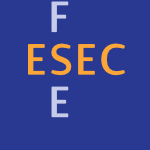 ESEC-FSE-1999-Beck #development
ESEC-FSE-1999-Beck #development- Extreme Programming: A Discipline of Software Development (KB), p. 1.
 ESEC-FSE-1999-CzarneckiE #component #generative
ESEC-FSE-1999-CzarneckiE #component #generative- Components and Generative Programming (KC, UWE), pp. 2–19.
 ICSE-1999-OssherT #development #evolution #object-oriented #problem #using
ICSE-1999-OssherT #development #evolution #object-oriented #problem #using- Using Subject-Oriented Programming to Overcome Common Problems in Object-Oriented Software Development/Evolution (HO, PLT), pp. 687–688.
 ICSE-1999-WalkerBM #aspect-oriented #assessment
ICSE-1999-WalkerBM #aspect-oriented #assessment- An Initial Assessment of Aspect-Oriented Programming (RJW, ELAB, GCM), pp. 120–130.
 ICSE-1999-WoodmanGMH #smalltalk
ICSE-1999-WoodmanGMH #smalltalk- OU LearningWorks: A Customized Programming Environment for Smalltalk Modules (MW, RG, MM, SH), pp. 638–641.
 ICSE-1999-WoodmanGMHR #smalltalk
ICSE-1999-WoodmanGMHR #smalltalk- Exploiting Smalltalk Modules in a Customizable Programming Environment (MW, RG, MM, SH, HR), pp. 65–74.
 SAC-1999-Jimenez-PerisPP #named
SAC-1999-Jimenez-PerisPP #named- VisMod: A Beginner-Friendly Programming Environment (RJP, MPM, JPM), pp. 115–120.
 SAC-1999-JoSKL #distributed #internet
SAC-1999-JoSKL #distributed #internet- The Distributed Programming Environment on the Internet (CHJ, JGS, YK, PSL), pp. 85–90.
 SAC-1999-KesslerH #search-based
SAC-1999-KesslerH #search-based- Depth-Fair Crossover in Genetic Programming (MK, TH), pp. 319–323.
 SAC-1999-Krishnamurthi #education #email
SAC-1999-Krishnamurthi #education #email- Integrating E-Mail in a Programming Class: Implications for Teaching Programming (MK), pp. 126–131.
 CC-1999-KastnerL #integer #linear #optimisation
CC-1999-KastnerL #integer #linear #optimisation- Code Optimization by Integer Linear Programming (DK, ML), pp. 122–136.
 DAC-1999-HershensonMBL #geometry #optimisation
DAC-1999-HershensonMBL #geometry #optimisation- Optimization of Inductor Circuits via Geometric Programming (MdMH, SSM, SPB, THL), pp. 994–998.
 DATE-1999-ChangP #co-evolution #communication #design #named #using
DATE-1999-ChangP #co-evolution #communication #design #named #using- Codex-dp: Co-design of Communicating Systems Using Dynamic Programming (JMC, MP), p. 568–?.
 HPCA-1999-FalsafiW #abstraction #communication #parallel #protocol #queue
HPCA-1999-FalsafiW #abstraction #communication #parallel #protocol #queue- Parallel Dispatch Queue: A Queue-Based Programming Abstraction to Parallelize Fine-Grain Communication Protocols (BF, DAW), pp. 182–192.
 HPDC-1999-AlmasiCP #matlab #memory management #named
HPDC-1999-AlmasiCP #matlab #memory management #named- MATmarks: A Shared Memory Environment for MATLAB Programming (GSA, CC, DAP), pp. 341–342.
 HPDC-1999-WoodwardA #distributed #grid
HPDC-1999-WoodwardA #distributed #grid- Portable Petaflop/s Programming: Applying Distributed Computing Methodology to the Grid within a Single Machine Room (PRW, SEA), pp. 70–83.
 PPoPP-1999-RamachandranNHRK #abstraction #interactive #memory management #parallel
PPoPP-1999-RamachandranNHRK #abstraction #interactive #memory management #parallel- Space-Time Memory: A Parallel Programming Abstraction for Interactive Multimedia Applications (UR, RSN, NH, JMR, KK), pp. 183–192.
 ESOP-1999-Hudak #functional
ESOP-1999-Hudak #functional- Functional Reactive Programming (PH), p. 1.
 ESOP-1999-LiuS
ESOP-1999-LiuS - Dynamic Programming via Static Incrementalization (YAL, SDS), pp. 288–305.
 ESOP-1999-Poetzsch-HeffterM #java #logic
ESOP-1999-Poetzsch-HeffterM #java #logic- A Programming Logic for Sequential Java (APH, PM), pp. 162–176.
 STOC-1999-Zwick99a #problem
STOC-1999-Zwick99a #problem- Outward Rotations: A Tool for Rounding Solutions of Semidefinite Programming Relaxations, with Applications to MAX CUT and Other Problems (UZ), pp. 679–687.
 CADE-1999-Groote #approach #deduction
CADE-1999-Groote #approach #deduction- A dynamic programming approach to categorial deduction (PdG), pp. 1–15.
 ICLP-1999-Pereira #declarative
ICLP-1999-Pereira #declarative- Declarative Programming for a Messy World (FCNP), pp. 3–5.
 ICLP-1999-Schulte #constraints
ICLP-1999-Schulte #constraints- Comparing Trailing and Copying for Constraint Programming (CS), pp. 275–289.
 ITiCSE-1998-CurzonR #question #student #why
ITiCSE-1998-CurzonR #question #student #why- Why do students take programming modules? (PC, JR), pp. 59–63.
 ITiCSE-1998-Grove #motivation #process #using
ITiCSE-1998-Grove #motivation #process #using- Using the personal software process to motivate good programming practices (RFG), pp. 98–101.
 ITiCSE-1998-HaganS #education
ITiCSE-1998-HaganS #education- The value of discussion classes for teaching introductory programming (DH, JS), pp. 108–111.
 ITiCSE-1998-Jenkins #approach #education
ITiCSE-1998-Jenkins #approach #education- A participative approach to teaching programming (TJ), pp. 125–129.
 ITiCSE-1998-KluitSW #evaluation #java #visual notation
ITiCSE-1998-KluitSW #evaluation #java #visual notation- Visual programming with Java: evaluation of an introductory programming course (PGK, MS, FW), pp. 143–147.
 ITiCSE-1998-MayoK #kernel
ITiCSE-1998-MayoK #kernel- A secure networked laboratory for kernel programming (JM, PK), pp. 175–177.
 ITiCSE-1998-WoitM #lessons learnt #online
ITiCSE-1998-WoitM #lessons learnt #online- Lessons from on-line programming examinations (DMW, DVM), pp. 257–259.
 ICSM-1998-CherinkaOR #maintenance #off the shelf #question #static analysis
ICSM-1998-CherinkaOR #maintenance #off the shelf #question #static analysis- Maintaining a COTS Integrated Solution — Are Traditional Static Analysis Techniques Sufficient for this New Programming Methodology? (RC, CMO, JR), pp. 160–169.
 IWPC-1998-DetienneBW #comprehension #object-oriented
IWPC-1998-DetienneBW #comprehension #object-oriented- The Effect of Object-Oriented Programming Expertise in Several Dimensions of Comprehension Strategies (FD, JMB, SW), pp. 82–89.
 ICALP-1998-TahaBS #axiom #multi #type safety
ICALP-1998-TahaBS #axiom #multi #type safety- Multi-Stage Programming: Axiomatization and Type Safety (WT, ZEAB, TS), pp. 918–929.
 AFP-1998-BackhouseJJM98
AFP-1998-BackhouseJJM98 - Generic Programming: An Introduction (RCB, PJ, JJ, LGLTM), pp. 28–115.
 FLOPS-1998-LedererD
FLOPS-1998-LedererD - Two-Stage Programming (EFAL, RAD), pp. 296–313.
 ICFP-1998-FindlerF #composition #mixin #object-oriented
ICFP-1998-FindlerF #composition #mixin #object-oriented- Modular Object-Oriented Programming with Units and Mixins (RBF, MF), pp. 94–104.
 ICFP-1998-MarcosLR #approach #authoring #functional #hypermedia
ICFP-1998-MarcosLR #approach #authoring #functional #hypermedia- A Functional Programming Approach to Hypermedia Authoring (DHM, PEML, WAR), p. 346.
 ICFP-1998-Odersky
ICFP-1998-Odersky - Programming with Variable Functions (MO), pp. 105–116.
 ICFP-1998-Scholz #combinator #imperative #library #monad
ICFP-1998-Scholz #combinator #imperative #library #monad- Imperative Streams — A Monadic Combinator Library for Synchronous Programming (ES), pp. 261–272.
 ICML-1998-AlerBI #approach #learning #multi #search-based
ICML-1998-AlerBI #approach #learning #multi #search-based- Genetic Programming and Deductive-Inductive Learning: A Multi-Strategy Approach (RA, DB, PI), pp. 10–18.
 ICPR-1998-UchidaS #2d
ICPR-1998-UchidaS #2d- A monotonic and continuous two-dimensional warping based on dynamic programming (SU, HS), pp. 521–524.
 ICPR-1998-ZhugeTLHD #analysis #image #interactive #segmentation
ICPR-1998-ZhugeTLHD #analysis #image #interactive #segmentation- An interactive image segmentation method based on dynamic programming and its application in medical image analysis (YZ, JT, NL, ZH, RD), pp. 1558–1560.
 ECOOP-1998-CrnogoracRR #concurrent #inheritance #object-oriented
ECOOP-1998-CrnogoracRR #concurrent #inheritance #object-oriented- Classifying Inheritance Mechanisms in Concurrent Object Oriented Programming (LC, ASR, KR), pp. 571–600.
 OOPSLA-1998-Bouraqadi-SaadaniLR
OOPSLA-1998-Bouraqadi-SaadaniLR - Safe Metaclass Programming (NMNBS, TL, FR), pp. 84–96.
 TOOLS-USA-1998-McKim #design #education #multi #object-oriented #using
TOOLS-USA-1998-McKim #design #education #multi #object-oriented #using- Using a Multi-Term Project to Teach Object Oriented Programming and Design (JCM), p. 468–?.
 TOOLS-USA-1998-Watkins #contract #interface #using
TOOLS-USA-1998-Watkins #contract #interface #using- Using Interface Definition Languages to Support Path Expressions and Programming by Contract (DW), p. 308–?.
 AdaEurope-1998-EspinosaJCTG #ada #component #realtime
AdaEurope-1998-EspinosaJCTG #ada #component #realtime- Programming Hard Real-Time Systems with Optional Components in Ada (AE, VJ, CC, AT, AGF), pp. 102–111.
 POPL-1998-HeintzeR #calculus
POPL-1998-HeintzeR #calculus- The SLam Calculus: Programming with Secrecy and Integrity (NH, JGR), pp. 365–377.
 FSE-1998-Karasick #architecture #c++ #incremental
FSE-1998-Karasick #architecture #c++ #incremental- The Architecture of Montana: An Open and Extensible Programming Environment with an Incremental C++ (MK), pp. 131–142.
 SAC-1998-DentiNO #coordination #on the #power of
SAC-1998-DentiNO #coordination #on the #power of- On the expressive power of a language for programming coordination media (ED, AN, AO), pp. 169–177.
 SAC-1998-JoLS #concurrent #object-oriented
SAC-1998-JoLS #concurrent #object-oriented- A realization of a concurrent object-oriented programming (CHJ, CHL, JGS), pp. 558–563.
 SAC-1998-Konstam #algorithm #classification #search-based #using
SAC-1998-Konstam #algorithm #classification #search-based #using- Group classification using a mix of genetic programming and genetic algorithms (AHK), pp. 308–312.
 SAC-1998-MurthyK #modelling #network #tool support
SAC-1998-MurthyK #modelling #network #tool support- Integrated network computing models, programming modes and software tools (VKM, EVK), pp. 551–557.
 ASPLOS-1998-AcharyaUS #algorithm #evaluation
ASPLOS-1998-AcharyaUS #algorithm #evaluation- Active Disks: Programming Model, Algorithms and Evaluation (AA, MU, JHS), pp. 81–91.
 DAC-1998-FallahDK #functional #generative #linear #modelling #satisfiability #using
DAC-1998-FallahDK #functional #generative #linear #modelling #satisfiability #using- Functional Vector Generation for HDL Models Using Linear Programming and 3-Satisfiability (FF, SD, KK), pp. 528–533.
 DAC-1998-SchaumontVREB #design
DAC-1998-SchaumontVREB #design- A Programming Environment for the Design of Complex High Speed ASICs (PS, SV, LR, ME, IB), pp. 315–320.
 PDP-1998-GerbessiotisLSS
PDP-1998-GerbessiotisLSS - PRAM programming: theory vs. practice (AVG, DL, CJS, KRS), pp. 164–170.
 ESOP-1998-HondaVK
ESOP-1998-HondaVK - Language Primitives and Type Discipline for Structured Communication-Based Programming (KH, VTV, MK), pp. 122–138.
 ESOP-1998-Smolka #concurrent #constraints #functional
ESOP-1998-Smolka #concurrent #constraints #functional- Concurrent Constraint Programming Based on Functional Programming (GS), pp. 1–11.
 FASE-1998-Beck #development
FASE-1998-Beck #development- Extreme Programming: A Humanistic Discipline of Software Development (KB), pp. 1–6.
 FASE-1998-BehnkeBMS #named #relational
FASE-1998-BehnkeBMS #named #relational- RELVIEW — A System for Calculating With Relations and Relational Programming (RB, RB, EM, PS), pp. 318–321.
 TACAS-1998-RuysB #experience #modelling #validation
TACAS-1998-RuysB #experience #modelling #validation- Experience with Literate Programming in the Modelling and Validation of Systems (TCR, EB), pp. 393–408.
 CAV-1998-Halbwachs
CAV-1998-Halbwachs - Synchronous Programming of Reactive Systems (NH), pp. 1–16.
 CSL-1998-KomaraV #theorem
CSL-1998-KomaraV #theorem- Theorems af Péter and Parsons in Computer Programming (JK, PJV), pp. 204–223.
 IWTCS-1998-Anlauf #testing
IWTCS-1998-Anlauf #testing- Programming Service Tests with TTCN (MA), pp. 259–274.
 ICDAR-1997-MartensC #online #optimisation
ICDAR-1997-MartensC #online #optimisation- Dynamic Programming Optimisation for On-line Signature Verificatio (RM, LJMC), pp. 653–656.
 SIGMOD-1997-GoyalHKMSZ
SIGMOD-1997-GoyalHKMSZ - Picture Programming Project (NG, CH, RK, BM, MS, MMZ), pp. 514–516.
 ITiCSE-1997-FeldmanB #concurrent #education
ITiCSE-1997-FeldmanB #concurrent #education- Concurrent programming CAN be introduced into the lower-level undergraduate curriculum (MBF, BDB), pp. 77–79.
 ITiCSE-1997-HaganSM #monitoring
ITiCSE-1997-HaganSM #monitoring- Monitoring and evaluating a redesigned first year programming course (DH, JS, IM), pp. 37–39.
 ITiCSE-1997-Houle
ITiCSE-1997-Houle - Ethics, programming, and virtual environments (MEH), pp. 91–93.
 ITiCSE-1997-PriceP #education #empirical #evaluation #feedback
ITiCSE-1997-PriceP #education #empirical #evaluation #feedback- Teaching programming through paperless assignments: an empirical evaluation of instructor feedback (BAP, MP), pp. 94–99.
 ITiCSE-1997-WesterSK #approach #java #visual notation
ITiCSE-1997-WesterSK #approach #java #visual notation- Visual programming with Java; an alternative approach to introductory programming (FW, MS, PGK), pp. 57–58.
 ITiCSE-WGR-1997-PetreP #internet #problem
ITiCSE-WGR-1997-PetreP #internet #problem- Programming practical work and problem sessions via the Internet (MP, BAP), pp. 125–128.
 WCRE-1997-Kontogiannis #detection #evaluation #metric #using
WCRE-1997-Kontogiannis #detection #evaluation #metric #using- Evaluation Experiments on the Detection of Programming Patterns Using Software Metrics (KK), p. 44–?.
 ICFP-1997-Duris #attribute grammar #deforestation #functional
ICFP-1997-Duris #attribute grammar #deforestation #functional- Functional Programming and Attribute Grammars Deforestation (ÉD), p. 312.
 ICFP-1997-Erwig #functional #graph
ICFP-1997-Erwig #functional #graph- Functional Programming with Graphs (ME), pp. 52–65.
 ICFP-1997-Kagawa #composition #functional
ICFP-1997-Kagawa #composition #functional- Compositional References for Stateful Functional Programming (KK), pp. 217–226.
 ICFP-1997-KrasnogorLMP #functional
ICFP-1997-KrasnogorLMP #functional- Protien Folding meets Functional Programming (NK, PEML, PM, DAP), p. 313.
 ICFP-1997-SpiliopoulouHD #approach #distributed #functional
ICFP-1997-SpiliopoulouHD #approach #distributed #functional- Distributed Programming, a Purely Functional Approach (ES, IH, ND), p. 320.
 ICFP-1997-TahaS #multi
ICFP-1997-TahaS #multi- Multi-Stage Programming (WT, TS), p. 321.
 IFL-1997-DidrichGMP #algebra #in the large
IFL-1997-DidrichGMP #algebra #in the large- Programming in the Large: The Algebraic-Functional Language Opal 2α (KD, WG, CM, PP), pp. 322–337.
 CHI-1997-RaderBL #comprehension #visual notation
CHI-1997-RaderBL #comprehension #visual notation- Degrees of Comprehension: Children’s Understanding of a Visual Programming Environment (CR, CB, CHL), pp. 351–358.
 CHI-1997-WilcoxABCC #debugging #feedback #question #visual notation
CHI-1997-WilcoxABCC #debugging #feedback #question #visual notation- Does Continuous Visual Feedback Aid Debugging in Direct-Manipulation Programming Systems? (EMW, JWA, MMB, JJC, CRC), pp. 258–265.
 HCI-SEC-1997-Borron
HCI-SEC-1997-Borron - A New Form of Programming in the Light of Cognitive Dimensions (HJB), pp. 315–318.
 HCI-SEC-1997-ChoMSYYJ #development #named #visual notation #web
HCI-SEC-1997-ChoMSYYJ #development #named #visual notation #web- VIOLA: A Visual Programming Tool for the Development of Web Applications (CSC, PSM, GSS, SJY, IJY, YSJ), pp. 787–790.
 HCI-SEC-1997-Perez-QuinonesS #architecture #composition #human-computer
HCI-SEC-1997-Perez-QuinonesS #architecture #composition #human-computer- Modular Dialogue Units: A Software Architecture for Programming Human-Computer Dialogues (MAPQ, JLS), pp. 355–358.
 HCI-SEC-1997-Ramadhan
HCI-SEC-1997-Ramadhan - Free vs. Guided Programming by Discovery (HAR), pp. 279–282.
 ECOOP-1997-KiczalesLMMLLI #aspect-oriented
ECOOP-1997-KiczalesLMMLLI #aspect-oriented- Aspect-Oriented Programming (GK, JL, AM, CM, CVL, JML, JI), pp. 220–242.
 ECOOP-1997-Prehofer #feature model #fresh look
ECOOP-1997-Prehofer #feature model #fresh look- Feature-Oriented Programming: A Fresh Look at Objects (CP), pp. 419–443.
 OOPSLA-1997-Weihe #algorithm #challenge #object-oriented #reuse #using
OOPSLA-1997-Weihe #algorithm #challenge #object-oriented #reuse #using- Reuse of Algorithms: Still a Challenge to Object-Oriented Programming (KW), pp. 34–48.
 TOOLS-ASIA-1997-Coplien97a #c++ #using
TOOLS-ASIA-1997-Coplien97a #c++ #using- Advanced C++ Programming Styles: Using C++ as a Higher-Level Language (JC), pp. 418–419.
 TOOLS-ASIA-1997-GuofuSS #research
TOOLS-ASIA-1997-GuofuSS #research- The Research of Distributive Object Programming Environment (ZG, LS, CS), pp. 238–243.
 TOOLS-ASIA-1997-SheardH #c++ #case study #concept #education #experience #object-oriented #student #using
TOOLS-ASIA-1997-SheardH #c++ #case study #concept #education #experience #object-oriented #student #using- Experiences with Teaching Object-Oriented Concepts to Introductory Programming Students Using C++ (JS, DH), pp. 310–319.
 TOOLS-PACIFIC-1997-Coplien #c++
TOOLS-PACIFIC-1997-Coplien #c++- Advanced C++ Programming Styles and Idioms (JC), p. 352.
 TOOLS-PACIFIC-1997-Holmes #concurrent #java #library
TOOLS-PACIFIC-1997-Holmes #concurrent #java #library- Concurrent Programming in Java: Language and Libraries (DH), p. 371.
 TOOLS-USA-1997-GiffenT #interface #smalltalk #visual notation
TOOLS-USA-1997-GiffenT #interface #smalltalk #visual notation- A Visual Programming Interface for Smalltalk (RG, IT), p. 260–?.
 AdaEurope-1997-RomanovskyMW #ada #on the
AdaEurope-1997-RomanovskyMW #ada #on the- On Programming Atomic Actions in Ada 95 (ABR, SEM, AJW), pp. 254–265.
 PEPM-1997-TahaS #multi
PEPM-1997-TahaS #multi- Multi-Stage Programming with Explicit Annotations (WT, TS), pp. 203–217.
 PLILP-1997-Cousineau #functional #geometry
PLILP-1997-Cousineau #functional #geometry- Functional Programming and Geometry (GC), pp. 309–322.
 PLILP-1997-FindlerFFKF #named
PLILP-1997-FindlerFFKF #named- DrScheme: A Pedagogic Programming Environment for Scheme (RBF, CF, MF, SK, MF), pp. 369–388.
 PLILP-1997-Gregory #approach #concurrent #declarative
PLILP-1997-Gregory #approach #concurrent #declarative- A Declarative Approach to Concurrent Programming (SG), pp. 79–93.
 PLILP-1997-Lucas #functional #performance
PLILP-1997-Lucas #functional #performance- Transformations for Efficient Evaluations in Functional Programming (SL), pp. 127–141.
 PLILP-1997-Thompson #approach #education #functional #problem
PLILP-1997-Thompson #approach #education #functional #problem- Where Do I Begin? A Problem Solving Approach in teaching Functional Programming (SJT), pp. 323–334.
 POPL-1997-AptS #imperative
POPL-1997-AptS #imperative- Search and Imperative Programming (KRA, AS), pp. 67–79.
 SAS-1997-CorrensonDPR #attribute grammar #deforestation #functional
SAS-1997-CorrensonDPR #attribute grammar #deforestation #functional- Attribute Grammars and Functional Programming Deforestation (LC, ÉD, DP, GR), p. 365.
 TRI-Ada-1997-Gonzalez-BarahonaCQBL #ada #education #network
TRI-Ada-1997-Gonzalez-BarahonaCQBL #ada #education #network- Teaching Network Programming with Ada and Lower_Layer (JMGB, JCG, PdlHQ, FJBC, LLF), pp. 105–110.
 TRI-Ada-1997-QuirosGC #approach #distributed #fault tolerance
TRI-Ada-1997-QuirosGC #approach #distributed #fault tolerance- Programming Distributed Fault Tolerant Systems: The replicAda Approach (PdlHQ, JMGB, JCG), pp. 21–29.
 TRI-Ada-1997-White #ada #performance
TRI-Ada-1997-White #ada #performance- Performance Issues of Scientific Programming in Ada 95 (JBWI), pp. 279–294.
 ICSE-1997-SullivanCZC #tool support
ICSE-1997-SullivanCZC #tool support- Package-Oriented Programming of Engineering Tools (KJS, JC, SZ, DC), pp. 616–617.
 SAC-1997-KozaBAK #evolution #search-based #using
SAC-1997-KozaBAK #evolution #search-based #using- Evolution using genetic programming of a low-distortion, 96 decibel operational amplifier (JRK, FHBI, DA, MAK), pp. 207–216.
 SAC-1997-MurthyK #concurrent
SAC-1997-MurthyK #concurrent- Heterogeneous programming with concurrent objects (VKM, EVK), pp. 454–463.
 HPDC-1997-DincerF #design
HPDC-1997-DincerF #design- Design Issues in Building Web-Based Programming Environments (KD, GF), pp. 283–292.
 HPDC-1997-LeichtlCC #clustering #parallel
HPDC-1997-LeichtlCC #clustering #parallel- Parallel Programming in Multi-Paradigm Clusters (JL, PC, MJC), pp. 326–335.
 PDP-1997-ClematisGT #concurrent #fault
PDP-1997-ClematisGT #concurrent #fault- Programming concurrent backward error recovery: General methodologies and practical approaches (AC, VG, AMT), pp. 228–233.
 PDP-1997-DozsaKF #named #visual notation
PDP-1997-DozsaKF #named #visual notation- GRADE: A graphical programming environment for PVM applications (GD, PK, TF), pp. 358–368.
 PDP-1997-GiloiS #architecture #distributed #memory management
PDP-1997-GiloiS #architecture #distributed #memory management- A high-level programming environment for distributed memory architectures (WKG, AS), pp. 369–375.
 PDP-1997-KesslerT #library
PDP-1997-KesslerT #library- Language and library support for practical PRAM programming (CWK, JLT), pp. 216–221.
 PDP-1997-SujithanH #database
PDP-1997-SujithanH #database- Collection types for database programming in the BSP model (KRS, JMDH), pp. 419–424.
 PPoPP-1997-BianchiniCK #interactive #parallel #protocol
PPoPP-1997-BianchiniCK #interactive #parallel #protocol- The Interaction of Parallel Programming Constructs and Coherence Protocols (RB, EVC, LIK), pp. 69–79.
 PPoPP-1997-SubhlokY #parallel
PPoPP-1997-SubhlokY #parallel- A New Model for Integrated Nested Task and Data Parallel Programming (JS, BY), pp. 1–12.
 TAPSOFT-1997-NicolaFP #locality
TAPSOFT-1997-NicolaFP #locality- Locality Based Linda: Programming with Explicit Localities (RDN, GLF, RP), pp. 712–726.
 CSL-1997-RuetF #commutative #concurrent #constraints #logic
CSL-1997-RuetF #commutative #concurrent #constraints #logic- Concurrent Constraint Programming and Non-commutative Logic (PR, FF), pp. 406–423.
 ICLP-1997-Schulte #constraints #visual notation
ICLP-1997-Schulte #constraints #visual notation- Oz Explorer: A Visual Constraint Programming Tool (CS), pp. 286–300.
 ILPS-1997-Hanus #declarative #multi
ILPS-1997-Hanus #declarative #multi- Multi-Paradigm Declarative Programming (MH), pp. 43–45.
 ILPS-1997-Hermenegildo #analysis
ILPS-1997-Hermenegildo #analysis- Programming with Global Analysis (MVH), pp. 49–50.
 ILPS-1997-Smolka #constraints
ILPS-1997-Smolka #constraints- Constraint Programming in Oz (GS), pp. 37–38.
 SIGMOD-1996-GoyalHKMS #database #problem #question #research #user interface
SIGMOD-1996-GoyalHKMS #database #problem #question #research #user interface- Is GUI Programming a Database Research Problem? (NG, CH, RK, BM, MS), pp. 517–528.
 ITiCSE-1996-ArnowC #email #web
ITiCSE-1996-ArnowC #email #web- Extending the conversation: integrating email and Web technology in CS programming classes (DMA, DC), pp. 93–95.
 ITiCSE-1996-Jimenez-PerisPM #distributed #education #library #named
ITiCSE-1996-Jimenez-PerisPM #distributed #education #library #named- DD-Mod: a library for teaching distributed programming (RJP, MPM, JMMF), p. 229.
 ITiCSE-1996-MutchlerL #multi #user interface #using
ITiCSE-1996-MutchlerL #multi #user interface #using- Using multimedia and GUI programming in CS 1 (DM, CL), pp. 63–65.
 ITiCSE-1996-Velazquez-Iturbide #functional #named
ITiCSE-1996-Velazquez-Iturbide #functional #named- HIPE: a Turbo-like environment for functional programming (JÁVI), p. 234.
 ITiCSE-1996-Velazquez-IturbideRF #algorithm #development #tool support
ITiCSE-1996-Velazquez-IturbideRF #algorithm #development #tool support- An inexpensive programming toolset for algorithm development (JÁVI, AMCR, NLF), p. 231.
 ITiCSE-1996-WolzWDM #education #multi
ITiCSE-1996-WolzWDM #education #multi- Teaching introductory programming in the multi-media world (UW, SW, DD, MM), pp. 57–59.
 ICALP-1996-AlonS #approximate #integer #parallel #problem
ICALP-1996-AlonS #approximate #integer #parallel #problem- Improved Parallel Approximation of a Class of Integer Programming Programming Problems (NA, AS), pp. 562–573.
 WIA-1996-Rodger #formal method #tool support
WIA-1996-Rodger #formal method #tool support- Integrating Hands-on Work into the Formal Languages Course via Tools and Programming (SHR), pp. 132–148.
 AFP-1996-JeuringJ96
AFP-1996-JeuringJ96 - Polytypic Programming (JJ, PJ), pp. 68–114.
 IFL-1996-Scholz #array #functional #on the
IFL-1996-Scholz #array #functional #on the- On Programming Scientific Applications in SAC — A Functional Language Extended by a Subsystem for High-Level Array Operations (SBS), pp. 85–104.
 CHI-1996-Wolber #named
CHI-1996-Wolber #named- Pavlov: Programming by Stimulus-Response Demonstration (DW), pp. 252–259.
 CSCW-1996-Waldo #collaboration #java #using
CSCW-1996-Waldo #collaboration #java #using- Using the Java Programming Environment to Build Collaborative Applications (JW), p. 3.
 CAiSE-1996-MehandjievB #information management #visual notation
CAiSE-1996-MehandjievB #information management #visual notation- User-Enhanceability for Organizational Information Systems through Visual Programming (NM, LB), pp. 432–456.
 AKDDM-1996-BerndtC #approach
AKDDM-1996-BerndtC #approach- Finding Patterns in Time Series: A Dynamic Programming Approach (DJB, JC), pp. 229–248.
 ICML-1996-BoutilierD #approximate
ICML-1996-BoutilierD #approximate- Approximate Value Trees in Structured Dynamic Programming (CB, RD), pp. 54–62.
 ICPR-1996-HoY #approach
ICPR-1996-HoY #approach- A dynamic programming approach for stereo line matching with structural information (WPH, RKKY), pp. 791–794.
 ICPR-1996-Johnson #automation #search-based #using #visual notation
ICPR-1996-Johnson #automation #search-based #using #visual notation- Automated creation of visual routines using genetic programming (MPJ), pp. 951–956.
 KDD-1996-ImielinskiVA #database #interface #mining #named #query
KDD-1996-ImielinskiVA #database #interface #mining #named #query- DataMine: Application Programming Interface and Query Language for Database Mining (TI, AV, AA), pp. 256–262.
 KDD-1996-RyuE #query #search-based #using
KDD-1996-RyuE #query #search-based #using- Deriving Queries from Results Using Genetic Programming (TWR, CFE), pp. 303–306.
 KR-1996-SmirnovV #contest #integer #performance #representation
KR-1996-SmirnovV #contest #integer #performance #representation- Efficiency Competition through Representation Changes: Pigeonhole Principle vs. Integer Programming Methods (YVS, MMV), pp. 124–134.
 SEKE-1996-Balmas #concept #named
SEKE-1996-Balmas #concept #named- ACL: a Tool for Conceptual Programming (FB), pp. 198–205.
 SEKE-1996-Balmas96a #formal method #named #source code
SEKE-1996-Balmas96a #formal method #named #source code- PRISME: Formalizing Programming Strategies as a Way to Understand Programs (FB), pp. 361–368.
 SEKE-1996-Franca #c++ #design #education #library #object-oriented
SEKE-1996-Franca #c++ #design #education #library #object-oriented- The Design of a Class Library to Support Teaching of Object Oriented Programming with C++ (PBF), pp. 32–37.
 SEKE-1996-Menzies #information management #re-engineering #visual notation
SEKE-1996-Menzies #information management #re-engineering #visual notation- Visual Programming, Knowledge Engineering, and Software Engineering (TM), pp. 506–513.
 ECOOP-1996-QianK #functional #object-oriented
ECOOP-1996-QianK #functional #object-oriented- Typed Object-Oriented Functional Programming with Late Binding (ZQ, BKB), pp. 48–72.
 OOPSLA-1996-AttaliCEL #object-oriented #parallel #semantics #visualisation
OOPSLA-1996-AttaliCEL #object-oriented #parallel #semantics #visualisation- Semantic-Based Visualization for Parallel Object-Oriented Programming (IA, DC, SOE, SL), pp. 421–456.
 AdaEurope-1996-Bondeli #ada #object-oriented
AdaEurope-1996-Bondeli #ada #object-oriented- An Ada 95 View of Some Difficult or Controversial Points in Object-Oriented Programming (PdB), pp. 370–384.
 AdaEurope-1996-Taft #ada #internet
AdaEurope-1996-Taft #ada #internet- Programming the Internet in Ada 95 (STT), pp. 1–16.
 ALP-1996-BrimJGK #algebra #concurrent #constraints #process
ALP-1996-BrimJGK #algebra #concurrent #constraints #process- A Process Algebra for Synchronous Concurrent Constraint Programming (LB, JMJ, DRG, MK), pp. 165–178.
 PLILP-1996-RoyMS #concurrent #constraints #performance
PLILP-1996-RoyMS #concurrent #constraints #performance- Integrating Efficient Records into Concurrent Constraint Programming (PVR, MM, RS), pp. 438–453.
 PLILP-1996-Scholz #concurrent #constraints #framework #functional #named #user interface
PLILP-1996-Scholz #concurrent #constraints #framework #functional #named #user interface- PIDGETS — Unifying Pictures and Widgets in a Constraint-Based Framework for Concurrent Functional GUI Programming (ES), pp. 363–377.
 PLILP-1996-Schulte #constraints #visual notation
PLILP-1996-Schulte #constraints #visual notation- Oz Explorer: A Visual Constraint Programming Tool (CS), pp. 477–478.
 ICSE-1996-GibbsB #challenge #concept #multi #scalability
ICSE-1996-GibbsB #challenge #concept #multi #scalability- Large, Multimedia Programming — Concepts and Challenges (SJG, CB), pp. 439–440.
 ICSE-1996-PanD
ICSE-1996-PanD - Beyond Structured Programming (SP, RGD), pp. 268–277.
 SAC-1996-Al-Salman
SAC-1996-Al-Salman - An Arabic programming environment (ASAS), pp. 480–486.
 DAC-1996-OhPP #bound #linear #using
DAC-1996-OhPP #bound #linear #using- Constructing Lower and Upper Bounded Delay Routing Trees Using Linear Programming (JO, IP, MP), pp. 401–404.
 HPDC-1996-BotorogK #algorithm #distributed #imperative #named #performance
HPDC-1996-BotorogK #algorithm #distributed #imperative #named #performance- Skil: An Imperative Language with Algorithmic Skeletons for Efficient Distributed Programming (GHB, HK), pp. 243–252.
 HPDC-1996-NieplochaH #memory management
HPDC-1996-NieplochaH #memory management- Shared Memory NUMA Programming on I-WAY (JN, RJH), pp. 432–441.
 PDP-1996-Gerndt #memory management #multi
PDP-1996-Gerndt #memory management #multi- Programming Shared Virtual Memory Multiprocessor (MG), pp. 2–10.
 PDP-1996-GruberHKV #case study #parallel
PDP-1996-GruberHKV #case study #parallel- Parallel Programming with CAPSE — A Case Study (BG, GH, DK, JV), pp. 130–138.
 PDP-1996-KacsukHFPDF #parallel #visual notation
PDP-1996-KacsukHFPDF #parallel #visual notation- Visual Parallel Programming in Monads-DPV (PK, GH, SF, GP, GD, TF), pp. 344–351.
 PDP-1996-OmodeoPS #distributed #named #object-oriented
PDP-1996-OmodeoPS #distributed #named #object-oriented- DO-OPEN: A Distributed Object-Oriented Programming Environment (AO, MP, NS), pp. 336–343.
 PDP-1996-Papadopoulos #concurrent #framework #graph grammar #object-oriented
PDP-1996-Papadopoulos #concurrent #framework #graph grammar #object-oriented- Concurrent Object-Oriented Programming Techniques in a Term Graph Rewriting Framework (GAP), pp. 87–93.
 ESOP-1996-Gonzalez-MorenoHLR #declarative #logic
ESOP-1996-Gonzalez-MorenoHLR #declarative #logic- A Rewriting Logic for Declarative Programming (JCGM, MTHG, FJLF, MRA), pp. 156–172.
 ESOP-1996-MelzerE #integer
ESOP-1996-MelzerE #integer- Checking System Properties via Integer Programming (SM, JE), pp. 250–264.
 STOC-1996-Milenkovic #linear #strict #using
STOC-1996-Milenkovic #linear #strict #using- Translational Polygon Containment and Minimal Enclosure using Linear Programming Based Restriction (VM), pp. 109–118.
 JICSLP-1996-Puget #constraints
JICSLP-1996-Puget #constraints- Constraint Programming (JFP), p. 3.
 ICDAR-v2-1995-DowntonHA #recognition #tool support #visual notation
ICDAR-v2-1995-DowntonHA #recognition #tool support #visual notation- A visual programming toolkit demonstrator for offline handwritten forms recognition (ACD, SJH, AA), pp. 707–710.
 PODS-1995-Kanellakis #constraints #database #tutorial
PODS-1995-Kanellakis #constraints #database #tutorial- Constraint Programming and Database Languages: A Tutorial (PCK), pp. 46–53.
 CSEE-1995-McKim #design #education #eiffel #object-oriented
CSEE-1995-McKim #design #education #eiffel #object-oriented- Teaching Object Oriented Programming and Design with Eiffel (JCM), p. 445.
 CSEE-1995-ScottC #student
CSEE-1995-ScottC #student- Team Selection Methods for Student Programming Projects (TJS, JHCI), pp. 295–303.
 FPLE-1995-JarvisPM #case study #comprehension #education #experience #functional #scalability
FPLE-1995-JarvisPM #case study #comprehension #education #experience #functional #scalability- Understanding LOLITA: Experiences in Teaching Large Scale Functional Programming (SAJ, SP, RGM), pp. 103–119.
 FPLE-1995-Karczmarczuk #functional
FPLE-1995-Karczmarczuk #functional- Functional Programming and Mathematical Objects (JK), pp. 121–137.
 FPLE-1995-Keravnou #functional
FPLE-1995-Keravnou #functional- Introducing Computer Science Undergraduates to Principles of Programming Through a Functional Language (ETK), pp. 15–34.
 FPLE-1995-KlugeRS #education #execution #functional #using
FPLE-1995-KlugeRS #education #execution #functional #using- Using pi-RED as a Teaching Tool for Functional Programming and Program Execution (WEK, CR, SBS), pp. 231–249.
 FPLE-1995-KoopmanZ #database #functional
FPLE-1995-KoopmanZ #database #functional- Functional Programming in a Basic Database Course (PWMK, VZ), pp. 215–229.
 FPLE-1995-NunezPP #data type #functional
FPLE-1995-NunezPP #data type #functional- A Second Year Course on Data Structures Based on Functional Programming (MN, PP, RP), pp. 65–84.
 FPLE-1995-ThompsonH #education #functional
FPLE-1995-ThompsonH #education #functional- Functional Programming Through the Curriculum (SJT, SH), pp. 85–102.
 FPLE-1995-Turner #functional
FPLE-1995-Turner #functional- Elementary Strong Functional Programming (DAT), pp. 1–13.
 ICALP-1995-GolinR #algorithm
ICALP-1995-GolinR #algorithm- A Dynamic Programming Algorithm for Constructing Optimal Refix-Free Codes for Unequal Letter Costs (MJG, GR), pp. 256–267.
 AFP-1995-HallgrenC95
AFP-1995-HallgrenC95 - Programming with Fudgets (TH, MC), pp. 137–182.
 AFP-1995-Jones95 #functional #higher-order #morphism #polymorphism
AFP-1995-Jones95 #functional #higher-order #morphism #polymorphism- Functional Programming with Overloading and Higher-Order Polymorphism (MPJ), pp. 97–136.
 AFP-1995-KieburtzL95 #algebra
AFP-1995-KieburtzL95 #algebra- Programming with Algebras (RBK, JL), pp. 267–307.
 AFP-1995-MeijerJ95 #functional #monad
AFP-1995-MeijerJ95 #functional #monad- Merging Monads and Folds for Functional Programming (EM, JJ), pp. 228–266.
 AFP-1995-Wadler95 #functional #monad
AFP-1995-Wadler95 #functional #monad- Monads for Functional Programming (PW), pp. 24–52.
 FPCA-1995-WallaceR #architecture #embedded #functional
FPCA-1995-WallaceR #architecture #embedded #functional- λs in the Liftshaft — Functional Programming and an Embedded Architecture (MW, CR), pp. 249–258.
 CHI-1995-CypherS #named #simulation
CHI-1995-CypherS #named #simulation- KidSim: End User Programming of Simulations (AC, DCS), pp. 27–34.
 CHI-1995-LiebermanF #behaviour
CHI-1995-LiebermanF #behaviour- Bridging the Gulf Between Code and Behavior in Programming (HL, CF), pp. 480–486.
 ICML-1995-Gordon #approximate
ICML-1995-Gordon #approximate- Stable Function Approximation in Dynamic Programming (GJG), pp. 261–268.
 ICML-1995-Peng #performance
ICML-1995-Peng #performance- Efficient Memory-Based Dynamic Programming (JP), pp. 438–446.
 SEKE-1995-BrownseyZ #functional #specification #user interface #using
SEKE-1995-BrownseyZ #functional #specification #user interface #using- From Specification to Building a GUI using Functional Programming (KB, MZ), pp. 244–251.
 SEKE-1995-Kazimierczak #automation #information management #natural language #representation
SEKE-1995-Kazimierczak #automation #information management #natural language #representation- Knowledge Representation on the Level of Natural Language for Purposes of Automatic Programming (JK), pp. 140–143.
 ECOOP-1995-Amsellem #hypermedia #named
ECOOP-1995-Amsellem #hypermedia #named- ChyPro: A Hypermedia Programming Environment for Smalltalk-80 (MA), pp. 449–470.
 ECOOP-1995-McAffer
ECOOP-1995-McAffer - Meta-level Programming with CodA (JM), pp. 190–214.
 ECOOP-1995-SmithU #experience
ECOOP-1995-SmithU #experience- Programming as an Experience: The Inspiration for Self (RBS, DU), pp. 303–330.
 OOPSLA-1995-ItohYT #concurrent #low level #named #operating system #using
OOPSLA-1995-ItohYT #concurrent #low level #named #operating system #using- SCONE: Using Concurrent Objects for Low-level Operating System Programming (JiI, YY, MT), pp. 385–398.
 AdaEurope-1995-ChoukairK #ada #approach #corba #distributed #object-oriented
AdaEurope-1995-ChoukairK #ada #approach #corba #distributed #object-oriented- Distributed Object Oriented Programming and Interoperability for Ada 95: An OMG/CORBA Approach (ZC, YK), pp. 217–227.
 AdaEurope-1995-KermarrecP #ada #distributed
AdaEurope-1995-KermarrecP #ada #distributed- Programming Distributed Systems with Both Ada 95 and PVM (YK, LP), pp. 206–216.
 PLILP-1995-Jones
PLILP-1995-Jones - Programming with Constructor Classes (MPJ), p. 26.
 PLILP-1995-TongL #concurrent #constraints #performance
PLILP-1995-TongL #concurrent #constraints #performance- Performance of A Data-Parallel Concurrent Constraint Programming System (BMT, HfL), pp. 463–464.
 PLILP-1995-VullinghsTS #functional #lightweight #user interface
PLILP-1995-VullinghsTS #functional #lightweight #user interface- Lightweight GUIs for Functional Programming (TV, DT, WS), pp. 341–356.
 POPL-1995-SaraswatJG #concurrent #constraints
POPL-1995-SaraswatJG #concurrent #constraints- Default Timed Concurrent Constraint Programming (VAS, RJ, VG), pp. 272–285.
 TRI-Ada-1995-BarbeyKS #ada #object-oriented
TRI-Ada-1995-BarbeyKS #ada #object-oriented- Advanced Object-Oriented Features and Programming in Ada 95 (SB, MK, AS), pp. 359–489.
 TRI-Ada-1995-FeldmanB #ada #education
TRI-Ada-1995-FeldmanB #ada #education- Teaching Object Programming with Ada 95 (MBF, JB), pp. 655–685.
 TRI-Ada-1995-LevyM #education #reuse
TRI-Ada-1995-LevyM #education #reuse- Teaching Programming for Reuse: Generics for Educators (SPL, JWM), pp. 105–117.
 ESEC-1995-Jazayeri #component #fresh look
ESEC-1995-Jazayeri #component #fresh look- Component Programming — a Fresh Look at Software Components (MJ), pp. 457–478.
 KBSE-1995-Tyugu #development #experience #knowledge-based #object-oriented
KBSE-1995-Tyugu #development #experience #knowledge-based #object-oriented- From Object-Oriented to Knowledge-Based Programming (NUT System Development Experience) (ET), pp. 88–95.
 SAC-1995-Arnow #email #network #using
SAC-1995-Arnow #email #network #using- :-) When you grade that: using e-mail and the network in programming courses (DMA), pp. 10–13.
 SAC-1995-HartensteinS #compilation
SAC-1995-HartensteinS #compilation- Combining structural and procedural programming by parallelizing compilation (RWH, KS), pp. 130–134.
 SAC-1995-ThuenteS #algorithm #hybrid #problem #search-based
SAC-1995-ThuenteS #algorithm #hybrid #problem #search-based- Mathematical programming in a hybrid genetic algorithm for Steiner point problems (DJT, PS), pp. 357–363.
 HPDC-1995-CowanLB #performance
HPDC-1995-CowanLB #performance- Performance Benefits of Optimistic Programming: A Measure of HOPE (CC, HL, MAB), pp. 197–204.
 LCT-RTS-1995-SchneiderCSP #component #realtime
LCT-RTS-1995-SchneiderCSP #component #realtime- The ControlShell Component-Based Real-Time Programming System, and its Application to the Marsokhod Martian Rover (SAS, VWC, JS, GPC), pp. 146–155.
 PDP-1995-AltmannB #fault tolerance #multi
PDP-1995-AltmannB #fault tolerance #multi- Algorithm-based fault-tolerant programming in scientific computation on multiprocessors (JA, AB), pp. 374–382.
 PDP-1995-BornOSS #monitoring #parallel #visual notation
PDP-1995-BornOSS #monitoring #parallel #visual notation- The monitoring facilities of the graphical parallel programming environment TRAPPER (TB, WO, LS, CS), pp. 555–562.
 PDP-1995-ClematisG #parallel
PDP-1995-ClematisG #parallel- HeterEL-a server for programming parallel heterogeneous systems (AC, EG), pp. 472–479.
 TAPSOFT-1995-SampaioHPUFA #named #proving #term rewriting
TAPSOFT-1995-SampaioHPUFA #named #proving #term rewriting- PLATO: A Tool to Assist Programming as Term Rewriting and Therem Proving (AJS, AMH, CTP, CDU, MFF, NCA), pp. 797–798.
 ICLP-1995-CodognetR #constraints
ICLP-1995-CodognetR #constraints- NMCC Programming: Constraint Enforcement and Retracting in CC Programming (PC, FR), pp. 417–431.
 ICLP-1995-Kahn #concurrent #constraints #named
ICLP-1995-Kahn #concurrent #constraints #named- ToonTalk — Concurrent Constraint Programming for Kids (KMK), p. 3.
 ICLP-1995-Smolka #concurrent #constraints #named
ICLP-1995-Smolka #concurrent #constraints #named- Oz: Concurrent Constraint Programming for Real (GS), p. 13.
 ILPS-1995-BoerG #concurrent #constraints #modelling #realtime
ILPS-1995-BoerG #concurrent #constraints #modelling #realtime- Modelling Real-Time in Concurrent Constraint Programming (FSdB, MG), pp. 528–542.
 ILPS-1995-HarlandPW #overview #perspective
ILPS-1995-HarlandPW #overview #perspective- Programming in Lygon: A Brief Overview (JH, DJP, MW), p. 636.
 ICSM-1994-Jacquot
ICSM-1994-Jacquot - Programming Through Disciplined Modification (JPJ), pp. 362–371.
 CHI-1994-EisenbergF94a #design #programmable
CHI-1994-EisenbergF94a #design #programmable- Programmable design environments: integrating end-user programming with domain-oriented assistance (ME, GF), pp. 431–437.
 CHI-1994-HoudeS94a #design
CHI-1994-HoudeS94a #design- In search of design principles for programming environments (SH, RS), pp. 424–430.
 CIKM-1994-ChenT #implementation #pattern matching
CIKM-1994-ChenT #implementation #pattern matching- An Optimized Implementation for VML Based on Pattern Matching and Dynamic Programming (WC, VT), pp. 88–96.
 ICML-1994-RoscaB #search-based #self
ICML-1994-RoscaB #search-based #self- Hierarchical Self-Organization in Genetic programming (JPR, DHB), pp. 251–258.
 SEKE-1994-ChiangWBN #automation #documentation #named #visual notation
SEKE-1994-ChiangWBN #automation #documentation #named #visual notation- DocFlow: an event-driven visual programming environment for office automation through document processing (SCYC, JTLW, MPB, PAN), pp. 454–461.
 ECOOP-1994-AlagicSB #declarative #inheritance #object-oriented #prototype #type system
ECOOP-1994-AlagicSB #declarative #inheritance #object-oriented #prototype #type system- Declarative Object-Oriented Programming: Inheritance, Subtyping and Prototyping (SA, RS, RB), pp. 236–259.
 ECOOP-1994-OkamuraI #using
ECOOP-1994-OkamuraI #using- Object Location Control Using Meta-level Programming (HO, YI), pp. 299–319.
 OOPSLA-1994-KobayashiY #concurrent #object-oriented
OOPSLA-1994-KobayashiY #concurrent #object-oriented- Type-Theoretic Foundations for Concurrent Object-Oriented Programming (NK, AY), pp. 31–45.
 OOPSLA-1994-LortzS #contract
OOPSLA-1994-LortzS #contract- Combining Contracts and Exemplar-Based Programming for Class Hiding and Customization (VBL, KGS), pp. 453–467.
 TOOLS-EUROPE-1994-Allard #named #object-oriented
TOOLS-EUROPE-1994-Allard #named #object-oriented- Keynote: Object-Oriented Programming at the European Space Agency (FA), p. 7.
 TOOLS-EUROPE-1994-KlugS #corba #distributed
TOOLS-EUROPE-1994-KlugS #corba #distributed- Distributed Programming in C++, from Sockets to CORBA (MK, MS), p. 543.
 TOOLS-EUROPE-1994-Sikora #empirical #object-oriented #problem #roadmap
TOOLS-EUROPE-1994-Sikora #empirical #object-oriented #problem #roadmap- Selected Results from an Empirical Study on Problem Areas and Trends of Object-Oriented Programming (HS), pp. 303–313.
 TOOLS-EUROPE-1994-SimGKS #interface #specification #tool support
TOOLS-EUROPE-1994-SimGKS #interface #specification #tool support- The Specification of a Seamless O-O Programming Interface for CAD Tools (MS, WG, PK, NS), pp. 135–145.
 AdaEurope-1994-Heitz #composition #distributed #generative #object-oriented #realtime #scalability
AdaEurope-1994-Heitz #composition #distributed #generative #object-oriented #realtime #scalability- Integrating Modular, Object Oriented Programming and Application Generator Technologies in Large Real Time and Distributed Developments (MH), pp. 130–146.
 ALP-1994-Palamidessi #concurrent #constraints
ALP-1994-Palamidessi #concurrent #constraints- Concurrent Constraint Programming (CP), pp. 1–2.
 PLILP-1994-Palamidessi #concurrent #constraints
PLILP-1994-Palamidessi #concurrent #constraints- Concurrent Constraint Programming (CP), pp. 1–2.
 PLILP-1994-RodriguesB #logic #named
PLILP-1994-RodriguesB #logic #named- PROMAL — Programming in Modal Action Logic (OR, MRFB), pp. 457–458.
 PLILP-1994-ZffanellaGL #concurrent #constraints
PLILP-1994-ZffanellaGL #concurrent #constraints- Abstracting Synchronization in Concurrent Constraint Programming (EZ, RG, GL), pp. 57–72.
 SAS-1994-Halbwachs #abstract interpretation
SAS-1994-Halbwachs #abstract interpretation- About Synchronous Programming and Abstract Interpretation (NH), pp. 179–192.
 TRI-Ada-1994-KermarrecP #ada #distributed #named #paradigm
TRI-Ada-1994-KermarrecP #ada #distributed #named #paradigm- Ada-Linda: A Powerful Paradigm for Programming Distributed Ada Applications (YK, LP), pp. 438–445.
 TRI-Ada-1994-Lauridsen #design #perspective #user interface
TRI-Ada-1994-Lauridsen #design #perspective #user interface- Design of GUIs from a Programming Perspective (OL), pp. 236–245.
 TRI-Ada-1994-Thornley #ada #data flow #parallel
TRI-Ada-1994-Thornley #ada #data flow #parallel- Integrating Parallel Dataflow Programming with the Ada Tasking Model (JT), pp. 417–428.
 KBSE-1994-LowryPPU #automation #library #named
KBSE-1994-LowryPPU #automation #library #named- AMPHION: Automatic Programming for Subroutine Libraries (MRL, AP, TP, IU), p. 2.
 DAC-1994-AlpertK #clustering #multi
DAC-1994-AlpertK #clustering #multi- Multi-Way Partitioning Via Spacefilling curves and Dynamic Programming (CJA, ABK), pp. 652–657.
 PDP-1994-BaldoniC
PDP-1994-BaldoniC - The NETSHELL Programming Environment (RB, BC), pp. 334–341.
 PDP-1994-CiampoliniCLZ #migration #parallel
PDP-1994-CiampoliniCLZ #migration #parallel- The Benefits Of Migration In A Parallel Objects Programming Environment (AC, AC, LL, FZ), pp. 291–298.
 PDP-1994-CrookesB #image #implementation #performance
PDP-1994-CrookesB #image #implementation #performance- Efficient Implementation Of An Abstract Programming Model For Image Processing On Transputers (DC, TJB), pp. 22–28.
 PDP-1994-Milligan #parallel
PDP-1994-Milligan #parallel- Session 12: Parallel Programming (PM), pp. 494–495.
 PDP-1994-NunezMGMMR #distributed #parallel
PDP-1994-NunezMGMMR #distributed #parallel- Parallel And Distributed Programming With An Actor-based Language (JHN, PdM, MBG, JMM, APM, MMNR), pp. 420–427.
 ESOP-1994-BerthomieuS #behaviour #framework #ml #semantics #syntax
ESOP-1994-BerthomieuS #behaviour #framework #ml #semantics #syntax- Programming with Behaviors in an ML Framework — The Syntax and Semantics of LCS (BB, TLS), pp. 89–104.
 ESOP-1994-GiegerichK #functional #paradigm
ESOP-1994-GiegerichK #functional #paradigm- Suffix Trees in the Functional Programming Paradigm (RG, SK), pp. 225–240.
 STOC-1994-Mulmuley #bound #linear #parallel #problem
STOC-1994-Mulmuley #bound #linear #parallel #problem- Lower bounds for parallel linear programming and other problems (KM), pp. 603–614.
 ILPS-1994-CarlsonHJ #concurrent
ILPS-1994-CarlsonHJ #concurrent- AKL(FD) — A Concurrent Language for FD Programming (BC, SH, SJ), pp. 521–535.
 ILPS-1994-JourdanFRD #concurrent #constraints #modelling #parallel #scheduling #using
ILPS-1994-JourdanFRD #concurrent #constraints #modelling #parallel #scheduling #using- Data Alignment and Task Scheduling On Parallel Machines Using Concurrent Constraint Model-based Programming (JJ, FF, DR, AD), p. 678.
 ILPS-1994-SchulteS #concurrent #constraints #encapsulation #higher-order
ILPS-1994-SchulteS #concurrent #constraints #encapsulation #higher-order- Encapsulated Search for Higher-order Concurrent Constraint Programming (CS, GS), pp. 505–520.
 LICS-1994-SaraswatJG #concurrent #constraints
LICS-1994-SaraswatJG #concurrent #constraints- Foundations of Timed Concurrent Constraint Programming (VAS, RJ, VG), pp. 71–80.
 PODS-1993-BusscheGV #algebra #relational
PODS-1993-BusscheGV #algebra #relational- Reflective Programming in the Relational Algebra (JVdB, DVG, GV), pp. 17–25.
 SIGMOD-1993-KellerJA #database #object-oriented #persistent #relational
SIGMOD-1993-KellerJA #database #object-oriented #persistent #relational- Persistence Software: Bridging Object-Oriented Programming and Relational Databases (AMK, RJ, SA), pp. 523–528.
 VLDB-1993-AmatoGM #abstract interpretation #analysis #database
VLDB-1993-AmatoGM #abstract interpretation #analysis #database- Data Sharing Analysis for a Database Programming Lanaguage via Abstract Interpretation (GA, FG, GM), pp. 405–415.
 WCRE-1993-Quilici #approach #hybrid
WCRE-1993-Quilici #approach #hybrid- A Hybrid Approach to Recognizing Programming Plans (AQ), pp. 126–133.
 FPCA-1993-CattrallR #functional #implementation #relational #representation
FPCA-1993-CattrallR #functional #implementation #relational #representation- Widening the Representation Bottleneck: A Functional Implementation of Relational Programming (DC, CR), pp. 191–200.
 FPCA-1993-ChuangG #functional #multi #realtime
FPCA-1993-ChuangG #functional #multi #realtime- Real-Time Deques, Multihead Thring Machines, and Purely Functional Programming (TRC, BG), pp. 289–298.
 HCI-SHI-1993-HerczegHR #approach #design #user interface #visual notation
HCI-SHI-1993-HerczegHR #approach #design #user interface #visual notation- A New Approach to Visual Programming in User Interface Design (JH, HH, MR), pp. 74–79.
 INTERCHI-1993-DiGianoBO #behaviour #monitoring #named
INTERCHI-1993-DiGianoBO #behaviour #monitoring #named- LogoMedia: a sound-enhanced programming environment for monitoring program behavior (CD, RMB, RNO), pp. 301–302.
 INTERCHI-1993-Potter #automation #user interface
INTERCHI-1993-Potter #automation #user interface- Guiding automation with pixels (abstract): a technique for programming in the user interface (RP), p. 530.
 INTERCHI-1993-Repenning #named #visual notation
INTERCHI-1993-Repenning #named #visual notation- Agentsheets: a tool for building domain-oriented visual programming environments (AR), pp. 142–143.
 CAiSE-1993-KraiemGB #design #object-oriented #towards
CAiSE-1993-KraiemGB #design #object-oriented #towards- From Object-Oriented Design Towards Object-Oriented Programming (NK, FG, FB), pp. 416–431.
 SEKE-1993-CoyleTF #development #knowledge-based #realtime #rule-based
SEKE-1993-CoyleTF #development #knowledge-based #realtime #rule-based- Rule-Based Programming for Real-Time Knowledge-Based Systems Development (FPC, MMT, DJF), pp. 142–149.
 ECOOP-1993-AssenmacherBBHS #c++ #distributed #named
ECOOP-1993-AssenmacherBBHS #c++ #distributed #named- PANDA — Supporting Distributed Programming in C++ (HA, TB, PB, VH, RS), pp. 361–383.
 ECOOP-1993-Meseguer #concurrent #inheritance #object-oriented
ECOOP-1993-Meseguer #concurrent #inheritance #object-oriented- Solving the Inheritance Anomaly in Concurrent Object-Oriented Programming (JM), pp. 220–246.
 ECOOP-1993-RossonC #reuse
ECOOP-1993-RossonC #reuse- Active Programming Strategies in Reuse (MBR, JMC), pp. 4–20.
 OOPSLA-1993-CahillBHS #distributed #persistent #runtime
OOPSLA-1993-CahillBHS #distributed #persistent #runtime- The Amadeus GRT — Generic Runtime Support for Distributed Persistent Programming (VC, SB, CH, GS), pp. 144–161.
 OOPSLA-1993-HarrisonO
OOPSLA-1993-HarrisonO - Subject-Oriented Programming (A Critique of Pure Objects) (WHH, HO), pp. 411–428.
 TOOLS-PACIFIC-1993-GrundyH #framework #named #visual notation
TOOLS-PACIFIC-1993-GrundyH #framework #named #visual notation- MViews: A Framework for Developing Visual Programming Environments (JCG, JGH), pp. 465–473.
 TOOLS-PACIFIC-1993-Maughan #implementation #library #persistent #requirements
TOOLS-PACIFIC-1993-Maughan #implementation #library #persistent #requirements- Persistent Programming: Requirements for a Class Library Implementation (GM), pp. 371–381.
 TOOLS-PACIFIC-1993-Meyer93c #concurrent #object-oriented
TOOLS-PACIFIC-1993-Meyer93c #concurrent #object-oriented- Systematic Concurrent Object-Oriented Programming (BM), p. 325.
 TOOLS-PACIFIC-1993-Meyer93d #concurrent #object-oriented
TOOLS-PACIFIC-1993-Meyer93d #concurrent #object-oriented- Systematic Concurrent Object-Oriented Programming (BM), pp. 523–576.
 TOOLS-PACIFIC-1993-Schmidt #object-oriented
TOOLS-PACIFIC-1993-Schmidt #object-oriented- Object-Oriented Programming: The Language Landscape (HS), p. 331.
 TOOLS-USA-1993-CaseauSK #object-oriented #optimisation #problem
TOOLS-USA-1993-CaseauSK #object-oriented #optimisation #problem- Extending Object-Oriented Programming to Address Hard Optimization Problems (YC, GS, PK), pp. 351–361.
 TOOLS-USA-1993-Guerreiro #education #object-oriented
TOOLS-USA-1993-Guerreiro #education #object-oriented- The Anguish of the Programming Teacher on the Verge of Becoming Object-Oriented (PG), pp. 607–618.
 TOOLS-USA-1993-LobeSS #component #enterprise #object-oriented #parallel
TOOLS-USA-1993-LobeSS #component #enterprise #object-oriented #parallel- The Object-Oriented Components of the Enterprise Parallel Programming Environment (GL, DS, JS), pp. 215–229.
 TOOLS-USA-1993-Meyer #concurrent #object-oriented
TOOLS-USA-1993-Meyer #concurrent #object-oriented- Systematic Concurrent Object-Oriented Programming (BM), p. 553.
 TOOLS-USA-1993-Putnam #c++ #case study #experience
TOOLS-USA-1993-Putnam #c++ #case study #experience- C++ vs Sather: Experiences in Experimental Programming (JP), pp. 265–277.
 TOOLS-USA-1993-Sanders #algebra #case study #eiffel #object-oriented
TOOLS-USA-1993-Sanders #algebra #case study #eiffel #object-oriented- A Case Study in Object Oriented Programming: Algebraic Structures in Eiffel (PS), pp. 379–388.
 TOOLS-USA-1993-Wang #future of #object-oriented
TOOLS-USA-1993-Wang #future of #object-oriented- The Future of Object-Oriented Programming (GW), p. 8.
 LOPSTR-1993-Vasconcelos #design #prolog
LOPSTR-1993-Vasconcelos #design #prolog- Designing Prolog Programming Techniques (WWV), pp. 85–99.
 POPL-1993-JonesW #functional #imperative
POPL-1993-JonesW #functional #imperative- Imperative Functional Programming (SLPJ, PW), pp. 71–84.
 POPL-1993-PierceT #object-oriented #recursion
POPL-1993-PierceT #object-oriented #recursion- Object-Oriented Programming without Recursive Types (BCP, DNT), pp. 299–312.
 POPL-1993-Snir #architecture #modelling #parallel #scalability
POPL-1993-Snir #architecture #modelling #parallel #scalability- Computer Architectures and Programming Models for Scalable Parallel Computing (MS), p. 1.
 TRI-Ada-1993-GrossmanKE #ada #approach #automation
TRI-Ada-1993-GrossmanKE #ada #approach #automation- Automating the Ada Programming Rrocess: A Domain-Specific Approach (FG, RJK, CBEJ), pp. 302–311.
 RE-1993-Lefering #in the large #incremental #integration #requirements
RE-1993-Lefering #in the large #incremental #integration #requirements- An incremental integration tool between requirements engineering and programming in the large (ML), pp. 82–89.
 ESEC-1993-BreitenederM #component #process
ESEC-1993-BreitenederM #component #process- Process Programming with Active and Passive Components (CB, TAM), pp. 466–482.
 ESEC-1993-Buxton #on the
ESEC-1993-Buxton #on the- On the Decline of Classical Programming (JNB), pp. 1–9.
 FSE-1993-BahsounMS #concurrent #formal method #framework
FSE-1993-BahsounMS #concurrent #formal method #framework- A Framework for Programming and Formalizing Concurrent Objects (JPB, SM, CS), pp. 126–137.
 ICSE-1993-KleynB #graph #specification
ICSE-1993-KleynB #graph #specification- A High Level Language for Specifying Graph Based Languages and Their Programming Environments (MFK, JCB), pp. 324–335.
 ICSE-1993-TarrS #development #transaction
ICSE-1993-TarrS #development #transaction- Programming Heterogeneous Transactions for Software Development Environments (PLT, SMSJ), pp. 358–369.
 SAC-1993-Al-HaddadGG #implementation #object-oriented #paradigm #reuse #using
SAC-1993-Al-HaddadGG #implementation #object-oriented #paradigm #reuse #using- Dynamic Selection and Reuse of Implementations in the Object-Oriented Programming Paradigm (HMAH, KMG, TG), pp. 452–459.
 SAC-1993-HarrisonG #functional
SAC-1993-HarrisonG #functional- Dynamic Programming in a Pure Functional Language (RH, CAG), pp. 179–186.
 SAC-1993-HowellSW #interface #network #object-oriented
SAC-1993-HowellSW #interface #network #object-oriented- An Object Oriented Application/Programmer Interface for Network Programming (JH, MS, RW), pp. 437–444.
 SAC-1993-LuWC #design #finite #object-oriented
SAC-1993-LuWC #design #finite #object-oriented- Applying Object-Oriented Design to Finite Element Programming (JL, DW, WFC), pp. 424–429.
 SAC-1993-NgMN #library #object-oriented
SAC-1993-NgMN #library #object-oriented- A Class Library Management System for Object-Oriented Programming (KWN, JM, GMN), pp. 445–451.
 SAC-1993-StrateW #algorithm #multi
SAC-1993-StrateW #algorithm #multi- Load Balancing Techniques for Dynamic Programming Algorithms on Hypercube Multiprocessors (SAS, RLW), pp. 562–569.
 SAC-1993-Tracz
SAC-1993-Tracz - Parametrized Programming in LILEANNA (WT), pp. 77–86.
 DAC-1993-ShihK #clustering #polynomial
DAC-1993-ShihK #clustering #polynomial- Quadratic Boolean Programming for Performance-Driven System Partitioning (MS, ESK), pp. 761–765.
 HPDC-1993-ChenFFFRWY #distributed #interface #prototype #scalability
HPDC-1993-ChenFFFRWY #distributed #interface #prototype #scalability- A Low-Latency Programming Interface and a Prototype Switch for Scalable High-Performance Distributed Computing (TC, JF, GF, GF, SR, BW, FKY), pp. 160–168.
 HPDC-1993-CrandallQ #composition #network
HPDC-1993-CrandallQ #composition #network- Block Data Decomposition for Data-Parallel Programming on a Heterogeneous Workstation Network (PC, MJQ), pp. 42–49.
 HPDC-1993-TanenbaumBK #distributed #using
HPDC-1993-TanenbaumBK #distributed #using- Programming a Distributed System Using Shared Objects (AST, HEB, MFK), pp. 5–12.
 PDP-1993-CorradiLS #architecture #distributed #integration #parallel
PDP-1993-CorradiLS #architecture #distributed #integration #parallel- Programming heterogeneous distributed architectures: the integration of massive parallel architectures and UNIX distributed systems (AC, LL, CS), pp. 35–42.
 PDP-1993-DekeyseerLM #parallel
PDP-1993-DekeyseerLM #parallel- HELP for parallel scientific programming (JLD, DL, PM), pp. 22–29.
 PDP-1993-MoisanDC #concurrent #distributed #memory management #network #object-oriented #simulation
PDP-1993-MoisanDC #concurrent #distributed #memory management #network #object-oriented #simulation- An object-oriented concurrent programming model for simulation applications on distributed memory processors network (BM, YD, RC), pp. 78–85.
 PPoPP-1993-AghaC #distributed #named #paradigm
PPoPP-1993-AghaC #distributed #named #paradigm- ActorSpaces: An Open Distributed Programming Paradigm (GA, CJC), pp. 23–32.
 PPoPP-1993-HallHKMMOPR #case study #editing #experience #interactive #parallel #using
PPoPP-1993-HallHKMMOPR #case study #editing #experience #interactive #parallel #using- Experiences Using the ParaScope Editor: an Interactive Parallel Programming Tool (MWH, TJH, KK, NM, KSM, JDO, MHP, GR), pp. 33–43.
 PPoPP-1993-SubhlokSOG #parallel
PPoPP-1993-SubhlokSOG #parallel- Programming Task and Data Parallelism on a Multicomputer (JS, JMS, DRO, TRG), pp. 13–22.
 SOSP-1993-HamiltonPM #distributed #flexibility #named
SOSP-1993-HamiltonPM #distributed #flexibility #named- Subcontract: A Flexible Base for Distributed Programming (GH, MLP, JGM), pp. 69–79.
 STOC-1993-LubyN #algorithm #approximate #linear #parallel
STOC-1993-LubyN #algorithm #approximate #linear #parallel- A parallel approximation algorithm for positive linear programming (ML, NN), pp. 448–457.
 STOC-1993-PapadimitriouY #linear #matrix
STOC-1993-PapadimitriouY #linear #matrix- Linear programming without the matrix (CHP, MY), pp. 121–129.
 ILPS-1993-Ait-Kaci #equation #inheritance #logic
ILPS-1993-Ait-Kaci #equation #inheritance #logic- An introduction to LIFE: Programming with Logic, Inheritance, Functions, and Equations (HAK), pp. 52–68.
 ILPS-1993-Apt #declarative #prolog
ILPS-1993-Apt #declarative #prolog- Declarative Programming in Prolog (KRA), pp. 12–35.
 ILPS-1993-BoerKPR #concurrent #constraints
ILPS-1993-BoerKPR #concurrent #constraints- Non-monotonic Concurrent Constraint Programming (FSdB, JNK, CP, JJMMR), pp. 315–334.
 ILPS-1993-BosschereT #parallel #prolog
ILPS-1993-BosschereT #parallel #prolog- Blackboard-based Extensions for Parallel Programming in BinProlog (KDB, PT), p. 664.
 ILPS-1993-GrecoSZ #logic #optimisation #query
ILPS-1993-GrecoSZ #logic #optimisation #query- Dynamic Programming Optimization for Logic Queries with Aggregates (SG, DS, CZ), pp. 575–589.
 ILPS-1993-NystromJ #concurrent #constraints #fixpoint #semantics
ILPS-1993-NystromJ #concurrent #constraints #fixpoint #semantics- Indeterminate Concurrent Constraint Programming: A Fixpoint Semantics for Non-Terminating Computations (SON, BJ), pp. 335–352.
 PODS-1992-BeeriM #functional
PODS-1992-BeeriM #functional- Functional and Predicative Programming in OODB’s (CB, TM), pp. 176–190.
 PODS-1992-BellNNS #database #deduction #implementation #linear
PODS-1992-BellNNS #database #deduction #implementation #linear- Implementing Deductive Databases by Linear Programming (CB, AN, RTN, VSS), pp. 283–292.
 LFP-1992-Tung #composition #interactive
LFP-1992-Tung #composition #interactive- Interactive Modular Programming in Scheme (SHST), pp. 86–95.
 CHI-1992-MyersR #overview #user interface
CHI-1992-MyersR #overview #user interface- Survey on User Interface Programming (BAM, MBR), pp. 195–202.
 CAiSE-1992-BorrasDP #database #object-oriented
CAiSE-1992-BorrasDP #database #object-oriented- A Fully Integrated Programming Environment for an Object-Oriented Database (PB, AD, PP), pp. 33–47.
 SEKE-1992-ChungL #object-oriented #testing
SEKE-1992-ChungL #object-oriented #testing- Object-Oriented Programming Testing Methodology (CMC, MCL), pp. 378–385.
 SEKE-1992-LiuTK #knowledge-based
SEKE-1992-LiuTK #knowledge-based- Knowledge-Based Transfonnational Programming (JL, OT, BKB), pp. 632–639.
 SEKE-1992-TuS #approach #linear #petri net #static analysis
SEKE-1992-TuS #approach #linear #petri net #static analysis- Linear Programming Supporting Ada-Tasking Static Analysis: A Petri Net Approach (ST, WS), pp. 222–226.
 SEKE-1992-ZhangWG #protocol
SEKE-1992-ZhangWG #protocol- An Open System Protocol for Agent-Oriented Programming (WRZ, WW, AG), pp. 616–623.
 ECOOP-1992-DodaniT #named #object-oriented #type system
ECOOP-1992-DodaniT #named #object-oriented #type system- ACTS: A Type System for Object-Oriented Programming Based on Abstract and Concrete Classes (MD, CST), pp. 309–328.
 ECOOP-1992-Gabelgaard #implementation #object-oriented #using
ECOOP-1992-Gabelgaard #implementation #object-oriented #using- Using Object-Oriented Programming Techniques for Implementing ISDN Supplementary Services (BG), pp. 213–232.
 OOPSLA-1992-Horn #constraints #object-oriented
OOPSLA-1992-Horn #constraints #object-oriented- Constraint Patterns As a Basis for Object-Oriented Programming (BH), pp. 218–233.
 OOPSLA-1992-MyersGZ #declarative #object-oriented #prototype
OOPSLA-1992-MyersGZ #declarative #object-oriented #prototype- Declarative Programming in a Prototype-Instance System: Object-Oriented Programming Without Writing Methods (BAM, DAG, BTVZ), pp. 184–200.
 TOOLS-EUROPE-1992-Madsen
TOOLS-EUROPE-1992-Madsen - Programming in BETA (OLM), pp. 433–434.
 TOOLS-EUROPE-1992-Perrot #object-oriented #rule-based
TOOLS-EUROPE-1992-Perrot #object-oriented #rule-based- Rule-Based Object-Oriented Programming (JFP), p. 423.
 TOOLS-EUROPE-1992-RomanovskySV #design #fault tolerance #object-oriented
TOOLS-EUROPE-1992-RomanovskySV #design #fault tolerance #object-oriented- Designing Fault-Tolerant Objects in Object-Oriented Programming (ABR, IVS, VRV), pp. 199–205.
 TOOLS-PACIFIC-1992-Malone #case study #design #object-oriented
TOOLS-PACIFIC-1992-Malone #case study #design #object-oriented- Object Oriented Design and Programming: A Case Study (CM), pp. 119–130.
 TOOLS-PACIFIC-1992-Watson #smalltalk
TOOLS-PACIFIC-1992-Watson #smalltalk- Intermediate Programming in Smalltalk (DW), p. 237.
 TOOLS-USA-1992-Baker #ada #object-oriented
TOOLS-USA-1992-Baker #ada #object-oriented- Object-Oriented Programming in Ada83 and Ada9X (HB), p. 262.
 TOOLS-USA-1992-Harbison #object-oriented
TOOLS-USA-1992-Harbison #object-oriented- Object-Oriented Programming in Modula-3 (SPH), p. 261.
 TOOLS-USA-1992-Lohr92a #concurrent #object-oriented
TOOLS-USA-1992-Lohr92a #concurrent #object-oriented- Object-Oriented Concurrent Programming (KPL), p. 274.
 TOOLS-USA-1992-McKim #design #education #object-oriented
TOOLS-USA-1992-McKim #design #education #object-oriented- Teaching Object-Oriented Programming and Design (JCM), p. 257.
 LOPSTR-1992-Jones #prolog
LOPSTR-1992-Jones #prolog- Applications of Unfolding in Prolog Programming (JJ), pp. 184–198.
 PEPM-1992-ConselP
PEPM-1992-ConselP - A Programming Environment for Binding-time Based Partial Evaluators (CC, SP), pp. 62–66.
 PLDI-1992-Hoover #abstraction #incremental #named
PLDI-1992-Hoover #abstraction #incremental #named- Alphonse: Incremental Computation as a Programming Abstraction (RH), pp. 261–272.
 PLILP-1992-CattrallR #relational
PLILP-1992-CattrallR #relational- A Relational Programming System with Inferred Representations (DC, CR), pp. 475–476.
 PLILP-1992-Rebelsky #functional #interactive #lazy evaluation
PLILP-1992-Rebelsky #functional #interactive #lazy evaluation- I/O Trees and Interactive Lazy Functional Programming (SAR), pp. 458–472.
 POPL-1992-Wadler #functional
POPL-1992-Wadler #functional- The Essence of Functional Programming (PW), pp. 1–14.
 TRI-Ada-C-1992-BailesJSW #ada #declarative #functional
TRI-Ada-C-1992-BailesJSW #ada #declarative #functional- Full Functional Programming in a Declarative Ada Dialect (PAB, DBJ, EJS, LW), pp. 350–358.
 TRI-Ada-C-1992-Taft #ada
TRI-Ada-C-1992-Taft #ada- Ada 9X and Systems Programming (STT), pp. 37–42.
 TRI-Ada-T1-1992-Rogers #ada #embedded #realtime
TRI-Ada-T1-1992-Rogers #ada #embedded #realtime- Embedded/Real-Time Programming in Ada (PR), pp. 105–260.
 ICSE-1992-GargB #process
ICSE-1992-GargB #process- Process Programming by Hindsight (PKG, SB), pp. 280–293.
 ICSE-1992-RomanGB #concurrent #rule-based
ICSE-1992-RomanGB #concurrent #rule-based- Seeking Concurrency in Rule-Based Programming (GCR, RFG, WEB), pp. 225–234.
 ICSE-1992-Rosenblum #towards
ICSE-1992-Rosenblum #towards- Towards a Method of Programming With Assertions (DSR), pp. 92–104.
 KBSE-1992-Kant #knowledge base
KBSE-1992-Kant #knowledge base- Knowledge Based Support for Scientific Programming (EK), p. 3.
 KBSE-1992-Setliff #automation
KBSE-1992-Setliff #automation- Automatic Programming (DES), p. 2.
 CC-1992-ViklundHF #implementation
CC-1992-ViklundHF #implementation- The Implementation of ObjectMath — a High-Level Programming Environment for Scientific Computing (LV, JH, PF), pp. 312–318.
 DAC-1992-MaulikCR #approach #synthesis
DAC-1992-MaulikCR #approach #synthesis- A Mixed-Integer Nonlinear Programming Approach to Analog Circuit Synthesis (PCM, LRC, RAR), pp. 698–703.
 HPDC-1992-NedeljkovicQ #network
HPDC-1992-NedeljkovicQ #network- Data-Parallel Programming on a Network of Heterogeneous Workstations (NN, MJQ), pp. 28–36.
 ESOP-1992-Levaire #case study #using
ESOP-1992-Levaire #case study #using- Using the Centaur System to for Data-Parallel SIMD Programming: A Case Study (JLL), pp. 341–350.
 STOC-1992-AdlerB #algebra #algorithm #linear #polynomial
STOC-1992-AdlerB #algebra #algorithm #linear #polynomial- Polynomial Algorithms for Linear Programming over the Algebraic Numbers (IA, PAB), pp. 483–494.
 STOC-1992-AjtaiM #algorithm #linear
STOC-1992-AjtaiM #algorithm #linear- A Deterministic Poly(log log N)-Time N-Processor Algorithm for Linear Programming in Fixed Dimension (MA, NM), pp. 327–338.
 CADE-1992-SekarR #equation #evaluation #framework #lazy evaluation #parallel
CADE-1992-SekarR #equation #evaluation #framework #lazy evaluation #parallel- Programming with Equations: A Framework for Lazy Parallel Evaluation (RCS, IVR), pp. 618–632.
 CAV-1992-Corbett #integer #liveness #safety #verification
CAV-1992-Corbett #integer #liveness #safety #verification- Verifying General Safety and Liveness Propterties with Integer Programming (JCC), pp. 357–369.
 JICSLP-1992-BoerP #algebra #concurrent #constraints #process
JICSLP-1992-BoerP #algebra #concurrent #constraints #process- A Process Algebra of Concurrent Constraint Programming (FSdB, CP), pp. 463–477.
 JICSLP-1992-Mitchell #architecture #logic #physics
JICSLP-1992-Mitchell #architecture #logic #physics- The Logic of Architecture: Programming the Invention of Physical Artifacts (WJM), pp. 831–846.
 LICS-1992-Kanovich #linear #logic
LICS-1992-Kanovich #linear #logic- Horn Programming in Linear Logic Is NP-Complete (MIK), pp. 200–210.
 ICALP-1991-TannenS #aspect-oriented #logic #set
ICALP-1991-TannenS #aspect-oriented #logic #set- Logical and Computational Aspects of Programming with Sets/Bags/Lists (VT, RS), pp. 60–75.
 FPCA-1991-MeijerFP #functional #lens
FPCA-1991-MeijerFP #functional #lens- Functional Programming with Bananas, Lenses, Envelopes and Barbed Wire (EM, MMF, RP), pp. 124–144.
 CHI-1991-BellRL #testing #usability #visual notation
CHI-1991-BellRL #testing #usability #visual notation- Usability testing of a graphical programming system: things we missed in a programming walkthrough (BB, JR, CHL), pp. 7–12.
 CHI-1991-Cypher #named
CHI-1991-Cypher #named- EAGER: programming repetitive tasks by example (AC), pp. 33–39.
 CHI-1991-Cypher91a #video
CHI-1991-Cypher91a #video- Video presentation Eager: programming repetitive tasks by example (AC), pp. 445–446.
 CHI-1991-Singley #named #smalltalk
CHI-1991-Singley #named #smalltalk- MOLEHILL: an instructional system for Smalltalk programming (MKS), pp. 439–440.
 ML-1991-Moore
ML-1991-Moore - Variable Resolution Dynamic Programming (AWM), pp. 333–337.
 ML-1991-Sutton #incremental
ML-1991-Sutton #incremental- Planning by Incremental Dynamic Programming (RSS), pp. 353–357.
 SIGIR-1991-Henningen
SIGIR-1991-Henningen - Retrieving Software Objects in an Example-Based Programming Environment (SH), pp. 251–260.
 ECOOP-1991-MatsuokaWY #architecture #concurrent #hybrid #object-oriented
ECOOP-1991-MatsuokaWY #architecture #concurrent #hybrid #object-oriented- Hybrid Group Reflective Architecture for Object-Oriented Concurrent Reflective Programming (SM, TW, AY), pp. 231–250.
 OOPSLA-1991-KonstanR #object-oriented #using
OOPSLA-1991-KonstanR #object-oriented #using- Developing a GUIDE Using Object-Oriented Programming (JAK, LAR), pp. 75–88.
 TOOLS-USA-1991-ConradB #smalltalk
TOOLS-USA-1991-ConradB #smalltalk- Insecurities in Smalltalk Programming (BAC, ALB), pp. 195–202.
 TOOLS-USA-1991-GrundyHH #visual notation
TOOLS-USA-1991-GrundyHH #visual notation- A Visual Programming Environment for O-O Languages (JCG, JGH, JH), pp. 129–138.
 TOOLS-USA-1991-LescaudronBB #concurrent #experience #object-oriented #prototype
TOOLS-USA-1991-LescaudronBB #concurrent #experience #object-oriented #prototype- Associated Paper: Prototyping Programming Environments for Object-Oriented Concurrent Languages: a Smalltalk-Based Experience (LL, JPB, MB), pp. 449–462.
 TOOLS-USA-1991-Steel #distributed #experience #object-oriented
TOOLS-USA-1991-Steel #distributed #experience #object-oriented- Distributed Object-Oriented Programming: Mechanism and Experience (DS), pp. 27–36.
 POPL-1991-LuccoS #coordination #parallel
POPL-1991-LuccoS #coordination #parallel- Parallel Programming With Coordination Structures (SL, OS), pp. 197–208.
 POPL-1991-SaraswatRP #concurrent #constraints #semantics
POPL-1991-SaraswatRP #concurrent #constraints #semantics- Semantic Foundations of Concurrent Constraint Programming (VAS, MCR, PP), pp. 333–352.
 WSA-1991-Clergerie #abstract interpretation
WSA-1991-Clergerie #abstract interpretation- A Tool for Abstract Interpretation: Dynamic Programming (EVdlC), pp. 151–156.
 ESEC-1991-Parisi-PresicceP #algebra #inheritance #object-oriented #type system
ESEC-1991-Parisi-PresicceP #algebra #inheritance #object-oriented #type system- An Algebraic View of Inheritance and Subtyping in Object Oriented Programming (FPP, AP), pp. 364–379.
 ESEC-1991-SneltingGS #in the large
ESEC-1991-SneltingGS #in the large- Inference-Based Support for Programming in the Large (GS, FJG, US), pp. 396–408.
 KBSE-1991-Graves #automation
KBSE-1991-Graves #automation- Lockheed Environment for Automatic Programming (HG), pp. 68–76.
 PPoPP-1991-LamR #parallel
PPoPP-1991-LamR #parallel- Coarse-Grain Parallel Programming in Jade (MSL, MCR), pp. 94–105.
 CAAP-1991-BoerP #concurrent #constraints
CAAP-1991-BoerP #concurrent #constraints- A Fully Abstract Model for Concurrent Constraint Programming (FSdB, CP), pp. 296–319.
 CAV-1991-AvruninBC #analysis #concurrent #integer
CAV-1991-AvruninBC #analysis #concurrent #integer- Integer Programming in the Analysis of Concurrent Systems (GSA, UAB, JCC), pp. 92–102.
 CSL-1991-Gonzalez-MorenoHR #declarative #functional #semantics
CSL-1991-Gonzalez-MorenoHR #declarative #functional #semantics- Denotational Versus Declarative Semantics for Functional Programming (JCGM, MTHG, MRA), pp. 134–148.
 ICLP-1991-Taki #parallel #scalability
ICLP-1991-Taki #parallel #scalability- Parallel Programming and Large-scale Applications in the FGCS Project (KT), p. 949.
 ISLP-1991-Benthem #logic #reasoning
ISLP-1991-Benthem #logic #reasoning- Reasoning and Programming: Analogies between Logic and Computation (JvB), pp. 717–718.
 ISLP-1991-FosterKT #composition #parallel #source code #using
ISLP-1991-FosterKT #composition #parallel #source code #using- Using Compositional Programming to Write Portable, High-Performance Parallel Programs (ITF, CK, ST), pp. 737–738.
 ISLP-1991-JansonH #kernel #paradigm
ISLP-1991-JansonH #kernel #paradigm- Programming Paradigms of the Andorra Kernel Language (SJ, SH), pp. 167–183.
 ISLP-1991-MontanariR #concurrent #constraints
ISLP-1991-MontanariR #concurrent #constraints- True Concurrency in Concurrent Constraint Programming (UM, FR), pp. 694–713.
 SIGMOD-1990-CacaceCCTZ #modelling #object-oriented #paradigm #rule-based
SIGMOD-1990-CacaceCCTZ #modelling #object-oriented #paradigm #rule-based- Integrating Object-Oriented Data Modeling with a Rule-Based Programming Paradigm (FC, SC, SCR, LT, RZ), pp. 225–236.
 ICALP-1990-PrasadGM #algebra #concurrent #functional #integration #semantics #symmetry
ICALP-1990-PrasadGM #algebra #concurrent #functional #integration #semantics #symmetry- Operational and Algebraic Semantics for Facile: A Symmetric Integration of Concurrent and Functional Programming (SP, AG, PM), pp. 765–778.
 VDME-1990-SchmidtH
VDME-1990-SchmidtH - Programming with VDM Domains (US, HMH), pp. 122–134.
 GG-1990-BaileyCF #graph #scalability
GG-1990-BaileyCF #graph #scalability- Programming with Very Large Graphs (DAB, JEC, CDF), pp. 84–97.
 CHI-1990-Campbell #analysis #smalltalk
CHI-1990-Campbell #analysis #smalltalk- Developmental scenario analysis of Smalltalk programming (RLC), pp. 269–276.
 ML-1990-Garis #search-based
ML-1990-Garis #search-based- Genetic Programming (HdG), pp. 132–139.
 ML-1990-Sutton #approximate #architecture #learning
ML-1990-Sutton #approximate #architecture #learning- Integrated Architectures for Learning, Planning, and Reacting Based on Approximating Dynamic Programming (RSS), pp. 216–224.
 SEKE-1990-Bottcher #database #deduction #development
SEKE-1990-Bottcher #database #deduction #development- Development and Programming of Deductive Databases with PROTOS-L (SB), pp. 171–176.
 SEKE-1990-ChengH #concept #development #object-oriented
SEKE-1990-ChengH #concept #development #object-oriented- Conceptual Structores ot Object-Oriented Programming for Application Development (KYC, MSH), pp. 45–50.
 SEKE-1990-ChungK #automation #specification
SEKE-1990-ChungK #automation #specification- An Automatic Programming Method of Nonprocedural / Procedural Program Specification (MDC, YTK), pp. 222–227.
 SEKE-1990-HsuehL #knowledge-based
SEKE-1990-HsuehL #knowledge-based- Knowledge-Based Programming for Call Processing Program in Telecommunication Switching System (JCCH, DTL), pp. 110–115.
 SEKE-1990-NurcanKL #database #paradigm
SEKE-1990-NurcanKL #database #paradigm- Integrating Database Technology and iogic Programming Paradigm (SN, JK, LL), pp. 147–152.
 OOPSLA-ECOOP-1990-Dony #exception #object-oriented #synthesis #towards
OOPSLA-ECOOP-1990-Dony #exception #object-oriented #synthesis #towards- Exception Handling and Object-Oriented Programming: Towards a Synthesis (CD), pp. 322–330.
 OOPSLA-ECOOP-1990-Freeman-Benson #constraints #imperative #named
OOPSLA-ECOOP-1990-Freeman-Benson #constraints #imperative #named- Kaleidoscope: Mixing Objects, Constraints and Imperative Programming (BNFB), pp. 77–88.
 OOPSLA-ECOOP-1990-KahnS #concurrent #constraints
OOPSLA-ECOOP-1990-KahnS #concurrent #constraints- Actors as a Special Case of Concurrent Constraint Programming (KMK, VAS), pp. 57–66.
 OOPSLA-ECOOP-1990-PalsbergS #object-oriented
OOPSLA-ECOOP-1990-PalsbergS #object-oriented- Type Substitution for Object-Oriented Programming (JP, MIS), pp. 151–160.
 POPL-1990-SaraswatR #concurrent #constraints
POPL-1990-SaraswatR #concurrent #constraints- Concurrent Constraint Programming (VAS, MCR), pp. 232–245.
 ICSE-1990-BernsteinF #automation #declarative #maintenance
ICSE-1990-BernsteinF #automation #declarative #maintenance- Automatic Maintenance of Routine Programming Tasks Based on a Declarative Description (DBB, RF), pp. 310–315.
 CC-1990-Kasyanov #tool support
CC-1990-Kasyanov #tool support- Tools and Techniques of Annotated Programming (VNK), pp. 117–131.
 DAC-1990-ChakradharAB #automation #generative #polynomial #testing #using
DAC-1990-ChakradharAB #automation #generative #polynomial #testing #using- Automatic Test Generation Using Quadratic 0-1 Programming (STC, VDA, MLB), pp. 654–659.
 DAC-1990-KageyamaMS #algorithm #approach #linear #logic #optimisation
DAC-1990-KageyamaMS #algorithm #approach #linear #logic #optimisation- Logic Optimization Algorithm by Linear Programming Approach (NK, CM, TS), pp. 345–348.
 PPoPP-1990-CallahanKS #analysis #parallel
PPoPP-1990-CallahanKS #analysis #parallel- Analysis of Event Synchronization in A Parallel Programming Tool (DC, KK, JS), pp. 21–30.
 PPoPP-1990-ScottLM #parallel
PPoPP-1990-ScottLM #parallel- Multi-Model Parallel Programming in Psyche (MLS, TJL, BDM), pp. 70–78.
 ESOP-1990-Voronkov #formal method #logic #towards
ESOP-1990-Voronkov #formal method #logic #towards- Towards the Theory of Programming in Constructive Logic (AV), pp. 421–435.
 CADE-1990-Hagiya #higher-order #proving #unification #using
CADE-1990-Hagiya #higher-order #proving #unification #using- Programming by Example and Proving by Example Using Higher-order Unification (MH), pp. 588–602.
 CLP-1990-ChengER90 #functional #logic #on the
CLP-1990-ChengER90 #functional #logic #on the- On Warren’s Method for Functional Programming in Logic (MHMC, MHvE, BER), pp. 546–560.
 CLP-1990-Saraswat90 #concurrent #constraints #paradigm
CLP-1990-Saraswat90 #concurrent #constraints #paradigm- The Paradigm of Concurrent Constraint Programming (VAS), pp. 777–778.
 LICS-1990-SekarR #equation #logic
LICS-1990-SekarR #equation #logic- Programming in Equational Logic: Beyond Strong Sequentiality (RCS, IVR), pp. 230–241.
 NACLP-1990-SaraswatKL #constraints #distributed #named #towards
NACLP-1990-SaraswatKL #constraints #distributed #named #towards- Janus: A step towards distributed constraint programming (VAS, KMK, JL), pp. 431–446.
 NACLP-1990-Zaniolo #database #deduction
NACLP-1990-Zaniolo #database #deduction- Deductive Database Systems: Applications and Programming (CZ), pp. 842–845.
 SIGMOD-1989-OhoriBT #database #polymorphism #static typing #type inference
SIGMOD-1989-OhoriBT #database #polymorphism #static typing #type inference- Database Programming in Machiavelli — a Polymorphic Language with Static Type Inference (AO, PB, VT), pp. 46–57.
 SEI-1989-Deimel #education #re-engineering
SEI-1989-Deimel #education #re-engineering- Programming and Its Relation to Computer Science Education and Software Engineering Education (LED), pp. 253–256.
 SEI-1989-Schoeffler #realtime
SEI-1989-Schoeffler #realtime- A Personal Computer Environment for Realtime Programming (JDS), pp. 156–168.
 SEI-1989-WerthW #education #object-oriented #using
SEI-1989-WerthW #education #object-oriented #using- Teaching Object-Oriented Programming Using the Macintosh MPW/MacApp Environment (LHW, JW), pp. 141–155.
 ICALP-1989-MasonT #abstraction
ICALP-1989-MasonT #abstraction- Programming, Transforming, and Providing with Function Abstractions and Memories (IAM, CLT), pp. 574–588.
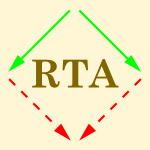 RTA-1989-DarlingtonG #abstraction #evaluation #functional #set #unification
RTA-1989-DarlingtonG #abstraction #evaluation #functional #set #unification- Narrowing and Unification in Functional Programming — An Evaluation Mechanism for Absolute Set Abstraction (JD, YG), pp. 92–108.
 FPCA-1989-CanningCHOM #bound #morphism #object-oriented #polymorphism
FPCA-1989-CanningCHOM #bound #morphism #object-oriented #polymorphism- F-Bounded Polymorphism for Object-Oriented Programming (PSC, WRC, WLH, WGO, JCM), pp. 273–280.
 FPCA-1989-RufW #functional #logic #nondeterminism #unification
FPCA-1989-RufW #functional #logic #nondeterminism #unification- Nondeterminism and Unification in LogScheme: Integrating Logic and Functional Programming (ER, DW), pp. 327–339.
 CHI-1989-LangeM #object-oriented #reuse
CHI-1989-LangeM #object-oriented #reuse- Some strategies of reuse in an object-oriented programming environment (BML, TGM), pp. 69–73.
 CHI-1989-Neal
CHI-1989-Neal - A system for example-based programming (LRN), pp. 63–68.
 SEKE-1989-ChengHH #object-oriented #visual notation
SEKE-1989-ChengHH #object-oriented #visual notation- Visual Programming in Object-oriented Style (KYC, WHH, MSH), pp. 93–97.
 ECOOP-1989-AttardiBBFG
ECOOP-1989-AttardiBBFG - Metalevel Programming in CLOS (GA, CB, MRB, TF, MG), pp. 243–256.
 ECOOP-1989-GammaWM #case study #integration
ECOOP-1989-GammaWM #case study #integration- Integration of a Programming Environment into ET++ — A Case Study (EG, AW, RM), pp. 283–297.
 ECOOP-1989-MullerP #object-oriented #rest
ECOOP-1989-MullerP #object-oriented #rest- Four Steps and a Rest in Putting an Object-Oriented Programming Environment to Practical Use (GM, AKP), pp. 271–282.
 ECOOP-1989-PunW #design #object-oriented
ECOOP-1989-PunW #design #object-oriented- A Design Method for Object-Oriented Programming (WWYP, RLW), pp. 225–240.
 OOPSLA-1989-BriotC
OOPSLA-1989-BriotC - Programming with Explicit Metaclasses in Smalltalk-80 (JPB, PC), pp. 419–431.
 OOPSLA-1989-CanningCHO #interface #object-oriented
OOPSLA-1989-CanningCHO #interface #object-oriented- Interfaces for Strongly-Typed Object-Oriented Programming (PSC, WRC, WLH, WGO), pp. 457–467.
 OOPSLA-1989-LieberherrR #design #education #object-oriented
OOPSLA-1989-LieberherrR #design #education #object-oriented- Contributions to Teaching Object Oriented Design and Programming (KJL, AJR), pp. 11–22.
 OOPSLA-1989-MadsenM #object-oriented
OOPSLA-1989-MadsenM #object-oriented- Virtual Classes: A Powerful Mechanism in Object-Oriented Programming (OLM, BMP), pp. 397–406.
 OOPSLA-1989-McDonald #algebra #linear #object-oriented
OOPSLA-1989-McDonald #algebra #linear #object-oriented- Object-Oriented Programming for Linear Algebra (JAM), pp. 175–184.
 OOPSLA-1989-ReenskaugS #smalltalk
OOPSLA-1989-ReenskaugS #smalltalk- An Environment for Literate Smalltalk Programming (TR, ALS), pp. 337–345.
 PLDI-1989-HorwatCD #experience #implementation
PLDI-1989-HorwatCD #experience #implementation- Experience with CST: Programming and Implementation (WH, AAC, WJD), pp. 101–109.
 POPL-1989-Parker #partial order
POPL-1989-Parker #partial order- Partial Order Programming (DSPJ), pp. 260–266.
 ESEC-1989-Wordsworth #experience #interface #specification
ESEC-1989-Wordsworth #experience #interface #specification- Practical Experience of Formal Specification: A Programming Interface for Communications (JW), pp. 140–158.
 DAC-1989-PrasitjutrakulK #approach
DAC-1989-PrasitjutrakulK #approach- Path-Delay Constrained Floorplanning: A Mathematical Programming Approach for Initial Placement (SP, WJK), pp. 364–369.
 SOSP-1989-ChaseALLL #network #parallel
SOSP-1989-ChaseALLL #network #parallel- The Amber System: Parallel Programming on a Network of Multiprocessors (JSC, FGA, EDL, HML, RJL), pp. 147–158.
 CCIPL-1989-GiacaloneMP #concurrent #functional #integration #named #symmetry
CCIPL-1989-GiacaloneMP #concurrent #functional #integration #named #symmetry- FACILE: A Symmetric Integration of Concurrent and Functional Programming (AG, PM, SP), pp. 184–209.
 NACLP-1989-FosterT #named #parallel
NACLP-1989-FosterT #named #parallel- Strand: A Practical Parallel Programming Tool (ITF, ST), pp. 497–512.
 NACLP-1989-JayaramanP #equation #set
NACLP-1989-JayaramanP #equation #set- Programming with Equations, Subsets, and Relations (BJ, DAP), pp. 1051–1068.
 NACLP-1989-Lakhotia #prolog #source code
NACLP-1989-Lakhotia #prolog #source code- Incorporating “Programming Techniques” into Prolog Programs (AL), pp. 426–440.
 TAV-1989-RichardsonAO #process #testing
TAV-1989-RichardsonAO #process #testing- Integrating Testing Techniques Through Process Programming (DJR, SLA, LJO), pp. 219–228.
 SIGMOD-1988-GyssensG #algebra #relational #set
SIGMOD-1988-GyssensG #algebra #relational #set- The Powerset Algebra as a Result of Adding Programming Constructs to the Nested Relational Algebra (MG, DVG), pp. 225–232.
 ICALP-1988-Bodlaender #bound #graph
ICALP-1988-Bodlaender #bound #graph- Dynamic Programming on Graphs with Bounded Treewidth (HLB), pp. 105–118.
 LFP-1988-AdamsR #object-oriented
LFP-1988-AdamsR #object-oriented- Object-Oriented Programming in Scheme (NA, JR), pp. 277–288.
 ECOOP-1988-MadsenM #object-oriented #what
ECOOP-1988-MadsenM #object-oriented #what- What Object-Oriented Programming May Be — and What It Does Not Have To Be (OLM, BMP), pp. 1–20.
 ECOOP-1988-Sorgaard #object-oriented
ECOOP-1988-Sorgaard #object-oriented- Object-Oriented Programming and Computerised Shared Material (PS), pp. 319–334.
 OOPSLA-1988-IngallsWCLD #named #visual notation
OOPSLA-1988-IngallsWCLD #named #visual notation- Fabrik: A Visual Programming Environment (DI, SW, YYC, FL, KD), pp. 176–190.
 OOPSLA-1988-KimBCGWB #database #object-oriented
OOPSLA-1988-KimBCGWB #database #object-oriented- Integrating an Object-Oriented Programming System with a Database System (WK, NB, HTC, JFG, DW, JB), pp. 142–152.
 OOPSLA-1988-LieberherrHR #object-oriented
OOPSLA-1988-LieberherrHR #object-oriented- Object-Oriented Programming: An Objective Sense of Style (KJL, IMH, AJR), pp. 323–334.
 OOPSLA-1988-ThomasJ #configuration management #named
OOPSLA-1988-ThomasJ #configuration management #named- Orwell — A Configuration Management System for Team Programming (DAT, KJ), pp. 135–141.
 ALP-1988-JouannaudKKM #named
ALP-1988-JouannaudKKM #named- OBJ: Programming with Equalities, Subsorts, Overloading and Parameterization (JPJ, CK, HK, AM), pp. 41–52.
 PLDI-1988-PallasU #case study #multi #smalltalk
PLDI-1988-PallasU #case study #multi #smalltalk- Multiprocessor Smalltalk: A Case Study of a Multiprocessor-Based Programming Environment (JP, DU), pp. 268–277.
 PLILP-1988-YamashitaN #paradigm
PLILP-1988-YamashitaN #paradigm- Coupled Contex-Free Grammar As a Programming Paradigm (YY, IN), pp. 132–145.
 ICSE-1988-BarbacciWW
ICSE-1988-BarbacciWW - Programming at the Processor-Memory-Switch Level (MB, CBW, JMW), pp. 19–29.
 ICSE-1988-Barstow #automation #implementation
ICSE-1988-Barstow #automation #implementation- Automatic Programming for Streams II: Transformational Implementation (DRB), pp. 439–447.
 ICSE-1988-TarumiAO #object-oriented #reuse #using
ICSE-1988-TarumiAO #object-oriented #reuse #using- A Programming Environment Supporting Reuse of Object-Oriented Software (HT, KA, YO), pp. 265–273.
 CCHSC-1988-Mughal #generative #incremental #thread
CCHSC-1988-Mughal #generative #incremental #thread- Generation of Incremental Indirect Threaded Code for Language-Based Programming Environments (KAM), pp. 230–242.
 PPEALS-1988-BershadLLW #parallel
PPEALS-1988-BershadLLW #parallel- An Open Environment for Building Parallel Programming Systems (BNB, EDL, HML, DBW), pp. 1–9.
 PPEALS-1988-LeBlancSB #experience #parallel #scalability
PPEALS-1988-LeBlancSB #experience #parallel #scalability- Large-Scale Parallel Programming: Experience with the BBN Butterfly Parallel Processor (TJL, MLS, CMB), pp. 161–172.
 ESOP-1988-BahlkeS #formal method #interactive
ESOP-1988-BahlkeS #formal method #interactive- The PSG System: From Formal Language Definitions to Interactive Programming Environments (RB, GS), pp. 374–375.
 ESOP-1988-KaplanK #abstraction #concurrent #graph #named
ESOP-1988-KaplanK #abstraction #concurrent #graph #named- Garp: Graph Abstractions for Concurrent Programming (SMK, GEK), pp. 191–205.
 ESOP-1988-Legrand #functional #towards
ESOP-1988-Legrand #functional #towards- Extending Functional Programming Towards Relations (RL), pp. 206–220.
 ESOP-1988-MartelliR #prolog
ESOP-1988-MartelliR #prolog- Enhancing Prolog to Support Prolog Programming Environments (AM, GR), pp. 317–327.
 ESOP-1988-Parigot #higher-order #proving #type system
ESOP-1988-Parigot #higher-order #proving #type system- Programming with Proofs: A Second Order Type Theory (MP), pp. 145–159.
 JICSCP-1988-BoscoCM88 #functional #logic #power of
JICSCP-1988-BoscoCM88 #functional #logic #power of- Exploiting the Full Power of Logic Plus Functional Programming (PGB, CC, CM), pp. 3–17.
 SIGMOD-1987-RichardsonC #database #implementation
SIGMOD-1987-RichardsonC #database #implementation- Programming Constructs for Database System Implementation in EXODUS (JER, MJC), pp. 208–219.
 VDME-1987-MinkowitzH #object-oriented #using
VDME-1987-MinkowitzH #object-oriented #using- A Formal Description of Object-Oriented Programming Using VDM (CM, PBH), pp. 237–259.
 FPCA-1987-GautierG #declarative #named #realtime
FPCA-1987-GautierG #declarative #named #realtime- SIGNAL: A declarative language for synchronous programming of real-time systems (TG, PLG), pp. 257–277.
 FPCA-1987-JayaramanP #functional #set
FPCA-1987-JayaramanP #functional #set- Functional programming with sets (BJ, DAP), pp. 194–211.
 FPCA-1987-Johnsson #attribute grammar #functional #paradigm
FPCA-1987-Johnsson #attribute grammar #functional #paradigm- Attribute grammars as a functional programming paradigm (TJ), pp. 154–173.
 FPCA-1987-Wise #algebra #matrix
FPCA-1987-Wise #algebra #matrix- Matrix algebra and applicative programming (DSW), pp. 134–153.
 HCI-CE-1987-GlinertGS #approach #problem #visual notation
HCI-CE-1987-GlinertGS #approach #problem #visual notation- An Integrated Approach to Solving Visual Programming’s Problems (EPG, JG, CDS), pp. 341–348.
 ECOOP-1987-BecksteinGT #named
ECOOP-1987-BecksteinGT #named- FORK: A System for Object- and Rule-Oriented Programming (CB, GG, MT), pp. 253–264.
 ECOOP-1987-DucournauH #algorithm #inheritance #multi #object-oriented #on the
ECOOP-1987-DucournauH #algorithm #inheritance #multi #object-oriented #on the- On Some Algorithms for Multiple Inheritance in Object-Oriented Programming (RD, MH), pp. 243–252.
 ECOOP-1987-Stroustrup #object-oriented #what
ECOOP-1987-Stroustrup #object-oriented #what- What is “Object-Oriented Programming?” (BS), pp. 51–70.
 OOPSLA-1987-KaiserG #data flow #object-oriented
OOPSLA-1987-KaiserG #data flow #object-oriented- MELDing Data Flow and Object-Oriented Programming (GEK, DG), pp. 254–267.
 OOPSLA-1987-KempfS #education #object-oriented
OOPSLA-1987-KempfS #education #object-oriented- Teaching Object-Oriented Programming with the KEE System (RK, MS), pp. 11–25.
 OOPSLA-1987-KerrP #analysis #object-oriented #using
OOPSLA-1987-KerrP #analysis #object-oriented #using- Use of Object-Oriented Programming in a Time Series Analysis System (RKK, DBP), pp. 1–10.
 OOPSLA-1987-Lucco #parallel
OOPSLA-1987-Lucco #parallel- Parallel Programming in a Virtual Object Space (SL), pp. 26–34.
 OOPSLA-1987-MinskyR #approach #object-oriented
OOPSLA-1987-MinskyR #approach #object-oriented- A Law-Based Approach to Object-Oriented Programming (NHM, DR), pp. 482–493.
 OOPSLA-1987-OBrienHK
OOPSLA-1987-OBrienHK - The Trellis Programming Environment (PDO, DCH, MFK), pp. 91–102.
 OOPSLA-1987-Seidewitz #ada #object-oriented #smalltalk
OOPSLA-1987-Seidewitz #ada #object-oriented #smalltalk- Object-Oriented Programming in Smalltalk and ADA (ES), pp. 202–213.
 PLDI-1987-Robison #functional #interpreter
PLDI-1987-Robison #functional #interpreter- The Illinois functional programming interpreter (ADR), pp. 64–73.
 POPL-1987-AptFK #distributed
POPL-1987-AptFK #distributed- Appraising Fairness in Languages for Distributed Programming (KRA, NF, SK), pp. 189–198.
 POPL-1987-CaspiPHP #declarative #named
POPL-1987-CaspiPHP #declarative #named- Lustre: A Declarative Language for Programming Synchronous Systems (PC, DP, NH, JP), pp. 178–188.
 ESEC-1987-Donzeau-GougeDFJ #development
ESEC-1987-Donzeau-GougeDFJ #development- Development of a Programming Environment for Setl (VDG, CD, PF, FJ), pp. 21–32.
 ESEC-1987-Poncet #design #development #named #specification
ESEC-1987-Poncet #design #development #named #specification- SADL: A Software Development Environment for Software Specification, Design and Programming (FP), pp. 3–11.
 ICSE-1987-FutatsugiGMO
ICSE-1987-FutatsugiGMO - Parameterized Programming in OBJ2 (KF, JAG, JM, KO), pp. 51–60.
 ICSE-1987-Hosier #realtime
ICSE-1987-Hosier #realtime- Pitfalls and Safeguards in Real-Time Digital Systems with Emphasis on Programming (WAH), pp. 311–327.
 ICSE-1987-Lehman #modelling #process #source code
ICSE-1987-Lehman #modelling #process #source code- Process Models, Process Programs, Programming Support (MML), pp. 14–16.
 ICSE-1987-Reiss #concept
ICSE-1987-Reiss #concept- A Conceptual Programming Environment (SPR), pp. 225–237.
 ICSE-1987-SchwanRVO #parallel
ICSE-1987-SchwanRVO #parallel- A System for Parallel Programming (KS, RR, SV, DMO), pp. 270–285.
 ASPLOS-1987-BisianiF #architecture #parallel
ASPLOS-1987-BisianiF #architecture #parallel- Architectural Support for Multilanguage Parallel Programming on Heterogeneous Systems (RB, AF), pp. 21–30.
 DAC-1987-Krishnamurthy #approach #problem
DAC-1987-Krishnamurthy #approach #problem- A Dynamic Programming Approach to the Test Point Insertion Problem (BK), pp. 695–705.
 SOSP-1987-ChangM #architecture
SOSP-1987-ChangM #architecture- 801 Storage: Architecture and Programming (AC, MFM), pp. 109–110.
 AF-1987-GoguenM #logic #modelling #similarity
AF-1987-GoguenM #logic #modelling #similarity- Models and Equality for Logical Programming (JAG, JM), pp. 1–22.
 STOC-1987-Vaidya #algorithm #linear
STOC-1987-Vaidya #algorithm #linear- An Algorithm for Linear Programming which Requires O(((m+n)n^2 + (m+n)^1.5 n)L) Arithmetic Operations (PMV), pp. 29–38.
 CSL-1987-Dahlhaus #approach #parallel
CSL-1987-Dahlhaus #approach #parallel- Is SETL a Suitable Language for Parallel Programming — A Theoretical Approach (ED), pp. 56–63.
 ICLP-1987-Bacha87 #approach
ICLP-1987-Bacha87 #approach- Meta-Level Programming: A Compiled Approach (HB), pp. 394–410.
 LICS-1987-Emden #first-order #functional #logic #relational
LICS-1987-Emden #first-order #functional #logic #relational- First-order Predicate Logic as a Common Basis for Relational and Functional Programming (MHvE), p. 179.
 SLP-1987-OkumuraM87 #parallel
SLP-1987-OkumuraM87 #parallel- Parallel Programming with Layered Streams (AO, YM), pp. 224–232.
 LFP-1986-BoehmCRO #case study #higher-order
LFP-1986-BoehmCRO #case study #higher-order- Exact Real Arithmetic: A Case Study in Higher Order Programming (HJB, RC, MR, MJO), pp. 162–173.
 LFP-1986-GiffordL #functional #imperative
LFP-1986-GiffordL #functional #imperative- Integrating Functional and Imperative Programming (DKG, JML), pp. 28–38.
 OOPSLA-1986-BobrowKKMSZ #lisp #named #object-oriented
OOPSLA-1986-BobrowKKMSZ #lisp #named #object-oriented- CommonLoops: Merging Lisp and Object-Oriented Programming (DGB, KMK, GK, LM, MS, FZ), pp. 17–29.
 OOPSLA-1986-Cargill #case study #named #object-oriented
OOPSLA-1986-Cargill #case study #named #object-oriented- Pi: A Case Study in Object-Oriented Programming (TAC), pp. 350–360.
 OOPSLA-1986-Moon #object-oriented
OOPSLA-1986-Moon #object-oriented- Object-Oriented Programming with Flavors (DAM), pp. 1–8.
 OOPSLA-1986-Olthoff #concept #data type #experience #object-oriented #type system
OOPSLA-1986-Olthoff #concept #data type #experience #object-oriented #type system- Augmentation of Object-Oriented Programming by Concepts of Abstract Data Type Theory: The ModPascal Experience (WGO), pp. 429–443.
 OOPSLA-1986-YonezawaBS #concurrent #object-oriented
OOPSLA-1986-YonezawaBS #concurrent #object-oriented- Object-Oriented Concurrent Programming in ABCL/1 (AY, JPB, ES), pp. 258–268.
 CRAI-1986-Mitchell #ada #multi
CRAI-1986-Mitchell #ada #multi- Engineering VAX Ada for a Multi-Language Programming Environment (CZM), pp. 30–47.
 POPL-1986-HudakS #multi #paradigm
POPL-1986-HudakS #multi #paradigm- Para-Functional Programming: A Paradigm for Programming Multiprocessor Systems (PH, LS), pp. 243–254.
 POPL-1986-Kurki-Suonio #towards
POPL-1986-Kurki-Suonio #towards- Towards Programming with Knowledge Expressions (RKS), pp. 140–149.
 POPL-1986-RamakrishnanS #distributed #logic
POPL-1986-RamakrishnanS #distributed #logic- Annotations for Distributed Programming in Logic (RR, AS), pp. 255–262.
 ESOP-1986-Bellot #combinator #functional #named #reduction
ESOP-1986-Bellot #combinator #functional #named #reduction- GRAAL: A Functional Programming System with Uncurryfied Combinators and its Reduction Machine (PB), pp. 82–98.
 STOC-1986-KapoorV #algorithm #multi #performance #polynomial
STOC-1986-KapoorV #algorithm #multi #performance #polynomial- Fast Algorithms for Convex Quadratic Programming and Multicommodity Flows (SK, PMV), pp. 147–159.
 STOC-1986-LuekerMR #difference #linear
STOC-1986-LuekerMR #difference #linear- Linear Programming with Two Variables per Inequality in Poly-Log Time (GSL, NM, VR), pp. 196–205.
 CADE-1986-Gibert #combinator #functional
CADE-1986-Gibert #combinator #functional- The J-Machine: Functional Programming with Combinators (JG), pp. 683–684.
 ICLP-1986-Abdallah86
ICLP-1986-Abdallah86 - Procedures in Horn-Clause Programming (MANA), pp. 433–447.
 ICLP-1986-Chikayama86 #architecture #implementation #prolog
ICLP-1986-Chikayama86 #architecture #implementation #prolog- Prolog Programming Environments: Architecture and Implementation (TC), pp. 552–553.
 LICS-1986-Robinson #functional #reduction #relational
LICS-1986-Robinson #functional #reduction #relational- Merging Functional with Relational Programming in a Reduction Setting (JAR), p. 2.
 VLDB-1985-Rowe
VLDB-1985-Rowe - “Fill-in-the-Form” Programming (LAR), pp. 394–404.
 FPCA-1985-AbramskyS85 #named #virtual machine
FPCA-1985-AbramskyS85 #named #virtual machine- Secd-m: a Virtual Machine for Applicative Programming (SA, RS), pp. 81–98.
 FPCA-1985-Bellot85 #higher-order
FPCA-1985-Bellot85 #higher-order- High Order Programming in Extended FP (PB), pp. 65–80.
 POPL-1985-HudakB #functional #problem
POPL-1985-HudakB #functional #problem- The Aggregate Update Problem in Functional Programming Systems (PH, AB), pp. 300–314.
 POPL-1985-Lindstrom #functional #logic
POPL-1985-Lindstrom #functional #logic- Functional Programming and the Logical Variable (GL), pp. 266–280.
 ICSE-1985-Chen #development #formal method #functional #implementation
ICSE-1985-Chen #development #formal method #functional #implementation- Extending the Implementation Scheme of Functional Programming System FP for Supporting the Formal Software Development Methodology (QC), pp. 50–54.
 ICSE-1985-HattoriKW #ada #comparison #lisp #prolog
ICSE-1985-HattoriKW #ada #comparison #lisp #prolog- A Comparison of Lisp, Prolog, and Ada Programming Productivity an AI Areas (FH, KK, TW), pp. 285–291.
 ICSE-1985-Madhavji
ICSE-1985-Madhavji - Operations for Programming in the All (NHM), pp. 15–25.
 AS-1985-ScherlisS #semantics #summary #tool support
AS-1985-ScherlisS #semantics #summary #tool support- Semantically Based Programming Tools (Summary) (WLS, DSS), pp. 52–59.
 CSE-1985-AlwsG #case study #experience #object-oriented
CSE-1985-AlwsG #case study #experience #object-oriented- Experiences with Object Oriented Programming (KHA, IGS), pp. 435–452.
 CSE-1985-EngelsS #development #grammarware #graph grammar
CSE-1985-EngelsS #development #grammarware #graph grammar- Graph Grammar Engineering: A Method Used for the Development of an Integrated Programming Support Environment (GE, WS), pp. 179–193.
 CSE-1985-Snelting #case study #experience #generative
CSE-1985-Snelting #case study #experience #generative- Experiences with the PSG - Programming System Generator (GS), pp. 148–162.
 CSE-1985-YonezawaM #concurrent #industrial #object-oriented
CSE-1985-YonezawaM #concurrent #industrial #object-oriented- Object Oriented Concurrent Programming and Industrial Software Production (AY, YM), pp. 395–409.
 SLP-1985-ChomickiM85 #prolog #scalability #source code #towards
SLP-1985-ChomickiM85 #prolog #scalability #source code #towards- Towards a Programming Environment for Large Prolog Programs (JC, NHM), pp. 230–241.
 SLP-1985-SrivastavaOS85 #functional #integration #logic
SLP-1985-SrivastavaOS85 #functional #integration #logic- An(other) Integration of Logic and Functional Programming (AS, DO, AS), pp. 254–260.
 SLP-1985-UmrigarP85 #empirical #first-order #logic
SLP-1985-UmrigarP85 #empirical #first-order #logic- An Experiment in Programming with Full First-Order Logic (ZDU, VP), pp. 40–47.
 SIGMOD-1984-Hall #algebra #functional #logic #relational
SIGMOD-1984-Hall #algebra #functional #logic #relational- Relational Algebras, Logic, and Functional Programming (PAVH), pp. 326–333.
 POPL-1984-Grabowski #logic #on the
POPL-1984-Grabowski #logic #on the- On Relative Completeness of Programming Logics (MG), pp. 258–261.
 POPL-1984-Johnson #design
POPL-1984-Johnson #design- Applicative Programming and Digital Design (SDJ), pp. 218–227.
 POPL-1984-Shapiro #concurrent #prolog
POPL-1984-Shapiro #concurrent #prolog- Systems Programming in Concurrent Prolog (EYS), pp. 93–105.
 SCC-1984-ChristopherHK #code generation #using
SCC-1984-ChristopherHK #code generation #using- Using dynamic programming to generate optimized code in a Graham-Glanville style code generator (TWC, PJH, RCK), pp. 25–36.
 ICSE-1984-Boydston #question
ICSE-1984-Boydston #question- Programming Cost Estimate: Is It Reasonable? (REB), pp. 153–161.
 ICSE-1984-GuyardJ #named
ICSE-1984-GuyardJ #named- MAIDAY: An Environment for Guided Programming (JG, JPJ), pp. 126–137.
 ICSE-1984-LucenaMVC #problem
ICSE-1984-LucenaMVC #problem- The Data Transform Programming Metho: An Example for File Processing Problems (CJPdL, RCBM, PASV, DDC), pp. 388–397.
 ICSE-1984-TaylorS #ada
ICSE-1984-TaylorS #ada- Steps to an Advanced Ada Programming Environment (RNT, TAS), pp. 116–125.
 ICSE-1984-ToriiMSK #analysis #functional #logic #problem
ICSE-1984-ToriiMSK #analysis #functional #logic #problem- Functional Programming and Logical Programming for the Telegram Analysis Problem (KT, YM, YS, TK), pp. 463–472.
 ICSE-1984-VosburghCWAMHL
ICSE-1984-VosburghCWAMHL - Productivity Factors and Programming Environments (JV, BC, RW, BA, HM, SH, YL), pp. 143–152.
 STOC-1984-Karmarkar #algorithm #linear #polynomial
STOC-1984-Karmarkar #algorithm #linear #polynomial- A New Polynomial-Time Algorithm for Linear Programming (NK), pp. 302–311.
 CADE-1984-Schmidt #reasoning
CADE-1984-Schmidt #reasoning- A Programming Notation for Tactical Reasoning (DAS), pp. 445–459.
 SLP-1984-BroughE84 #data flow #logic
SLP-1984-BroughE84 #data flow #logic- Dataflow, Flowcharts, and “LUCID”-style Programming in Logic (DRB, MHvE), pp. 252–258.
 SLP-1984-Carlsson84 #functional #implementation #on the #prolog
SLP-1984-Carlsson84 #functional #implementation #on the #prolog- On Implementing Prolog in Functional Programming (MC), pp. 154–159.
 SLP-1984-Gelernter84 #concurrent #prolog
SLP-1984-Gelernter84 #concurrent #prolog- A Note on Systems Programming in Concurrent Prolog (DG), pp. 76–82.
 SLP-1984-Zaniolo84 #object-oriented #prolog
SLP-1984-Zaniolo84 #object-oriented #prolog- Object-Oriented Programming in Prolog (CZ), pp. 265–270.
 ICALP-1983-BrookesR #behaviour #equivalence #logic
ICALP-1983-BrookesR #behaviour #equivalence #logic- Behavioural Equivalence Relations Induced by Programming Logics (SDB, WCR), pp. 97–108.
 Ada-1983-Hall #ada #database #development
Ada-1983-Hall #ada #database #development- Databases in Software Development: The Ada Programming Support Environment (JAH), pp. 115–132.
 POPL-1983-BonarS
POPL-1983-BonarS - Uncovering Principles of Novice Programming (JB, ES), pp. 10–13.
 POPL-1983-Paige #algorithm
POPL-1983-Paige #algorithm- Transformational Programming — Applications to Algorithms and Systems (RP), pp. 73–87.
 POPL-1983-Pratt #data flow #design #paradigm
POPL-1983-Pratt #data flow #design #paradigm- Five Paradigm Shifts in Language Design and their Realization in Viron, a Dataflow Programming Environment (VRP), pp. 1–9.
 DAC-1983-Bassett
DAC-1983-Bassett - Computer Aided Programming (PB), pp. 527–529.
 DAC-1983-Drier
DAC-1983-Drier - Simplification of CNC programming for PWB routing (JD), p. 448.
 STOC-1983-Kannan #algorithm #integer #problem
STOC-1983-Kannan #algorithm #integer #problem- Improved Algorithms for Integer Programming and Related Lattice Problems (RK), pp. 193–206.
 LFP-1982-Bohm #combinator #functional
LFP-1982-Bohm #combinator #functional- Combinatory Foundation of Functional Programming (CB), pp. 29–36.
 POPL-1982-LiptonSV #aspect-oriented
POPL-1982-LiptonSV #aspect-oriented- Programming Aspects of VLSI (RJL, RS, JV), pp. 57–65.
 ICSE-1982-BarstowDSV #automation
ICSE-1982-BarstowDSV #automation- An Automatic Programming System to Support an Experimental Science (DRB, RD, SWS, SV), pp. 360–366.
 ICSE-1982-ManoOT #case study #experience #multi
ICSE-1982-ManoOT #case study #experience #multi- Early Experiences with a Multi-Display Programming Environment (YM, KO, KT), pp. 422–423.
 ICSE-1982-Wertz #design #incremental #interactive
ICSE-1982-Wertz #design #incremental #interactive- The Design of an Integrated, Interactive and Incremental Programming Environment (HW), pp. 157–165.
 ILPC-1982-Eshghi82 #fault #logic #metalanguage
ILPC-1982-Eshghi82 #fault #logic #metalanguage- Application of Meta-language Programming to Fault Finding in Logic Circuits (KE), pp. 240–246.
 ILPC-1982-FurukawaNM82 #concurrent #interpreter #prolog
ILPC-1982-FurukawaNM82 #concurrent #interpreter #prolog- Prolog Interpreter Based on Concurrent Programming (KF, KN, YM), pp. 38–44.
 ILPC-1982-MarkuszK82 #design #prolog
ILPC-1982-MarkuszK82 #design #prolog- A Design Methodology in Prolog Programming (ZM, AAK), pp. 139–145.
 ILPC-1982-Porto82 #logic #named
ILPC-1982-Porto82 #logic #named- Epilog: A Language for Extended Programming in Logic (AP), pp. 31–37.
 ICALP-1981-BergstraT #algebra #hoare #logic
ICALP-1981-BergstraT #algebra #hoare #logic- Algebraically Specified Programming Systems and Hoare’s Logic (JAB, JVT), pp. 348–362.
 POPL-1981-Chandra #database
POPL-1981-Chandra #database- Programming Primitives for Database Languages (AKC), pp. 50–62.
 ICSE-1981-CunhaM #data type
ICSE-1981-CunhaM #data type- Resource = Abstract Data Type + Synchronization — A Methodology for Message Oriented Programming (PRFC, TSEM), pp. 263–272.
 ICSE-1981-FeilerM #incremental
ICSE-1981-FeilerM #incremental- An Incremental Programming Environment (PHF, RMM), pp. 44–53.
 ICSE-1981-Huff #configuration management #database #effectiveness
ICSE-1981-Huff #configuration management #database #effectiveness- A Database Model for Effective Configuration Management in the Programming Environment (KEH), pp. 54–62.
 ICSE-1981-Katayama #attribute grammar #functional #named
ICSE-1981-Katayama #attribute grammar #functional #named- HFP: A Hierarchical and Functional Programming Based on Attribute Grammar (TK), pp. 343–353.
 LISP-1980-GoldsteinB #object-oriented #smalltalk
LISP-1980-GoldsteinB #object-oriented #smalltalk- Extenting Object Oriented Programming in Smalltalk (IPG, DGB), pp. 75–81.
 POPL-1980-FriedmanW
POPL-1980-FriedmanW - An Indeterminate Constructor for Applicative Programming (DPF, DSW), pp. 245–250.
 STOC-1980-Reif #logic #probability
STOC-1980-Reif #logic #probability- Logics for Probabilistic Programming (JHR), pp. 8–13.
 STOC-1980-Yao #performance #using
STOC-1980-Yao #performance #using- Efficient Dynamic Programming Using Quadrangle Inequalities (FFY), pp. 429–435.
 VLDB-1979-Date #database #tutorial
VLDB-1979-Date #database #tutorial- Locking and Recovery in a Shared Database System: An Application Programming Tutorial (CJD), pp. 1–15.
 POPL-1979-CartwrightM #first-order #logic
POPL-1979-CartwrightM #first-order #logic- First Order Programming Logic (RC, JM), pp. 68–80.
 SCC-1979-Kahrs #implementation #interactive
SCC-1979-Kahrs #implementation #interactive- Implementation of an Interactive Programming System (MK), pp. 76–82.
 ICSE-1979-JefferyL #comparison
ICSE-1979-JefferyL #comparison- An Inter-Organizational Comparison of Programming Productivity (DRJ, MJL), pp. 369–377.
 VDM-1978-Bjorner #metalanguage #tutorial
VDM-1978-Bjorner #metalanguage #tutorial- Programming in the META-Language: A Tutorial (DB), pp. 24–217.
 POPL-1978-Ingalls
POPL-1978-Ingalls - The Smalltalk-76 Programming System (DI), pp. 9–16.
 POPL-1978-Reif #analysis #linear
POPL-1978-Reif #analysis #linear- Symbolic Programming Analysis in Almost Linear Time (JHR), pp. 76–83.
 ICSE-1978-VleckC #multi #process
ICSE-1978-VleckC #multi #process- The Multics System Programming Process (THVV, CTC), pp. 278–280.
 VLDB-1977-Su
VLDB-1977-Su - Associative Programming in CASSM and its Applications (SYWS), pp. 213–228.
 POPL-1977-Pratt #performance
POPL-1977-Pratt #performance- The Competence/Performance Dichotomy in Programming (VRP), pp. 194–200.
 STOC-1977-Constable #formal method #logic #on the
STOC-1977-Constable #formal method #logic #on the- On the Theory of Programming Logics (RLC), pp. 269–285.
 STOC-1977-LynchB #performance
STOC-1977-LynchB #performance- Efficient Reducibility Between Programming Systems: Preliminary Report (NAL, EKB), pp. 228–238.
 STOC-1977-Rosenthal
STOC-1977-Rosenthal - Nonserial Dynamic Programming Is Optimal (AR), pp. 98–105.
 ICALP-1976-Galil #integer #on the #proving #theorem proving
ICALP-1976-Galil #integer #on the #proving #theorem proving- On Enumeration Procedures for Theorem Proving and for Integer Programming (ZG), pp. 355–381.
 POPL-1976-Kosinski #data flow #semantics
POPL-1976-Kosinski #data flow #semantics- Mathematical Semantics and Data Flow Programming (PRK), pp. 175–184.
 ICSE-1976-BalzerGW #approach #implementation #on the
ICSE-1976-BalzerGW #approach #implementation #on the- On the Transformational Implementation Approach to Programming (RB, NMG, DSW), pp. 337–344.
 ICSE-1976-Bauer #process
ICSE-1976-Bauer #process- Programming as an Evolutionary Process (FLB), pp. 223–234.
 ICSE-1976-Carrow #theory and practice
ICSE-1976-Carrow #theory and practice- Structured Programming: From Theory to Practice (JCC), pp. 370–372.
 ICSE-1976-GerhartY #abstraction #backtracking
ICSE-1976-GerhartY #abstraction #backtracking- Control Structure Abstractions of the Backtracking Programming Technique (SLG, LY), p. 391.
 ICSE-1976-Jazayeri #automation #specification
ICSE-1976-Jazayeri #automation #specification- Formal Specification and Automatic Programming (MJ), pp. 293–296.
 ICSE-1976-LewT #reliability
ICSE-1976-LewT #reliability- Decision Table Programming and Reliability (AL, DT), pp. 345–349.
 ICSE-1976-Miyamoto #database
ICSE-1976-Miyamoto #database- Some Considerations in Database Application Programming (IM), pp. 545–555.
 ICSE-1976-Wexelblat #design #how
ICSE-1976-Wexelblat #design #how- Maxims for Malfeasant Designers, or How to Design Languages to Make Programming as Difficult as Possible (RLW), pp. 331–336.
 ICSE-1976-Wilkes #re-engineering
ICSE-1976-Wilkes #re-engineering- Software Engineering and Structured Programming (MVW), p. 387.
 DAC-1976-JonesN #assessment
DAC-1976-JonesN #assessment- A quantitative assessment of IBM’s programming productivity techniques (LCJ, DAN), pp. 344–353.
 DAC-1976-VeldermanPM #approach #interactive
DAC-1976-VeldermanPM #approach #interactive- An approach to interactive graphic programming (PV, GFP, PJM), pp. 366–370.
 ICALP-1974-MartelliM
ICALP-1974-MartelliM - Dynamic Programming Schemata (AM, UM), pp. 66–80.
 DAC-1974-Los #approach #combinator #optimisation
DAC-1974-Los #approach #combinator #optimisation- A combinatorial programming approach to the joint optimization of land use and transportation (ML), pp. 220–228.
 DAC-1973-Bernstein #fortran #independence
DAC-1973-Bernstein #fortran #independence- Programming for FORTRAN compatibility and machine independence (SB), pp. 68–78.
 ICALP-1972-Schnorr #question
ICALP-1972-Schnorr #question- Does the Computational Speed-up Concern Programming? (CPS), pp. 585–591.
 SOSP-1969-Neumann #women
SOSP-1969-Neumann #women- The role of motherhood in the pop art of system programming (PGN), pp. 13–18.
 DAC-1968-Lewis #backtracking #design
DAC-1968-Lewis #backtracking #design- Backtrack programming in welded girder design (ADML).
 DAC-1967-Richards #automation #equation #logic #named #simulation
DAC-1967-Richards #automation #equation #logic #named #simulation- SWAP — a programming system for automatic simulation, wiring and placement of logical equations (DLR).
 DAC-1967-RossST #design #interface #multi
DAC-1967-RossST #design #interface #multi- The design and programming of a display interface system integrating multi-access and satellite computers (DTR, RHS, DET).
 SHARE-1966-Breuer #automation #design #integer
SHARE-1966-Breuer #automation #design #integer- The application of integer programming in design automation (MAB).
 PADL-2020-ChanC #distance #edit distance #flexibility #graph #set #using
PADL-2020-ChanC #distance #edit distance #flexibility #graph #set #using PADL-2020-ErwigKF
PADL-2020-ErwigKF  PADL-2020-NguyenZJXD #artificial reality #learning #named #set
PADL-2020-NguyenZJXD #artificial reality #learning #named #set ASPLOS-2020-HildebrandKTLA #automation #integer #linear #memory management #named #using
ASPLOS-2020-HildebrandKTLA #automation #integer #linear #memory management #named #using CGO-2020-JavanmardAKPCH #algorithm #compilation #divide and conquer #multi #parametricity #recursion #using
CGO-2020-JavanmardAKPCH #algorithm #compilation #divide and conquer #multi #parametricity #recursion #using EDM-2019-BroisinH #automation #design #evaluation #learning #semantics
EDM-2019-BroisinH #automation #design #evaluation #learning #semantics EDM-2019-EmersonSSRMWMBL #modelling #predict #student
EDM-2019-EmersonSSRMWMBL #modelling #predict #student EDM-2019-MaoZKPBC #predict #student
EDM-2019-MaoZKPBC #predict #student EDM-2019-TaniguchiSK #c #fault #process
EDM-2019-TaniguchiSK #c #fault #process EDM-2019-ZhiMDLPB #data-driven #feedback #towards
EDM-2019-ZhiMDLPB #data-driven #feedback #towards ICPC-2019-KubelkaRB #evolution #live programming
ICPC-2019-KubelkaRB #evolution #live programming ICPC-2019-SilvaR0SPM #mining #recommendation
ICPC-2019-SilvaR0SPM #mining #recommendation ICPC-2019-XieQMZ #learning #named #visual notation
ICPC-2019-XieQMZ #learning #named #visual notation ICSME-2019-SunXCBW0 #graph
ICSME-2019-SunXCBW0 #graph AIIDE-2019-Marino #game studies #learning #realtime #search-based
AIIDE-2019-Marino #game studies #learning #realtime #search-based DiGRA-2019-FukuiIHS #empirical #experience #game studies #social #student
DiGRA-2019-FukuiIHS #empirical #experience #game studies #social #student FDG-2019-JemmaliKBARE #concept #design #game studies #learning #using
FDG-2019-JemmaliKBARE #concept #design #game studies #learning #using FDG-2019-Kao #embedded #java #named
FDG-2019-Kao #embedded #java #named FDG-2019-MacCormickZ #development #game studies #named #using #visual notation
FDG-2019-MacCormickZ #development #game studies #named #using #visual notation FDG-2019-ZhuAFNCSVO #concept #education #game studies #how #parallel
FDG-2019-ZhuAFNCSVO #concept #education #game studies #how #parallel CIKM-2019-MarinR #clustering #semantics
CIKM-2019-MarinR #clustering #semantics ECOOP-2019-EichholzCFSM #how #type safety
ECOOP-2019-EichholzCFSM #how #type safety ECOOP-2019-MukherjeeRGDRLR #framework #reliability #state machine
ECOOP-2019-MukherjeeRGDRLR #framework #reliability #state machine ECOOP-2019-SpringerM #memory management #named #object-oriented #parallel #performance
ECOOP-2019-SpringerM #memory management #named #object-oriented #parallel #performance Onward-2019-Tolpin #probability
Onward-2019-Tolpin #probability OOPSLA-2019-CairesT #refinement #type safety
OOPSLA-2019-CairesT #refinement #type safety OOPSLA-2019-MogkDSM #distributed #fault tolerance #interactive
OOPSLA-2019-MogkDSM #distributed #fault tolerance #interactive OOPSLA-2019-SergeyNJ0TH #contract
OOPSLA-2019-SergeyNJ0TH #contract OOPSLA-2019-SongLO #automation #detection #fault #functional #logic #scalability
OOPSLA-2019-SongLO #automation #detection #fault #functional #logic #scalability PLATEAU-2019-HaoG #question #what
PLATEAU-2019-HaoG #question #what PLATEAU-2019-ZhaoF0I #learning #live programming #network #visualisation
PLATEAU-2019-ZhaoF0I #learning #live programming #network #visualisation PADL-2019-KahramanE #personalisation #set #using
PADL-2019-KahramanE #personalisation #set #using PLDI-2019-Cusumano-Towner #named #probability #programmable
PLDI-2019-Cusumano-Towner #named #probability #programmable PLDI-2019-LeeLLMZ
PLDI-2019-LeeLLMZ  PLDI-2019-PerryKSZ #clustering #imperative #named #semantics
PLDI-2019-PerryKSZ #clustering #imperative #named #semantics POPL-2019-CastroHJNY #api #communication #distributed #parametricity #static typing #using
POPL-2019-CastroHJNY #api #communication #distributed #parametricity #static typing #using POPL-2019-ClairambaultVW #game studies #quantum #semantics
POPL-2019-ClairambaultVW #game studies #quantum #semantics POPL-2019-GorinovaGS #flexibility #performance #probability
POPL-2019-GorinovaGS #flexibility #performance #probability POPL-2019-OmarVCH #functional
POPL-2019-OmarVCH #functional POPL-2019-VakarKS #probability #statistics
POPL-2019-VakarKS #probability #statistics PPDP-2019-ChupinN #functional
PPDP-2019-ChupinN #functional PPDP-2019-Gerard0S #functional #syntax
PPDP-2019-Gerard0S #functional #syntax PPDP-2019-SteenvoordenNK #formal method #named
PPDP-2019-SteenvoordenNK #formal method #named PPDP-2019-Talbot #composition
PPDP-2019-Talbot #composition SAS-2019-YuM #linear #parametricity #performance
SAS-2019-YuM #linear #parametricity #performance ASE-2019-HuAMLR #program repair
ASE-2019-HuAMLR #program repair ASE-2019-KohlerS #automation #refactoring
ASE-2019-KohlerS #automation #refactoring ASE-2019-MichaelDDLS #regular expression #risk management
ASE-2019-MichaelDDLS #regular expression #risk management ASE-2019-VerhaegheFGAD #empirical #interface
ASE-2019-VerhaegheFGAD #empirical #interface ESEC-FSE-2019-DuttaZHM #debugging #named #probability #reduction #testing
ESEC-FSE-2019-DuttaZHM #debugging #named #probability #reduction #testing GPCE-2019-KramerW #c #nondeterminism #parallel
GPCE-2019-KramerW #c #nondeterminism #parallel SLE-2019-JeanjeanCB #domain-specific language #interactive #specification
SLE-2019-JeanjeanCB #domain-specific language #interactive #specification SLE-2019-WeidmannALS #consistency #graph grammar #linear
SLE-2019-WeidmannALS #consistency #graph grammar #linear ASPLOS-2019-Liskov #manycore #named
ASPLOS-2019-Liskov #manycore #named ASPLOS-2019-SchkufzaWR #compilation #experience
ASPLOS-2019-SchkufzaWR #compilation #experience CASE-2019-WannerS #flexibility #polynomial #using
CASE-2019-WannerS #flexibility #polynomial #using ESOP-2019-BiXOS #composition #morphism #polymorphism
ESOP-2019-BiXOS #composition #morphism #polymorphism ESOP-2019-CastellanP #probability #semantics
ESOP-2019-CastellanP #probability #semantics MSR-2018-Rahman #comprehension #process #question
MSR-2018-Rahman #comprehension #process #question SCAM-2018-ShepherdFWFLA #ide
SCAM-2018-ShepherdFWFLA #ide SEFM-2018-HallerstedeHKLL #constraints #specification
SEFM-2018-HallerstedeHKLL #constraints #specification Haskell-2018-SerranoM
Haskell-2018-SerranoM  AIIDE-2018-KantharajuAZCSO #education #game studies #parallel
AIIDE-2018-KantharajuAZCSO #education #game studies #parallel FDG-2018-SmithPV #generative #graph #set #using
FDG-2018-SmithPV #generative #graph #set #using ICML-2018-FranceschiFSGP #optimisation
ICML-2018-FranceschiFSGP #optimisation ICML-2018-MenschB #predict
ICML-2018-MenschB #predict ICML-2018-WalderK #similarity
ICML-2018-WalderK #similarity ICML-2018-WuSHDR #algorithm #probability #semantics
ICML-2018-WuSHDR #algorithm #probability #semantics ICML-2018-YurtseverFLC #framework
ICML-2018-YurtseverFLC #framework ICPR-2018-ZhaoSJ #integer #linear #locality #using
ICPR-2018-ZhaoSJ #integer #linear #locality #using MoDELS-2018-WeckesserLRS #analysis #modelling
MoDELS-2018-WeckesserLRS #analysis #modelling ECOOP-2018-MogkBSFM #distributed #fault tolerance
ECOOP-2018-MogkBSFM #distributed #fault tolerance Onward-2018-MyterSM #distributed
Onward-2018-MyterSM #distributed Onward-2018-OkaMA #data type #visualisation
Onward-2018-OkaMA #data type #visualisation OOPSLA-2018-DesaiPQS #composition #distributed #testing
OOPSLA-2018-DesaiPQS #composition #distributed #testing OOPSLA-2018-DrechslerMSM #thread
OOPSLA-2018-DrechslerMSM #thread OOPSLA-2018-FaesG #object-oriented
OOPSLA-2018-FaesG #object-oriented OOPSLA-2018-LeeSSO #automation #fault #functional #logic
OOPSLA-2018-LeeSSO #automation #fault #functional #logic OOPSLA-2018-LeissaBHPMSMS #framework #library #named #partial evaluation
OOPSLA-2018-LeissaBHPMSMS #framework #library #named #partial evaluation OOPSLA-2018-OttLCLB #named
OOPSLA-2018-OttLCLB #named PLATEAU-2018-SantolucitoGWP #performance
PLATEAU-2018-SantolucitoGWP #performance PLATEAU-2018-UesbeckS #database #random
PLATEAU-2018-UesbeckS #database #random PLDI-2018-AcharyaB0 #integer #linear
PLDI-2018-AcharyaB0 #integer #linear PLDI-2018-GulwaniRZ #automation #clustering #program repair
PLDI-2018-GulwaniRZ #automation #clustering #program repair PLDI-2018-MansinghkaSHRCR #probability #programmable
PLDI-2018-MansinghkaSHRCR #probability #programmable PLDI-2018-WangSS #data-driven #feedback #generative
PLDI-2018-WangSS #data-driven #feedback #generative POPL-2018-EhrhardPT #higher-order #probability
POPL-2018-EhrhardPT #higher-order #probability POPL-2018-KoH #axiom #bidirectional
POPL-2018-KoH #axiom #bidirectional POPL-2018-SergeyWT #distributed #protocol #proving
POPL-2018-SergeyWT #distributed #protocol #proving ASE-2018-FanSCMLXP #android #fault
ASE-2018-FanSCMLXP #android #fault ASE-2018-SteinCSC #refinement
ASE-2018-SteinCSC #refinement ESEC-FSE-2018-BaoXX0L #interactive #named
ESEC-FSE-2018-BaoXX0L #interactive #named ESEC-FSE-2018-DuttaLHM #probability #testing
ESEC-FSE-2018-DuttaLHM #probability #testing CASE-2018-CuiZFKM #kernel #policy
CASE-2018-CuiZFKM #kernel #policy CASE-2018-VijayaraghavanK #evaluation #integer #linear #recursion #reduction #reliability
CASE-2018-VijayaraghavanK #evaluation #integer #linear #recursion #reduction #reliability CASE-2018-YuZZW #layout #problem
CASE-2018-YuZZW #layout #problem CASE-2018-ZhangLFL #integer #linear #sequence #using
CASE-2018-ZhangLFL #integer #linear #sequence #using CGO-2018-AndersonG #polynomial
CGO-2018-AndersonG #polynomial ESOP-2018-Matsuda0 #combinator #lens #named #using
ESOP-2018-Matsuda0 #combinator #lens #named #using CSEET-2017-ScatalonPSBG #design #towards
CSEET-2017-ScatalonPSBG #design #towards CSEET-2017-YangLC #evaluation #object-oriented #visualisation
CSEET-2017-YangLC #evaluation #object-oriented #visualisation EDM-2017-Albrecht #estimation #framework #student
EDM-2017-Albrecht #estimation #framework #student EDM-2017-ChenNSN #feedback #realtime
EDM-2017-ChenNSN #feedback #realtime EDM-2017-ParedesHH #behaviour #comprehension #student #using
EDM-2017-ParedesHH #behaviour #comprehension #student #using EDM-2017-PriceZB #algorithm #data-driven #evaluation #feedback
EDM-2017-PriceZB #algorithm #data-driven #evaluation #feedback EDM-2017-WangSLP #learning #student #using
EDM-2017-WangSLP #learning #student #using ICSME-2017-CaiR #android #comprehension #security
ICSME-2017-CaiR #android #comprehension #security FSCD-2017-Tasson #probability #semantics
FSCD-2017-Tasson #probability #semantics AIIDE-2017-AzadXYL #interactive #linear #scheduling
AIIDE-2017-AzadXYL #interactive #linear #scheduling AIIDE-2017-DongB #education #evaluation #game studies #generative
AIIDE-2017-DongB #education #evaluation #game studies #generative FDG-2017-DongB #education #evaluation #game studies #generative
FDG-2017-DongB #education #evaluation #game studies #generative FDG-2017-MelcerI17a #challenge #collaboration #education #game studies #using
FDG-2017-MelcerI17a #challenge #collaboration #education #game studies #using FDG-2017-Valls-VargasZO #game studies #generative #grammarware #graph grammar #learning #parallel
FDG-2017-Valls-VargasZO #game studies #generative #grammarware #graph grammar #learning #parallel ICML-2017-AliWK #performance
ICML-2017-AliWK #performance ICML-2017-BosnjakRNR #interpreter
ICML-2017-BosnjakRNR #interpreter KDD-2017-FuLTA #integer #recommendation
KDD-2017-FuLTA #integer #recommendation BX-2017-KinoshitaN #bidirectional
BX-2017-KinoshitaN #bidirectional ECOOP-2017-ScalasDHY #composition #distributed #linear #multi
ECOOP-2017-ScalasDHY #composition #distributed #linear #multi OOPSLA-2017-SampsonMM
OOPSLA-2017-SampsonMM  PADL-2017-NilssonC #declarative
PADL-2017-NilssonC #declarative PADL-2017-RathR #object-oriented #set
PADL-2017-RathR #object-oriented #set PADL-2017-Vennekens #api #declarative #learning #python
PADL-2017-Vennekens #api #declarative #learning #python PLDI-2017-CaninoL #adaptation #energy
PLDI-2017-CaninoL #adaptation #energy PLDI-2017-FuS #float
PLDI-2017-FuS #float POPL-2017-AminR17a #abstraction #named
POPL-2017-AminR17a #abstraction #named POPL-2017-LangeNTY #liveness #safety
POPL-2017-LangeNTY #liveness #safety PPDP-2017-Gulwani #algorithm #ambiguity
PPDP-2017-Gulwani #algorithm #ambiguity PPDP-2017-MeiklejohnEYBRB #case study #evaluation #experience #scalability
PPDP-2017-MeiklejohnEYBRB #case study #evaluation #experience #scalability SAS-2017-MarechalMP #linear #parametricity #scalability
SAS-2017-MarechalMP #linear #parametricity #scalability ASE-2017-LiewSCDZW #case study #execution #float #symbolic computation
ASE-2017-LiewSCDZW #case study #execution #float #symbolic computation ASE-2017-WangKZAKLLMZE #named #web
ASE-2017-WangKZAKLLMZE #named #web ASE-2017-ZamaniradBBC0 #api #natural language
ASE-2017-ZamaniradBBC0 #api #natural language ESEC-FSE-2017-GreenyerGKDSW #modelling
ESEC-FSE-2017-GreenyerGKDSW #modelling ESEC-FSE-2017-LeCLGV #named #semantics #synthesis
ESEC-FSE-2017-LeCLGV #named #semantics #synthesis ESEC-FSE-2017-YiAKTR #automation #program repair #using
ESEC-FSE-2017-YiAKTR #automation #program repair #using GPCE-2017-CaldwellC #embedded #object-oriented #platform
GPCE-2017-CaldwellC #embedded #object-oriented #platform GPCE-2017-GeG #multi #semantics
GPCE-2017-GeG #multi #semantics GPCE-2017-OfenbeckRP #staging
GPCE-2017-OfenbeckRP #staging GPCE-2017-OishiK #multi #staging #type safety
GPCE-2017-OishiK #multi #staging #type safety CASE-2017-CarliD17a #distributed #energy #scalability #using
CASE-2017-CarliD17a #distributed #energy #scalability #using CASE-2017-LiS0L #multi
CASE-2017-LiS0L #multi CASE-2017-SaraiM #artificial reality
CASE-2017-SaraiM #artificial reality CASE-2017-WangW #approach #constraints #higher-order #using
CASE-2017-WangW #approach #constraints #higher-order #using ESOP-2017-Gibbons
ESOP-2017-Gibbons  ESOP-2017-KopS #complexity #higher-order #nondeterminism #power of #using
ESOP-2017-KopS #complexity #higher-order #nondeterminism #power of #using ESOP-2017-LeinbergerLS #functional #semantics
ESOP-2017-LeinbergerLS #functional #semantics ESOP-2017-Staton #commutative #probability #semantics
ESOP-2017-Staton #commutative #probability #semantics FASE-2017-DamianiHKL
FASE-2017-DamianiHKL  CSEET-2016-BollinPAS #education #re-engineering
CSEET-2016-BollinPAS #education #re-engineering CSEET-2016-SouzaFB #assessment #overview #tool support
CSEET-2016-SouzaFB #assessment #overview #tool support CSEET-2016-SrinivasanLY #comprehension #diagrams #object-oriented #sequence chart #using
CSEET-2016-SrinivasanLY #comprehension #diagrams #object-oriented #sequence chart #using EDM-2016-Kyrilov #automation #feedback #reasoning #using
EDM-2016-Kyrilov #automation #feedback #reasoning #using EDM-2016-PaassenJH #data transformation #execution #representation
EDM-2016-PaassenJH #data transformation #execution #representation EDM-2016-PriceDB #data-driven #generative
EDM-2016-PriceDB #data-driven #generative ICPC-2016-BreckelT #source code
ICPC-2016-BreckelT #source code ICPC-2016-HermansA #empirical #smell #source code
ICPC-2016-HermansA #empirical #smell #source code ICPC-2016-MakiharaIYFI #behaviour #detection
ICPC-2016-MakiharaIYFI #behaviour #detection ICPC-2016-YangLH #visualisation
ICPC-2016-YangLH #visualisation SANER-2016-SohYKG #maintenance #process #question #smell
SANER-2016-SohYKG #maintenance #process #question #smell FM-2016-YangHCL0 #approach #generative #hybrid #linear
FM-2016-YangHCL0 #approach #generative #hybrid #linear FSCD-2016-Huet #deduction #education #formal method #functional #type system
FSCD-2016-Huet #deduction #education #formal method #functional #type system Haskell-2016-PerezBN #functional
Haskell-2016-PerezBN #functional ICML-2016-WangWK #performance
ICML-2016-WangWK #performance ICPR-2016-LeeS #image #search-based
ICPR-2016-LeeS #image #search-based ICPR-2016-NieGJ #feature model #framework #integer
ICPR-2016-NieGJ #feature model #framework #integer ECOOP-2016-ChenEW #calculus
ECOOP-2016-ChenEW #calculus ECOOP-2016-ScalasY #lightweight #scala
ECOOP-2016-ScalasY #lightweight #scala Onward-2016-ForsH #composition #diagrams #named
Onward-2016-ForsH #composition #diagrams #named Onward-2016-KurajJ #distributed #paradigm
Onward-2016-KurajJ #distributed #paradigm Onward-2016-MarterBLH #identifier #lightweight #readability #similarity #source code #using
Onward-2016-MarterBLH #identifier #lightweight #readability #similarity #source code #using Onward-2016-MillerHMB #distributed #functional
Onward-2016-MillerHMB #distributed #functional Onward-2016-YadidY #tutorial
Onward-2016-YadidY #tutorial OOPSLA-2016-BonettaSMB #named #parallel
OOPSLA-2016-BonettaSMB #named #parallel OOPSLA-2016-DanLHV #analysis #memory management #modelling
OOPSLA-2016-DanLHV #analysis #memory management #modelling OOPSLA-2016-Itzhaky0SYLLC #algorithm #divide and conquer #using
OOPSLA-2016-Itzhaky0SYLLC #algorithm #divide and conquer #using OOPSLA-2016-KimK0KPZR #automation #fault #named
OOPSLA-2016-KimK0KPZR #automation #fault #named OOPSLA-2016-LongLR
OOPSLA-2016-LongLR  AdaEurope-2016-Mazzanti #ada #experience #manycore #model checking #parallel
AdaEurope-2016-Mazzanti #ada #experience #manycore #model checking #parallel LOPSTR-2016-BichlerMW #named #optimisation #set
LOPSTR-2016-BichlerMW #named #optimisation #set PADL-2016-GrebeG #arduino #monad #named
PADL-2016-GrebeG #arduino #monad #named PEPM-2016-KoZH #bidirectional #named
PEPM-2016-KoZH #bidirectional #named PEPM-2016-Yallop #staging
PEPM-2016-Yallop #staging PLDI-2016-McClurgHFC #network
PLDI-2016-McClurgHFC #network POPL-2016-BorgstromGORSS #named #probability
POPL-2016-BorgstromGORSS #named #probability POPL-2016-CaiGO #data type #recursion
POPL-2016-CaiGO #data type #recursion POPL-2016-McKinley #nondeterminism
POPL-2016-McKinley #nondeterminism PPDP-2016-FuscaGZACP #development #framework #set
PPDP-2016-FuscaGZACP #development #framework #set SAS-2016-RouxVS #invariant #polynomial #validation
SAS-2016-RouxVS #invariant #polynomial #validation ASE-2016-Mougouei #dependence #graph #integer #requirements #using
ASE-2016-Mougouei #dependence #graph #integer #requirements #using ASE-2016-Nishi #bound #model checking #towards #using
ASE-2016-Nishi #bound #model checking #towards #using FSE-2016-Huang
FSE-2016-Huang  SLE-2016-LuoA #c #configuration management #modelling #named #semantics #state machine
SLE-2016-LuoA #c #configuration management #modelling #named #semantics #state machine ASPLOS-2016-AngstadtWS #agile
ASPLOS-2016-AngstadtWS #agile ASPLOS-2016-ChangKH #kernel #lightweight #named
ASPLOS-2016-ChangKH #kernel #lightweight #named ASPLOS-2016-HajjMZMAFHRS #multi #named
ASPLOS-2016-HajjMZMAFHRS #multi #named ASPLOS-2016-LinL #memory management #named #towards
ASPLOS-2016-LinL #memory management #named #towards ASPLOS-2016-McKinley #nondeterminism
ASPLOS-2016-McKinley #nondeterminism ESOP-2016-AlurFR #data type
ESOP-2016-AlurFR #data type ESOP-2016-Garnock-JonesF #concurrent #coordination
ESOP-2016-Garnock-JonesF #concurrent #coordination FASE-2016-Nierstrasz #object-oriented
FASE-2016-Nierstrasz #object-oriented IJCAR-2016-Gulwani #algorithm #ambiguity
IJCAR-2016-Gulwani #algorithm #ambiguity DRR-2015-RabaevCEK #documentation #using
DRR-2015-RabaevCEK #documentation #using VLDB-2015-GreenOW #approach #live programming
VLDB-2015-GreenOW #approach #live programming ITiCSE-2015-AndersonNM
ITiCSE-2015-AndersonNM  ITiCSE-2015-Annamaa #ide #learning #python
ITiCSE-2015-Annamaa #ide #learning #python ITiCSE-2015-AntonucciENPM #automation #incremental
ITiCSE-2015-AntonucciENPM #automation #incremental ITiCSE-2015-Ben-Ari
ITiCSE-2015-Ben-Ari  ITiCSE-2015-BrindaKHR #object-oriented #towards
ITiCSE-2015-BrindaKHR #object-oriented #towards ITiCSE-2015-GrandeP #gender #motivation
ITiCSE-2015-GrandeP #gender #motivation ITiCSE-2015-MagnenatBKS #artificial reality #feedback #visual notation
ITiCSE-2015-MagnenatBKS #artificial reality #feedback #visual notation ITiCSE-2015-MartinezGB #comparison #concept #framework #learning #multi #platform
ITiCSE-2015-MartinezGB #comparison #concept #framework #learning #multi #platform ITiCSE-2015-PalI
ITiCSE-2015-PalI  ITiCSE-2015-QuinsonO #education #learning
ITiCSE-2015-QuinsonO #education #learning ITiCSE-2015-Rubio #analysis #automation #categorisation #clustering #student #using
ITiCSE-2015-Rubio #analysis #automation #categorisation #clustering #student #using ITiCSE-2015-ThevathayanH #flexibility #incremental #visual notation
ITiCSE-2015-ThevathayanH #flexibility #incremental #visual notation ITiCSE-2015-TollOEW #student
ITiCSE-2015-TollOEW #student ITiCSE-2015-UraiUO #analysis #distributed
ITiCSE-2015-UraiUO #analysis #distributed ITiCSE-2015-WangZQS
ITiCSE-2015-WangZQS  SIGITE-2015-Forster #education #exclamation #geometry
SIGITE-2015-Forster #education #exclamation #geometry SIGITE-2015-LeleuxHSYSG #exclamation
SIGITE-2015-LeleuxHSYSG #exclamation SIGITE-2015-MillerSL #learning #object-oriented #python #testing #towards
SIGITE-2015-MillerSL #learning #object-oriented #python #testing #towards SANER-2015-LiZXBPGZ #named #online
SANER-2015-LiZXBPGZ #named #online CIAA-2015-Ade-IbijolaES
CIAA-2015-Ade-IbijolaES  ICALP-v1-2015-BeiCZ #constraints #linear
ICALP-v1-2015-BeiCZ #constraints #linear HOFM-2015-ErbaturH #guidelines #named #type system
HOFM-2015-ErbaturH #guidelines #named #type system CEFP-2015-Cukic #c++ #functional
CEFP-2015-Cukic #c++ #functional CEFP-2015-GraniczD #f# #functional #web
CEFP-2015-GraniczD #f# #functional #web CEFP-2015-Grimm #c++ #functional
CEFP-2015-Grimm #c++ #functional CEFP-2015-Porkolab #c++ #functional
CEFP-2015-Porkolab #c++ #functional Haskell-2015-ScibiorGG #monad #probability
Haskell-2015-ScibiorGG #monad #probability ICFP-2015-MatsudaW #bidirectional #lens
ICFP-2015-MatsudaW #bidirectional #lens ICFP-2015-Sheeran #design #functional #hardware #years after
ICFP-2015-Sheeran #design #functional #hardware #years after CHI-PLAY-2015-AlSulaimanH #game studies #gender
CHI-PLAY-2015-AlSulaimanH #game studies #gender CIG-2015-Garcia-SanchezT #automation #generative #search-based #towards #using
CIG-2015-Garcia-SanchezT #automation #generative #search-based #towards #using FDG-2015-ChauNSP #api #concept #education #game studies
FDG-2015-ChauNSP #api #concept #education #game studies VS-Games-2015-PatinoR #game studies #how #object-oriented
VS-Games-2015-PatinoR #game studies #how #object-oriented GaM-2015-HochMS #graph
GaM-2015-HochMS #graph CHI-2015-MentisSPFS
CHI-2015-MentisSPFS  HCI-DE-2015-Alessandrini #challenge #interactive #physics #prototype
HCI-DE-2015-Alessandrini #challenge #interactive #physics #prototype LCT-2015-Ludi
LCT-2015-Ludi  LCT-2015-OrehovackiB #game studies #learning #quality
LCT-2015-OrehovackiB #game studies #learning #quality ICML-2015-FouldsKG #framework #modelling #network #probability #topic
ICML-2015-FouldsKG #framework #modelling #network #probability #topic ICML-2015-PerolatSPP #approximate #game studies #markov
ICML-2015-PerolatSPP #approximate #game studies #markov KDD-2015-HouWGD #clustering #rank
KDD-2015-HouWGD #clustering #rank SEKE-2015-ZhuSCW #scalability #stack overflow #taxonomy
SEKE-2015-ZhuSCW #scalability #stack overflow #taxonomy ECOOP-2015-Choi #in the large #internet
ECOOP-2015-Choi #in the large #internet ECOOP-2015-ImamS #parallel
ECOOP-2015-ImamS #parallel ECOOP-2015-Stroustrup #inheritance #object-oriented
ECOOP-2015-Stroustrup #inheritance #object-oriented Onward-2015-ProkopecO #composition #distributed
Onward-2015-ProkopecO #composition #distributed OOPSLA-2015-BostonSGC #approximate #flexibility #probability #type inference
OOPSLA-2015-BostonSGC #approximate #flexibility #probability #type inference OOPSLA-2015-CrafaP #approach
OOPSLA-2015-CrafaP #approach OOPSLA-2015-KurajKJ #set
OOPSLA-2015-KurajKJ #set PLATEAU-2015-CuencaBLC #case study #domain-specific language #execution #interactive #multimodal #performance #user study
PLATEAU-2015-CuencaBLC #case study #domain-specific language #execution #interactive #multimodal #performance #user study PLATEAU-2015-FigueroaR #composition #functional #question
PLATEAU-2015-FigueroaR #composition #functional #question PLATEAU-2015-PintoTC #case study #concurrent
PLATEAU-2015-PintoTC #case study #concurrent LOPSTR-2015-PalaciosV #execution #functional
LOPSTR-2015-PalaciosV #execution #functional PADL-2015-VaugonWC #ml
PADL-2015-VaugonWC #ml PLDI-2015-DeligiannisDKLT #analysis #state machine #testing
PLDI-2015-DeligiannisDKLT #analysis #state machine #testing PLDI-2015-LuciaR #execution
PLDI-2015-LuciaR #execution PLDI-2015-Sivaramakrishnan #consistency #declarative
PLDI-2015-Sivaramakrishnan #consistency #declarative POPL-2015-Buneman #database #question
POPL-2015-Buneman #database #question POPL-2015-Chlipala #named #web
POPL-2015-Chlipala #named #web POPL-2015-SjobergW #congruence
POPL-2015-SjobergW #congruence PPDP-2015-MeiklejohnR #coordination #distributed #named
PPDP-2015-MeiklejohnR #coordination #distributed #named SAS-2015-GargR #integer #linear
SAS-2015-GargR #integer #linear ASE-2015-LinD #android #refactoring
ASE-2015-LinD #android #refactoring ASE-2015-LinOD #android #refactoring
ASE-2015-LinOD #android #refactoring ESEC-FSE-2015-Makihara #named
ESEC-FSE-2015-Makihara #named ESEC-FSE-2015-ParkEZNH #approximate #composition #named
ESEC-FSE-2015-ParkEZNH #approximate #composition #named GTTSE-2015-SchultzBSNHW #case study #configuration management #domain-specific language #self
GTTSE-2015-SchultzBSNHW #case study #configuration management #domain-specific language #self ICSE-v1-2015-ZhuLL
ICSE-v1-2015-ZhuLL  ICSE-v2-2015-DoligezFHM #development #functional #security #validation #xml
ICSE-v2-2015-DoligezFHM #development #functional #security #validation #xml ICSE-v2-2015-GulwaniMNP #live programming #named #synthesis
ICSE-v2-2015-GulwaniMNP #live programming #named #synthesis ICSE-v2-2015-HaaranenISV #design
ICSE-v2-2015-HaaranenISV #design ICSE-v2-2015-JankeBW #education #learning #object-oriented #question
ICSE-v2-2015-JankeBW #education #learning #object-oriented #question ICSE-v2-2015-Jayaram #framework #towards
ICSE-v2-2015-Jayaram #framework #towards ICSE-v2-2015-Jazayeri #case study #experience #learning
ICSE-v2-2015-Jazayeri #case study #experience #learning ICSE-v2-2015-LegunsenMR
ICSE-v2-2015-LegunsenMR  ICSE-v2-2015-PadhyeDMS
ICSE-v2-2015-PadhyeDMS  ICSE-v2-2015-Rajan
ICSE-v2-2015-Rajan  ICSE-v2-2015-SalvaneschiMT
ICSE-v2-2015-SalvaneschiMT  ICSE-v2-2015-Zieris #analysis #information management
ICSE-v2-2015-Zieris #analysis #information management SAC-2015-PianiniVB #named
SAC-2015-PianiniVB #named GPCE-2015-ByalikCT #automation #named #platform #synthesis
GPCE-2015-ByalikCT #automation #named #platform #synthesis GPCE-2015-KolesnichenkoPN #contract #gpu
GPCE-2015-KolesnichenkoPN #contract #gpu GPCE-2015-LopezCRC
GPCE-2015-LopezCRC  ASPLOS-2015-AlglaveBDGKPSW #behaviour #concurrent #gpu
ASPLOS-2015-AlglaveBDGKPSW #behaviour #concurrent #gpu ASPLOS-2015-StewartGMRVA #domain-specific language #named
ASPLOS-2015-StewartGMRVA #domain-specific language #named CASE-2015-AlfonsoXA #approach #capacity #representation #scheduling
CASE-2015-AlfonsoXA #approach #capacity #representation #scheduling CASE-2015-BlanchiniFGP
CASE-2015-BlanchiniFGP  CASE-2015-ClevelandTDPKDB #automation #recognition #segmentation #semantics
CASE-2015-ClevelandTDPKDB #automation #recognition #segmentation #semantics CASE-2015-DiganiHSS #approach #coordination #multi #polynomial
CASE-2015-DiganiHSS #approach #coordination #multi #polynomial CASE-2015-FrigerioSM #energy #tool support
CASE-2015-FrigerioSM #energy #tool support CASE-2015-KamraA #integer #multi
CASE-2015-KamraA #integer #multi CASE-2015-LuSJSX #approach #multi #nondeterminism
CASE-2015-LuSJSX #approach #multi #nondeterminism CASE-2015-LyuWC #algorithm #heuristic #integer
CASE-2015-LyuWC #algorithm #heuristic #integer CASE-2015-ProdelAXJL #database #integer #linear #mining #process #using
CASE-2015-ProdelAXJL #database #integer #linear #mining #process #using CGO-2015-KimHSLH #architecture #concurrent #cpu #modelling #scheduling #thread
CGO-2015-KimHSLH #architecture #concurrent #cpu #modelling #scheduling #thread DAC-2015-AsadJ #using #verification
DAC-2015-AsadJ #using #verification DAC-2015-ZolotovF #integer #linear
DAC-2015-ZolotovF #integer #linear DATE-2015-CastrillonTSSJA #manycore #question
DATE-2015-CastrillonTSSJA #manycore #question DATE-2015-KauerNLSC #geometry #optimisation #using
DATE-2015-KauerNLSC #geometry #optimisation #using DATE-2015-KimKK #memory management
DATE-2015-KimKK #memory management DATE-2015-TrinadhBSPK #approach #named #testing
DATE-2015-TrinadhBSPK #approach #named #testing DATE-2015-ZhuM #linear #machine learning #optimisation #using
DATE-2015-ZhuM #linear #machine learning #optimisation #using HPDC-2015-SabneSE #clustering #named #pipes and filters
HPDC-2015-SabneSE #clustering #named #pipes and filters ISMM-2015-MirandaB #object-oriented #performance
ISMM-2015-MirandaB #object-oriented #performance LCTES-2015-LinM #distributed #framework #named #simulation #towards #verification
LCTES-2015-LinM #distributed #framework #named #simulation #towards #verification LCTES-2015-WoitheK #architecture #named
LCTES-2015-WoitheK #architecture #named PDP-2015-DaneluttoTK #parallel
PDP-2015-DaneluttoTK #parallel PPoPP-2015-KimLV #multi
PPoPP-2015-KimLV #multi PPoPP-2015-MuralidharanGCSH #performance
PPoPP-2015-MuralidharanGCSH #performance PPoPP-2015-TangYKTGC #algorithm #parallel #recursion
PPoPP-2015-TangYKTGC #algorithm #parallel #recursion PPoPP-2015-VassiliadisPCALBVN #energy #runtime
PPoPP-2015-VassiliadisPCALBVN #energy #runtime SOSP-2015-MatveevSFM #concurrent #lightweight #named
SOSP-2015-MatveevSFM #concurrent #lightweight #named FoSSaCS-2015-CloustonBGB #induction #reasoning #recursion
FoSSaCS-2015-CloustonBGB #induction #reasoning #recursion STOC-2015-LeeRS #bound
STOC-2015-LeeRS #bound CADE-2015-PientkaC #induction #proving
CADE-2015-PientkaC #induction #proving CAV-2015-SinghG #predict
CAV-2015-SinghG #predict CAV-2015-ManoliosPP #framework #modulo theories
CAV-2015-ManoliosPP #framework #modulo theories ICLP-2015-Charwat #diagrams #research #summary #using
ICLP-2015-Charwat #diagrams #research #summary #using ICLP-2015-Harrison #formal method #set
ICLP-2015-Harrison #formal method #set ICLP-2015-LeeWZ #automation #reasoning #set #using
ICLP-2015-LeeWZ #automation #reasoning #set #using ICLP-2015-SchullerW #case study #set
ICLP-2015-SchullerW #case study #set ICLP-2015-Wang #consistency #nondeterminism #probability #set
ICLP-2015-Wang #consistency #nondeterminism #probability #set ICLP-J-2015-AlvianoFG #recursion #set
ICLP-J-2015-AlvianoFG #recursion #set ICLP-J-2015-AlvianoL #compilation #complexity #set
ICLP-J-2015-AlvianoL #compilation #complexity #set ICLP-J-2015-GagglMRWW #encoding
ICLP-J-2015-GagglMRWW #encoding ICLP-J-2015-KoponenOJS #optimisation #set #using
ICLP-J-2015-KoponenOJS #optimisation #set #using ICLP-J-2015-LawRB #constraints #learning #set
ICLP-J-2015-LawRB #constraints #learning #set CBSE-2014-SpacekDT #architecture #component #implementation #modelling #prototype
CBSE-2014-SpacekDT #architecture #component #implementation #modelling #prototype SIGMOD-2014-GulwaniM #data analysis #interactive #named #natural language #spreadsheet
SIGMOD-2014-GulwaniM #data analysis #interactive #named #natural language #spreadsheet VLDB-2014-ConwayAAH #automation #distributed #named
VLDB-2014-ConwayAAH #automation #distributed #named CSEET-2014-AkpolatS #gamification #re-engineering #student #using
CSEET-2014-AkpolatS #gamification #re-engineering #student #using EDM-2014-PeddycordHB #generative #problem #using
EDM-2014-PeddycordHB #generative #problem #using EDM-2014-PeroH #detection #how #question #source code #student
EDM-2014-PeroH #detection #how #question #source code #student ITiCSE-2014-BainB #question #why
ITiCSE-2014-BainB #question #why ITiCSE-2014-BerryK #game studies #learning
ITiCSE-2014-BerryK #game studies #learning ITiCSE-2014-Frison #algorithm #education #named
ITiCSE-2014-Frison #algorithm #education #named ITiCSE-2014-HakulinenM #assessment #automation
ITiCSE-2014-HakulinenM #assessment #automation ITiCSE-2014-Hidalgo-CespedesRL #concept #design #game studies #learning #video
ITiCSE-2014-Hidalgo-CespedesRL #concept #design #game studies #learning #video ITiCSE-2014-Hijon-NeiraVPC #experience #game studies #learning
ITiCSE-2014-Hijon-NeiraVPC #experience #game studies #learning ITiCSE-2014-Marcos-Abed #case study #effectiveness #learning
ITiCSE-2014-Marcos-Abed #case study #effectiveness #learning ITiCSE-2014-McKinseyJFG #online
ITiCSE-2014-McKinseyJFG #online ITiCSE-2014-PiccioniEM
ITiCSE-2014-PiccioniEM  ITiCSE-2014-PolitzKF #framework #named #overview #platform
ITiCSE-2014-PolitzKF #framework #named #overview #platform ITiCSE-2014-PolitzPKF #multi #named #overview
ITiCSE-2014-PolitzPKF #multi #named #overview ITiCSE-2014-SabitzerP #education
ITiCSE-2014-SabitzerP #education ITiCSE-2014-SettleVS #motivation
ITiCSE-2014-SettleVS #motivation ITiCSE-2014-TeagueL #named
ITiCSE-2014-TeagueL #named ITiCSE-2014-TollOWE #challenge #education #student
ITiCSE-2014-TollOWE #challenge #education #student ITiCSE-2014-WatsonL #revisited
ITiCSE-2014-WatsonL #revisited SIGITE-2014-BrannockNL #java #student
SIGITE-2014-BrannockNL #java #student SIGITE-2014-DekhaneJ #mobile #student #using
SIGITE-2014-DekhaneJ #mobile #student #using SIGITE-2014-Halper #android #education #framework #platform #using
SIGITE-2014-Halper #android #education #framework #platform #using SIGITE-2014-IhantolaSV #automation #detection
SIGITE-2014-IhantolaSV #automation #detection SIGITE-2014-JacksonEC #analysis #contest #performance
SIGITE-2014-JacksonEC #analysis #contest #performance TFPIE-2014-Walck #haskell #physics
TFPIE-2014-Walck #haskell #physics CSMR-WCRE-2014-RahmanYR #exception #fault #ide #recommendation #towards
CSMR-WCRE-2014-RahmanYR #exception #fault #ide #recommendation #towards MSR-2014-PonzanelliBPOL #ide #mining #self #stack overflow
MSR-2014-PonzanelliBPOL #ide #mining #self #stack overflow FM-2014-HuPF #bidirectional
FM-2014-HuPF #bidirectional IFM-2014-ErikssonPB #invariant #proving
IFM-2014-ErikssonPB #invariant #proving FLOPS-2014-HanadaI #multi #on the #persistent
FLOPS-2014-HanadaI #multi #on the #persistent FLOPS-2014-Magalhaes #multi #parametricity
FLOPS-2014-Magalhaes #multi #parametricity FLOPS-2014-MorihataKO
FLOPS-2014-MorihataKO  Haskell-2014-EkbladC #type safety #web
Haskell-2014-EkbladC #type safety #web ICFP-2014-ChenAT #functional #scalability #self
ICFP-2014-ChenAT #functional #scalability #self ICFP-2014-StansiferW #flexibility #named
ICFP-2014-StansiferW #flexibility #named IFL-2014-AchtenSDP #composition #interactive #scalability
IFL-2014-AchtenSDP #composition #interactive #scalability ILC-2014-Smith #lisp
ILC-2014-Smith #lisp CHI-2014-FastSWBB #ide
CHI-2014-FastSWBB #ide CHI-2014-LieberBM #concept #visualisation
CHI-2014-LieberBM #concept #visualisation CHI-2014-UrMHL #smarttech
CHI-2014-UrMHL #smarttech DUXU-DI-2014-Bockermann #approach #big data #data analysis #visual notation
DUXU-DI-2014-Bockermann #approach #big data #data analysis #visual notation HCI-AIMT-2014-KashimaMY
HCI-AIMT-2014-KashimaMY  LCT-NLE-2014-GiannakosJL #process #women
LCT-NLE-2014-GiannakosJL #process #women ICEIS-v2-2014-EstacioP #distributed #set
ICEIS-v2-2014-EstacioP #distributed #set ICEIS-v2-2014-PintoDOC #aspect-oriented #development #framework #modelling #multi #product line #towards
ICEIS-v2-2014-PintoDOC #aspect-oriented #development #framework #modelling #multi #product line #towards ICEIS-v2-2014-SilvaMS #aspect-oriented #evaluation #overview #performance
ICEIS-v2-2014-SilvaMS #aspect-oriented #evaluation #overview #performance CIKM-2014-LinLZX #named #optimisation #search-based
CIKM-2014-LinLZX #named #optimisation #search-based ICML-c2-2014-LefakisF
ICML-c2-2014-LefakisF  ICML-c2-2014-MalekAB #linear #markov #problem #scalability
ICML-c2-2014-MalekAB #linear #markov #problem #scalability ICML-c2-2014-SchoenauerASS #feedback
ICML-c2-2014-SchoenauerASS #feedback ICML-c2-2014-TaylorGP #analysis #approximate #linear
ICML-c2-2014-TaylorGP #analysis #approximate #linear ICPR-2014-MiaoSH #linear #multi #robust
ICPR-2014-MiaoSH #linear #multi #robust ICPR-2014-NilufarP #detection #learning
ICPR-2014-NilufarP #detection #learning KDD-2014-SrikantA #machine learning #using
KDD-2014-SrikantA #machine learning #using KMIS-2014-WoitB #collaboration #consistency #development #process
KMIS-2014-WoitB #collaboration #consistency #development #process KR-2014-ClercqBSCN #game studies #set #using
KR-2014-ClercqBSCN #game studies #set #using SEKE-2014-GrieblerAF #architecture #evaluation #interface #manycore #parallel #performance #usability
SEKE-2014-GrieblerAF #architecture #evaluation #interface #manycore #parallel #performance #usability SEKE-2014-SantosBSC #game studies #learning #semantics #source code
SEKE-2014-SantosBSC #game studies #learning #semantics #source code SPLC-2014-SchroterSTS #interface #product line
SPLC-2014-SchroterSTS #interface #product line ECOOP-2014-SunshineHA #documentation #empirical #protocol
ECOOP-2014-SunshineHA #documentation #empirical #protocol Onward-2014-McDirmidE
Onward-2014-McDirmidE  Onward-2014-ReyndersDP #functional #multi #web
Onward-2014-ReyndersDP #functional #multi #web Onward-2014-UngarOK #named #symmetry
Onward-2014-UngarOK #named #symmetry OOPSLA-2014-BosboomRWA #compilation #named
OOPSLA-2014-BosboomRWA #compilation #named OOPSLA-2014-DrechslerSMM #algorithm #distributed
OOPSLA-2014-DrechslerSMM #algorithm #distributed OOPSLA-2014-ToschB #automation #debugging #named
OOPSLA-2014-ToschB #automation #debugging #named PLATEAU-2014-HundhausenC #education #interactive #social
PLATEAU-2014-HundhausenC #education #interactive #social PLATEAU-2014-KubelkaBR #smalltalk
PLATEAU-2014-KubelkaBR #smalltalk AdaEurope-2014-BurnsW #scheduling
AdaEurope-2014-BurnsW #scheduling HILT-2014-TaftMPM #ada #parallel
HILT-2014-TaftMPM #ada #parallel PADL-2014-MagalhaesL
PADL-2014-MagalhaesL  PEPM-2014-PachecoHF #bidirectional #combinator #monad
PEPM-2014-PachecoHF #bidirectional #combinator #monad PLDI-2014-Hoare #concurrent
PLDI-2014-Hoare #concurrent POPL-2014-CaveFPP
POPL-2014-CaveFPP  POPL-2014-KuperTKN #parallel
POPL-2014-KuperTKN #parallel PPDP-2014-DouenceT #imperative
PPDP-2014-DouenceT #imperative PPDP-2014-NilssonP #declarative #game studies #tutorial
PPDP-2014-NilssonP #declarative #game studies #tutorial REFSQ-2014-LiBHT #requirements
REFSQ-2014-LiBHT #requirements ASE-2014-LiuW #named
ASE-2014-LiuW #named ASE-2014-LutzD #comparison #data flow #difference #interactive #using #visual notation
ASE-2014-LutzD #comparison #data flow #difference #interactive #using #visual notation FSE-2014-GulwaniRZ #feedback #generative #performance #problem
FSE-2014-GulwaniRZ #feedback #generative #performance #problem FSE-2014-SalvaneschiAPM #comprehension #empirical
FSE-2014-SalvaneschiAPM #comprehension #empirical ICSE-2014-OkurHDD #c# #case study #tool support
ICSE-2014-OkurHDD #c# #case study #tool support SAC-2014-BernardiCL #aspect-oriented #declarative #design pattern #development #using
SAC-2014-BernardiCL #aspect-oriented #declarative #design pattern #development #using SAC-2014-RockiBS #abstraction #future of #performance #question
SAC-2014-RockiBS #abstraction #future of #performance #question SAC-2014-SehicNVLD #adaptation #development #named
SAC-2014-SehicNVLD #adaptation #development #named LDTA-J-2011-SauthoffG #analysis #domain-specific language #optimisation
LDTA-J-2011-SauthoffG #analysis #domain-specific language #optimisation CASE-2014-ChuLSO #analysis #contract #flexibility #linear #parametricity #using
CASE-2014-ChuLSO #analysis #contract #flexibility #linear #parametricity #using CASE-2014-XuLYM #integer #probability
CASE-2014-XuLYM #integer #probability DAC-2014-HeisswolfZZKWTHSHB #communication #named
DAC-2014-HeisswolfZZKWTHSHB #communication #named HPDC-2014-BestaH #fault tolerance #memory management #modelling
HPDC-2014-BestaH #fault tolerance #memory management #modelling PDP-2014-NgY #named #parallel
PDP-2014-NgY #named #parallel PPoPP-2014-CunninghamGHIKMSTT #performance
PPoPP-2014-CunninghamGHIKMSTT #performance PPoPP-2014-LuoLHKP #hybrid #manycore #runtime
PPoPP-2014-LuoLHKP #hybrid #manycore #runtime PPoPP-2014-MalekiMM #convergence #rank
PPoPP-2014-MalekiMM #convergence #rank PPoPP-2014-Olukotun #domain-specific language #parallel
PPoPP-2014-Olukotun #domain-specific language #parallel PPoPP-2014-RodriguesJDH #algorithm #clustering #interface #named
PPoPP-2014-RodriguesJDH #algorithm #clustering #interface #named ESOP-2014-AguadoMHF #concurrent
ESOP-2014-AguadoMHF #concurrent STOC-2014-Christiano #learning #online
STOC-2014-Christiano #learning #online ICLP-J-2014-AlvianoDR #set
ICLP-J-2014-AlvianoDR #set ICLP-J-2014-HoosLS #algorithm #set
ICLP-J-2014-HoosLS #algorithm #set ICLP-J-2014-MarpleG #consistency #set
ICLP-J-2014-MarpleG #consistency #set ICLP-J-2014-PimentelON #concurrent #constraints #proving
ICLP-J-2014-PimentelON #concurrent #constraints #proving ICTSS-2014-MossigeGM #case study #constraints #industrial #testing #using
ICTSS-2014-MossigeGM #case study #constraints #industrial #testing #using SMT-2014-CarlssonGP #analysis #constraints #protocol
SMT-2014-CarlssonGP #analysis #constraints #protocol SMT-2014-KingBT #integer #linear #smt
SMT-2014-KingBT #integer #linear #smt VLDB-2013-KolaitisPT #consistency #database #integer #performance #query
VLDB-2013-KolaitisPT #consistency #database #integer #performance #query CSEET-2013-Edwards #testing
CSEET-2013-Edwards #testing CSEET-2013-LiPK
CSEET-2013-LiPK  ITiCSE-2013-BalzuweitS #named #visualisation
ITiCSE-2013-BalzuweitS #named #visualisation ITiCSE-2013-EsperFG #named
ITiCSE-2013-EsperFG #named ITiCSE-2013-Gordon #concept #mobile
ITiCSE-2013-Gordon #concept #mobile ITiCSE-2013-Honig #education #visual notation
ITiCSE-2013-Honig #education #visual notation ITiCSE-2013-Law13a #feedback #game studies #student #using
ITiCSE-2013-Law13a #feedback #game studies #student #using ITiCSE-2013-LiLMZ #question
ITiCSE-2013-LiLMZ #question ITiCSE-2013-MatsuzawaOS #process #student #visualisation
ITiCSE-2013-MatsuzawaOS #process #student #visualisation ITiCSE-2013-MedinaPGR #data mining #education #learning #mining #using
ITiCSE-2013-MedinaPGR #data mining #education #learning #mining #using ITiCSE-2013-SabitzerS #concept #education
ITiCSE-2013-SabitzerS #concept #education ITiCSE-2013-ScottG #learning #question
ITiCSE-2013-ScottG #learning #question ITiCSE-2013-SheardSCDH #assessment
ITiCSE-2013-SheardSCDH #assessment ITiCSE-2013-SpaccoFSR #towards
ITiCSE-2013-SpaccoFSR #towards ITiCSE-2013-TsompanoudiSX #collaboration #distributed #embedded
ITiCSE-2013-TsompanoudiSX #collaboration #distributed #embedded ITiCSE-2013-ZarbHR #communication #guidelines #student
ITiCSE-2013-ZarbHR #communication #guidelines #student SIGITE-2013-FaragAD #effectiveness #online #question
SIGITE-2013-FaragAD #effectiveness #online #question SIGITE-2013-GasparLBT #overview #student #testing #using
SIGITE-2013-GasparLBT #overview #student #testing #using SIGITE-2013-HillC #development #education #framework #hardware #low cost #open source #platform #student #using
SIGITE-2013-HillC #development #education #framework #hardware #low cost #open source #platform #student #using SIGITE-2013-KawashD #assembly #development #game studies #student #using #video
SIGITE-2013-KawashD #assembly #development #game studies #student #using #video ICSM-2013-QianPXJZ #logic #mining
ICSM-2013-QianPXJZ #logic #mining MSR-2013-MorrisonM #stack overflow
MSR-2013-MorrisonM #stack overflow SCAM-2013-KiwelekarJ #abstraction #object-oriented #ontology
SCAM-2013-KiwelekarJ #abstraction #object-oriented #ontology WCRE-2013-HarmanLW #reverse engineering #search-based
WCRE-2013-HarmanLW #reverse engineering #search-based ICALP-v1-2013-Kolmogorov #linear #power of
ICALP-v1-2013-Kolmogorov #linear #power of CEFP-2013-AchtenKP
CEFP-2013-AchtenKP  CEFP-2013-DaneluttoT #parallel
CEFP-2013-DaneluttoT #parallel CEFP-2013-Gibbons #domain-specific language #functional
CEFP-2013-Gibbons #domain-specific language #functional Haskell-2013-AnknerS #approach #haskell #performance
Haskell-2013-AnknerS #approach #haskell #performance Haskell-2013-LindleyM #haskell #named
Haskell-2013-LindleyM #haskell #named Haskell-2013-Ploeg #functional #monad
Haskell-2013-Ploeg #functional #monad ICFP-2013-Brady #algebra #dependent type #reasoning
ICFP-2013-Brady #algebra #dependent type #reasoning ICFP-2013-Jeffrey #functional #liveness
ICFP-2013-Jeffrey #functional #liveness ICFP-2013-Krishnaswami #functional #higher-order
ICFP-2013-Krishnaswami #functional #higher-order ICFP-2013-Norell #dependent type #interactive
ICFP-2013-Norell #dependent type #interactive ICFP-2013-PetersenGDAD #case study #experience #functional
ICFP-2013-PetersenGDAD #case study #experience #functional ICFP-2013-PottierP
ICFP-2013-PottierP  ICFP-2013-ZilianiDKNV #coq #monad #named
ICFP-2013-ZilianiDKNV #coq #monad #named IFL-2013-FowlerB #dependent type #web
IFL-2013-FowlerB #dependent type #web CIG-2013-AlhejaliL #heuristic #monte carlo #search-based #using
CIG-2013-AlhejaliL #heuristic #monte carlo #search-based #using CIG-2013-BenbassatS #named #search-based
CIG-2013-BenbassatS #named #search-based FDG-2013-FontMMT #automation #game studies #generative #search-based #towards
FDG-2013-FontMMT #automation #game studies #generative #search-based #towards FDG-2013-ZornWCL
FDG-2013-ZornWCL  GT-VMT-2013-ColomboP #automaton
GT-VMT-2013-ColomboP #automaton CHI-2013-KuttalSR #debugging
CHI-2013-KuttalSR #debugging HIMI-LCCB-2013-KanamoriTA #development #learning
HIMI-LCCB-2013-KanamoriTA #development #learning CAiSE-2013-ScekicTD #information management
CAiSE-2013-ScekicTD #information management ICML-c1-2013-HallW #modelling #online
ICML-c1-2013-HallW #modelling #online ICML-c1-2013-MenonTGLK #framework #machine learning
ICML-c1-2013-MenonTGLK #framework #machine learning ICML-c3-2013-DalalyanHMS #learning #modelling
ICML-c3-2013-DalalyanHMS #learning #modelling KEOD-2013-NogueiraG #multi #nondeterminism #set
KEOD-2013-NogueiraG #multi #nondeterminism #set SEKE-2013-JanesMSS #analysis #problem #requirements
SEKE-2013-JanesMSS #analysis #problem #requirements SEKE-2013-KatoSWF #comparative #evaluation #paradigm
SEKE-2013-KatoSWF #comparative #evaluation #paradigm SEKE-2013-SantosBC #analysis #education #game studies #modelling #semantics
SEKE-2013-SantosBC #analysis #education #game studies #modelling #semantics ECOOP-2013-MaierO #higher-order #incremental
ECOOP-2013-MaierO #higher-order #incremental ECOOP-2013-OliveiraSLC #algebra #feature model
ECOOP-2013-OliveiraSLC #algebra #feature model ECOOP-2013-ZhuL #composition #linear
ECOOP-2013-ZhuL #composition #linear Onward-2013-MayerK #game studies
Onward-2013-MayerK #game studies Onward-2013-McDirmid #live programming
Onward-2013-McDirmid #live programming Onward-2013-MilicevicJGM #interactive #modelling #paradigm #web
Onward-2013-MilicevicJGM #interactive #modelling #paradigm #web Onward-2013-Repenning #interactive #program analysis
Onward-2013-Repenning #interactive #program analysis Onward-2013-Steimann #multi #object-oriented
Onward-2013-Steimann #multi #object-oriented HILT-2013-MichellMP #manycore #realtime
HILT-2013-MichellMP #manycore #realtime HILT-2013-Taft13a #ada #parallel #set
HILT-2013-Taft13a #ada #parallel #set PADL-2013-MachadoAD #declarative #parallel #performance #using
PADL-2013-MachadoAD #declarative #parallel #performance #using PEPM-2013-AktemurKKS #challenge #generative
PEPM-2013-AktemurKKS #challenge #generative PLDI-2013-BurckhardtFHMMTK #exclamation #feedback #user interface
PLDI-2013-BurckhardtFHMMTK #exclamation #feedback #user interface PLDI-2013-CzaplickiC #functional #user interface
PLDI-2013-CzaplickiC #functional #user interface PLDI-2013-DesaiGJQRZ #named
PLDI-2013-DesaiGJQRZ #named PLDI-2013-SinghGS #automation #feedback #generative
PLDI-2013-SinghGS #automation #feedback #generative POPL-2013-AbelPTS #infinity #named #pattern matching
POPL-2013-AbelPTS #infinity #named #pattern matching POPL-2013-CarboneM #multi #named
POPL-2013-CarboneM #multi #named POPL-2013-Goodman #probability
POPL-2013-Goodman #probability PPDP-2013-CaballeroST #constraints #finite
PPDP-2013-CaballeroST #constraints #finite PPDP-2013-Corte-RealDR #parallel #prolog
PPDP-2013-Corte-RealDR #parallel #prolog PPDP-2013-PinoBV #concurrent #confluence #constraints #equivalence #performance
PPDP-2013-PinoBV #concurrent #confluence #constraints #equivalence #performance ESEC-FSE-2013-GyoriFDL #functional #imperative #refactoring
ESEC-FSE-2013-GyoriFDL #functional #imperative #refactoring ICSE-2013-Callau #incremental
ICSE-2013-Callau #incremental ICSE-2013-FranklinGLD #automation #functional #imperative #named #refactoring
ICSE-2013-FranklinGLD #automation #functional #imperative #named #refactoring ICSE-2013-Kuhn #interactive #live programming #on the #testing
ICSE-2013-Kuhn #interactive #live programming #on the #testing ICSE-2013-NetoCLGM #approach #named #problem #student #testing
ICSE-2013-NetoCLGM #approach #named #problem #student #testing ICSE-2013-SalingerZP #research
ICSE-2013-SalingerZP #research ICSE-2013-TillmannHXGB #education #game studies #interactive #learning #re-engineering
ICSE-2013-TillmannHXGB #education #game studies #interactive #learning #re-engineering SAC-2013-Montesi #web
SAC-2013-Montesi #web LDTA-J-2009-LammelTK #fault #source code #traversal
LDTA-J-2009-LammelTK #fault #source code #traversal GPCE-2013-ChapinSSW #named #network #staged
GPCE-2013-ChapinSSW #named #network #staged GPCE-2013-Richard-FoyBJ #abstraction #performance #web
GPCE-2013-Richard-FoyBJ #abstraction #performance #web CASE-2013-LiF #approach #integer #linear #multi #problem #scheduling
CASE-2013-LiF #approach #integer #linear #multi #problem #scheduling CASE-2013-RossanoMHMF #concept #industrial #perspective
CASE-2013-RossanoMHMF #concept #industrial #perspective CASE-2013-SilvaCTS #automation #linear #optimisation
CASE-2013-SilvaCTS #automation #linear #optimisation DATE-2013-LiuLHCLL #clustering #effectiveness #linear #network #prototype #statistics
DATE-2013-LiuLHCLL #clustering #effectiveness #linear #network #prototype #statistics DATE-2013-LukasiewyczSC #using
DATE-2013-LukasiewyczSC #using DATE-2013-Moy #approach #modelling #parallel
DATE-2013-Moy #approach #modelling #parallel PDP-2013-DaneluttoT #parallel #set
PDP-2013-DaneluttoT #parallel #set PDP-2013-DemirizBA #architecture #constraints #design #named #using
PDP-2013-DemirizBA #architecture #constraints #design #named #using PDP-2013-MichailidisM #estimation #kernel #manycore #modelling #parallel
PDP-2013-MichailidisM #estimation #kernel #manycore #modelling #parallel PDP-2013-SuboticSLV #data flow #identification #modelling
PDP-2013-SuboticSLV #data flow #identification #modelling PPoPP-2013-AfekLM #hardware
PPoPP-2013-AfekLM #hardware PPoPP-2013-FriedleyHBLM #distributed #manycore #memory management #performance
PPoPP-2013-FriedleyHBLM #distributed #manycore #memory management #performance PPoPP-2013-ParkST #parallel
PPoPP-2013-ParkST #parallel PPoPP-2013-WozniakAWKLF #data flow #named #scalability
PPoPP-2013-WozniakAWKLF #data flow #named #scalability CAV-2013-DaiXZ #generative
CAV-2013-DaiXZ #generative ICLP-J-2013-BanbaraSTIS #modelling #set
ICLP-J-2013-BanbaraSTIS #modelling #set ICLP-J-2013-BusoniuOPST #debugging #ide #named
ICLP-J-2013-BusoniuOPST #debugging #ide #named ICLP-J-2013-GiordanoMSD #constraints #process #set #verification
ICLP-J-2013-GiordanoMSD #constraints #process #set #verification ICST-2013-MossigeGM #constraints #generative #integration #testing #using
ICST-2013-MossigeGM #constraints #generative #integration #testing #using ICTSS-2013-MauserKH #towards #user interface #using
ICTSS-2013-MauserKH #towards #user interface #using LICS-2013-AndersonDH #fixpoint #linear #logic
LICS-2013-AndersonDH #fixpoint #linear #logic SAT-2013-SohTB #agile #constraints #named #prototype #satisfiability
SAT-2013-SohTB #agile #constraints #named #prototype #satisfiability WICSA-ECSA-2012-KeulerWW #agile #architecture
WICSA-ECSA-2012-KeulerWW #agile #architecture VLDB-2012-IseleB #learning #search-based #using
VLDB-2012-IseleB #learning #search-based #using CSEET-2012-AroraG #collaboration #learning #source code
CSEET-2012-AroraG #collaboration #learning #source code ITiCSE-2012-Aycock #named
ITiCSE-2012-Aycock #named ITiCSE-2012-CamaraPV #collaboration #evaluation #framework #learning
ITiCSE-2012-CamaraPV #collaboration #evaluation #framework #learning ITiCSE-2012-FletcherG #object-oriented
ITiCSE-2012-FletcherG #object-oriented ITiCSE-2012-GerdesJH #functional #interactive
ITiCSE-2012-GerdesJH #functional #interactive ITiCSE-2012-GordonMM
ITiCSE-2012-GordonMM  ITiCSE-2012-GovenderG #learning #object-oriented #student
ITiCSE-2012-GovenderG #learning #object-oriented #student ITiCSE-2012-KortsartsK #component #probability
ITiCSE-2012-KortsartsK #component #probability ITiCSE-2012-MalekoHD #case study #experience #learning #mobile #social
ITiCSE-2012-MalekoHD #case study #experience #learning #mobile #social ITiCSE-2012-MeyerW #lessons learnt
ITiCSE-2012-MeyerW #lessons learnt ITiCSE-2012-QueirosL #education #named
ITiCSE-2012-QueirosL #education #named ITiCSE-2012-TillmannB #education #mobile
ITiCSE-2012-TillmannB #education #mobile ITiCSE-2012-TillmannMHFBSX #education #future of #mobile
ITiCSE-2012-TillmannMHFBSX #education #future of #mobile SIGITE-2012-AhmadzadehM #algorithm #clustering #education #research #using
SIGITE-2012-AhmadzadehM #algorithm #clustering #education #research #using SIGITE-2012-AndersonG #case study #experience #student #using
SIGITE-2012-AndersonG #case study #experience #student #using SIGITE-2012-ElnagarA #delivery #effectiveness #learning
SIGITE-2012-ElnagarA #delivery #effectiveness #learning SIGITE-2012-Farag #learning #online
SIGITE-2012-Farag #learning #online SIGITE-2012-VihavainenLK #multi
SIGITE-2012-VihavainenLK #multi TFPIE-2012-StutterheimSS #declarative #education #prolog
TFPIE-2012-StutterheimSS #declarative #education #prolog ICPC-2012-FeigenspanKLAH #experience
ICPC-2012-FeigenspanKLAH #experience ICSM-2012-NasehiSMB #case study #stack overflow #what
ICSM-2012-NasehiSMB #case study #stack overflow #what ICALP-v1-2012-BhaskaraCMV #on the #polynomial
ICALP-v1-2012-BhaskaraCMV #on the #polynomial LATA-2012-BilleS #dependence #performance
LATA-2012-BilleS #dependence #performance IFM-2012-RochaBCN #bound #comprehension #debugging #model checking #using
IFM-2012-RochaBCN #bound #comprehension #debugging #model checking #using SEFM-2012-BistarelliS #concurrent #constraints
SEFM-2012-BistarelliS #concurrent #constraints FLOPS-2012-Codish
FLOPS-2012-Codish  FLOPS-2012-Weirich #haskell
FLOPS-2012-Weirich #haskell Haskell-2012-AdamsD #haskell #performance #using
Haskell-2012-AdamsD #haskell #performance #using Haskell-2012-EisenbergW
Haskell-2012-EisenbergW  Haskell-2012-Swierstra #case study #coq #experience #proving
Haskell-2012-Swierstra #case study #coq #experience #proving ICFP-2012-McBride #dependent type
ICFP-2012-McBride #dependent type ICFP-2012-OliveiraC #functional #graph
ICFP-2012-OliveiraC #functional #graph ICFP-2012-Sheard #design #reduction
ICFP-2012-Sheard #design #reduction ICFP-2012-Siederdissen #combinator #performance
ICFP-2012-Siederdissen #combinator #performance IFL-2012-IonescuJ #modelling
IFL-2012-IonescuJ #modelling CIG-2012-BenbassatS #evolution #search-based #using
CIG-2012-BenbassatS #evolution #search-based #using CIG-2012-BrandstetterA #information retrieval #search-based #using
CIG-2012-BrandstetterA #information retrieval #search-based #using FDG-2012-SimmonsDG #development #game studies #using
FDG-2012-SimmonsDG #development #game studies #using CHI-2012-BogartBDAW #case study #debugging #design #interactive
CHI-2012-BogartBDAW #case study #debugging #design #interactive CHI-2012-JungCL #interactive #performance
CHI-2012-JungCL #interactive #performance CHI-2012-LuL #gesture #multi
CHI-2012-LuL #gesture #multi CHI-2012-XieLC #interactive
CHI-2012-XieLC #interactive CSCW-2012-NussliJ #interactive #quality
CSCW-2012-NussliJ #interactive #quality ICEIS-v2-2012-FrancaS #aspect-oriented #evaluation #metric #overview #using
ICEIS-v2-2012-FrancaS #aspect-oriented #evaluation #metric #overview #using CIKM-2012-ZhangWH #integer #linear #set
CIKM-2012-ZhangWH #integer #linear #set ICML-2012-HannahD #design #geometry
ICML-2012-HannahD #design #geometry ICML-2012-Petrik #approximate #bound #robust
ICML-2012-Petrik #approximate #bound #robust ICML-2012-YangMJZZ #kernel #learning #multi #probability
ICML-2012-YangMJZZ #kernel #learning #multi #probability ICPR-2012-KramerABSB #component #documentation #robust
ICPR-2012-KramerABSB #component #documentation #robust ICPR-2012-RayAZ #segmentation
ICPR-2012-RayAZ #segmentation ICPR-2012-WangST #feature model #linear #recognition #robust
ICPR-2012-WangST #feature model #linear #recognition #robust ICPR-2012-WittW #using
ICPR-2012-WittW #using KEOD-2012-NogueiraG #set #using
KEOD-2012-NogueiraG #set #using KR-2012-BaralD #automation #how #learning #set
KR-2012-BaralD #automation #how #learning #set KR-2012-ChaudhriS #knowledge base #reasoning #set #specification #using
KR-2012-ChaudhriS #knowledge base #reasoning #set #specification #using KR-2012-FebbraroLGR #framework #java #named #set
KR-2012-FebbraroLGR #framework #java #named #set KR-2012-GebserGKOSS #reasoning #set
KR-2012-GebserGKOSS #reasoning #set KR-2012-LiuJN #integer #set
KR-2012-LiuJN #integer #set MLDM-2012-NguyenF
MLDM-2012-NguyenF  SEKE-2012-CookN #aspect-oriented #concept #towards
SEKE-2012-CookN #aspect-oriented #concept #towards BX-2012-AnjorinVS #constraints #graph grammar
BX-2012-AnjorinVS #constraints #graph grammar ECOOP-2012-ReichenbachSI #java #named #parallel
ECOOP-2012-ReichenbachSI #java #named #parallel Onward-2012-AfshariBS
Onward-2012-AfshariBS  Onward-2012-BainomugishaVRCM #fresh look
Onward-2012-BainomugishaVRCM #fresh look Onward-2012-HansenLG #architecture
Onward-2012-HansenLG #architecture Onward-2012-Schachman #interface
Onward-2012-Schachman #interface Onward-2012-TaeumelSH #runtime
Onward-2012-TaeumelSH #runtime TOOLS-EUROPE-2012-NgYH #optimisation #parallel
TOOLS-EUROPE-2012-NgYH #optimisation #parallel AdaEurope-2012-ForlerLW #api #design #encryption #library
AdaEurope-2012-ForlerLW #api #design #encryption #library HILT-2012-Liskov #turing machine
HILT-2012-Liskov #turing machine HILT-2012-Taft #divide and conquer #manycore #named #tutorial #using
HILT-2012-Taft #divide and conquer #manycore #named #tutorial #using LOPSTR-2012-RamliNN #set
LOPSTR-2012-RamliNN #set PADL-2012-BradyH #domain-specific language #embedded
PADL-2012-BradyH #domain-specific language #embedded PADL-2012-MartinsME #functional
PADL-2012-MartinsME #functional PADL-2012-Stewart #exclamation #functional #haskell
PADL-2012-Stewart #exclamation #functional #haskell PEPM-2012-Katayama #functional #induction #source code
PEPM-2012-Katayama #functional #induction #source code PLDI-2012-OliveiraSCLY #calculus
PLDI-2012-OliveiraSCLY #calculus POPL-2012-CaveP #data type
POPL-2012-CaveP #data type POPL-2012-KrishnaswamiBH #bound #functional #higher-order
POPL-2012-KrishnaswamiBH #bound #functional #higher-order PPDP-2012-PlasmeijerLMAK #functional
PPDP-2012-PlasmeijerLMAK #functional ASE-2012-FalconeC #android #aspect-oriented #embedded #in the cloud
ASE-2012-FalconeC #android #aspect-oriented #embedded #in the cloud ASE-2012-HarmanLJWAC #challenge #search-based #source code #using
ASE-2012-HarmanLJWAC #challenge #search-based #source code #using FSE-2012-ZaeemK #generative #using
FSE-2012-ZaeemK #generative #using ICSE-2012-Braithwaite #how #what
ICSE-2012-Braithwaite #how #what ICSE-2012-LemosFSG #agile #assessment #development #empirical
ICSE-2012-LemosFSG #agile #assessment #development #empirical ICSE-2012-PankratiusSG #empirical #functional #imperative #java #manycore #scala
ICSE-2012-PankratiusSG #empirical #functional #imperative #java #manycore #scala ICSE-2012-PlonkaSL #matter #question
ICSE-2012-PlonkaSL #matter #question ICSE-2012-ReissBL
ICSE-2012-ReissBL  ICSE-2012-SillittiSV #case study #comprehension #developer #industrial #scalability
ICSE-2012-SillittiSV #case study #comprehension #developer #industrial #scalability SAC-2012-BistarelliCS #concurrent #constraints #coordination
SAC-2012-BistarelliCS #concurrent #constraints #coordination SAC-2012-DamianiPW #object-oriented #type system
SAC-2012-DamianiPW #object-oriented #type system SAC-2012-FahmyRJ #implementation #interface #kernel #linux #realtime #scheduling #thread
SAC-2012-FahmyRJ #implementation #interface #kernel #linux #realtime #scheduling #thread SAC-2012-FanS #automation #collaboration #dependence #realtime #semantics
SAC-2012-FanS #automation #collaboration #dependence #realtime #semantics SAC-2012-HarnieDBM
SAC-2012-HarnieDBM  SAC-2012-NobakhtBJS #deployment #scheduling
SAC-2012-NobakhtBJS #deployment #scheduling SAC-2012-SarroFG #development #estimation #multi #search-based
SAC-2012-SarroFG #development #estimation #multi #search-based SAC-2012-TruyenCWVBGDJ #as a service
SAC-2012-TruyenCWVBGDJ #as a service SAC-2012-YuHJSLH #novel #segmentation
SAC-2012-YuHJSLH #novel #segmentation GPCE-2012-SpacekDTF #behaviour #component #inheritance #reuse
GPCE-2012-SpacekDTF #behaviour #component #inheritance #reuse ASPLOS-2012-EsmaeilzadehSCB #approximate #architecture
ASPLOS-2012-EsmaeilzadehSCB #approximate #architecture CASE-2012-BaoLYL #energy #realtime
CASE-2012-BaoLYL #energy #realtime CC-2012-MarronLB #analysis #paradigm
CC-2012-MarronLB #analysis #paradigm DAC-2012-ShojaeiDR #integer
DAC-2012-ShojaeiDR #integer HPCA-2012-SeguljaA #architecture #parallel
HPCA-2012-SeguljaA #architecture #parallel LCTES-2012-SbirleaZBCS #data flow #platform
LCTES-2012-SbirleaZBCS #data flow #platform OSDI-2012-HanMCR #interface #named #network #scalability
OSDI-2012-HanMCR #interface #named #network #scalability PPoPP-2012-AnderschCJ #embedded #parallel
PPoPP-2012-AnderschCJ #embedded #parallel PPoPP-2012-KimSLNJL #clustering #cpu #gpu
PPoPP-2012-KimSLNJL #clustering #cpu #gpu PPoPP-2012-LeissaHW
PPoPP-2012-LeissaHW  ESOP-2012-EmotoFH #framework #parallel #pipes and filters
ESOP-2012-EmotoFH #framework #parallel #pipes and filters FASE-2012-NaujokatLS
FASE-2012-NaujokatLS  FASE-2012-ThumSKAS #contract #design #feature model
FASE-2012-ThumSKAS #contract #design #feature model CAV-2012-HarrisJR #automaton #game studies #safety
CAV-2012-HarrisJR #automaton #game studies #safety CAV-2012-SinghS #named
CAV-2012-SinghS #named ICLP-2012-BanbaraTI #generative #matrix #testing
ICLP-2012-BanbaraTI #generative #matrix #testing ICLP-2012-DeneckerLTV #semantics #set
ICLP-2012-DeneckerLTV #semantics #set ICLP-2012-Dieguez #set
ICLP-2012-Dieguez #set ICLP-2012-MorakW #preprocessor #set
ICLP-2012-MorakW #preprocessor #set ICLP-2012-Redl #set
ICLP-2012-Redl #set ICLP-2012-SchandaB #development #set #using
ICLP-2012-SchandaB #development #set #using ICLP-J-2012-BaralDGG #algorithm #correctness #set #λ-calculus
ICLP-J-2012-BaralDGG #algorithm #correctness #set #λ-calculus ICLP-J-2012-BliemMW #declarative #named #problem #using
ICLP-J-2012-BliemMW #declarative #named #problem #using ICST-2012-GotliebHB #constraints #using
ICST-2012-GotliebHB #constraints #using ICST-2012-PonsiniMR #abstract interpretation #analysis #constraints #float #source code
ICST-2012-PonsiniMR #abstract interpretation #analysis #constraints #float #source code SAT-2012-Knuth #satisfiability
SAT-2012-Knuth #satisfiability VLDB-2011-HerodotouDB #cost analysis #optimisation #pipes and filters
VLDB-2011-HerodotouDB #cost analysis #optimisation #pipes and filters CSEET-2011-ChenT #quality #smell
CSEET-2011-ChenT #quality #smell CSEET-2011-JiS
CSEET-2011-JiS  CSEET-2011-LethbridgeMFB #education #uml #using
CSEET-2011-LethbridgeMFB #education #uml #using CSEET-2011-RadermacherW #empirical #interactive #student #using
CSEET-2011-RadermacherW #empirical #interactive #student #using CSEET-2011-SallehMG #education #experience
CSEET-2011-SallehMG #education #experience CSEET-2011-SouzaMB #evaluation #named #process #testing
CSEET-2011-SouzaMB #evaluation #named #process #testing CSEET-2011-Tanuan #case study #delivery #design #experience #mobile
CSEET-2011-Tanuan #case study #delivery #design #experience #mobile CSEET-2011-TsukamotoTNM #analysis #motivation
CSEET-2011-TsukamotoTNM #analysis #motivation ITiCSE-2011-BarrosBV #java #named #object-oriented #sequence #source code #visualisation
ITiCSE-2011-BarrosBV #java #named #object-oriented #sequence #source code #visualisation ITiCSE-2011-BellCCDH #student
ITiCSE-2011-BellCCDH #student ITiCSE-2011-CamachoM #learning
ITiCSE-2011-CamachoM #learning ITiCSE-2011-EckerdalLLS #concept #perspective
ITiCSE-2011-EckerdalLLS #concept #perspective ITiCSE-2011-GiannakosDVK #education
ITiCSE-2011-GiannakosDVK #education ITiCSE-2011-HubwieserM #object-oriented
ITiCSE-2011-HubwieserM #object-oriented ITiCSE-2011-HullPK #automation #named #student
ITiCSE-2011-HullPK #automation #named #student ITiCSE-2011-Mahmoud11a #approach #mobile
ITiCSE-2011-Mahmoud11a #approach #mobile ITiCSE-2011-Meerbaum-SalantAB
ITiCSE-2011-Meerbaum-SalantAB  ITiCSE-2011-MselleM #concept #education #memory management
ITiCSE-2011-MselleM #concept #education #memory management ITiCSE-2011-OliveiraMR #learning #problem
ITiCSE-2011-OliveiraMR #learning #problem ITiCSE-2011-OliveiraMR11a #case study #natural language
ITiCSE-2011-OliveiraMR11a #case study #natural language ITiCSE-2011-PauHGW #case study #exclamation #experience #student
ITiCSE-2011-PauHGW #case study #exclamation #experience #student ITiCSE-2011-StrieweG11a #automation #runtime #using
ITiCSE-2011-StrieweG11a #automation #runtime #using ITiCSE-2011-WittmannBK #using
ITiCSE-2011-WittmannBK #using ITiCSE-2011-YooSKF #named
ITiCSE-2011-YooSKF #named ITiCSE-2011-ZarbH
ITiCSE-2011-ZarbH  SIGITE-2011-KurhilaV #scalability #tool support
SIGITE-2011-KurhilaV #scalability #tool support SIGITE-2011-ManzoHH #education #multi #visual notation
SIGITE-2011-ManzoHH #education #multi #visual notation SIGITE-2011-Prabhakar #approach #java
SIGITE-2011-Prabhakar #approach #java ICPC-J-2009-ParninR11
ICPC-J-2009-ParninR11  CSMR-2011-Przybylek #aspect-oriented #composition
CSMR-2011-Przybylek #aspect-oriented #composition ICPC-2011-Burnett #question #tool support
ICPC-2011-Burnett #question #tool support ICPC-2011-EndrikatH #aspect-oriented #development #maintenance
ICPC-2011-EndrikatH #aspect-oriented #development #maintenance ICPC-2011-RupakhetiH
ICPC-2011-RupakhetiH  ICPC-2011-SamaraweeraSQ #approach #towards
ICPC-2011-SamaraweeraSQ #approach #towards ICPC-2011-ZibranR #approach #constraints #refactoring #scheduling
ICPC-2011-ZibranR #approach #constraints #refactoring #scheduling SCAM-2011-Gold #analysis #music #source code
SCAM-2011-Gold #analysis #music #source code SCAM-2011-ZibranR #approach #constraints #refactoring #scheduling
SCAM-2011-ZibranR #approach #constraints #refactoring #scheduling ICALP-v2-2011-AhnG #linear #problem
ICALP-v2-2011-AhnG #linear #problem ICALP-v2-2011-SuenagaH #hybrid #modelling
ICALP-v2-2011-SuenagaH #hybrid #modelling FM-2011-Harel #behaviour
FM-2011-Harel #behaviour TLCA-2011-RoweB #approximate #object-oriented #semantics
TLCA-2011-RoweB #approximate #object-oriented #semantics CEFP-2011-JeuringGH #haskell
CEFP-2011-JeuringGH #haskell CEFP-2011-Loogen #functional #haskell #named #parallel
CEFP-2011-Loogen #functional #haskell #named #parallel CEFP-2011-Marlow #concurrent #haskell #parallel
CEFP-2011-Marlow #concurrent #haskell #parallel CEFP-2011-SlodicakMN #category theory #functional
CEFP-2011-SlodicakMN #category theory #functional ICFP-2011-FisherFWZ #named #tool support
ICFP-2011-FisherFWZ #named #tool support ICFP-2011-Mitchell #ecosystem #functional #modelling
ICFP-2011-Mitchell #ecosystem #functional #modelling ICFP-2011-MorihataM #functional #parallel
ICFP-2011-MorihataM #functional #parallel ICFP-2011-SwamyCFSBY #dependent type #distributed
ICFP-2011-SwamyCFSBY #dependent type #distributed ICFP-2011-SwamyGLH #lightweight #ml #monad
ICFP-2011-SwamyGLH #lightweight #ml #monad ICFP-2011-Takeyama #assurance
ICFP-2011-Takeyama #assurance CIG-2011-AgapitosOBT #learning #modelling #search-based #using
CIG-2011-AgapitosOBT #learning #modelling #search-based #using CIG-2011-AlhejaliL #search-based #using
CIG-2011-AlhejaliL #search-based #using FDG-2011-FowlerC #concept #game studies #learning #motivation
FDG-2011-FowlerC #concept #game studies #learning #motivation VS-Games-2011-PaliokasAM #3d #education #game studies #interactive #video
VS-Games-2011-PaliokasAM #3d #education #game studies #interactive #video DUXU-v2-2011-ObermeierBSV #aspect-oriented #automation #evaluation #modelling #object-oriented #usability
DUXU-v2-2011-ObermeierBSV #aspect-oriented #automation #evaluation #modelling #object-oriented #usability HCI-MIIE-2011-AshBCJLLMQUZ
HCI-MIIE-2011-AshBCJLLMQUZ  HIMI-v1-2011-BottaroMMPRS #visual notation
HIMI-v1-2011-BottaroMMPRS #visual notation CAiSE-2011-BarnC #architecture #enterprise #modelling
CAiSE-2011-BarnC #architecture #enterprise #modelling ICML-2011-HannahD #approximate #problem
ICML-2011-HannahD #approximate #problem KDIR-2011-BorcheninovO #embedded #search-based #symbolic computation
KDIR-2011-BorcheninovO #embedded #search-based #symbolic computation KDIR-2011-RomeiT #process #using #xquery
KDIR-2011-RomeiT #process #using #xquery BX-2011-Gibbons #bidirectional #topic
BX-2011-Gibbons #bidirectional #topic ECOOP-2011-BocchinoA #framework #object-oriented #parallel
ECOOP-2011-BocchinoA #framework #object-oriented #parallel Onward-2011-Puschel #automation #performance
Onward-2011-Puschel #automation #performance Onward-2011-TillmannMHF #mobile #named
Onward-2011-TillmannMHF #mobile #named OOPSLA-2011-CledatKP
OOPSLA-2011-CledatKP  OOPSLA-2011-DemetrescuFR #constraints #data flow #imperative
OOPSLA-2011-DemetrescuFR #constraints #data flow #imperative OOPSLA-2011-HemelV #mobile #web
OOPSLA-2011-HemelV #mobile #web OOPSLA-2011-HoffmanME #memory management #named
OOPSLA-2011-HoffmanME #memory management #named OOPSLA-2011-KeLZBJD #dependence #parallel #using
OOPSLA-2011-KeLZBJD #dependence #parallel #using OOPSLA-2011-LorenzR #named
OOPSLA-2011-LorenzR #named OOPSLA-2011-PuBS #algorithm #first-order #synthesis
OOPSLA-2011-PuBS #algorithm #first-order #synthesis PLATEAU-2011-KleinschmagerH #case study #how #self
PLATEAU-2011-KleinschmagerH #case study #how #self PLATEAU-2011-Myers
PLATEAU-2011-Myers  TOOLS-EUROPE-2011-Przybylek #aspect-oriented #evolution #object-oriented #reuse
TOOLS-EUROPE-2011-Przybylek #aspect-oriented #evolution #object-oriented #reuse TOOLS-EUROPE-2011-WelschS #distributed #object-oriented
TOOLS-EUROPE-2011-WelschS #distributed #object-oriented AdaEurope-2011-Taft #implementation #manycore #parallel #specification
AdaEurope-2011-Taft #implementation #manycore #parallel #specification PADL-2011-PetricekS #concurrent #control flow #named #parallel
PADL-2011-PetricekS #concurrent #control flow #named #parallel PADL-2011-SymePL #f#
PADL-2011-SymePL #f# PADL-2011-VoellmyH #named #network
PADL-2011-VoellmyH #named #network PEPM-2011-BauerEFP #adaptation #java
PEPM-2011-BauerEFP #adaptation #java PEPM-2011-WangG #embedded #protocol
PEPM-2011-WangG #embedded #protocol PLDI-2011-PrabhuGZJA #commutative #parallel #set
PLDI-2011-PrabhuGZJA #commutative #parallel #set PPDP-2011-SauthoffJG #declarative
PPDP-2011-SauthoffJG #declarative PPDP-2011-VirsedaM #composition #constraints #declarative #higher-order #semantics
PPDP-2011-VirsedaM #composition #constraints #declarative #higher-order #semantics SIGAda-2011-AliP #ada #parallel
SIGAda-2011-AliP #ada #parallel ASE-2011-Groce #adaptation #generative
ASE-2011-Groce #adaptation #generative GTTSE-2011-ErwigW #calculus
GTTSE-2011-ErwigW #calculus ICSE-2011-Pankratius #automation #evaluation #parallel #usability
ICSE-2011-Pankratius #automation #evaluation #parallel #usability SAC-2011-LinTBBK #component #configuration management #distributed #evolution
SAC-2011-LinTBBK #component #configuration management #distributed #evolution SAC-2011-SantosaMK #approach #named #search-based
SAC-2011-SantosaMK #approach #named #search-based SAC-2011-SbaragliaCV #coordination
SAC-2011-SbaragliaCV #coordination GPCE-J-2005-CaretteK11 #abstraction #monad #multi
GPCE-J-2005-CaretteK11 #abstraction #monad #multi GPCE-J-2005-SiekL11 #in the large
GPCE-J-2005-SiekL11 #in the large GPCE-2011-Felleisen #component #multi
GPCE-2011-Felleisen #component #multi SLE-2011-NishimoriK #framework #game studies
SLE-2011-NishimoriK #framework #game studies ASPLOS-2011-HormatiSWMM #named
ASPLOS-2011-HormatiSWMM #named CASE-2011-AnghinolfiPSS #integer #optimisation
CASE-2011-AnghinolfiPSS #integer #optimisation CASE-2011-CostantinoDFFMSU #approach #design #fuzzy #network
CASE-2011-CostantinoDFFMSU #approach #design #fuzzy #network CASE-2011-DingRGS
CASE-2011-DingRGS  CASE-2011-MovafaghpourM #approach #linear #probability
CASE-2011-MovafaghpourM #approach #linear #probability DAC-2011-Paulin #challenge #industrial #multi #perspective
DAC-2011-Paulin #challenge #industrial #multi #perspective DATE-2011-BaiDDC #network #program transformation #runtime
DATE-2011-BaiDDC #network #program transformation #runtime DATE-2011-WuWWZLXY #architecture #parallel
DATE-2011-WuWWZLXY #architecture #parallel HPCA-2011-Larus
HPCA-2011-Larus  HPDC-2011-TejedorFGBAL #clustering #named
HPDC-2011-TejedorFGBAL #clustering #named LCTES-2011-BerthierMM #embedded #operating system
LCTES-2011-BerthierMM #embedded #operating system PDP-2011-AliKGP #approach #communication #fault tolerance #modelling #scalability
PDP-2011-AliKGP #approach #communication #fault tolerance #modelling #scalability PDP-2011-BoyerBE #gpu #multi
PDP-2011-BoyerBE #gpu #multi PDP-2011-KarantasisP #abstraction #clustering #gpu #memory management
PDP-2011-KarantasisP #abstraction #clustering #gpu #memory management PPoPP-2011-BauerCSA #memory management #parallel
PPoPP-2011-BauerCSA #memory management #parallel PPoPP-2011-Ding #concurrent #parallel
PPoPP-2011-Ding #concurrent #parallel PPoPP-2011-Larus
PPoPP-2011-Larus  PPoPP-2011-WillcockHEL #data-driven #fine-grained #parallel
PPoPP-2011-WillcockHEL #data-driven #fine-grained #parallel FoSSaCS-2011-AristizabalBPPV #concurrent #constraints #similarity
FoSSaCS-2011-AristizabalBPPV #concurrent #constraints #similarity CADE-2011-KoksalKS #power of #scala #smt
CADE-2011-KoksalKS #power of #scala #smt ICLP-2011-Brik #set
ICLP-2011-Brik #set ICLP-2011-CasolaryL #representation #set
ICLP-2011-CasolaryL #representation #set ICLP-2011-DrescherW #constraints #modelling #set
ICLP-2011-DrescherW #constraints #modelling #set ICLP-2011-GebserKKS #multi #optimisation #set
ICLP-2011-GebserKKS #multi #optimisation #set ICLP-J-2011-GebserKS #optimisation #set
ICLP-J-2011-GebserKS #optimisation #set ICLP-J-2011-GutmannTKBR #logic #probability
ICLP-J-2011-GutmannTKBR #logic #probability CSEET-2010-IshiiSFF #education #modelling #social #uml
CSEET-2010-IshiiSFF #education #modelling #social #uml ITiCSE-2010-AlaoutinenS #self #student #taxonomy #using
ITiCSE-2010-AlaoutinenS #self #student #taxonomy #using ITiCSE-2010-DennyLHDP #performance #predict #self
ITiCSE-2010-DennyLHDP #performance #predict #self ITiCSE-2010-DukielskaS #distributed
ITiCSE-2010-DukielskaS #distributed ITiCSE-2010-KarakostasDRA #multi
ITiCSE-2010-KarakostasDRA #multi ITiCSE-2010-LappalainenIIK #agile #named #testing
ITiCSE-2010-LappalainenIIK #agile #named #testing ITiCSE-2010-Marsh #case study #comparative #student #towards
ITiCSE-2010-Marsh #case study #comparative #student #towards ITiCSE-2010-QianLYL #learning
ITiCSE-2010-QianLYL #learning ITiCSE-2010-RagonisH #design #paradigm
ITiCSE-2010-RagonisH #design #paradigm ITiCSE-2010-RodgerBDHLNQ #education
ITiCSE-2010-RodgerBDHLNQ #education ITiCSE-2010-Rubio-Sanchez #recursion
ITiCSE-2010-Rubio-Sanchez #recursion SIGITE-2010-WuW #education
SIGITE-2010-WuW #education SCAM-2010-KatsV #aspect-oriented #case study #encapsulation #framework #logic #platform #using
SCAM-2010-KatsV #aspect-oriented #case study #encapsulation #framework #logic #platform #using WCRE-2010-WongASLM #behaviour #detection #reverse engineering #search-based #using
WCRE-2010-WongASLM #behaviour #detection #reverse engineering #search-based #using ICALP-v1-2010-RueST #graph
ICALP-v1-2010-RueST #graph IFM-2010-Joshi
IFM-2010-Joshi  FLOPS-2010-Pientka #dependent type #named
FLOPS-2010-Pientka #dependent type #named ICFP-2010-MorgensternL
ICFP-2010-MorgensternL  ICFP-2010-MorrisJ
ICFP-2010-MorrisJ  ICFP-2010-PouillardP #fresh look
ICFP-2010-PouillardP #fresh look ICFP-2010-ScottSGM #functional #industrial #using
ICFP-2010-ScottSGM #functional #industrial #using ILC-2010-Turner #lisp #named
ILC-2010-Turner #lisp #named CIG-2010-BenbassatS #evolution #search-based #using
CIG-2010-BenbassatS #evolution #search-based #using CHI-2010-AssogbaD #bound #named
CHI-2010-AssogbaD #bound #named CHI-2010-BrandtDWK #development #web
CHI-2010-BrandtDWK #development #web CHI-2010-CaoRWBG #design #lens
CHI-2010-CaoRWBG #design #lens CHI-2010-DornG #design #learning #web
CHI-2010-DornG #design #learning #web CHI-2010-FarooqWZ #api #usability
CHI-2010-FarooqWZ #api #usability CHI-2010-ParninD
CHI-2010-ParninD  CSCW-2010-FarooqZ #api #usability
CSCW-2010-FarooqZ #api #usability SOFTVIS-2010-HelminenM #named #python #visualisation
SOFTVIS-2010-HelminenM #named #python #visualisation SOFTVIS-2010-ParninGR #interactive #maintenance #named
SOFTVIS-2010-ParninGR #interactive #maintenance #named EDOC-2010-AmarLCN #aspect-oriented #imperative #using
EDOC-2010-AmarLCN #aspect-oriented #imperative #using ICEIS-DISI-2010-PapatheocharousIA #approach #cost analysis #estimation #modelling #search-based
ICEIS-DISI-2010-PapatheocharousIA #approach #cost analysis #estimation #modelling #search-based ICEIS-HCI-2010-BellstromT #education #on the #visualisation
ICEIS-HCI-2010-BellstromT #education #on the #visualisation CIKM-2010-SilvestriV #encoding #integer #named #performance
CIKM-2010-SilvestriV #encoding #integer #named #performance ICML-2010-ThiaoTA #approach #problem
ICML-2010-ThiaoTA #approach #problem ICPR-2010-AtmosukartoSH #3d #learning #search-based #using
ICPR-2010-AtmosukartoSH #3d #learning #search-based #using ICPR-2010-Cevikalp #distance #learning #metric #polynomial
ICPR-2010-Cevikalp #distance #learning #metric #polynomial ICPR-2010-WangLL #3d #linear #using
ICPR-2010-WangLL #3d #linear #using ICPR-2010-Yanagisawa #integer
ICPR-2010-Yanagisawa #integer KEOD-2010-ZakraouiZ #interactive #set #using #web
KEOD-2010-ZakraouiZ #interactive #set #using #web KR-2010-BalducciniG #formal method #set
KR-2010-BalducciniG #formal method #set KR-2010-EiterFM #set
KR-2010-EiterFM #set KR-2010-GebserGISSTV #biology #consistency #network #nondeterminism #predict #scalability #set
KR-2010-GebserGISSTV #biology #consistency #network #nondeterminism #predict #scalability #set KR-2010-PichlerRSW #bound #constraints
KR-2010-PichlerRSW #bound #constraints SEKE-2010-Cooke #challenge #manycore
SEKE-2010-Cooke #challenge #manycore MoDELS-v1-2010-MadsenM #approach #modelling
MoDELS-v1-2010-MadsenM #approach #modelling SPLC-2010-SchaeferBBDT #product line
SPLC-2010-SchaeferBBDT #product line SPLC-2010-ZhangJ #approach #feature model #hybrid
SPLC-2010-ZhangJ #approach #feature model #hybrid ECOOP-2010-Hanenberg #developer #empirical #static typing #type system
ECOOP-2010-Hanenberg #developer #empirical #static typing #type system ECOOP-2010-HarelMW #behaviour #coordination #java
ECOOP-2010-HarelMW #behaviour #coordination #java OOPSLA-2010-ArnoldL #ambiguity
OOPSLA-2010-ArnoldL #ambiguity OOPSLA-2010-BurckhardtBL #concurrent
OOPSLA-2010-BurckhardtBL #concurrent OOPSLA-2010-LiZH #named
OOPSLA-2010-LiZH #named OOPSLA-2010-SorensenG #cyber-physical
OOPSLA-2010-SorensenG #cyber-physical TOOLS-EUROPE-2010-CarretonMCM #ad hoc #distributed #mobile #network
TOOLS-EUROPE-2010-CarretonMCM #ad hoc #distributed #mobile #network AdaEurope-2010-HongHBB #ada #named #type system
AdaEurope-2010-HongHBB #ada #named #type system AdaEurope-2010-WellingsB #ada #evolution #realtime
AdaEurope-2010-WellingsB #ada #evolution #realtime PADL-2010-GrumbachW #distributed #rule-based
PADL-2010-GrumbachW #distributed #rule-based PADL-2010-HanusK #declarative #framework #web
PADL-2010-HanusK #declarative #framework #web PADL-2010-LeoneRRT #integration #performance #set
PADL-2010-LeoneRRT #integration #performance #set PADL-2010-Perera #first-order #interactive
PADL-2010-Perera #first-order #interactive PADL-2010-Pontelli #perspective #set
PADL-2010-Pontelli #perspective #set PEPM-2010-Hofmann #functional #induction #named
PEPM-2010-Hofmann #functional #induction #named PEPM-2010-RiescoR #nondeterminism
PEPM-2010-RiescoR #nondeterminism PLDI-2010-BaekC #approximate #energy #framework #named #using
PLDI-2010-BaekC #approximate #energy #framework #named #using PLDI-2010-RajanRY #collaboration #distributed #named
PLDI-2010-RajanRY #collaboration #distributed #named PLDI-2010-WestbrookRIYAT #java #multi #named #using
PLDI-2010-WestbrookRIYAT #java #multi #named #using POPL-2010-BodikCGKTBR #nondeterminism
POPL-2010-BodikCGKTBR #nondeterminism POPL-2010-GayVRGC #composition #distributed #object-oriented
POPL-2010-GayVRGC #composition #distributed #object-oriented PPDP-2010-Martinez #concurrent #constraints #linear #semantics
PPDP-2010-Martinez #concurrent #constraints #linear #semantics ASE-2010-HarelMSB #named #towards
ASE-2010-HarelMSB #named #towards ASE-2010-LiuZHJM #named #web
ASE-2010-LiuZHJM #named #web ICSE-2010-GligoricGJKKM #generative #testing
ICSE-2010-GligoricGJKKM #generative #testing ICSE-2010-Goldman #testing
ICSE-2010-Goldman #testing ICSE-2010-SallehMGB #empirical #using
ICSE-2010-SallehMGB #empirical #using SAC-2010-HurnausP #automation #composition #contract #verification
SAC-2010-HurnausP #automation #composition #contract #verification GPCE-J-2007-JarviMS10 #c++ #concept
GPCE-J-2007-JarviMS10 #c++ #concept GPCE-2010-WurthingerBAMM #aspect-oriented #development #evolution #java #user interface
GPCE-2010-WurthingerBAMM #aspect-oriented #development #evolution #java #user interface SLE-2010-GonzalezCMCLG #framework #mobile #named #platform
SLE-2010-GonzalezCMCLG #framework #mobile #named #platform CASE-2010-KumarKST #predict
CASE-2010-KumarKST #predict CASE-2010-LiuCW
CASE-2010-LiuCW  CASE-2010-NetoMPM
CASE-2010-NetoMPM  CC-2010-Larus
CC-2010-Larus  DAC-2010-GuthausWR #linear #optimisation
DAC-2010-GuthausWR #linear #optimisation DAC-2010-WuDL #approach #integer #parallel
DAC-2010-WuDL #approach #integer #parallel DATE-2010-FerentSGD #approach #embedded #linear #network
DATE-2010-FerentSGD #approach #embedded #linear #network DATE-2010-GaoH #geometry #optimisation #using
DATE-2010-GaoH #geometry #optimisation #using DATE-2010-LeupersTNKWI
DATE-2010-LeupersTNKWI  DATE-2010-MahmoodBMMD #modelling #multi #order
DATE-2010-MahmoodBMMD #modelling #multi #order PDP-2010-BakerHEW #api #manycore
PDP-2010-BakerHEW #api #manycore PDP-2010-LeytonP #algorithm #manycore #named
PDP-2010-LeytonP #algorithm #manycore #named PPoPP-2010-AgrawalLS #parallel
PPoPP-2010-AgrawalLS #parallel PPoPP-2010-ChandramowlishwaranKV #algebra #concurrent #linear #parallel
PPoPP-2010-ChandramowlishwaranKV #algebra #concurrent #linear #parallel PPoPP-2010-RossbachHW #question #transaction
PPoPP-2010-RossbachHW #question #transaction ESOP-2010-LagoS #functional #sublinear
ESOP-2010-LagoS #functional #sublinear STOC-2010-DeyHK #linear
STOC-2010-DeyHK #linear ICLP-2010-Demeyer10 #concurrent #declarative #program analysis
ICLP-2010-Demeyer10 #concurrent #declarative #program analysis ICLP-2010-Drescher10 #constraints #set
ICLP-2010-Drescher10 #constraints #set ICLP-2010-Gaggl10 #towards
ICLP-2010-Gaggl10 #towards ICLP-2010-P10 #concurrent #constraints #similarity
ICLP-2010-P10 #concurrent #constraints #similarity ICLP-2010-Parisini10 #branch #constraints #framework
ICLP-2010-Parisini10 #branch #constraints #framework ICLP-J-2010-BalducciniG #formal method #set
ICLP-J-2010-BalducciniG #formal method #set IJCAR-2010-PientkaD #deduction #framework #named #reasoning
IJCAR-2010-PientkaD #deduction #framework #named #reasoning VMCAI-2010-BuZL #automaton #hybrid #reachability #using #verification
VMCAI-2010-BuZL #automaton #hybrid #reachability #using #verification ICDAR-2009-BodicLAHLK #detection #graph #integer #linear #using
ICDAR-2009-BodicLAHLK #detection #graph #integer #linear #using ICDAR-2009-RoyPLD #multi #segmentation #using
ICDAR-2009-RoyPLD #multi #segmentation #using SIGMOD-2009-BrodskyBCEW #abstraction #database #query
SIGMOD-2009-BrodskyBCEW #abstraction #database #query CSEET-2009-BreretonTK #education #empirical #overview #student
CSEET-2009-BreretonTK #education #empirical #overview #student CSEET-2009-CastilloOFE #approach #developer #education #towards
CSEET-2009-CastilloOFE #approach #developer #education #towards EDM-2009-ZafraV #learning #multi #predict #search-based #student
EDM-2009-ZafraV #learning #multi #predict #search-based #student ITiCSE-2009-Al-BarakatiA #performance #student #visualisation
ITiCSE-2009-Al-BarakatiA #performance #student #visualisation ITiCSE-2009-Al-BowAEFFLLM #education #game studies #student #using
ITiCSE-2009-Al-BowAEFFLLM #education #game studies #student #using ITiCSE-2009-Boisvert #process #visualisation
ITiCSE-2009-Boisvert #process #visualisation ITiCSE-2009-FesakisS #education
ITiCSE-2009-FesakisS #education ITiCSE-2009-Hislop
ITiCSE-2009-Hislop  ITiCSE-2009-Kagawa #framework #named #plugin
ITiCSE-2009-Kagawa #framework #named #plugin ITiCSE-2009-KasurinenN
ITiCSE-2009-KasurinenN  ITiCSE-2009-Lasserre #adaptation #learning
ITiCSE-2009-Lasserre #adaptation #learning ITiCSE-2009-ListerFT
ITiCSE-2009-ListerFT  ITiCSE-2009-PatersonHC #approach #education #modelling #object-oriented #using
ITiCSE-2009-PatersonHC #approach #education #modelling #object-oriented #using ITiCSE-2009-Rosenbloom #contest
ITiCSE-2009-Rosenbloom #contest ITiCSE-2009-Saeli #education #how
ITiCSE-2009-Saeli #education #how ITiCSE-2009-Seidman #3d #game studies #interactive
ITiCSE-2009-Seidman #3d #game studies #interactive ITiCSE-2009-SkupasDR #classification
ITiCSE-2009-SkupasDR #classification ITiCSE-2009-VillalobosCJ #interactive #learning #using
ITiCSE-2009-VillalobosCJ #interactive #learning #using SIGITE-2009-ConnollyM #education #re-engineering
SIGITE-2009-ConnollyM #education #re-engineering ICPC-2009-HouJJ #named #towards
ICPC-2009-HouJJ #named #towards ICPC-2009-MurphyVS #behaviour #process #using
ICPC-2009-MurphyVS #behaviour #process #using ICPC-2009-ParninR
ICPC-2009-ParninR  ICSM-2009-MunozBDT #aspect-oriented #empirical
ICSM-2009-MunozBDT #aspect-oriented #empirical ICSM-2009-VillazonBMA #aspect-oriented #development #flexibility #named
ICSM-2009-VillazonBMA #aspect-oriented #development #flexibility #named SEFM-2009-LaneseZ
SEFM-2009-LaneseZ  CEFP-2009-CesariniT #behaviour #design pattern #erlang #process
CEFP-2009-CesariniT #behaviour #design pattern #erlang #process CEFP-2009-FluetBFRRSX #functional #parallel
CEFP-2009-FluetBFRRSX #functional #parallel Haskell-2009-Elliott #functional
Haskell-2009-Elliott #functional ICFP-2009-BalatVY #case study #experience #framework #web
ICFP-2009-BalatVY #case study #experience #framework #web ICFP-2009-FischerKS #functional #lazy evaluation #nondeterminism
ICFP-2009-FischerKS #functional #lazy evaluation #nondeterminism ICFP-2009-GazagnaireH #database #functional #named #performance #transaction #using
ICFP-2009-GazagnaireH #database #functional #named #performance #transaction #using ICFP-2009-SculthorpeN #dependent type #functional
ICFP-2009-SculthorpeN #dependent type #functional ICFP-2009-VieraSS #aspect-oriented #attribute grammar #haskell #how
ICFP-2009-VieraSS #aspect-oriented #attribute grammar #haskell #how ICFP-2009-YakushevHLJ #data type #fixpoint #recursion
ICFP-2009-YakushevHLJ #data type #fixpoint #recursion CIG-2009-EbnerT #evolution #search-based #using
CIG-2009-EbnerT #evolution #search-based #using FDG-2009-MacLaurin #design #game studies #named
FDG-2009-MacLaurin #design #game studies #named CHI-2009-BrandtGLDK #learning #web
CHI-2009-BrandtGLDK #learning #web CHI-2009-HerkVF #adaptation
CHI-2009-HerkVF #adaptation DHM-2009-MobusE #approach #modelling #towards
DHM-2009-MobusE #approach #modelling #towards HCI-NT-2009-Goschnick #analysis #design #interactive
HCI-NT-2009-Goschnick #analysis #design #interactive HCI-NT-2009-LucasAW #composition #declarative #development #named #web
HCI-NT-2009-LucasAW #composition #declarative #development #named #web ICEIS-DISI-2009-KleinschmagerH #aspect-oriented
ICEIS-DISI-2009-KleinschmagerH #aspect-oriented ICEIS-SAIC-2009-CastroFSC #learning
ICEIS-SAIC-2009-CastroFSC #learning CIKM-2009-WangML #learning #question #rank #search-based #using
CIKM-2009-WangML #learning #question #rank #search-based #using ICML-2009-NowozinJ #clustering #graph #learning #linear
ICML-2009-NowozinJ #clustering #graph #learning #linear KDD-2009-NijssenGR #approach #constraints #correlation #mining
KDD-2009-NijssenGR #approach #constraints #correlation #mining KDIR-2009-TsakonasD #estimation #modelling #search-based
KDIR-2009-TsakonasD #estimation #modelling #search-based ICMT-2009-Pierce #bidirectional
ICMT-2009-Pierce #bidirectional OOPSLA-2009-BergerYLN #c #c++ #named #parallel #thread
OOPSLA-2009-BergerYLN #c #c++ #named #parallel #thread OOPSLA-2009-LublinermanCC #parallel
OOPSLA-2009-LublinermanCC #parallel OOPSLA-2009-SongT #program transformation #tool support
OOPSLA-2009-SongT #program transformation #tool support TOOLS-EUROPE-2009-Vitek #concurrent #modelling #realtime
TOOLS-EUROPE-2009-Vitek #concurrent #modelling #realtime AdaEurope-2009-Montoya-DatoAG #ada #experience #online #using
AdaEurope-2009-Montoya-DatoAG #ada #experience #online #using PADL-2009-HanusK #declarative #user interface
PADL-2009-HanusK #declarative #user interface PEPM-2009-Lopez-FraguasRS #flexibility #framework #nondeterminism
PEPM-2009-Lopez-FraguasRS #flexibility #framework #nondeterminism PLDI-2009-SahaZCGYRFZRM #framework #platform
PLDI-2009-SahaZCGYRFZRM #framework #platform PPDP-2009-DvorakGPW #paradigm
PPDP-2009-DvorakGPW #paradigm PPDP-2009-Vasconcelos #functional #linear #parallel #thread
PPDP-2009-Vasconcelos #functional #linear #parallel #thread QAPL-2009-TafliovichH #communication #quantum
QAPL-2009-TafliovichH #communication #quantum SIGAda-2009-Ochem #ada #multi
SIGAda-2009-Ochem #ada #multi RE-2009-SalinesiDDMR #constraints #finite #modelling #product line
RE-2009-SalinesiDDMR #constraints #finite #modelling #product line ASE-2009-DeanPMW #approach #automation #fault #linear #locality #multi
ASE-2009-DeanPMW #approach #automation #fault #linear #locality #multi ASE-2009-Majumdar #aspect-oriented #migration #paradigm
ASE-2009-Majumdar #aspect-oriented #migration #paradigm ICSE-2009-WeimerNGF #automation #search-based #using
ICSE-2009-WeimerNGF #automation #search-based #using SAC-2009-ParkH #embedded #fine-grained #operating system #using
SAC-2009-ParkH #embedded #fine-grained #operating system #using SAC-2009-Vaidya #linear #privacy
SAC-2009-Vaidya #linear #privacy LDTA-2008-LammelTK09 #fault #source code #traversal
LDTA-2008-LammelTK09 #fault #source code #traversal GPCE-2009-CassouBLC #approach #generative #pervasive
GPCE-2009-CassouBLC #approach #generative #pervasive GPCE-2009-VillazonBAM09a #adaptation #aspect-oriented #java #named #tool support
GPCE-2009-VillazonBAM09a #adaptation #aspect-oriented #java #named #tool support CC-2009-KatsSV #attribute grammar
CC-2009-KatsSV #attribute grammar DAC-2009-WuDL #3d #integer #named #scalability #using
DAC-2009-WuDL #3d #integer #named #scalability #using DATE-2009-LeupersVBHDN #exclamation
DATE-2009-LeupersVBHDN #exclamation PDP-2009-AndradeFBP #manycore
PDP-2009-AndradeFBP #manycore PDP-2009-BadiaPAL #architecture #manycore #memory management #modelling
PDP-2009-BadiaPAL #architecture #manycore #memory management #modelling PDP-2009-RabenseifnerHJ #clustering #hybrid #manycore #parallel
PDP-2009-RabenseifnerHJ #clustering #hybrid #manycore #parallel PPoPP-2009-HaTA #parallel
PPoPP-2009-HaTA #parallel PPoPP-2009-SchneiderYRLSN #comparison #memory management #modelling #multi
PPoPP-2009-SchneiderYRLSN #comparison #memory management #modelling #multi ESOP-2009-LakinP #functional #higher-order #induction
ESOP-2009-LakinP #functional #higher-order #induction STOC-2009-KannanN #linear #random
STOC-2009-KannanN #linear #random ICLP-2009-EiterEEF #set
ICLP-2009-EiterEEF #set ICLP-2009-HildebrandtL #concurrent #constraints #pattern matching
ICLP-2009-HildebrandtL #concurrent #constraints #pattern matching ICLP-2009-Ji #approach #architecture #set
ICLP-2009-Ji #approach #architecture #set ICLP-2009-PaluDPR #constraints #lazy evaluation #set #using
ICLP-2009-PaluDPR #constraints #lazy evaluation #set #using ICLP-2009-Rosa #detection #distributed
ICLP-2009-Rosa #detection #distributed ICLP-2009-SchaubT #network #set
ICLP-2009-SchaubT #network #set ICLP-2009-Thielscher #game studies #set
ICLP-2009-Thielscher #game studies #set ICST-2009-TanNM #automation #black box #library #parallel #testing
ICST-2009-TanNM #automation #black box #library #parallel #testing ISSTA-2009-ZhangHGXM #integer #linear #testing #using
ISSTA-2009-ZhangHGXM #integer #linear #testing #using VMCAI-2009-EtessamiG #transaction
VMCAI-2009-EtessamiG #transaction CBSE-2008-ParrendF #classification #component #java #platform
CBSE-2008-ParrendF #classification #component #java #platform SIGMOD-2008-MoerkotteN
SIGMOD-2008-MoerkotteN  CSEET-2008-JohnsgardM #overview #using
CSEET-2008-JohnsgardM #overview #using EDM-2008-LynchAPA #classification #graph #search-based
EDM-2008-LynchAPA #classification #graph #search-based ITiCSE-2008-BoyerDFVL #collaboration #development #distributed
ITiCSE-2008-BoyerDFVL #collaboration #development #distributed ITiCSE-2008-Burrell #learning #object-oriented #process #source code #visualisation
ITiCSE-2008-Burrell #learning #object-oriented #process #source code #visualisation ITiCSE-2008-EdwardsP #automation #named
ITiCSE-2008-EdwardsP #automation #named ITiCSE-2008-GotelSW #assessment #assurance #education #open source #quality #student
ITiCSE-2008-GotelSW #assessment #assurance #education #open source #quality #student ITiCSE-2008-Jackova #learning
ITiCSE-2008-Jackova #learning ITiCSE-2008-JiWC #contest #detection #experience #source code
ITiCSE-2008-JiWC #contest #detection #experience #source code ITiCSE-2008-Kolling #ide #learning #named #object-oriented #visual notation
ITiCSE-2008-Kolling #ide #learning #named #object-oriented #visual notation ITiCSE-2008-LinhoffS #education #game studies #using
ITiCSE-2008-LinhoffS #education #game studies #using ITiCSE-2008-MurphyPK #approach #distance #education #learning
ITiCSE-2008-MurphyPK #approach #distance #education #learning ITiCSE-2008-RosslingH #named #online
ITiCSE-2008-RosslingH #named #online ITiCSE-2008-TonderNC #development #lightweight #named
ITiCSE-2008-TonderNC #development #lightweight #named SIGITE-2008-BoyerLG #education
SIGITE-2008-BoyerLG #education SIGITE-2008-Edirisinghe #education #fault #game studies #identification #student #using
SIGITE-2008-Edirisinghe #education #fault #game studies #identification #student #using SIGITE-2008-MullinsC #student #using
SIGITE-2008-MullinsC #student #using ICSM-2008-Chan #maintenance
ICSM-2008-Chan #maintenance ICSM-2008-He #generative #refinement #testing
ICSM-2008-He #generative #refinement #testing WCRE-2008-Ebraert #feature model
WCRE-2008-Ebraert #feature model ICALP-A-2008-CicaleseL #evaluation #linear
ICALP-A-2008-CicaleseL #evaluation #linear ICALP-A-2008-LeeM #theorem
ICALP-A-2008-LeeM #theorem SEFM-2008-TruongTHNTH #aspect-oriented #interactive #interface #protocol #using
SEFM-2008-TruongTHNTH #aspect-oriented #interactive #interface #protocol #using AFP-2008-JeuringLMY08 #haskell #library
AFP-2008-JeuringLMY08 #haskell #library AFP-2008-JonesS08 #concurrent #haskell #parallel #tutorial
AFP-2008-JonesS08 #concurrent #haskell #parallel #tutorial AFP-2008-Norell08
AFP-2008-Norell08  FLOPS-2008-Schaub #information management #modelling #reasoning #representation #set
FLOPS-2008-Schaub #information management #modelling #reasoning #representation #set Haskell-2008-RodriguezJJGKO #haskell #library
Haskell-2008-RodriguezJJGKO #haskell #library ICFP-2008-DolstraHHHJLLMRS #contest
ICFP-2008-DolstraHHHJLLMRS #contest ICFP-2008-Jones08a #functional #morphism #perspective #polymorphism
ICFP-2008-Jones08a #functional #morphism #perspective #polymorphism ICFP-2008-MainlandMW #functional #named #network #staged
ICFP-2008-MainlandMW #functional #named #network #staged IFL-2008-LijnseP #automation #data type #database #relational #using
IFL-2008-LijnseP #automation #data type #database #relational #using IFL-2008-SvenssonSC #embedded #named #parallel
IFL-2008-SvenssonSC #embedded #named #parallel AIIDE-2008-WitzelZK #game studies
AIIDE-2008-WitzelZK #game studies CIG-2008-ChiouW #adaptation #user satisfaction #using
CIG-2008-ChiouW #adaptation #user satisfaction #using GDCSE-2008-BoudreauxER #education #game studies
GDCSE-2008-BoudreauxER #education #game studies GDCSE-2008-SumnerTG #game studies #visual notation
GDCSE-2008-SumnerTG #game studies #visual notation GDCSE-2008-SungRPA
GDCSE-2008-SungRPA  GT-VMT-2006-MinasH08 #graph transformation
GT-VMT-2006-MinasH08 #graph transformation GT-VMT-2008-ManningP
GT-VMT-2008-ManningP  ICEIS-HCI-2008-StoitsevSFM08a #modelling #process
ICEIS-HCI-2008-StoitsevSFM08a #modelling #process ICEIS-ISAS2-2008-FernandesAS #performance #release planning
ICEIS-ISAS2-2008-FernandesAS #performance #release planning ICEIS-J-2008-StoitsevSFM08b #modelling #process
ICEIS-J-2008-StoitsevSFM08b #modelling #process ICML-2008-KolterCNGD #learning
ICML-2008-KolterCNGD #learning ICML-2008-LiLT #classification #constraints
ICML-2008-LiLT #classification #constraints ICML-2008-SyedBS #learning #linear #using
ICML-2008-SyedBS #learning #linear #using ICPR-2008-KadarBS #bound #detection #evolution #image #search-based
ICPR-2008-KadarBS #bound #detection #evolution #image #search-based ICPR-2008-Kopylov #image
ICPR-2008-Kopylov #image ICPR-2008-PerezO #invariant #learning #search-based
ICPR-2008-PerezO #invariant #learning #search-based ICPR-2008-RiveraCT #image #polynomial #segmentation
ICPR-2008-RiveraCT #image #polynomial #segmentation ICPR-2008-ShenZL #detection #higher-order #using
ICPR-2008-ShenZL #detection #higher-order #using ICPR-2008-TortorellaPM #approach
ICPR-2008-TortorellaPM #approach KDD-2008-RaedtGN #constraints #mining
KDD-2008-RaedtGN #constraints #mining KR-2008-LinW #set
KR-2008-LinW #set SEKE-2008-ZhouZ #distributed #virtual machine
SEKE-2008-ZhouZ #distributed #virtual machine ECOOP-2008-HuangHBR #bound #hardware #object-oriented
ECOOP-2008-HuangHBR #bound #hardware #object-oriented ECOOP-2008-HuYH #distributed #java
ECOOP-2008-HuYH #distributed #java ECOOP-2008-OstrowskiBDA #distributed
ECOOP-2008-OstrowskiBDA #distributed LOPSTR-2008-Kitzelmann #functional #induction
LOPSTR-2008-Kitzelmann #functional #induction PADL-2008-BrasselHM #database
PADL-2008-BrasselHM #database PADL-2008-FernandezFFGM #developer #ml #tool support
PADL-2008-FernandezFFGM #developer #ml #tool support PADL-2008-Launchbury #functional #industrial
PADL-2008-Launchbury #functional #industrial PADL-2008-MouraCN #multi #thread
PADL-2008-MouraCN #multi #thread PLDI-2008-Terauchi #linear
PLDI-2008-Terauchi #linear POPL-2008-JohannG #data type
POPL-2008-JohannG #data type POPL-2008-NeamtiuHFP #concurrent
POPL-2008-NeamtiuHFP #concurrent POPL-2008-Pientka #higher-order #syntax
POPL-2008-Pientka #higher-order #syntax PPDP-2008-BenzakenCCM #query #visual notation #xml
PPDP-2008-BenzakenCCM #query #visual notation #xml PPDP-2008-ChenouardGS #constraints #modelling
PPDP-2008-ChenouardGS #constraints #modelling PPDP-2008-Leuschel #declarative #verification
PPDP-2008-Leuschel #declarative #verification PPDP-2008-PientkaD #proving
PPDP-2008-PientkaD #proving QAPL-2008-Bortolussi #approximate #concurrent #constraints #equation #on the #probability
QAPL-2008-Bortolussi #approximate #concurrent #constraints #equation #on the #probability ASE-2008-HegdeD #ad hoc #collaboration
ASE-2008-HegdeD #ad hoc #collaboration ASE-2008-IspirC #aspect-oriented #verification
ASE-2008-IspirC #aspect-oriented #verification ASE-2008-RuengmeeFBRL #aspect-oriented #editing #usability
ASE-2008-RuengmeeFBRL #aspect-oriented #editing #usability FSE-2008-BoddenLH #fault #monitoring #runtime
FSE-2008-BoddenLH #fault #monitoring #runtime ICSE-2008-CabotDMVR #distributed #experience #modelling #re-engineering
ICSE-2008-CabotDMVR #distributed #experience #modelling #re-engineering ICSE-2008-DenzlerG #design pattern
ICSE-2008-DenzlerG #design pattern ICSE-2008-LanzaMRLB #approach #java #smalltalk
ICSE-2008-LanzaMRLB #approach #java #smalltalk ICSE-2008-StapelLK #design
ICSE-2008-StapelLK #design SAC-2008-CarvalhoLGS #identification #search-based #using
SAC-2008-CarvalhoLGS #identification #search-based #using SAC-2008-LuizPBR #approach #mobile #search-based #using
SAC-2008-LuizPBR #approach #mobile #search-based #using SAC-2008-MusicantePC #web #web service
SAC-2008-MusicantePC #web #web service SAC-2008-PothierT #aspect-oriented #debugging
SAC-2008-PothierT #aspect-oriented #debugging SAC-2008-YuV #rule-based #visualisation
SAC-2008-YuV #rule-based #visualisation GPCE-2008-ApelKL #calculus #feature model #java #refinement
GPCE-2008-ApelKL #calculus #feature model #java #refinement GPCE-2008-Meijer #functional
GPCE-2008-Meijer #functional ASPLOS-2008-CoxBCKK #compilation
ASPLOS-2008-CoxBCKK #compilation ASPLOS-2008-GummarajuCTR #manycore #named #using
ASPLOS-2008-GummarajuCTR #manycore #named #using ASPLOS-2008-LindermanCWM #manycore #named
ASPLOS-2008-LindermanCWM #manycore #named ASPLOS-2008-Winfree #towards
ASPLOS-2008-Winfree #towards CASE-2008-LjungkrantzAF #component #industrial #logic #specification #verification
CASE-2008-LjungkrantzAF #component #industrial #logic #specification #verification DAC-2008-MattsonW #parallel #question
DAC-2008-MattsonW #parallel #question DATE-2008-EdwardsVT #compilation #concurrent #memory management #message passing #multi #thread
DATE-2008-EdwardsVT #compilation #concurrent #memory management #message passing #multi #thread DATE-2008-Parandeh-AfsharBI #integer #linear #synthesis
DATE-2008-Parandeh-AfsharBI #integer #linear #synthesis ISMM-2008-Trancon-y-Widemann #functional #garbage collection
ISMM-2008-Trancon-y-Widemann #functional #garbage collection LCTES-2008-AuerbachBGSV #concurrent #flexibility #graph #java #strict #thread
LCTES-2008-AuerbachBGSV #concurrent #flexibility #graph #java #strict #thread PDP-2008-RolfK #constraints #parallel
PDP-2008-RolfK #constraints #parallel PPoPP-2008-GuoBFGP
PPoPP-2008-GuoBFGP  ESOP-2008-Coquand #functional
ESOP-2008-Coquand #functional ESOP-2008-MandelM
ESOP-2008-MandelM  ESOP-2008-PoswolskyS #dependent type #encoding #higher-order
ESOP-2008-PoswolskyS #dependent type #encoding #higher-order ESOP-2008-TerauchiM #bound #linear
ESOP-2008-TerauchiM #bound #linear FASE-2008-AtirHKM #composition
FASE-2008-AtirHKM #composition TACAS-2008-KatzP #model checking #search-based
TACAS-2008-KatzP #model checking #search-based ICLP-2008-ArandaPRV #behaviour #concurrent #constraints #probability
ICLP-2008-ArandaPRV #behaviour #concurrent #constraints #probability ICLP-2008-Baral #information management #reasoning #representation #set #using
ICLP-2008-Baral #information management #reasoning #representation #set #using ICLP-2008-BeniniBM #constraints #multi #platform #policy #resource management #using
ICLP-2008-BeniniBM #constraints #multi #platform #policy #resource management #using ICLP-2008-BoennBVF #automation #composition #music #set
ICLP-2008-BoennBVF #automation #composition #music #set ICLP-2008-Cabalar #set #similarity
ICLP-2008-Cabalar #set #similarity ICLP-2008-Cipriano #constraints #modelling #on the #tool support
ICLP-2008-Cipriano #constraints #modelling #on the #tool support ICLP-2008-CliffeVBP #animation #declarative #named #set #using #visualisation
ICLP-2008-CliffeVBP #animation #declarative #named #set #using #visualisation ICLP-2008-EglyGW #framework #implementation #named #using
ICLP-2008-EglyGW #framework #implementation #named #using ICLP-2008-Fink #logic
ICLP-2008-Fink #logic ICLP-2008-GebserSTUV #biology #consistency #detection #network #nondeterminism #scalability #set
ICLP-2008-GebserSTUV #biology #consistency #detection #network #nondeterminism #scalability #set ICLP-2008-Marek #question #set
ICLP-2008-Marek #question #set ICLP-2008-Niemela #set
ICLP-2008-Niemela #set ICLP-2008-PerezR #concurrent #constraints #nondeterminism
ICLP-2008-PerezR #concurrent #constraints #nondeterminism ICLP-2008-Saurin #interactive #proving #towards
ICLP-2008-Saurin #interactive #proving #towards ICLP-2008-Schaub #exclamation #set
ICLP-2008-Schaub #exclamation #set CBSE-2007-FornasierWG #component #composition #named #runtime #using
CBSE-2007-FornasierWG #component #composition #named #runtime #using ICDAR-2007-FujimotoSTSN #documentation #image #parallel #using
ICDAR-2007-FujimotoSTSN #documentation #image #parallel #using ICDAR-2007-GaoWHD #documentation #image #integer #linear #using
ICDAR-2007-GaoWHD #documentation #image #integer #linear #using ICDAR-2007-LiwickiIB #detection #online #using
ICDAR-2007-LiwickiIB #detection #online #using SIGMOD-2007-CastroMA #abstraction #framework
SIGMOD-2007-CastroMA #abstraction #framework VLDB-2007-TatikondaPG #named #query #xml
VLDB-2007-TatikondaPG #named #query #xml CSEET-2007-CarverHHHR #re-engineering #student #using
CSEET-2007-CarverHHHR #re-engineering #student #using CSEET-2007-DistanteH #challenge #education #lessons learnt #re-engineering #student
CSEET-2007-DistanteH #challenge #education #lessons learnt #re-engineering #student CSEET-2007-TakemuraNHM #analysis #education #motivation
CSEET-2007-TakemuraNHM #analysis #education #motivation ITiCSE-2007-AlstesL #learning #named #network #online
ITiCSE-2007-AlstesL #learning #named #network #online ITiCSE-2007-BagleyC #collaboration #java #learning
ITiCSE-2007-BagleyC #collaboration #java #learning ITiCSE-2007-CaspersenLB #modelling
ITiCSE-2007-CaspersenLB #modelling ITiCSE-2007-GoldwasserL #network
ITiCSE-2007-GoldwasserL #network ITiCSE-2007-GoldwasserL07a #education #object-oriented #python
ITiCSE-2007-GoldwasserL07a #education #object-oriented #python ITiCSE-2007-Govender #assessment #comprehension #performance #student
ITiCSE-2007-Govender #assessment #comprehension #performance #student ITiCSE-2007-Helmick #automation #interface #java #source code
ITiCSE-2007-Helmick #automation #interface #java #source code ITiCSE-2007-MillerS #agile #approach #embedded #student
ITiCSE-2007-MillerS #agile #approach #embedded #student SIGITE-2007-BillsC #education
SIGITE-2007-BillsC #education SIGITE-2007-GasparL
SIGITE-2007-GasparL  ICSM-2007-Ceccato #aspect-oriented #migration #object-oriented
ICSM-2007-Ceccato #aspect-oriented #migration #object-oriented PASTE-2007-ChinMMM #validation
PASTE-2007-ChinMMM #validation CEFP-2007-Pop #functional #object-oriented #tutorial
CEFP-2007-Pop #functional #object-oriented #tutorial CEFP-2007-SheardL
CEFP-2007-SheardL  ICFP-2007-BeshersFS #case study #experience #functional #linux #using
ICFP-2007-BeshersFS #case study #experience #functional #linux #using ICFP-2007-Elliott #functional
ICFP-2007-Elliott #functional ICFP-2007-EnnalsG #functional #web
ICFP-2007-EnnalsG #functional #web ICFP-2007-FlattYFF #composition
ICFP-2007-FlattYFF #composition ICFP-2007-Lloyd #declarative
ICFP-2007-Lloyd #declarative ICFP-2007-Wazny #case study #experience #functional
ICFP-2007-Wazny #case study #experience #functional IFL-2007-WidemannP #functional
IFL-2007-WidemannP #functional ILC-2007-Leitao #library
ILC-2007-Leitao #library CIG-2007-WittkampBW #comparison #game studies #learning #search-based
CIG-2007-WittkampBW #comparison #game studies #learning #search-based GT-VMT-2007-MackiePV #interactive #recursion #visual notation
GT-VMT-2007-MackiePV #interactive #recursion #visual notation CHI-2007-KelleherPK #motivation #women
CHI-2007-KelleherPK #motivation #women CHI-2007-WongH #towards #web
CHI-2007-WongH #towards #web HCI-IDU-2007-LimLK #development #visual notation #web
HCI-IDU-2007-LimLK #development #visual notation #web HCI-IDU-2007-TarbyERTLK #architecture #aspect-oriented #comparison #evaluation #interactive #usability #using
HCI-IDU-2007-TarbyERTLK #architecture #aspect-oriented #comparison #evaluation #interactive #usability #using HCI-IDU-2007-TinglingS #case study
HCI-IDU-2007-TinglingS #case study HIMI-MTT-2007-KhowajaG #interactive #visual notation
HIMI-MTT-2007-KhowajaG #interactive #visual notation OCSC-2007-ChoY #how
OCSC-2007-ChoY #how ICML-2007-SriperumbudurTL
ICML-2007-SriperumbudurTL  ICML-2007-YeCJ #kernel #learning #parametricity
ICML-2007-YeCJ #kernel #learning #parametricity KDD-2007-YeJC #analysis #kernel #learning #matrix #polynomial
KDD-2007-YeJC #analysis #kernel #learning #matrix #polynomial SIGIR-2007-AlmeidaGCC #adaptation #approach #component #ranking #search-based
SIGIR-2007-AlmeidaGCC #adaptation #approach #component #ranking #search-based ECOOP-2007-HauptS #aspect-oriented
ECOOP-2007-HauptS #aspect-oriented OOPSLA-2007-KuhneS #multi
OOPSLA-2007-KuhneS #multi OOPSLA-2007-SpringPGV #java #named
OOPSLA-2007-SpringPGV #java #named PADL-2007-BarahonaK #approach #constraints #problem
PADL-2007-BarahonaK #approach #constraints #problem PADL-2007-GustafssonS #erlang #evaluation #implementation #performance
PADL-2007-GustafssonS #erlang #evaluation #implementation #performance PADL-2007-Liang #aspect-oriented #higher-order #linear #logic
PADL-2007-Liang #aspect-oriented #higher-order #linear #logic PEPM-2007-FischerMM #named
PEPM-2007-FischerMM #named PLDI-2007-KothariGMG #abstraction #network #performance #reliability
PLDI-2007-KothariGMG #abstraction #network #performance #reliability PLDI-2007-WangCCJTGYLW #architecture #manycore #named #parallel #thread
PLDI-2007-WangCCJTGYLW #architecture #manycore #named #parallel #thread PPDP-2007-Hanus #declarative #javascript #web
PPDP-2007-Hanus #declarative #javascript #web QAPL-2007-BortolussiP #concurrent #constraints #difference #equation #probability
QAPL-2007-BortolussiP #concurrent #constraints #difference #equation #probability SAC-OOPS-J-2006-IgarashiN07 #object-oriented
SAC-OOPS-J-2006-IgarashiN07 #object-oriented SAC-OOPS-J-2006-Steimann07 #interface #refactoring
SAC-OOPS-J-2006-Steimann07 #interface #refactoring ASE-2007-CabotCR #constraints #modelling #named #ocl #uml #using #verification
ASE-2007-CabotCR #constraints #modelling #named #ocl #uml #using #verification ASE-2007-LittleM #java #keyword
ASE-2007-LittleM #java #keyword ASE-2007-WeaverKFA #composition
ASE-2007-WeaverKFA #composition ESEC-FSE-2007-ChandrasekaranCJR
ESEC-FSE-2007-ChandrasekaranCJR  GTTSE-2007-HirschfeldCH
GTTSE-2007-HirschfeldCH  GTTSE-2007-Taha #multi
GTTSE-2007-Taha #multi ICSE-2007-ChongH #social
ICSE-2007-ChongH #social ICSE-2007-Zualkernan #learning #using
ICSE-2007-Zualkernan #learning #using SAC-2007-SongJMJXH #detection
SAC-2007-SongJMJXH #detection LDTA-J-2003-Wyk #aspect-oriented #composition #implementation
LDTA-J-2003-Wyk #aspect-oriented #composition #implementation GPCE-2007-LienhardtSS #component #kernel #named
GPCE-2007-LienhardtSS #component #kernel #named GPCE-2007-WinterM #generative #java #library #migration
GPCE-2007-WinterM #generative #java #library #migration CASE-2007-LjungkrantzA #case study #component #industrial #library #logic #using
CASE-2007-LjungkrantzA #case study #component #industrial #library #logic #using CASE-2007-ReveliotisR0 #algebra #concurrent #correctness #policy #verification
CASE-2007-ReveliotisR0 #algebra #concurrent #correctness #policy #verification CASE-2007-ZuHT #coordination #generative #integer #linear #using
CASE-2007-ZuHT #coordination #generative #integer #linear #using CC-2007-NagarakatteG #integer #linear #pipes and filters #scheduling #using
CC-2007-NagarakatteG #integer #linear #pipes and filters #scheduling #using CGO-2007-Buck #gpu #parallel
CGO-2007-Buck #gpu #parallel CGO-2007-Fang #parallel #platform
CGO-2007-Fang #parallel #platform DAC-2007-ChuKCCG #embedded #multi #thread
DAC-2007-ChuKCCG #embedded #multi #thread DAC-2007-FangHC #algorithm #design #integer #linear
DAC-2007-FangHC #algorithm #design #integer #linear DAC-2007-HwuRUKGSKBMTNLFP #modelling #parallel
DAC-2007-HwuRUKGSKBMTNLFP #modelling #parallel DAC-2007-Tabor #parallel
DAC-2007-Tabor #parallel DATE-2007-MuellerGS #design #polynomial #trade-off #using
DATE-2007-MuellerGS #design #polynomial #trade-off #using DATE-2007-ReshadiG #architecture #embedded #low level
DATE-2007-ReshadiG #architecture #embedded #low level LCTES-2007-AuerbachBIKRRT #java #realtime
LCTES-2007-AuerbachBIKRRT #java #realtime PDP-2007-GonzalezV #fault tolerance #on the #parallel #search-based
PDP-2007-GonzalezV #fault tolerance #on the #parallel #search-based PPoPP-2007-Adl-TabatabaiKS #manycore #transaction
PPoPP-2007-Adl-TabatabaiKS #manycore #transaction PPoPP-2007-Chien #architecture #parallel #pervasive
PPoPP-2007-Chien #architecture #parallel #pervasive PPoPP-2007-Fang #parallel #platform
PPoPP-2007-Fang #parallel #platform PPoPP-2007-Hoeflinger #clustering
PPoPP-2007-Hoeflinger #clustering PPoPP-2007-SaraswatSP #architecture #concurrent #named
PPoPP-2007-SaraswatSP #architecture #concurrent #named ESOP-2007-CarboneHY #web #web service
ESOP-2007-CarboneHY #web #web service ESOP-2007-ConditHAGN #dependent type #low level
ESOP-2007-ConditHAGN #dependent type #low level FASE-2007-BachFS #eclipse #plugin
FASE-2007-BachFS #eclipse #plugin ICLP-2007-Eiter #semantics #set #web
ICLP-2007-Eiter #semantics #set #web ICLP-2007-Gebser #set
ICLP-2007-Gebser #set ICLP-2007-GebserS #set
ICLP-2007-GebserS #set ICLP-2007-Oikarinen #composition #set
ICLP-2007-Oikarinen #composition #set ICLP-2007-OlartePV #concurrent #constraints
ICLP-2007-OlartePV #concurrent #constraints DocEng-2006-QeliF #aspect-oriented #documentation #using #xml #xpath
DocEng-2006-QeliF #aspect-oriented #documentation #using #xml #xpath SIGMOD-2006-FlorescuK #xml
SIGMOD-2006-FlorescuK #xml VLDB-2006-MoerkotteN #algorithm #analysis #generative
VLDB-2006-MoerkotteN #algorithm #analysis #generative CSEET-2006-CarverH #education #empirical
CSEET-2006-CarverH #education #empirical CSEET-2006-RahmanJ #development #education #lifecycle
CSEET-2006-RahmanJ #development #education #lifecycle ITiCSE-2006-BaldwinCE
ITiCSE-2006-BaldwinCE  ITiCSE-2006-BerginLOM
ITiCSE-2006-BerginLOM  ITiCSE-2006-DonyC #education
ITiCSE-2006-DonyC #education ITiCSE-2006-Hanks #student #towards
ITiCSE-2006-Hanks #student #towards ITiCSE-2006-HughesP #learning #object-oriented #student
ITiCSE-2006-HughesP #learning #object-oriented #student ITiCSE-2006-Moses #animation #approach
ITiCSE-2006-Moses #animation #approach ITiCSE-2006-OKellyG #approach #education #learning #problem
ITiCSE-2006-OKellyG #approach #education #learning #problem ITiCSE-2006-RauchasSK #education #experience
ITiCSE-2006-RauchasSK #education #experience ITiCSE-2006-SpaccoHPEHP #case study #design #experience #testing #using
ITiCSE-2006-SpaccoHPEHP #case study #design #experience #testing #using ITiCSE-2006-StevensonW
ITiCSE-2006-StevensonW  ITiCSE-2006-Utting #education #java #problem #using
ITiCSE-2006-Utting #education #java #problem #using SIGITE-2006-Leung #concept #visualisation
SIGITE-2006-Leung #concept #visualisation ICSM-2006-KuleszaSGCSL #aspect-oriented #maintenance
ICSM-2006-KuleszaSGCSL #aspect-oriented #maintenance SCAM-2006-NogueraP #java #named #validation
SCAM-2006-NogueraP #java #named #validation ICALP-v2-2006-JagadeesanJPR #data access #named
ICALP-v2-2006-JagadeesanJPR #data access #named FLOPS-2006-DijkstraS #named
FLOPS-2006-DijkstraS #named FLOPS-2006-HinzeJL #contract #functional
FLOPS-2006-HinzeJL #contract #functional FLOPS-2006-PlasmeijerA #web
FLOPS-2006-PlasmeijerA #web FLOPS-2006-Steele #abstraction #parallel
FLOPS-2006-Steele #abstraction #parallel Haskell-2006-DiatchkiJ #data type #functional #memory management
Haskell-2006-DiatchkiJ #data type #functional #memory management Haskell-2006-Thiemann #haskell #transaction
Haskell-2006-Thiemann #haskell #transaction ICFP-2006-BlumeAC
ICFP-2006-BlumeAC  ICFP-2006-Lin #monad
ICFP-2006-Lin #monad ICFP-2006-NakataG #recursion
ICFP-2006-NakataG #recursion IFL-2006-HammondGMI #low level
IFL-2006-HammondGMI #low level CIG-2006-WittkampB #adaptation #evolution #game studies #search-based #using
CIG-2006-WittkampB #adaptation #evolution #game studies #search-based #using CHI-2006-FernaeusT #design
CHI-2006-FernaeusT #design CHI-2006-PrabakerBC #authoring #documentation #evaluation #using
CHI-2006-PrabakerBC #authoring #documentation #evaluation #using SOFTVIS-2006-PazelT #development #visual notation
SOFTVIS-2006-PazelT #development #visual notation ICEIS-SAIC-2006-Gonzalez0 #approach #named
ICEIS-SAIC-2006-Gonzalez0 #approach #named CIKM-2006-Gkoulalas-DivanisV #approach #integer
CIKM-2006-Gkoulalas-DivanisV #approach #integer ICML-2006-KellerMP #approximate #automation #learning
ICML-2006-KellerMP #approximate #automation #learning ICML-2006-RavikumarL #estimation #markov #metric #polynomial #random
ICML-2006-RavikumarL #estimation #markov #metric #polynomial #random ICPR-v2-2006-GongY #estimation #orthogonal #using
ICPR-v2-2006-GongY #estimation #orthogonal #using ICPR-v2-2006-RaoDX #modelling
ICPR-v2-2006-RaoDX #modelling ICPR-v3-2006-JiangDL #locality #polynomial
ICPR-v3-2006-JiangDL #locality #polynomial ICPR-v3-2006-ZouB #classification #energy #image #process #search-based
ICPR-v3-2006-ZouB #classification #energy #image #process #search-based KDD-2006-RosalesF #learning #linear #metric
KDD-2006-RosalesF #learning #linear #metric KR-2006-EiterFTTW
KR-2006-EiterFTTW  SEKE-2006-YinW
SEKE-2006-YinW  SPLC-2006-LeeKKP #analysis #aspect-oriented #development #feature model #product line
SPLC-2006-LeeKKP #analysis #aspect-oriented #development #feature model #product line ECOOP-2006-DedeckerCMDM
ECOOP-2006-DedeckerCMDM  ECOOP-2006-McDirmidH #component #named #object-oriented
ECOOP-2006-McDirmidH #component #named #object-oriented ECOOP-2006-SkotiniotisPL #adaptation #interface
ECOOP-2006-SkotiniotisPL #adaptation #interface OOPSLA-2006-GregorJSSRL #c++ #concept #named
OOPSLA-2006-GregorJSSRL #c++ #concept #named OOPSLA-2006-Steimann #aspect-oriented
OOPSLA-2006-Steimann #aspect-oriented PADL-2006-ErwigK #evolution #modelling #probability
PADL-2006-ErwigK #evolution #modelling #probability PEPM-2006-ErwigFP #fortran
PEPM-2006-ErwigFP #fortran PLDI-2006-BartonCAZFCA #memory management #scalability
PLDI-2006-BartonCAZFCA #memory management #scalability PLDI-2006-JarviGWLS #algorithm #c++ #challenge
PLDI-2006-JarviGWLS #algorithm #c++ #challenge PLDI-2006-SpoonhowerABCG #named #realtime
PLDI-2006-SpoonhowerABCG #named #realtime POPL-2006-Leroy #certification #compilation #proving
POPL-2006-Leroy #certification #compilation #proving POPL-2006-NiS #assembly #embedded #pointer
POPL-2006-NiS #assembly #embedded #pointer QAPL-2006-Bortolussi #concurrent #constraints #probability
QAPL-2006-Bortolussi #concurrent #constraints #probability ICSE-2006-Beyer #relational
ICSE-2006-Beyer #relational ICSE-2006-CubranicSR #communication #comparison
ICSE-2006-CubranicSR #communication #comparison ICSE-2006-LiHSL #release planning
ICSE-2006-LiHSL #release planning ICSE-2006-RashidGM #aspect-oriented #development
ICSE-2006-RashidGM #aspect-oriented #development SAC-2006-ChoiBS #design #implementation #kernel #linux #robust
SAC-2006-ChoiBS #design #implementation #kernel #linux #robust SAC-2006-GiegerichS #challenge #compilation #domain-specific language
SAC-2006-GiegerichS #challenge #compilation #domain-specific language SAC-2006-IgarashiN #object-oriented
SAC-2006-IgarashiN #object-oriented SAC-2006-SchiavoniQ #architecture #component #tool support
SAC-2006-SchiavoniQ #architecture #component #tool support SAC-2006-SinghXMH #geometry #linear #locality #problem #using
SAC-2006-SinghXMH #geometry #linear #locality #problem #using GPCE-2006-ReederG #visual notation
GPCE-2006-ReederG #visual notation DAC-2006-AksoyCFM #constraints #integer #linear #optimisation #satisfiability #synthesis #using
DAC-2006-AksoyCFM #constraints #integer #linear #optimisation #satisfiability #synthesis #using DAC-2006-GuthausSB #using
DAC-2006-GuthausSB #using DAC-2006-JerrayaBP #abstraction #interface #modelling #multi
DAC-2006-JerrayaBP #abstraction #interface #modelling #multi DAC-2006-ZhaoPSYF #algorithm #linear #megamodelling #performance #using
DAC-2006-ZhaoPSYF #algorithm #linear #megamodelling #performance #using HPDC-2006-CicottiB
HPDC-2006-CicottiB  HPDC-2006-WieczorekPF #approach #grid #scheduling #workflow
HPDC-2006-WieczorekPF #approach #grid #scheduling #workflow PDP-2006-Baz #parallel #problem
PDP-2006-Baz #parallel #problem PDP-2006-Chapman #memory management #parallel #question #scalability
PDP-2006-Chapman #memory management #parallel #question #scalability PPoPP-2006-BikshandiGHAFGPP #array #locality #parallel
PPoPP-2006-BikshandiGHAFGPP #array #locality #parallel PPoPP-2006-Stata #parallel #web
PPoPP-2006-Stata #parallel #web PPoPP-2006-Steele #parallel
PPoPP-2006-Steele #parallel ESOP-2006-Pierce
ESOP-2006-Pierce  FASE-2006-Curbera
FASE-2006-Curbera  STOC-2006-KelnerS #algorithm #linear #polynomial #random
STOC-2006-KelnerS #algorithm #linear #polynomial #random TACAS-2006-CollavizzaR #constraints #verification
TACAS-2006-CollavizzaR #constraints #verification ICLP-2006-BrainCVF #named #set
ICLP-2006-BrainCVF #named #set ICLP-2006-GebserS #calculus #set
ICLP-2006-GebserS #calculus #set ICLP-2006-GrellSS #biology #modelling #network #set
ICLP-2006-GrellSS #biology #modelling #network #set ICLP-2006-InoueS #set
ICLP-2006-InoueS #set ICLP-2006-LopezPPRV #concurrent #constraints #declarative #framework #security
ICLP-2006-LopezPPRV #concurrent #constraints #declarative #framework #security ICLP-2006-NieuwenborghHV #set
ICLP-2006-NieuwenborghHV #set ICLP-2006-SchwaigerF #assessment #automation #compilation #testing #using
ICLP-2006-SchwaigerF #assessment #automation #compilation #testing #using ICDAR-2005-GaoLV #algorithm #online #segmentation
ICDAR-2005-GaoLV #algorithm #online #segmentation ICDAR-2005-YinYW #online #segmentation
ICDAR-2005-YinYW #online #segmentation CSEET-2005-Tomayko #education
CSEET-2005-Tomayko #education ITiCSE-2005-BenayaZ #education #java
ITiCSE-2005-BenayaZ #education #java ITiCSE-2005-ChenM #java
ITiCSE-2005-ChenM #java ITiCSE-2005-CilliersCG
ITiCSE-2005-CilliersCG  ITiCSE-2005-Cox #approach #functional #human-computer
ITiCSE-2005-Cox #approach #functional #human-computer ITiCSE-2005-EfopoulosDES #named
ITiCSE-2005-EfopoulosDES #named ITiCSE-2005-FloodL #education
ITiCSE-2005-FloodL #education ITiCSE-2005-Hanks #distributed #performance #student
ITiCSE-2005-Hanks #distributed #performance #student ITiCSE-2005-HoodH #concept #education #using
ITiCSE-2005-HoodH #concept #education #using ITiCSE-2005-Hovis #complexity
ITiCSE-2005-Hovis #complexity ITiCSE-2005-KollingH #game studies
ITiCSE-2005-KollingH #game studies ITiCSE-2005-Kumar #java #online
ITiCSE-2005-Kumar #java #online ITiCSE-2005-LoftusR #learning #question
ITiCSE-2005-LoftusR #learning #question ITiCSE-2005-Marcelino #learning
ITiCSE-2005-Marcelino #learning ITiCSE-2005-MarquesAMC #student #using
ITiCSE-2005-MarquesAMC #student #using ITiCSE-2005-MarreroS #testing
ITiCSE-2005-MarreroS #testing ITiCSE-2005-MedeirosDGM #using
ITiCSE-2005-MedeirosDGM #using ITiCSE-2005-PaisB05a #education #user interface #using
ITiCSE-2005-PaisB05a #education #user interface #using ITiCSE-2005-StamouliBM #education #named
ITiCSE-2005-StamouliBM #education #named ITiCSE-2005-XinogalosS05a #process
ITiCSE-2005-XinogalosS05a #process SIGITE-2005-BillsB
SIGITE-2005-BillsB  SIGITE-2005-LiP #education #effectiveness #standard
SIGITE-2005-LiP #education #effectiveness #standard SIGITE-2005-Lutz #framework #named #network #object-oriented #research #student
SIGITE-2005-Lutz #framework #named #network #object-oriented #research #student SIGITE-2005-WernerCD #game studies #women
SIGITE-2005-WernerCD #game studies #women SIGITE-2005-Wulf #education
SIGITE-2005-Wulf #education ICSM-2005-BriandDL #aspect-oriented #contract #debugging
ICSM-2005-BriandDL #aspect-oriented #contract #debugging ICSM-2005-ShinomiT #aspect-oriented #impact analysis #weaving
ICSM-2005-ShinomiT #aspect-oriented #impact analysis #weaving MSR-2005-SpaccoSHP #automation #mining #repository #testing
MSR-2005-SpaccoSHP #automation #mining #repository #testing SFM-2005-BettiniN #distributed #mobile
SFM-2005-BettiniN #distributed #mobile TLCA-2005-SchurmannPS #calculus #encoding #functional #higher-order
TLCA-2005-SchurmannPS #calculus #encoding #functional #higher-order CEFP-2005-Hammond #approach #behaviour #bound #functional
CEFP-2005-Hammond #approach #behaviour #bound #functional CEFP-2005-Scholz #array #functional
CEFP-2005-Scholz #array #functional CEFP-2005-UustaluV #data flow
CEFP-2005-UustaluV #data flow Haskell-2005-AlimarineSWEP
Haskell-2005-AlimarineSWEP  ICFP-2005-ChenX #proving #theorem proving
ICFP-2005-ChenX #proving #theorem proving ICFP-2005-Nilsson #algebra #data type #functional #optimisation #using
ICFP-2005-Nilsson #algebra #data type #functional #optimisation #using ICFP-2005-WestbrookSW #approach #imperative
ICFP-2005-WestbrookSW #approach #imperative CHI-2005-Louca #student #syntax #usability
CHI-2005-Louca #student #syntax #usability SOFTVIS-2005-GhoniemCFJ #constraints #graph #using #visualisation
SOFTVIS-2005-GhoniemCFJ #constraints #graph #using #visualisation ICEIS-v2-2005-CuellarDJ #network #predict #problem
ICEIS-v2-2005-CuellarDJ #network #predict #problem ICEIS-v4-2005-LokeLBG #abstraction #workflow
ICEIS-v4-2005-LokeLBG #abstraction #workflow ICML-2005-McMahanLG #bound #performance #realtime
ICML-2005-McMahanLG #bound #performance #realtime ICML-2005-RothY #integer #linear #random
ICML-2005-RothY #integer #linear #random KDD-2005-Sandler #classification #linear #on the #using
KDD-2005-Sandler #classification #linear #on the #using SEKE-2005-BenavidesTC #constraints #feature model #modelling #using
SEKE-2005-BenavidesTC #constraints #feature model #modelling #using SEKE-2005-Chiang #design #parallel
SEKE-2005-Chiang #design #parallel MoDELS-2005-Pavlich-MariscalMD #aspect-oriented #data access #framework #using
MoDELS-2005-Pavlich-MariscalMD #aspect-oriented #data access #framework #using MoDELS-2005-WadaS #development #framework #metamodelling #modelling #uml
MoDELS-2005-WadaS #development #framework #metamodelling #modelling #uml MoDELS-2005-Pavlich-MariscalMD #aspect-oriented #data access #framework #using
MoDELS-2005-Pavlich-MariscalMD #aspect-oriented #data access #framework #using MoDELS-2005-WadaS #development #framework #metamodelling #modelling #uml
MoDELS-2005-WadaS #development #framework #metamodelling #modelling #uml ECOOP-2005-ChibaI #aspect-oriented #dependence #injection
ECOOP-2005-ChibaI #aspect-oriented #dependence #injection ECOOP-2005-Meyer #object-oriented #problem
ECOOP-2005-Meyer #object-oriented #problem OOPSLA-2005-Edwards #named
OOPSLA-2005-Edwards #named OOPSLA-2005-KennedyR #algebra #data type #object-oriented
OOPSLA-2005-KennedyR #algebra #data type #object-oriented OOPSLA-2005-LiuS
OOPSLA-2005-LiuS  OOPSLA-2005-Vanderburg #agile #process
OOPSLA-2005-Vanderburg #agile #process LOPSTR-2005-AntoyH #declarative
LOPSTR-2005-AntoyH #declarative PADL-2005-BrooksEMR #set
PADL-2005-BrooksEMR #set PADL-2005-ZhuX #pointer
PADL-2005-ZhuX #pointer PLDI-2005-ChenLLLLLJ #named #network #performance
PLDI-2005-ChenLLLLLJ #named #network #performance PLDI-2005-NiKSI #ad hoc #mobile #network
PLDI-2005-NiKSI #ad hoc #mobile #network PLDI-2005-SiekL
PLDI-2005-SiekL  PLDI-2005-Solar-LezamaRBE #sketching #source code
PLDI-2005-Solar-LezamaRBE #sketching #source code POPL-2005-FieldV #consistency #distributed #maintenance #named
POPL-2005-FieldV #consistency #distributed #maintenance #named PPDP-2005-JagadeesanM #approach #constraints #declarative
PPDP-2005-JagadeesanM #approach #constraints #declarative SIGAda-2005-PedersenC #ada #aspect-oriented #named
SIGAda-2005-PedersenC #ada #aspect-oriented #named ESEC-FSE-2005-GrigorenkoST #generative #visual notation
ESEC-FSE-2005-GrigorenkoST #generative #visual notation ESEC-FSE-2005-HochsteinBZHC #automation #metric #self
ESEC-FSE-2005-HochsteinBZHC #automation #metric #self ESEC-FSE-2005-LiZ #automation #detection #named #scalability
ESEC-FSE-2005-LiZ #automation #detection #named #scalability GTTSE-2005-Batory #tutorial
GTTSE-2005-Batory #tutorial GTTSE-2005-Chiba #aspect-oriented #program transformation
GTTSE-2005-Chiba #aspect-oriented #program transformation ICSE-2005-Cardelli #modelling
ICSE-2005-Cardelli #modelling ICSE-2005-HulkkoA #case study #multi #quality
ICSE-2005-HulkkoA #case study #multi #quality ICSE-2005-Kiczales #aspect-oriented
ICSE-2005-Kiczales #aspect-oriented ICSE-2005-KiczalesM #aspect-oriented #composition #reasoning
ICSE-2005-KiczalesM #aspect-oriented #composition #reasoning ICSE-2005-Woit #case study #interactive #requirements
ICSE-2005-Woit #case study #interactive #requirements SAC-2005-CarvalhoL #abstraction #composition #distributed #parallel #performance
SAC-2005-CarvalhoL #abstraction #composition #distributed #parallel #performance SAC-2005-FalcoTCG05a #approach #clustering #grammarware #novel #search-based
SAC-2005-FalcoTCG05a #approach #clustering #grammarware #novel #search-based SAC-2005-FalcoTCP #approach #induction #search-based
SAC-2005-FalcoTCP #approach #induction #search-based SAC-2005-KvaleLC #aspect-oriented #case study #using
SAC-2005-KvaleLC #aspect-oriented #case study #using SAC-2005-PaigeCMS
SAC-2005-PaigeCMS  GPCE-2005-ApelLRS #aspect-oriented #feature model
GPCE-2005-ApelLRS #aspect-oriented #feature model GPCE-2005-CaretteK #abstraction #monad #multi
GPCE-2005-CaretteK #abstraction #monad #multi GPCE-2005-ConselLRC #approach #compilation #domain-specific language #generative
GPCE-2005-ConselLRC #approach #compilation #domain-specific language #generative GPCE-2005-EckhardtKPST #multi
GPCE-2005-EckhardtKPST #multi GPCE-2005-HirschkoffHPSS #component
GPCE-2005-HirschkoffHPSS #component GPCE-2005-PeruginiR #approach #case study #experience #generative #information retrieval #interactive
GPCE-2005-PeruginiR #approach #case study #experience #generative #information retrieval #interactive GPCE-2005-WuL #reasoning #source code #using
GPCE-2005-WuL #reasoning #source code #using GPCE-2005-YaoZC #aspect-oriented #c++ #framework
GPCE-2005-YaoZC #aspect-oriented #c++ #framework LDTA-2005-Watt #design #scripting language
LDTA-2005-Watt #design #scripting language CASE-2005-WeiL #concurrent #policy #using
CASE-2005-WeiL #concurrent #policy #using CC-2005-RyuR #debugging #multi
CC-2005-RyuR #debugging #multi DAC-2005-SinghNLS #geometry #robust
DAC-2005-SinghNLS #geometry #robust DATE-2005-McConaghyEG #canonical #generative #named #search-based
DATE-2005-McConaghyEG #canonical #generative #named #search-based PDP-2005-Danelutto #parallel
PDP-2005-Danelutto #parallel PPoPP-2005-HarrisF
PPoPP-2005-HarrisF  WRLA-2004-CirsteaMR05 #java #protocol #rule-based #verification
WRLA-2004-CirsteaMR05 #java #protocol #rule-based #verification ESOP-2005-Myers #policy #security
ESOP-2005-Myers #policy #security STOC-2005-AzarE #parallel #scheduling
STOC-2005-AzarE #parallel #scheduling TACAS-2005-ChenR #java #monitoring #named
TACAS-2005-ChenR #java #monitoring #named ICLP-2005-Haemmerle #concurrent #constraints #linear
ICLP-2005-Haemmerle #concurrent #constraints #linear ICLP-2005-Langevine #constraints #named
ICLP-2005-Langevine #constraints #named ICLP-2005-TompitsW #equivalence #implementation #towards
ICLP-2005-TompitsW #equivalence #implementation #towards SAT-2005-HeuleM #bound #linear #random #satisfiability #using
SAT-2005-HeuleM #bound #linear #random #satisfiability #using VMCAI-2005-Cousot #abstraction #parametricity #proving #termination
VMCAI-2005-Cousot #abstraction #parametricity #proving #termination VMCAI-2005-SankaranarayananSM #analysis #linear #scalability #using
VMCAI-2005-SankaranarayananSM #analysis #linear #scalability #using DocEng-2004-KingST #animation #behaviour #functional #realtime #xml
DocEng-2004-KingST #animation #behaviour #functional #realtime #xml CSEET-2004-McKimE #design #education #multi #object-oriented #using
CSEET-2004-McKimE #design #education #multi #object-oriented #using ITiCSE-2004-Ford
ITiCSE-2004-Ford  ITiCSE-2004-Ford04a #generative #learning
ITiCSE-2004-Ford04a #generative #learning ITiCSE-2004-Garner #learning #using
ITiCSE-2004-Garner #learning #using ITiCSE-2004-HanksMDK #quality
ITiCSE-2004-HanksMDK #quality ITiCSE-2004-KuittinenS #education
ITiCSE-2004-KuittinenS #education ITiCSE-2004-Kumar #java #learning
ITiCSE-2004-Kumar #java #learning ITiCSE-2004-Leska #education #using
ITiCSE-2004-Leska #education #using ITiCSE-2004-PazL #automation #concept #functional
ITiCSE-2004-PazL #automation #concept #functional ITiCSE-2004-PowellMGFR #learning
ITiCSE-2004-PowellMGFR #learning ITiCSE-2004-PriceP
ITiCSE-2004-PriceP  ITiCSE-2004-SitthiworachartJ #assessment #effectiveness #learning
ITiCSE-2004-SitthiworachartJ #assessment #effectiveness #learning ITiCSE-2004-Tanaka-IshiiKT #feedback #named #verification
ITiCSE-2004-Tanaka-IshiiKT #feedback #named #verification ITiCSE-WGR-2004-JacobsonT #array
ITiCSE-WGR-2004-JacobsonT #array ITiCSE-WGR-2004-Pillay #search-based
ITiCSE-WGR-2004-Pillay #search-based ITiCSE-WGR-2004-Walker04a
ITiCSE-WGR-2004-Walker04a  SIGITE-2004-BierreP #java #using
SIGITE-2004-BierreP #java #using SIGITE-2004-CohenB #community #education
SIGITE-2004-CohenB #community #education SIGITE-2004-EdwardsB #case study #experience #tablet #using
SIGITE-2004-EdwardsB #case study #experience #tablet #using SIGITE-2004-HoldenW #education #experience
SIGITE-2004-HoldenW #education #experience SIGITE-2004-Klassen #approach #concept #education
SIGITE-2004-Klassen #approach #concept #education SIGITE-2004-SwainS #design #development #network #object-oriented #using
SIGITE-2004-SwainS #design #development #network #object-oriented #using ICSM-2004-WernickH #evolution #using
ICSM-2004-WernickH #evolution #using IWPC-2004-Batory #challenge #comprehension #generative
IWPC-2004-Batory #challenge #comprehension #generative IWPC-2004-MohanG #evolution #source code
IWPC-2004-MohanG #evolution #source code SCAM-2004-CeccatoT #aspect-oriented
SCAM-2004-CeccatoT #aspect-oriented SCAM-2004-HouHR #c++ #guidelines #specification
SCAM-2004-HouHR #c++ #guidelines #specification IFM-2004-WoodcockC #design #tutorial
IFM-2004-WoodcockC #design #tutorial SEFM-2004-Misra #distributed #web #web service
SEFM-2004-Misra #distributed #web #web service AFP-2004-Hughes04
AFP-2004-Hughes04  AFP-2004-McBride04 #dependent type #named
AFP-2004-McBride04 #dependent type #named AFP-2004-Thiemann04 #web
AFP-2004-Thiemann04 #web FLOPS-2004-Schurmann #framework #functional #logic
FLOPS-2004-Schurmann #framework #functional #logic Haskell-2004-Elliott
Haskell-2004-Elliott  ICFP-2004-Graham #debugging
ICFP-2004-Graham #debugging ICFP-2004-Wiger #functional #industrial
ICFP-2004-Wiger #functional #industrial IFL-2004-EversAK #functional #user interface #visual notation
IFL-2004-EversAK #functional #user interface #visual notation CHI-2004-DeyHBLH
CHI-2004-DeyHBLH  CSCW-2004-SouzaRCMP #case study #interface
CSCW-2004-SouzaRCMP #case study #interface ICEIS-v2-2004-TagarelliTG #clustering #linear #mining
ICEIS-v2-2004-TagarelliTG #clustering #linear #mining ICPR-v1-2004-LiHS #feature model #image #retrieval #search-based #semantics #using
ICPR-v1-2004-LiHS #feature model #image #retrieval #search-based #semantics #using ICPR-v3-2004-ReiterR #classification #multi #segmentation #using
ICPR-v3-2004-ReiterR #classification #multi #segmentation #using ICPR-v4-2004-Gong #estimation #using
ICPR-v4-2004-Gong #estimation #using KDD-2004-Ordonez #algorithm #clustering #sql
KDD-2004-Ordonez #algorithm #clustering #sql KR-2004-EiterFFPW #bound #complexity #model checking #set
KR-2004-EiterFFPW #bound #complexity #model checking #set KR-2004-EiterLST #logic #semantics #set #web
KR-2004-EiterLST #logic #semantics #set #web SEKE-2004-LarssonB #distributed #requirements #ubiquitous #user interface
SEKE-2004-LarssonB #distributed #requirements #ubiquitous #user interface TOOLS-USA-2003-Silva04 #approach #concurrent #object-oriented
TOOLS-USA-2003-Silva04 #approach #concurrent #object-oriented ECOOP-2004-JanzenV #effectiveness
ECOOP-2004-JanzenV #effectiveness PADL-2004-ChenSX #approach #inheritance #multi #object-oriented
PADL-2004-ChenSX #approach #inheritance #multi #object-oriented PADL-2004-GuoG
PADL-2004-GuoG  PEPM-2004-McIlraith #declarative #towards #web #web service
PEPM-2004-McIlraith #declarative #towards #web #web service PPDP-2004-Lopez-FraguasRV #calculus #constraints #declarative #lazy evaluation
PPDP-2004-Lopez-FraguasRV #calculus #constraints #declarative #lazy evaluation PPDP-2004-McIlraith #declarative #towards #web #web service
PPDP-2004-McIlraith #declarative #towards #web #web service SAS-2004-McIlraith #declarative #towards #web #web service
SAS-2004-McIlraith #declarative #towards #web #web service ASE-2004-Betin-CanB #concurrent #using
ASE-2004-Betin-CanB #concurrent #using FSE-2004-MeziniO #aspect-oriented #feature model #variability
FSE-2004-MeziniO #aspect-oriented #feature model #variability ICSE-2004-Batory #feature model
ICSE-2004-Batory #feature model SAC-2004-EggermontKK #classification #clustering #search-based
SAC-2004-EggermontKK #classification #clustering #search-based SAC-2004-MichaelsonHS #automaton #bound #named #using
SAC-2004-MichaelsonHS #automaton #bound #named #using SAC-2004-PapapetrouP #aspect-oriented #case study #component
SAC-2004-PapapetrouP #aspect-oriented #case study #component GPCE-2004-JacksonC #aspect-oriented
GPCE-2004-JacksonC #aspect-oriented GPCE-2004-LohmannBS #aspect-oriented #generative
GPCE-2004-LohmannBS #aspect-oriented #generative GPCE-2004-Smith #approach #aspect-oriented #generative
GPCE-2004-Smith #approach #aspect-oriented #generative ASPLOS-2004-HammondCWHCKO #consistency #transaction
ASPLOS-2004-HammondCWHCKO #consistency #transaction DAC-2004-VanderhaegenB #automation #design #geometry #using
DAC-2004-VanderhaegenB #automation #design #geometry #using DATE-v1-2004-ZhanS #optimisation #polynomial #using
DATE-v1-2004-ZhanS #optimisation #polynomial #using LCTES-2004-LiZ #control flow #java
LCTES-2004-LiZ #control flow #java PDP-2004-AlmeidaGM #approach #paradigm
PDP-2004-AlmeidaGM #approach #paradigm ESOP-2004-Boudol #named
ESOP-2004-Boudol #named ICLP-2004-ErdemW #set #using
ICLP-2004-ErdemW #set #using ICLP-2004-Gelfond #design #set
ICLP-2004-Gelfond #design #set ICLP-2004-Neugebauer #concurrent #constraints #modelling
ICLP-2004-Neugebauer #concurrent #constraints #modelling ICLP-2004-WakakiI #compilation #set
ICLP-2004-WakakiI #compilation #set SIGMOD-2003-MelnikRB #framework #model management #named #platform
SIGMOD-2003-MelnikRB #framework #model management #named #platform CSEET-2003-HazzanD #development #education
CSEET-2003-HazzanD #development #education ITiCSE-2003-AndersenBBCM #approach #education #student
ITiCSE-2003-AndersenBBCM #approach #education #student ITiCSE-2003-BarrosEDPS #using
ITiCSE-2003-BarrosEDPS #using ITiCSE-2003-Becker03a #using
ITiCSE-2003-Becker03a #using ITiCSE-2003-ChalkBP #design #education #learning
ITiCSE-2003-ChalkBP #design #education #learning ITiCSE-2003-GunawardenaA #approach #education #learning
ITiCSE-2003-GunawardenaA #approach #education #learning ITiCSE-2003-HollowayR #development #student #using
ITiCSE-2003-HollowayR #development #student #using ITiCSE-2003-KujansuuK #interactive #named
ITiCSE-2003-KujansuuK #interactive #named ITiCSE-2003-McDowellHW
ITiCSE-2003-McDowellHW  ITiCSE-2003-Nodelman #learning #theory and practice
ITiCSE-2003-Nodelman #learning #theory and practice ITiCSE-2003-Scott #education #game studies #interface #java #visual notation
ITiCSE-2003-Scott #education #game studies #interface #java #visual notation ITiCSE-2003-Xinogalos #education #named #object-oriented
ITiCSE-2003-Xinogalos #education #named #object-oriented CSMR-2003-GschwindO #aspect-oriented #data analysis
CSMR-2003-GschwindO #aspect-oriented #data analysis IWPC-2003-KoU #comprehension #difference
IWPC-2003-KoU #comprehension #difference CIAA-2003-FerroDFL #robust #semiparsing #using
CIAA-2003-FerroDFL #robust #semiparsing #using FME-2003-QinDC #semantics
FME-2003-QinDC #semantics ICFP-2003-ShinwellPG #named
ICFP-2003-ShinwellPG #named IFL-2003-NorellJ #haskell
IFL-2003-NorellJ #haskell CHI-2003-WilsonBBGCCDR #correctness
CHI-2003-WilsonBBGCCDR #correctness ICML-2003-Bi #multi
ICML-2003-Bi #multi ICML-2003-LeskovecS #dataset #linear
ICML-2003-LeskovecS #dataset #linear ICML-2003-Zinkevich #online
ICML-2003-Zinkevich #online SEKE-2003-LetelierCS #development
SEKE-2003-LetelierCS #development SIGIR-2003-JiZ #independence #segmentation #using
SIGIR-2003-JiZ #independence #segmentation #using ECOOP-2003-BorbaSC #algebra #object-oriented #refinement
ECOOP-2003-BorbaSC #algebra #object-oriented #refinement OOPSLA-2003-GarciaJLSW #case study #comparative
OOPSLA-2003-GarciaJLSW #case study #comparative OOPSLA-2003-LaffertyC #aspect-oriented #independence
OOPSLA-2003-LaffertyC #aspect-oriented #independence OOPSLA-2003-MouginD #array #named #object-oriented
OOPSLA-2003-MouginD #array #named #object-oriented AdaEurope-2003-LinM #behaviour #object-oriented #type system
AdaEurope-2003-LinM #behaviour #object-oriented #type system PADL-2003-ElsmanH #web
PADL-2003-ElsmanH #web PADL-2003-ErdemLNR #set #using
PADL-2003-ErdemLNR #set #using SIGAda-2003-AmeyC #verification
SIGAda-2003-AmeyC #verification SIGAda-2003-HumphriesCW #ada #dot-net #multi
SIGAda-2003-HumphriesCW #ada #dot-net #multi ICSE-2003-Batory #product line #tutorial
ICSE-2003-Batory #product line #tutorial ICSE-2003-HedinBM #re-engineering
ICSE-2003-HedinBM #re-engineering ICSE-2003-McDowellWBF #performance #persistent #student
ICSE-2003-McDowellWBF #performance #persistent #student ICSE-2003-Ross #concept #contract #education
ICSE-2003-Ross #concept #contract #education ICSE-2003-SchneiderJ #education #perspective
ICSE-2003-SchneiderJ #education #perspective ICSE-2003-SindreLV #case study #experience
ICSE-2003-SindreLV #case study #experience SAC-2003-AptB #constraints #rule-based
SAC-2003-AptB #constraints #rule-based SAC-2003-CheongLLZ #embedded #named
SAC-2003-CheongLLZ #embedded #named PDP-2003-BaragliaDLOPPPV #grid #named #parallel
PDP-2003-BaragliaDLOPPPV #grid #named #parallel PDP-2003-CalafateM #development #interface #multi #platform #protocol
PDP-2003-CalafateM #development #interface #multi #platform #protocol PPoPP-2003-FraguelaRFPT #memory management #parallel
PPoPP-2003-FraguelaRFPT #memory management #parallel PPoPP-2003-TauraKEY #named #parallel
PPoPP-2003-TauraKEY #named #parallel ESOP-2003-ErwigR #type safety
ESOP-2003-ErwigR #type safety STOC-2003-Dyer #approximate
STOC-2003-Dyer #approximate ICLP-2003-ErdoganL #set
ICLP-2003-ErdoganL #set ICLP-2003-Valencia03a #concurrent #constraints #decidability #ltl
ICLP-2003-Valencia03a #concurrent #constraints #decidability #ltl ICLP-2003-ZhaoL #case study #set #source code
ICLP-2003-ZhaoL #case study #set #source code CSEET-2002-BevanWM #guidelines #using
CSEET-2002-BevanWM #guidelines #using CSEET-2002-ShuklaW #adaptation #re-engineering
CSEET-2002-ShuklaW #adaptation #re-engineering ITiCSE-2002-Barros #concurrent #petri net #using
ITiCSE-2002-Barros #concurrent #petri net #using ITiCSE-2002-CarterJ #difference #gender #question
ITiCSE-2002-CarterJ #difference #gender #question ITiCSE-2002-ChristensenC #framework
ITiCSE-2002-ChristensenC #framework ITiCSE-2002-English #experience
ITiCSE-2002-English #experience ITiCSE-2002-Martinez-UnanuePPUV #education #overview
ITiCSE-2002-Martinez-UnanuePPUV #education #overview ICSM-2002-MullerTH
ICSM-2002-MullerTH  PASTE-2002-Fiskio-LasseterY #equation #graph
PASTE-2002-Fiskio-LasseterY #equation #graph SCAM-2002-DeanCMS #txl
SCAM-2002-DeanCMS #txl CIAA-2002-Holub #automaton #nondeterminism #simulation
CIAA-2002-Holub #automaton #nondeterminism #simulation AFP-2002-FournetFMS02 #concurrent #distributed #mobile #named
AFP-2002-FournetFMS02 #concurrent #distributed #mobile #named AFP-2002-HudakCNP02 #functional
AFP-2002-HudakCNP02 #functional ICFP-2002-Hanna #functional #interactive #visual notation
ICFP-2002-Hanna #functional #interactive #visual notation IFL-2002-EllmenreichL #named #parallel #refinement
IFL-2002-EllmenreichL #named #parallel #refinement CHI-2002-MontemayorDFSCD #design #interactive #physics #tool support
CHI-2002-MontemayorDFSCD #design #interactive #physics #tool support CAiSE-2002-ZhuS #constraints #scheduling
CAiSE-2002-ZhuS #constraints #scheduling EDOC-2002-GanesarajahL #composition #paradigm #question #workflow
EDOC-2002-GanesarajahL #composition #paradigm #question #workflow ICEIS-2002-AbadSRO #constraints #development #reasoning
ICEIS-2002-AbadSRO #constraints #development #reasoning ICEIS-2002-Dedene #design #on the
ICEIS-2002-Dedene #design #on the ICML-2002-LanckrietCBGJ #kernel #learning #matrix
ICML-2002-LanckrietCBGJ #kernel #learning #matrix ICPR-v1-2002-MannJE #segmentation #using
ICPR-v1-2002-MannJE #segmentation #using ICPR-v2-2002-ChenCH #approach #recognition
ICPR-v2-2002-ChenCH #approach #recognition ICPR-v3-2002-GimelfarbL
ICPR-v3-2002-GimelfarbL  SEKE-2002-KarlstromR
SEKE-2002-KarlstromR  ECOOP-2002-BryceRP #approach #named
ECOOP-2002-BryceRP #approach #named ECOOP-2002-RinatS #composition #internet
ECOOP-2002-RinatS #composition #internet OOPSLA-2002-BoyapatiLR
OOPSLA-2002-BoyapatiLR  AdaEurope-2002-ChatzigeorgiouS #embedded #object-oriented #performance #power of
AdaEurope-2002-ChatzigeorgiouS #embedded #object-oriented #performance #power of AdaEurope-2002-MartelSG #distributed
AdaEurope-2002-MartelSG #distributed ASIA-PEPM-2002-Xi #functional #object-oriented
ASIA-PEPM-2002-Xi #functional #object-oriented ASIA-PEPM-2002-XuK #compilation #functional #realtime
ASIA-PEPM-2002-XuK #compilation #functional #realtime PADL-2002-Kiselyov #functional #parsing #xml
PADL-2002-Kiselyov #functional #parsing #xml PADL-2002-Torgersson #declarative
PADL-2002-Torgersson #declarative PLDI-2002-FahndrichD #imperative #linear
PLDI-2002-FahndrichD #imperative #linear POPL-2002-AcarBH #adaptation #functional
POPL-2002-AcarBH #adaptation #functional PPDP-2002-Palamidessi #calculus #distributed #mobile
PPDP-2002-Palamidessi #calculus #distributed #mobile PPDP-2002-SztipanovitsK #embedded #generative
PPDP-2002-SztipanovitsK #embedded #generative RE-2002-NawrockiJWW #requirements
RE-2002-NawrockiJWW #requirements FSE-2002-JulienR #ad hoc #mobile
FSE-2002-JulienR #ad hoc #mobile ICSE-2002-ElssamadisyS #smell
ICSE-2002-ElssamadisyS #smell ICSE-2002-Newkirk #agile #process
ICSE-2002-Newkirk #agile #process ICSE-2002-WeinsbergB
ICSE-2002-WeinsbergB  SAC-2002-BettiniNL #mobile
SAC-2002-BettiniNL #mobile SAC-2002-Pillay #algorithm #induction #search-based #using
SAC-2002-Pillay #algorithm #induction #search-based #using SAC-2002-TolksdorfK #distributed #object-oriented
SAC-2002-TolksdorfK #distributed #object-oriented GPCE-2002-AttardiC #adaptation
GPCE-2002-AttardiC #adaptation GPCE-2002-BarbeauB #development #generative #protocol #stack #using
GPCE-2002-BarbeauB #development #generative #protocol #stack #using GPCE-2002-CzarneckiBUE #case study #embedded #experience #generative #industrial
GPCE-2002-CzarneckiBUE #case study #embedded #experience #generative #industrial GPCE-2002-Saraiva #attribute grammar #component #higher-order
GPCE-2002-Saraiva #attribute grammar #component #higher-order GPCE-2002-SztipanovitsK #embedded #generative
GPCE-2002-SztipanovitsK #embedded #generative DAC-2002-KadayifKS #approach #integer #linear #multi
DAC-2002-KadayifKS #approach #integer #linear #multi DAC-2002-MegerianDP #integer #linear
DAC-2002-MegerianDP #integer #linear DATE-2002-KhomenkoKY #detection #integer #using
DATE-2002-KhomenkoKY #detection #integer #using LCTES-SCOPES-2002-HunlethC #aspect-oriented #using
LCTES-SCOPES-2002-HunlethC #aspect-oriented #using OSDI-2002-QiePP #tool support #using
OSDI-2002-QiePP #tool support #using PDP-2002-FolinoPS #induction #parallel #search-based
PDP-2002-FolinoPS #induction #parallel #search-based PDP-2002-GuerraMSMHP #distributed
PDP-2002-GuerraMSMHP #distributed PDP-2002-HadjidoukasPP #thread
PDP-2002-HadjidoukasPP #thread PDP-2002-KacsukSKV #distributed #parallel #tool support
PDP-2002-KacsukSKV #distributed #parallel #tool support WRLA-J-1996-ClavelDELMMQ02 #logic #maude #named #specification
WRLA-J-1996-ClavelDELMMQ02 #logic #maude #named #specification ESOP-2002-BistarelliMR #concurrent #constraints
ESOP-2002-BistarelliMR #concurrent #constraints ICLP-2002-BockmayrC #biology #concurrent #constraints #hybrid #using
ICLP-2002-BockmayrC #biology #concurrent #constraints #hybrid #using ICDAR-2001-Breuel #algorithm #segmentation #string #using
ICDAR-2001-Breuel #algorithm #segmentation #string #using ICDAR-2001-Shin #online #recognition
ICDAR-2001-Shin #online #recognition ICDAR-2001-UchidaTS #using
ICDAR-2001-UchidaTS #using CSEET-2001-Williams #development #process
CSEET-2001-Williams #development #process ITiCSE-2001-Barros #concurrent #petri net
ITiCSE-2001-Barros #concurrent #petri net ITiCSE-2001-BruceDM
ITiCSE-2001-BruceDM  ITiCSE-2001-ByrneL #student
ITiCSE-2001-ByrneL #student ITiCSE-2001-CarboneHMG #learning
ITiCSE-2001-CarboneHMG #learning ITiCSE-2001-CarterJ #difference #gender #question
ITiCSE-2001-CarterJ #difference #gender #question ITiCSE-2001-English #named #user interface
ITiCSE-2001-English #named #user interface ITiCSE-2001-Gregorio-RodriguezDPPMV #automation #named #web
ITiCSE-2001-Gregorio-RodriguezDPPMV #automation #named #web ITiCSE-2001-Huizinga #identification #online #topic
ITiCSE-2001-Huizinga #identification #online #topic ITiCSE-2001-Jenkins #motivation #student
ITiCSE-2001-Jenkins #motivation #student ITiCSE-2001-Lawhead #using
ITiCSE-2001-Lawhead #using ITiCSE-2001-SaikkonenMK #assessment #automation
ITiCSE-2001-SaikkonenMK #assessment #automation CSMR-2001-Villavicencion #automation #detection #program analysis #slicing
CSMR-2001-Villavicencion #automation #detection #program analysis #slicing WCRE-2001-Deursen #comprehension #risk management
WCRE-2001-Deursen #comprehension #risk management FME-2001-Misra
FME-2001-Misra  ICFP-2001-Pitts #approach #functional #representation #syntax
ICFP-2001-Pitts #approach #functional #representation #syntax IFL-2001-AlimarineP
IFL-2001-AlimarineP  ICEIS-v1-2001-SuarezAGO #constraints #development #reasoning
ICEIS-v1-2001-SuarezAGO #constraints #development #reasoning ICEIS-v2-2001-Serbedzija #education #internet
ICEIS-v2-2001-Serbedzija #education #internet SEKE-2001-MensMW #development
SEKE-2001-MensMW #development TOOLS-EUROPE-2001-Langer #java
TOOLS-EUROPE-2001-Langer #java TOOLS-EUROPE-2001-Mahmoud01a #java
TOOLS-EUROPE-2001-Mahmoud01a #java TOOLS-EUROPE-2001-Meyer01c #concurrent #object-oriented
TOOLS-EUROPE-2001-Meyer01c #concurrent #object-oriented TOOLS-EUROPE-2001-Selic #distributed
TOOLS-EUROPE-2001-Selic #distributed TOOLS-USA-2001-Brosgol #ada #comparison #concurrent #java #overview #realtime
TOOLS-USA-2001-Brosgol #ada #comparison #concurrent #java #overview #realtime TOOLS-USA-2001-Hilsdale #aspect-oriented #aspectj
TOOLS-USA-2001-Hilsdale #aspect-oriented #aspectj TOOLS-USA-2001-Holmes #concurrent #java
TOOLS-USA-2001-Holmes #concurrent #java TOOLS-USA-2001-McKim #eiffel #library
TOOLS-USA-2001-McKim #eiffel #library TOOLS-USA-2001-Meyer #object-oriented #problem
TOOLS-USA-2001-Meyer #object-oriented #problem TOOLS-USA-2001-Moore01a #distributed
TOOLS-USA-2001-Moore01a #distributed LOPSTR-2001-OsorioNA #equivalence #set
LOPSTR-2001-OsorioNA #equivalence #set PADL-2001-BaldoniBCP #logic #using #web
PADL-2001-BaldoniBCP #logic #using #web PADL-2001-BrogiC #declarative
PADL-2001-BrogiC #declarative PADL-2001-Courtney #functional #java #named
PADL-2001-Courtney #functional #java #named PADL-2001-FlenerHK #compilation #constraints
PADL-2001-FlenerHK #compilation #constraints PADL-2001-PontelliE #optimisation #parallel #set
PADL-2001-PontelliE #optimisation #parallel #set PPDP-2001-Naumann #imperative #modelling #relational
PPDP-2001-Naumann #imperative #modelling #relational PPDP-2001-PenaR #abstraction #functional #parallel
PPDP-2001-PenaR #abstraction #functional #parallel PPDP-2001-Schmidt #declarative #question #uml
PPDP-2001-Schmidt #declarative #question #uml SAIG-2001-Czarnecki #generative #product line
SAIG-2001-Czarnecki #generative #product line SAIG-2001-Wand #aspect-oriented #semantics
SAIG-2001-Wand #aspect-oriented #semantics ESEC-FSE-2001-KiczalesH #aspect-oriented
ESEC-FSE-2001-KiczalesH #aspect-oriented ESEC-FSE-2001-Sreedhar #component #named
ESEC-FSE-2001-Sreedhar #component #named ICSE-2001-HakalaHKPVV #architecture #using
ICSE-2001-HakalaHKPVV #architecture #using ICSE-2001-MullerT #case study
ICSE-2001-MullerT #case study ICSE-2001-RaysideK #object-oriented #on the
ICSE-2001-RaysideK #object-oriented #on the SAC-2001-Jeffery #object-oriented
SAC-2001-Jeffery #object-oriented DATE-2001-Burdiek #generative #using
DATE-2001-Burdiek #generative #using DATE-2001-YildizSV #bias #float #integer #linear
DATE-2001-YildizSV #bias #float #integer #linear LCTES-OM-2001-KesslerB #approach #code generation
LCTES-OM-2001-KesslerB #approach #code generation PDP-2001-BouletDLMSD #visual notation
PDP-2001-BouletDLMSD #visual notation PDP-2001-MirandaSAA
PDP-2001-MirandaSAA  PPoPP-2001-Chien #challenge #parallel
PPoPP-2001-Chien #challenge #parallel FASE-2001-InverardiU #component #concurrent #proving
FASE-2001-InverardiU #component #concurrent #proving FASE-2001-Selic #logic #physics
FASE-2001-Selic #logic #physics STOC-2001-GoemansW #algorithm #approximate #problem
STOC-2001-GoemansW #algorithm #approximate #problem CSEET-2000-HarrisonN #re-engineering
CSEET-2000-HarrisonN #re-engineering CSEET-2000-KorneckiZE #concept #learning #realtime
CSEET-2000-KorneckiZE #concept #learning #realtime ITiCSE-2000-CarrS #education #library #parallel #thread
ITiCSE-2000-CarrS #education #library #parallel #thread ITiCSE-2000-DannCP
ITiCSE-2000-DannCP  ITiCSE-2000-Ellis #java #multi
ITiCSE-2000-Ellis #java #multi ITiCSE-2000-Greening #student
ITiCSE-2000-Greening #student ITiCSE-2000-HaganM #experience #question
ITiCSE-2000-HaganM #experience #question ITiCSE-2000-Weber-Wulff
ITiCSE-2000-Weber-Wulff  IWPC-2000-Normark #requirements
IWPC-2000-Normark #requirements ICALP-2000-CalcagnoMT #approach #imperative #multi
ICALP-2000-CalcagnoMT #approach #imperative #multi ICALP-2000-Mehlhorn #algorithm #constraints #graph
ICALP-2000-Mehlhorn #algorithm #constraints #graph ICFP-2000-ChakravartyK #parallel
ICFP-2000-ChakravartyK #parallel ICFP-2000-McNamaraS #c++ #functional
ICFP-2000-McNamaraS #c++ #functional ICFP-2000-Seger #functional #hardware #verification
ICFP-2000-Seger #functional #hardware #verification IFL-2000-HuchN #distributed #haskell
IFL-2000-HuchN #distributed #haskell IFL-2000-KlusikLPR #implementation #parallel
IFL-2000-KlusikLPR #implementation #parallel IFL-2000-ODonnell #functional #semantics
IFL-2000-ODonnell #functional #semantics CHI-2000-PauwsBE #music
CHI-2000-PauwsBE #music CSCW-2000-RoussevDJ #collaboration #composition
CSCW-2000-RoussevDJ #collaboration #composition EDOC-2000-Choi #aspect-oriented #enterprise #java
EDOC-2000-Choi #aspect-oriented #enterprise #java ICML-2000-BoicuTMBSCL #education #named
ICML-2000-BoicuTMBSCL #education #named ICML-2000-LauDW #algebra
ICML-2000-LauDW #algebra ICML-2000-TellerV #evolution #learning #performance
ICML-2000-TellerV #evolution #learning #performance ICPR-v2-2000-WuKS #gesture #recognition
ICPR-v2-2000-WuKS #gesture #recognition ICPR-v4-2000-SanchezM00a #behaviour #using #visual notation
ICPR-v4-2000-SanchezM00a #behaviour #using #visual notation OOPSLA-2000-RaysideC #comprehension #object-oriented
OOPSLA-2000-RaysideC #comprehension #object-oriented TOOLS-ASIA-2000-WanSX #design pattern #parallel
TOOLS-ASIA-2000-WanSX #design pattern #parallel TOOLS-EUROPE-2000-HolmesL #concurrent #java #object-oriented
TOOLS-EUROPE-2000-HolmesL #concurrent #java #object-oriented TOOLS-EUROPE-2000-LopesK #aspect-oriented
TOOLS-EUROPE-2000-LopesK #aspect-oriented TOOLS-EUROPE-2000-Meyer00a #functional
TOOLS-EUROPE-2000-Meyer00a #functional TOOLS-USA-2000-Brosgol #java #realtime
TOOLS-USA-2000-Brosgol #java #realtime TOOLS-USA-2000-Ege00a #database #java #object-oriented
TOOLS-USA-2000-Ege00a #database #java #object-oriented TOOLS-USA-2000-ForbrigL
TOOLS-USA-2000-ForbrigL  TOOLS-USA-2000-LopesK00a #aspect-oriented
TOOLS-USA-2000-LopesK00a #aspect-oriented TOOLS-USA-2000-McBreen #lessons learnt
TOOLS-USA-2000-McBreen #lessons learnt TOOLS-USA-2000-McBreen00a #lessons learnt
TOOLS-USA-2000-McBreen00a #lessons learnt TOOLS-USA-2000-Meyer00b #eiffel
TOOLS-USA-2000-Meyer00b #eiffel TOOLS-USA-2000-PulvermullerSR #aspect-oriented #design #implementation #using
TOOLS-USA-2000-PulvermullerSR #aspect-oriented #design #implementation #using AdaEurope-2000-CloshenH #ada #implementation #using
AdaEurope-2000-CloshenH #ada #implementation #using AdaEurope-2000-WellingsJSKWM #ada #object-oriented
AdaEurope-2000-WellingsJSKWM #ada #object-oriented GCSE-2000-SmaragdakisB #c++ #mixin
GCSE-2000-SmaragdakisB #c++ #mixin PADL-2000-BistarelliCGR #consistency #constraints
PADL-2000-BistarelliCGR #consistency #constraints PADL-2000-ChuangM #functional #type system
PADL-2000-ChuangM #functional #type system PADL-2000-PetersonTS #functional #parallel
PADL-2000-PetersonTS #functional #parallel PADL-2000-Schulte #combinator #concurrent #constraints
PADL-2000-Schulte #combinator #concurrent #constraints PLDI-2000-WanH #functional
PLDI-2000-WanH #functional PLDI-2000-WilkenLH #integer #scheduling #using
PLDI-2000-WilkenLH #integer #scheduling #using POPL-2000-Hinze #approach #functional
POPL-2000-Hinze #approach #functional PPDP-2000-Elliott #declarative
PPDP-2000-Elliott #declarative PPDP-2000-Fages #concurrent #constraints #linear #logic
PPDP-2000-Fages #concurrent #constraints #linear #logic PPDP-2000-PierroW #abstract interpretation #concurrent #constraints #probability #towards
PPDP-2000-PierroW #abstract interpretation #concurrent #constraints #probability #towards ICSE-2000-BirbilisKKTV #architecture #named
ICSE-2000-BirbilisKKTV #architecture #named ICSE-2000-LippertL #aspect-oriented #case study #detection #exception #using
ICSE-2000-LippertL #aspect-oriented #case study #detection #exception #using ICSE-2000-Paralic #mobile
ICSE-2000-Paralic #mobile DAC-2000-ChenK #approximate #linear
DAC-2000-ChenK #approximate #linear HPCA-2000-CappelloRE #clustering #modelling #performance
HPCA-2000-CappelloRE #clustering #modelling #performance OSDI-2000-MerillonRCMM #hardware #named
OSDI-2000-MerillonRCMM #hardware #named PDP-2000-Cagnard #parallel
PDP-2000-Cagnard #parallel PDP-2000-Chen #specification
PDP-2000-Chen #specification PDP-2000-TranHN #data-driven #parallel
PDP-2000-TranHN #data-driven #parallel FoSSaCS-2000-Thiemann #adaptation #algebra
FoSSaCS-2000-Thiemann #adaptation #algebra WRLA-2000-ClavelDM #maude
WRLA-2000-ClavelDM #maude CL-2000-EchahedS #declarative #mobile #process
CL-2000-EchahedS #declarative #mobile #process CL-2000-GilbertP #concurrent #constraints #process
CL-2000-GilbertP #concurrent #constraints #process LICS-2000-Xi #dependent type #imperative
LICS-2000-Xi #dependent type #imperative VLDB-1999-NinkHR #database #generative #interface
VLDB-1999-NinkHR #database #generative #interface ITiCSE-1999-ArnowB #education #online #using #web
ITiCSE-1999-ArnowB #education #online #using #web ITiCSE-1999-Ben-AriS #distributed #named
ITiCSE-1999-Ben-AriS #distributed #named ITiCSE-1999-CarterJ #gender #question #what
ITiCSE-1999-CarterJ #gender #question #what ITiCSE-1999-Daly
ITiCSE-1999-Daly  ITiCSE-1999-DavyJ #education #learning
ITiCSE-1999-DavyJ #education #learning ITiCSE-1999-EllisHSLDCRT #collaboration #education #java
ITiCSE-1999-EllisHSLDCRT #collaboration #education #java ITiCSE-1999-Hadjerrouit #approach #design #object-oriented
ITiCSE-1999-Hadjerrouit #approach #design #object-oriented ITiCSE-1999-Rossi #education #internet #named
ITiCSE-1999-Rossi #education #internet #named ITiCSE-1999-WolzK #interactive #java #named
ITiCSE-1999-WolzK #interactive #java #named ITiCSE-1999-WolzK99a #interactive #java #named
ITiCSE-1999-WolzK99a #interactive #java #named ITiCSE-1999-YangB #education #interface #java #using
ITiCSE-1999-YangB #education #interface #java #using ICSM-1999-LapierreMSAFT #automation #execution #generative #linear #testing #using
ICSM-1999-LapierreMSAFT #automation #execution #generative #linear #testing #using PASTE-1999-KokaiNN #named #prolog #visual notation
PASTE-1999-KokaiNN #named #prolog #visual notation PASTE-1999-Steindl #data flow
PASTE-1999-Steindl #data flow FM-v1-1999-Hoare #bottom-up #top-down
FM-v1-1999-Hoare #bottom-up #top-down FM-v2-1999-DellacherieDL #linear #verification
FM-v2-1999-DellacherieDL #linear #verification FLOPS-1999-Hinze
FLOPS-1999-Hinze  ICFP-1999-HughesP #bound #embedded #ml #recursion #towards
ICFP-1999-HughesP #bound #embedded #ml #recursion #towards AGTIVE-1999-Hoffmann #diagrams #graph transformation #rule-based
AGTIVE-1999-Hoffmann #diagrams #graph transformation #rule-based HCI-EI-1999-Davies99b #comprehension #generative #process
HCI-EI-1999-Davies99b #comprehension #generative #process HCI-EI-1999-HuangWC #learning
HCI-EI-1999-HuangWC #learning ECOOP-1999-Black #object-oriented
ECOOP-1999-Black #object-oriented ECOOP-1999-Waldo #network #object-oriented
ECOOP-1999-Waldo #network #object-oriented OOPSLA-1999-Kendall #aspect-oriented #design #implementation
OOPSLA-1999-Kendall #aspect-oriented #design #implementation OOPSLA-1999-KerstenM #aspect-oriented #case study #learning #named #using
OOPSLA-1999-KerstenM #aspect-oriented #case study #learning #named #using TOOLS-EUROPE-1999-Beck
TOOLS-EUROPE-1999-Beck  TOOLS-EUROPE-1999-Edwards #java #using #visual notation
TOOLS-EUROPE-1999-Edwards #java #using #visual notation TOOLS-EUROPE-1999-EveredM #component
TOOLS-EUROPE-1999-EveredM #component TOOLS-EUROPE-1999-McKim #contract
TOOLS-EUROPE-1999-McKim #contract TOOLS-EUROPE-1999-Romanovsky
TOOLS-EUROPE-1999-Romanovsky  TOOLS-USA-1999-Langer #c++ #exception
TOOLS-USA-1999-Langer #c++ #exception TOOLS-USA-1999-MacgregorTW #smalltalk
TOOLS-USA-1999-MacgregorTW #smalltalk TOOLS-USA-1999-MiliDCGM #development #distributed #object-oriented #source code
TOOLS-USA-1999-MiliDCGM #development #distributed #object-oriented #source code TOOLS-USA-1999-SilverajanH #distributed #framework #object-oriented
TOOLS-USA-1999-SilverajanH #distributed #framework #object-oriented GCSE-1999-Goebl #automation #categorisation #overview
GCSE-1999-Goebl #automation #categorisation #overview PEPM-1999-Lammel #aspect-oriented #declarative
PEPM-1999-Lammel #aspect-oriented #declarative POPL-1999-XiP #dependent type
POPL-1999-XiP #dependent type PPDP-1999-Hanus #declarative #distributed #multi
PPDP-1999-Hanus #declarative #distributed #multi PPDP-1999-HentenryckMPR #constraints
PPDP-1999-HentenryckMPR #constraints PPDP-1999-Ruiz-AndinoASR #constraints #execution #finite #modelling #parallel
PPDP-1999-Ruiz-AndinoASR #constraints #execution #finite #modelling #parallel ASE-1999-DevulderL #case study #comparative #linear #validation #verification
ASE-1999-DevulderL #case study #comparative #linear #validation #verification ESEC-FSE-1999-Beck #development
ESEC-FSE-1999-Beck #development ESEC-FSE-1999-CzarneckiE #component #generative
ESEC-FSE-1999-CzarneckiE #component #generative ICSE-1999-OssherT #development #evolution #object-oriented #problem #using
ICSE-1999-OssherT #development #evolution #object-oriented #problem #using ICSE-1999-WalkerBM #aspect-oriented #assessment
ICSE-1999-WalkerBM #aspect-oriented #assessment ICSE-1999-WoodmanGMH #smalltalk
ICSE-1999-WoodmanGMH #smalltalk ICSE-1999-WoodmanGMHR #smalltalk
ICSE-1999-WoodmanGMHR #smalltalk SAC-1999-Jimenez-PerisPP #named
SAC-1999-Jimenez-PerisPP #named SAC-1999-JoSKL #distributed #internet
SAC-1999-JoSKL #distributed #internet SAC-1999-KesslerH #search-based
SAC-1999-KesslerH #search-based SAC-1999-Krishnamurthi #education #email
SAC-1999-Krishnamurthi #education #email CC-1999-KastnerL #integer #linear #optimisation
CC-1999-KastnerL #integer #linear #optimisation DAC-1999-HershensonMBL #geometry #optimisation
DAC-1999-HershensonMBL #geometry #optimisation DATE-1999-ChangP #co-evolution #communication #design #named #using
DATE-1999-ChangP #co-evolution #communication #design #named #using HPCA-1999-FalsafiW #abstraction #communication #parallel #protocol #queue
HPCA-1999-FalsafiW #abstraction #communication #parallel #protocol #queue HPDC-1999-AlmasiCP #matlab #memory management #named
HPDC-1999-AlmasiCP #matlab #memory management #named HPDC-1999-WoodwardA #distributed #grid
HPDC-1999-WoodwardA #distributed #grid PPoPP-1999-RamachandranNHRK #abstraction #interactive #memory management #parallel
PPoPP-1999-RamachandranNHRK #abstraction #interactive #memory management #parallel ESOP-1999-Hudak #functional
ESOP-1999-Hudak #functional ESOP-1999-LiuS
ESOP-1999-LiuS  ESOP-1999-Poetzsch-HeffterM #java #logic
ESOP-1999-Poetzsch-HeffterM #java #logic STOC-1999-Zwick99a #problem
STOC-1999-Zwick99a #problem CADE-1999-Groote #approach #deduction
CADE-1999-Groote #approach #deduction ICLP-1999-Pereira #declarative
ICLP-1999-Pereira #declarative ICLP-1999-Schulte #constraints
ICLP-1999-Schulte #constraints ITiCSE-1998-CurzonR #question #student #why
ITiCSE-1998-CurzonR #question #student #why ITiCSE-1998-Grove #motivation #process #using
ITiCSE-1998-Grove #motivation #process #using ITiCSE-1998-HaganS #education
ITiCSE-1998-HaganS #education ITiCSE-1998-Jenkins #approach #education
ITiCSE-1998-Jenkins #approach #education ITiCSE-1998-KluitSW #evaluation #java #visual notation
ITiCSE-1998-KluitSW #evaluation #java #visual notation ITiCSE-1998-MayoK #kernel
ITiCSE-1998-MayoK #kernel ITiCSE-1998-WoitM #lessons learnt #online
ITiCSE-1998-WoitM #lessons learnt #online ICSM-1998-CherinkaOR #maintenance #off the shelf #question #static analysis
ICSM-1998-CherinkaOR #maintenance #off the shelf #question #static analysis IWPC-1998-DetienneBW #comprehension #object-oriented
IWPC-1998-DetienneBW #comprehension #object-oriented ICALP-1998-TahaBS #axiom #multi #type safety
ICALP-1998-TahaBS #axiom #multi #type safety AFP-1998-BackhouseJJM98
AFP-1998-BackhouseJJM98  FLOPS-1998-LedererD
FLOPS-1998-LedererD  ICFP-1998-FindlerF #composition #mixin #object-oriented
ICFP-1998-FindlerF #composition #mixin #object-oriented ICFP-1998-MarcosLR #approach #authoring #functional #hypermedia
ICFP-1998-MarcosLR #approach #authoring #functional #hypermedia ICFP-1998-Odersky
ICFP-1998-Odersky  ICFP-1998-Scholz #combinator #imperative #library #monad
ICFP-1998-Scholz #combinator #imperative #library #monad ICML-1998-AlerBI #approach #learning #multi #search-based
ICML-1998-AlerBI #approach #learning #multi #search-based ICPR-1998-UchidaS #2d
ICPR-1998-UchidaS #2d ICPR-1998-ZhugeTLHD #analysis #image #interactive #segmentation
ICPR-1998-ZhugeTLHD #analysis #image #interactive #segmentation ECOOP-1998-CrnogoracRR #concurrent #inheritance #object-oriented
ECOOP-1998-CrnogoracRR #concurrent #inheritance #object-oriented OOPSLA-1998-Bouraqadi-SaadaniLR
OOPSLA-1998-Bouraqadi-SaadaniLR  TOOLS-USA-1998-McKim #design #education #multi #object-oriented #using
TOOLS-USA-1998-McKim #design #education #multi #object-oriented #using TOOLS-USA-1998-Watkins #contract #interface #using
TOOLS-USA-1998-Watkins #contract #interface #using AdaEurope-1998-EspinosaJCTG #ada #component #realtime
AdaEurope-1998-EspinosaJCTG #ada #component #realtime POPL-1998-HeintzeR #calculus
POPL-1998-HeintzeR #calculus FSE-1998-Karasick #architecture #c++ #incremental
FSE-1998-Karasick #architecture #c++ #incremental SAC-1998-DentiNO #coordination #on the #power of
SAC-1998-DentiNO #coordination #on the #power of SAC-1998-JoLS #concurrent #object-oriented
SAC-1998-JoLS #concurrent #object-oriented SAC-1998-Konstam #algorithm #classification #search-based #using
SAC-1998-Konstam #algorithm #classification #search-based #using SAC-1998-MurthyK #modelling #network #tool support
SAC-1998-MurthyK #modelling #network #tool support ASPLOS-1998-AcharyaUS #algorithm #evaluation
ASPLOS-1998-AcharyaUS #algorithm #evaluation DAC-1998-FallahDK #functional #generative #linear #modelling #satisfiability #using
DAC-1998-FallahDK #functional #generative #linear #modelling #satisfiability #using DAC-1998-SchaumontVREB #design
DAC-1998-SchaumontVREB #design PDP-1998-GerbessiotisLSS
PDP-1998-GerbessiotisLSS  ESOP-1998-HondaVK
ESOP-1998-HondaVK  ESOP-1998-Smolka #concurrent #constraints #functional
ESOP-1998-Smolka #concurrent #constraints #functional FASE-1998-Beck #development
FASE-1998-Beck #development FASE-1998-BehnkeBMS #named #relational
FASE-1998-BehnkeBMS #named #relational TACAS-1998-RuysB #experience #modelling #validation
TACAS-1998-RuysB #experience #modelling #validation CAV-1998-Halbwachs
CAV-1998-Halbwachs  CSL-1998-KomaraV #theorem
CSL-1998-KomaraV #theorem IWTCS-1998-Anlauf #testing
IWTCS-1998-Anlauf #testing ICDAR-1997-MartensC #online #optimisation
ICDAR-1997-MartensC #online #optimisation SIGMOD-1997-GoyalHKMSZ
SIGMOD-1997-GoyalHKMSZ  ITiCSE-1997-FeldmanB #concurrent #education
ITiCSE-1997-FeldmanB #concurrent #education ITiCSE-1997-HaganSM #monitoring
ITiCSE-1997-HaganSM #monitoring ITiCSE-1997-Houle
ITiCSE-1997-Houle  ITiCSE-1997-PriceP #education #empirical #evaluation #feedback
ITiCSE-1997-PriceP #education #empirical #evaluation #feedback ITiCSE-1997-WesterSK #approach #java #visual notation
ITiCSE-1997-WesterSK #approach #java #visual notation ITiCSE-WGR-1997-PetreP #internet #problem
ITiCSE-WGR-1997-PetreP #internet #problem WCRE-1997-Kontogiannis #detection #evaluation #metric #using
WCRE-1997-Kontogiannis #detection #evaluation #metric #using ICFP-1997-Duris #attribute grammar #deforestation #functional
ICFP-1997-Duris #attribute grammar #deforestation #functional ICFP-1997-Erwig #functional #graph
ICFP-1997-Erwig #functional #graph ICFP-1997-Kagawa #composition #functional
ICFP-1997-Kagawa #composition #functional ICFP-1997-KrasnogorLMP #functional
ICFP-1997-KrasnogorLMP #functional ICFP-1997-SpiliopoulouHD #approach #distributed #functional
ICFP-1997-SpiliopoulouHD #approach #distributed #functional ICFP-1997-TahaS #multi
ICFP-1997-TahaS #multi IFL-1997-DidrichGMP #algebra #in the large
IFL-1997-DidrichGMP #algebra #in the large CHI-1997-RaderBL #comprehension #visual notation
CHI-1997-RaderBL #comprehension #visual notation CHI-1997-WilcoxABCC #debugging #feedback #question #visual notation
CHI-1997-WilcoxABCC #debugging #feedback #question #visual notation HCI-SEC-1997-Borron
HCI-SEC-1997-Borron  HCI-SEC-1997-ChoMSYYJ #development #named #visual notation #web
HCI-SEC-1997-ChoMSYYJ #development #named #visual notation #web HCI-SEC-1997-Perez-QuinonesS #architecture #composition #human-computer
HCI-SEC-1997-Perez-QuinonesS #architecture #composition #human-computer HCI-SEC-1997-Ramadhan
HCI-SEC-1997-Ramadhan  ECOOP-1997-KiczalesLMMLLI #aspect-oriented
ECOOP-1997-KiczalesLMMLLI #aspect-oriented ECOOP-1997-Prehofer #feature model #fresh look
ECOOP-1997-Prehofer #feature model #fresh look OOPSLA-1997-Weihe #algorithm #challenge #object-oriented #reuse #using
OOPSLA-1997-Weihe #algorithm #challenge #object-oriented #reuse #using TOOLS-ASIA-1997-Coplien97a #c++ #using
TOOLS-ASIA-1997-Coplien97a #c++ #using TOOLS-ASIA-1997-GuofuSS #research
TOOLS-ASIA-1997-GuofuSS #research TOOLS-ASIA-1997-SheardH #c++ #case study #concept #education #experience #object-oriented #student #using
TOOLS-ASIA-1997-SheardH #c++ #case study #concept #education #experience #object-oriented #student #using TOOLS-PACIFIC-1997-Coplien #c++
TOOLS-PACIFIC-1997-Coplien #c++ TOOLS-PACIFIC-1997-Holmes #concurrent #java #library
TOOLS-PACIFIC-1997-Holmes #concurrent #java #library TOOLS-USA-1997-GiffenT #interface #smalltalk #visual notation
TOOLS-USA-1997-GiffenT #interface #smalltalk #visual notation AdaEurope-1997-RomanovskyMW #ada #on the
AdaEurope-1997-RomanovskyMW #ada #on the PEPM-1997-TahaS #multi
PEPM-1997-TahaS #multi PLILP-1997-Cousineau #functional #geometry
PLILP-1997-Cousineau #functional #geometry PLILP-1997-FindlerFFKF #named
PLILP-1997-FindlerFFKF #named PLILP-1997-Gregory #approach #concurrent #declarative
PLILP-1997-Gregory #approach #concurrent #declarative PLILP-1997-Lucas #functional #performance
PLILP-1997-Lucas #functional #performance PLILP-1997-Thompson #approach #education #functional #problem
PLILP-1997-Thompson #approach #education #functional #problem POPL-1997-AptS #imperative
POPL-1997-AptS #imperative SAS-1997-CorrensonDPR #attribute grammar #deforestation #functional
SAS-1997-CorrensonDPR #attribute grammar #deforestation #functional TRI-Ada-1997-Gonzalez-BarahonaCQBL #ada #education #network
TRI-Ada-1997-Gonzalez-BarahonaCQBL #ada #education #network TRI-Ada-1997-QuirosGC #approach #distributed #fault tolerance
TRI-Ada-1997-QuirosGC #approach #distributed #fault tolerance TRI-Ada-1997-White #ada #performance
TRI-Ada-1997-White #ada #performance ICSE-1997-SullivanCZC #tool support
ICSE-1997-SullivanCZC #tool support SAC-1997-KozaBAK #evolution #search-based #using
SAC-1997-KozaBAK #evolution #search-based #using SAC-1997-MurthyK #concurrent
SAC-1997-MurthyK #concurrent HPDC-1997-DincerF #design
HPDC-1997-DincerF #design HPDC-1997-LeichtlCC #clustering #parallel
HPDC-1997-LeichtlCC #clustering #parallel PDP-1997-ClematisGT #concurrent #fault
PDP-1997-ClematisGT #concurrent #fault PDP-1997-DozsaKF #named #visual notation
PDP-1997-DozsaKF #named #visual notation PDP-1997-GiloiS #architecture #distributed #memory management
PDP-1997-GiloiS #architecture #distributed #memory management PDP-1997-KesslerT #library
PDP-1997-KesslerT #library PDP-1997-SujithanH #database
PDP-1997-SujithanH #database PPoPP-1997-BianchiniCK #interactive #parallel #protocol
PPoPP-1997-BianchiniCK #interactive #parallel #protocol PPoPP-1997-SubhlokY #parallel
PPoPP-1997-SubhlokY #parallel TAPSOFT-1997-NicolaFP #locality
TAPSOFT-1997-NicolaFP #locality CSL-1997-RuetF #commutative #concurrent #constraints #logic
CSL-1997-RuetF #commutative #concurrent #constraints #logic ICLP-1997-Schulte #constraints #visual notation
ICLP-1997-Schulte #constraints #visual notation ILPS-1997-Hanus #declarative #multi
ILPS-1997-Hanus #declarative #multi ILPS-1997-Hermenegildo #analysis
ILPS-1997-Hermenegildo #analysis ILPS-1997-Smolka #constraints
ILPS-1997-Smolka #constraints SIGMOD-1996-GoyalHKMS #database #problem #question #research #user interface
SIGMOD-1996-GoyalHKMS #database #problem #question #research #user interface ITiCSE-1996-ArnowC #email #web
ITiCSE-1996-ArnowC #email #web ITiCSE-1996-Jimenez-PerisPM #distributed #education #library #named
ITiCSE-1996-Jimenez-PerisPM #distributed #education #library #named ITiCSE-1996-MutchlerL #multi #user interface #using
ITiCSE-1996-MutchlerL #multi #user interface #using ITiCSE-1996-Velazquez-Iturbide #functional #named
ITiCSE-1996-Velazquez-Iturbide #functional #named ITiCSE-1996-Velazquez-IturbideRF #algorithm #development #tool support
ITiCSE-1996-Velazquez-IturbideRF #algorithm #development #tool support ITiCSE-1996-WolzWDM #education #multi
ITiCSE-1996-WolzWDM #education #multi ICALP-1996-AlonS #approximate #integer #parallel #problem
ICALP-1996-AlonS #approximate #integer #parallel #problem WIA-1996-Rodger #formal method #tool support
WIA-1996-Rodger #formal method #tool support AFP-1996-JeuringJ96
AFP-1996-JeuringJ96  IFL-1996-Scholz #array #functional #on the
IFL-1996-Scholz #array #functional #on the CHI-1996-Wolber #named
CHI-1996-Wolber #named CSCW-1996-Waldo #collaboration #java #using
CSCW-1996-Waldo #collaboration #java #using CAiSE-1996-MehandjievB #information management #visual notation
CAiSE-1996-MehandjievB #information management #visual notation AKDDM-1996-BerndtC #approach
AKDDM-1996-BerndtC #approach ICML-1996-BoutilierD #approximate
ICML-1996-BoutilierD #approximate ICPR-1996-HoY #approach
ICPR-1996-HoY #approach ICPR-1996-Johnson #automation #search-based #using #visual notation
ICPR-1996-Johnson #automation #search-based #using #visual notation KDD-1996-ImielinskiVA #database #interface #mining #named #query
KDD-1996-ImielinskiVA #database #interface #mining #named #query KDD-1996-RyuE #query #search-based #using
KDD-1996-RyuE #query #search-based #using KR-1996-SmirnovV #contest #integer #performance #representation
KR-1996-SmirnovV #contest #integer #performance #representation SEKE-1996-Balmas #concept #named
SEKE-1996-Balmas #concept #named SEKE-1996-Balmas96a #formal method #named #source code
SEKE-1996-Balmas96a #formal method #named #source code SEKE-1996-Franca #c++ #design #education #library #object-oriented
SEKE-1996-Franca #c++ #design #education #library #object-oriented SEKE-1996-Menzies #information management #re-engineering #visual notation
SEKE-1996-Menzies #information management #re-engineering #visual notation ECOOP-1996-QianK #functional #object-oriented
ECOOP-1996-QianK #functional #object-oriented OOPSLA-1996-AttaliCEL #object-oriented #parallel #semantics #visualisation
OOPSLA-1996-AttaliCEL #object-oriented #parallel #semantics #visualisation AdaEurope-1996-Bondeli #ada #object-oriented
AdaEurope-1996-Bondeli #ada #object-oriented AdaEurope-1996-Taft #ada #internet
AdaEurope-1996-Taft #ada #internet ALP-1996-BrimJGK #algebra #concurrent #constraints #process
ALP-1996-BrimJGK #algebra #concurrent #constraints #process PLILP-1996-RoyMS #concurrent #constraints #performance
PLILP-1996-RoyMS #concurrent #constraints #performance PLILP-1996-Scholz #concurrent #constraints #framework #functional #named #user interface
PLILP-1996-Scholz #concurrent #constraints #framework #functional #named #user interface PLILP-1996-Schulte #constraints #visual notation
PLILP-1996-Schulte #constraints #visual notation ICSE-1996-GibbsB #challenge #concept #multi #scalability
ICSE-1996-GibbsB #challenge #concept #multi #scalability ICSE-1996-PanD
ICSE-1996-PanD  SAC-1996-Al-Salman
SAC-1996-Al-Salman  DAC-1996-OhPP #bound #linear #using
DAC-1996-OhPP #bound #linear #using HPDC-1996-BotorogK #algorithm #distributed #imperative #named #performance
HPDC-1996-BotorogK #algorithm #distributed #imperative #named #performance HPDC-1996-NieplochaH #memory management
HPDC-1996-NieplochaH #memory management PDP-1996-Gerndt #memory management #multi
PDP-1996-Gerndt #memory management #multi PDP-1996-GruberHKV #case study #parallel
PDP-1996-GruberHKV #case study #parallel PDP-1996-KacsukHFPDF #parallel #visual notation
PDP-1996-KacsukHFPDF #parallel #visual notation PDP-1996-OmodeoPS #distributed #named #object-oriented
PDP-1996-OmodeoPS #distributed #named #object-oriented PDP-1996-Papadopoulos #concurrent #framework #graph grammar #object-oriented
PDP-1996-Papadopoulos #concurrent #framework #graph grammar #object-oriented ESOP-1996-Gonzalez-MorenoHLR #declarative #logic
ESOP-1996-Gonzalez-MorenoHLR #declarative #logic ESOP-1996-MelzerE #integer
ESOP-1996-MelzerE #integer STOC-1996-Milenkovic #linear #strict #using
STOC-1996-Milenkovic #linear #strict #using JICSLP-1996-Puget #constraints
JICSLP-1996-Puget #constraints ICDAR-v2-1995-DowntonHA #recognition #tool support #visual notation
ICDAR-v2-1995-DowntonHA #recognition #tool support #visual notation PODS-1995-Kanellakis #constraints #database #tutorial
PODS-1995-Kanellakis #constraints #database #tutorial CSEE-1995-McKim #design #education #eiffel #object-oriented
CSEE-1995-McKim #design #education #eiffel #object-oriented CSEE-1995-ScottC #student
CSEE-1995-ScottC #student FPLE-1995-JarvisPM #case study #comprehension #education #experience #functional #scalability
FPLE-1995-JarvisPM #case study #comprehension #education #experience #functional #scalability FPLE-1995-Karczmarczuk #functional
FPLE-1995-Karczmarczuk #functional FPLE-1995-Keravnou #functional
FPLE-1995-Keravnou #functional FPLE-1995-KlugeRS #education #execution #functional #using
FPLE-1995-KlugeRS #education #execution #functional #using FPLE-1995-KoopmanZ #database #functional
FPLE-1995-KoopmanZ #database #functional FPLE-1995-NunezPP #data type #functional
FPLE-1995-NunezPP #data type #functional FPLE-1995-ThompsonH #education #functional
FPLE-1995-ThompsonH #education #functional FPLE-1995-Turner #functional
FPLE-1995-Turner #functional ICALP-1995-GolinR #algorithm
ICALP-1995-GolinR #algorithm AFP-1995-HallgrenC95
AFP-1995-HallgrenC95  AFP-1995-Jones95 #functional #higher-order #morphism #polymorphism
AFP-1995-Jones95 #functional #higher-order #morphism #polymorphism AFP-1995-KieburtzL95 #algebra
AFP-1995-KieburtzL95 #algebra AFP-1995-MeijerJ95 #functional #monad
AFP-1995-MeijerJ95 #functional #monad AFP-1995-Wadler95 #functional #monad
AFP-1995-Wadler95 #functional #monad FPCA-1995-WallaceR #architecture #embedded #functional
FPCA-1995-WallaceR #architecture #embedded #functional CHI-1995-CypherS #named #simulation
CHI-1995-CypherS #named #simulation CHI-1995-LiebermanF #behaviour
CHI-1995-LiebermanF #behaviour ICML-1995-Gordon #approximate
ICML-1995-Gordon #approximate ICML-1995-Peng #performance
ICML-1995-Peng #performance SEKE-1995-BrownseyZ #functional #specification #user interface #using
SEKE-1995-BrownseyZ #functional #specification #user interface #using SEKE-1995-Kazimierczak #automation #information management #natural language #representation
SEKE-1995-Kazimierczak #automation #information management #natural language #representation ECOOP-1995-Amsellem #hypermedia #named
ECOOP-1995-Amsellem #hypermedia #named ECOOP-1995-McAffer
ECOOP-1995-McAffer  ECOOP-1995-SmithU #experience
ECOOP-1995-SmithU #experience OOPSLA-1995-ItohYT #concurrent #low level #named #operating system #using
OOPSLA-1995-ItohYT #concurrent #low level #named #operating system #using AdaEurope-1995-ChoukairK #ada #approach #corba #distributed #object-oriented
AdaEurope-1995-ChoukairK #ada #approach #corba #distributed #object-oriented AdaEurope-1995-KermarrecP #ada #distributed
AdaEurope-1995-KermarrecP #ada #distributed PLILP-1995-Jones
PLILP-1995-Jones  PLILP-1995-TongL #concurrent #constraints #performance
PLILP-1995-TongL #concurrent #constraints #performance PLILP-1995-VullinghsTS #functional #lightweight #user interface
PLILP-1995-VullinghsTS #functional #lightweight #user interface POPL-1995-SaraswatJG #concurrent #constraints
POPL-1995-SaraswatJG #concurrent #constraints TRI-Ada-1995-BarbeyKS #ada #object-oriented
TRI-Ada-1995-BarbeyKS #ada #object-oriented TRI-Ada-1995-FeldmanB #ada #education
TRI-Ada-1995-FeldmanB #ada #education TRI-Ada-1995-LevyM #education #reuse
TRI-Ada-1995-LevyM #education #reuse ESEC-1995-Jazayeri #component #fresh look
ESEC-1995-Jazayeri #component #fresh look KBSE-1995-Tyugu #development #experience #knowledge-based #object-oriented
KBSE-1995-Tyugu #development #experience #knowledge-based #object-oriented SAC-1995-Arnow #email #network #using
SAC-1995-Arnow #email #network #using SAC-1995-HartensteinS #compilation
SAC-1995-HartensteinS #compilation SAC-1995-ThuenteS #algorithm #hybrid #problem #search-based
SAC-1995-ThuenteS #algorithm #hybrid #problem #search-based HPDC-1995-CowanLB #performance
HPDC-1995-CowanLB #performance LCT-RTS-1995-SchneiderCSP #component #realtime
LCT-RTS-1995-SchneiderCSP #component #realtime PDP-1995-AltmannB #fault tolerance #multi
PDP-1995-AltmannB #fault tolerance #multi PDP-1995-BornOSS #monitoring #parallel #visual notation
PDP-1995-BornOSS #monitoring #parallel #visual notation PDP-1995-ClematisG #parallel
PDP-1995-ClematisG #parallel TAPSOFT-1995-SampaioHPUFA #named #proving #term rewriting
TAPSOFT-1995-SampaioHPUFA #named #proving #term rewriting ICLP-1995-CodognetR #constraints
ICLP-1995-CodognetR #constraints ICLP-1995-Kahn #concurrent #constraints #named
ICLP-1995-Kahn #concurrent #constraints #named ICLP-1995-Smolka #concurrent #constraints #named
ICLP-1995-Smolka #concurrent #constraints #named ILPS-1995-BoerG #concurrent #constraints #modelling #realtime
ILPS-1995-BoerG #concurrent #constraints #modelling #realtime ILPS-1995-HarlandPW #overview #perspective
ILPS-1995-HarlandPW #overview #perspective ICSM-1994-Jacquot
ICSM-1994-Jacquot  CHI-1994-EisenbergF94a #design #programmable
CHI-1994-EisenbergF94a #design #programmable CHI-1994-HoudeS94a #design
CHI-1994-HoudeS94a #design CIKM-1994-ChenT #implementation #pattern matching
CIKM-1994-ChenT #implementation #pattern matching ICML-1994-RoscaB #search-based #self
ICML-1994-RoscaB #search-based #self SEKE-1994-ChiangWBN #automation #documentation #named #visual notation
SEKE-1994-ChiangWBN #automation #documentation #named #visual notation ECOOP-1994-AlagicSB #declarative #inheritance #object-oriented #prototype #type system
ECOOP-1994-AlagicSB #declarative #inheritance #object-oriented #prototype #type system ECOOP-1994-OkamuraI #using
ECOOP-1994-OkamuraI #using OOPSLA-1994-KobayashiY #concurrent #object-oriented
OOPSLA-1994-KobayashiY #concurrent #object-oriented OOPSLA-1994-LortzS #contract
OOPSLA-1994-LortzS #contract TOOLS-EUROPE-1994-Allard #named #object-oriented
TOOLS-EUROPE-1994-Allard #named #object-oriented TOOLS-EUROPE-1994-KlugS #corba #distributed
TOOLS-EUROPE-1994-KlugS #corba #distributed TOOLS-EUROPE-1994-Sikora #empirical #object-oriented #problem #roadmap
TOOLS-EUROPE-1994-Sikora #empirical #object-oriented #problem #roadmap TOOLS-EUROPE-1994-SimGKS #interface #specification #tool support
TOOLS-EUROPE-1994-SimGKS #interface #specification #tool support AdaEurope-1994-Heitz #composition #distributed #generative #object-oriented #realtime #scalability
AdaEurope-1994-Heitz #composition #distributed #generative #object-oriented #realtime #scalability ALP-1994-Palamidessi #concurrent #constraints
ALP-1994-Palamidessi #concurrent #constraints PLILP-1994-Palamidessi #concurrent #constraints
PLILP-1994-Palamidessi #concurrent #constraints PLILP-1994-RodriguesB #logic #named
PLILP-1994-RodriguesB #logic #named PLILP-1994-ZffanellaGL #concurrent #constraints
PLILP-1994-ZffanellaGL #concurrent #constraints SAS-1994-Halbwachs #abstract interpretation
SAS-1994-Halbwachs #abstract interpretation TRI-Ada-1994-KermarrecP #ada #distributed #named #paradigm
TRI-Ada-1994-KermarrecP #ada #distributed #named #paradigm TRI-Ada-1994-Lauridsen #design #perspective #user interface
TRI-Ada-1994-Lauridsen #design #perspective #user interface TRI-Ada-1994-Thornley #ada #data flow #parallel
TRI-Ada-1994-Thornley #ada #data flow #parallel KBSE-1994-LowryPPU #automation #library #named
KBSE-1994-LowryPPU #automation #library #named DAC-1994-AlpertK #clustering #multi
DAC-1994-AlpertK #clustering #multi PDP-1994-BaldoniC
PDP-1994-BaldoniC  PDP-1994-CiampoliniCLZ #migration #parallel
PDP-1994-CiampoliniCLZ #migration #parallel PDP-1994-CrookesB #image #implementation #performance
PDP-1994-CrookesB #image #implementation #performance PDP-1994-Milligan #parallel
PDP-1994-Milligan #parallel PDP-1994-NunezMGMMR #distributed #parallel
PDP-1994-NunezMGMMR #distributed #parallel ESOP-1994-BerthomieuS #behaviour #framework #ml #semantics #syntax
ESOP-1994-BerthomieuS #behaviour #framework #ml #semantics #syntax ESOP-1994-GiegerichK #functional #paradigm
ESOP-1994-GiegerichK #functional #paradigm STOC-1994-Mulmuley #bound #linear #parallel #problem
STOC-1994-Mulmuley #bound #linear #parallel #problem ILPS-1994-CarlsonHJ #concurrent
ILPS-1994-CarlsonHJ #concurrent ILPS-1994-JourdanFRD #concurrent #constraints #modelling #parallel #scheduling #using
ILPS-1994-JourdanFRD #concurrent #constraints #modelling #parallel #scheduling #using ILPS-1994-SchulteS #concurrent #constraints #encapsulation #higher-order
ILPS-1994-SchulteS #concurrent #constraints #encapsulation #higher-order LICS-1994-SaraswatJG #concurrent #constraints
LICS-1994-SaraswatJG #concurrent #constraints PODS-1993-BusscheGV #algebra #relational
PODS-1993-BusscheGV #algebra #relational SIGMOD-1993-KellerJA #database #object-oriented #persistent #relational
SIGMOD-1993-KellerJA #database #object-oriented #persistent #relational VLDB-1993-AmatoGM #abstract interpretation #analysis #database
VLDB-1993-AmatoGM #abstract interpretation #analysis #database WCRE-1993-Quilici #approach #hybrid
WCRE-1993-Quilici #approach #hybrid FPCA-1993-CattrallR #functional #implementation #relational #representation
FPCA-1993-CattrallR #functional #implementation #relational #representation FPCA-1993-ChuangG #functional #multi #realtime
FPCA-1993-ChuangG #functional #multi #realtime HCI-SHI-1993-HerczegHR #approach #design #user interface #visual notation
HCI-SHI-1993-HerczegHR #approach #design #user interface #visual notation INTERCHI-1993-DiGianoBO #behaviour #monitoring #named
INTERCHI-1993-DiGianoBO #behaviour #monitoring #named INTERCHI-1993-Potter #automation #user interface
INTERCHI-1993-Potter #automation #user interface INTERCHI-1993-Repenning #named #visual notation
INTERCHI-1993-Repenning #named #visual notation CAiSE-1993-KraiemGB #design #object-oriented #towards
CAiSE-1993-KraiemGB #design #object-oriented #towards SEKE-1993-CoyleTF #development #knowledge-based #realtime #rule-based
SEKE-1993-CoyleTF #development #knowledge-based #realtime #rule-based ECOOP-1993-AssenmacherBBHS #c++ #distributed #named
ECOOP-1993-AssenmacherBBHS #c++ #distributed #named ECOOP-1993-Meseguer #concurrent #inheritance #object-oriented
ECOOP-1993-Meseguer #concurrent #inheritance #object-oriented ECOOP-1993-RossonC #reuse
ECOOP-1993-RossonC #reuse OOPSLA-1993-CahillBHS #distributed #persistent #runtime
OOPSLA-1993-CahillBHS #distributed #persistent #runtime OOPSLA-1993-HarrisonO
OOPSLA-1993-HarrisonO  TOOLS-PACIFIC-1993-GrundyH #framework #named #visual notation
TOOLS-PACIFIC-1993-GrundyH #framework #named #visual notation TOOLS-PACIFIC-1993-Maughan #implementation #library #persistent #requirements
TOOLS-PACIFIC-1993-Maughan #implementation #library #persistent #requirements TOOLS-PACIFIC-1993-Meyer93c #concurrent #object-oriented
TOOLS-PACIFIC-1993-Meyer93c #concurrent #object-oriented TOOLS-PACIFIC-1993-Meyer93d #concurrent #object-oriented
TOOLS-PACIFIC-1993-Meyer93d #concurrent #object-oriented TOOLS-PACIFIC-1993-Schmidt #object-oriented
TOOLS-PACIFIC-1993-Schmidt #object-oriented TOOLS-USA-1993-CaseauSK #object-oriented #optimisation #problem
TOOLS-USA-1993-CaseauSK #object-oriented #optimisation #problem TOOLS-USA-1993-Guerreiro #education #object-oriented
TOOLS-USA-1993-Guerreiro #education #object-oriented TOOLS-USA-1993-LobeSS #component #enterprise #object-oriented #parallel
TOOLS-USA-1993-LobeSS #component #enterprise #object-oriented #parallel TOOLS-USA-1993-Meyer #concurrent #object-oriented
TOOLS-USA-1993-Meyer #concurrent #object-oriented TOOLS-USA-1993-Putnam #c++ #case study #experience
TOOLS-USA-1993-Putnam #c++ #case study #experience TOOLS-USA-1993-Sanders #algebra #case study #eiffel #object-oriented
TOOLS-USA-1993-Sanders #algebra #case study #eiffel #object-oriented TOOLS-USA-1993-Wang #future of #object-oriented
TOOLS-USA-1993-Wang #future of #object-oriented LOPSTR-1993-Vasconcelos #design #prolog
LOPSTR-1993-Vasconcelos #design #prolog POPL-1993-JonesW #functional #imperative
POPL-1993-JonesW #functional #imperative POPL-1993-PierceT #object-oriented #recursion
POPL-1993-PierceT #object-oriented #recursion POPL-1993-Snir #architecture #modelling #parallel #scalability
POPL-1993-Snir #architecture #modelling #parallel #scalability TRI-Ada-1993-GrossmanKE #ada #approach #automation
TRI-Ada-1993-GrossmanKE #ada #approach #automation RE-1993-Lefering #in the large #incremental #integration #requirements
RE-1993-Lefering #in the large #incremental #integration #requirements ESEC-1993-BreitenederM #component #process
ESEC-1993-BreitenederM #component #process ESEC-1993-Buxton #on the
ESEC-1993-Buxton #on the FSE-1993-BahsounMS #concurrent #formal method #framework
FSE-1993-BahsounMS #concurrent #formal method #framework ICSE-1993-KleynB #graph #specification
ICSE-1993-KleynB #graph #specification ICSE-1993-TarrS #development #transaction
ICSE-1993-TarrS #development #transaction SAC-1993-Al-HaddadGG #implementation #object-oriented #paradigm #reuse #using
SAC-1993-Al-HaddadGG #implementation #object-oriented #paradigm #reuse #using SAC-1993-HarrisonG #functional
SAC-1993-HarrisonG #functional SAC-1993-HowellSW #interface #network #object-oriented
SAC-1993-HowellSW #interface #network #object-oriented SAC-1993-LuWC #design #finite #object-oriented
SAC-1993-LuWC #design #finite #object-oriented SAC-1993-NgMN #library #object-oriented
SAC-1993-NgMN #library #object-oriented SAC-1993-StrateW #algorithm #multi
SAC-1993-StrateW #algorithm #multi SAC-1993-Tracz
SAC-1993-Tracz  DAC-1993-ShihK #clustering #polynomial
DAC-1993-ShihK #clustering #polynomial HPDC-1993-ChenFFFRWY #distributed #interface #prototype #scalability
HPDC-1993-ChenFFFRWY #distributed #interface #prototype #scalability HPDC-1993-CrandallQ #composition #network
HPDC-1993-CrandallQ #composition #network HPDC-1993-TanenbaumBK #distributed #using
HPDC-1993-TanenbaumBK #distributed #using PDP-1993-CorradiLS #architecture #distributed #integration #parallel
PDP-1993-CorradiLS #architecture #distributed #integration #parallel PDP-1993-DekeyseerLM #parallel
PDP-1993-DekeyseerLM #parallel PDP-1993-MoisanDC #concurrent #distributed #memory management #network #object-oriented #simulation
PDP-1993-MoisanDC #concurrent #distributed #memory management #network #object-oriented #simulation PPoPP-1993-AghaC #distributed #named #paradigm
PPoPP-1993-AghaC #distributed #named #paradigm PPoPP-1993-HallHKMMOPR #case study #editing #experience #interactive #parallel #using
PPoPP-1993-HallHKMMOPR #case study #editing #experience #interactive #parallel #using PPoPP-1993-SubhlokSOG #parallel
PPoPP-1993-SubhlokSOG #parallel SOSP-1993-HamiltonPM #distributed #flexibility #named
SOSP-1993-HamiltonPM #distributed #flexibility #named STOC-1993-LubyN #algorithm #approximate #linear #parallel
STOC-1993-LubyN #algorithm #approximate #linear #parallel STOC-1993-PapadimitriouY #linear #matrix
STOC-1993-PapadimitriouY #linear #matrix ILPS-1993-Ait-Kaci #equation #inheritance #logic
ILPS-1993-Ait-Kaci #equation #inheritance #logic ILPS-1993-Apt #declarative #prolog
ILPS-1993-Apt #declarative #prolog ILPS-1993-BoerKPR #concurrent #constraints
ILPS-1993-BoerKPR #concurrent #constraints ILPS-1993-BosschereT #parallel #prolog
ILPS-1993-BosschereT #parallel #prolog ILPS-1993-GrecoSZ #logic #optimisation #query
ILPS-1993-GrecoSZ #logic #optimisation #query ILPS-1993-NystromJ #concurrent #constraints #fixpoint #semantics
ILPS-1993-NystromJ #concurrent #constraints #fixpoint #semantics PODS-1992-BeeriM #functional
PODS-1992-BeeriM #functional PODS-1992-BellNNS #database #deduction #implementation #linear
PODS-1992-BellNNS #database #deduction #implementation #linear LFP-1992-Tung #composition #interactive
LFP-1992-Tung #composition #interactive CHI-1992-MyersR #overview #user interface
CHI-1992-MyersR #overview #user interface CAiSE-1992-BorrasDP #database #object-oriented
CAiSE-1992-BorrasDP #database #object-oriented SEKE-1992-ChungL #object-oriented #testing
SEKE-1992-ChungL #object-oriented #testing SEKE-1992-LiuTK #knowledge-based
SEKE-1992-LiuTK #knowledge-based SEKE-1992-TuS #approach #linear #petri net #static analysis
SEKE-1992-TuS #approach #linear #petri net #static analysis SEKE-1992-ZhangWG #protocol
SEKE-1992-ZhangWG #protocol ECOOP-1992-DodaniT #named #object-oriented #type system
ECOOP-1992-DodaniT #named #object-oriented #type system ECOOP-1992-Gabelgaard #implementation #object-oriented #using
ECOOP-1992-Gabelgaard #implementation #object-oriented #using OOPSLA-1992-Horn #constraints #object-oriented
OOPSLA-1992-Horn #constraints #object-oriented OOPSLA-1992-MyersGZ #declarative #object-oriented #prototype
OOPSLA-1992-MyersGZ #declarative #object-oriented #prototype TOOLS-EUROPE-1992-Madsen
TOOLS-EUROPE-1992-Madsen  TOOLS-EUROPE-1992-Perrot #object-oriented #rule-based
TOOLS-EUROPE-1992-Perrot #object-oriented #rule-based TOOLS-EUROPE-1992-RomanovskySV #design #fault tolerance #object-oriented
TOOLS-EUROPE-1992-RomanovskySV #design #fault tolerance #object-oriented TOOLS-PACIFIC-1992-Malone #case study #design #object-oriented
TOOLS-PACIFIC-1992-Malone #case study #design #object-oriented TOOLS-PACIFIC-1992-Watson #smalltalk
TOOLS-PACIFIC-1992-Watson #smalltalk TOOLS-USA-1992-Baker #ada #object-oriented
TOOLS-USA-1992-Baker #ada #object-oriented TOOLS-USA-1992-Harbison #object-oriented
TOOLS-USA-1992-Harbison #object-oriented TOOLS-USA-1992-Lohr92a #concurrent #object-oriented
TOOLS-USA-1992-Lohr92a #concurrent #object-oriented TOOLS-USA-1992-McKim #design #education #object-oriented
TOOLS-USA-1992-McKim #design #education #object-oriented LOPSTR-1992-Jones #prolog
LOPSTR-1992-Jones #prolog PEPM-1992-ConselP
PEPM-1992-ConselP  PLDI-1992-Hoover #abstraction #incremental #named
PLDI-1992-Hoover #abstraction #incremental #named PLILP-1992-CattrallR #relational
PLILP-1992-CattrallR #relational PLILP-1992-Rebelsky #functional #interactive #lazy evaluation
PLILP-1992-Rebelsky #functional #interactive #lazy evaluation POPL-1992-Wadler #functional
POPL-1992-Wadler #functional TRI-Ada-C-1992-BailesJSW #ada #declarative #functional
TRI-Ada-C-1992-BailesJSW #ada #declarative #functional TRI-Ada-C-1992-Taft #ada
TRI-Ada-C-1992-Taft #ada TRI-Ada-T1-1992-Rogers #ada #embedded #realtime
TRI-Ada-T1-1992-Rogers #ada #embedded #realtime ICSE-1992-GargB #process
ICSE-1992-GargB #process ICSE-1992-RomanGB #concurrent #rule-based
ICSE-1992-RomanGB #concurrent #rule-based ICSE-1992-Rosenblum #towards
ICSE-1992-Rosenblum #towards KBSE-1992-Kant #knowledge base
KBSE-1992-Kant #knowledge base KBSE-1992-Setliff #automation
KBSE-1992-Setliff #automation CC-1992-ViklundHF #implementation
CC-1992-ViklundHF #implementation DAC-1992-MaulikCR #approach #synthesis
DAC-1992-MaulikCR #approach #synthesis HPDC-1992-NedeljkovicQ #network
HPDC-1992-NedeljkovicQ #network ESOP-1992-Levaire #case study #using
ESOP-1992-Levaire #case study #using STOC-1992-AdlerB #algebra #algorithm #linear #polynomial
STOC-1992-AdlerB #algebra #algorithm #linear #polynomial STOC-1992-AjtaiM #algorithm #linear
STOC-1992-AjtaiM #algorithm #linear CADE-1992-SekarR #equation #evaluation #framework #lazy evaluation #parallel
CADE-1992-SekarR #equation #evaluation #framework #lazy evaluation #parallel CAV-1992-Corbett #integer #liveness #safety #verification
CAV-1992-Corbett #integer #liveness #safety #verification JICSLP-1992-BoerP #algebra #concurrent #constraints #process
JICSLP-1992-BoerP #algebra #concurrent #constraints #process JICSLP-1992-Mitchell #architecture #logic #physics
JICSLP-1992-Mitchell #architecture #logic #physics LICS-1992-Kanovich #linear #logic
LICS-1992-Kanovich #linear #logic ICALP-1991-TannenS #aspect-oriented #logic #set
ICALP-1991-TannenS #aspect-oriented #logic #set FPCA-1991-MeijerFP #functional #lens
FPCA-1991-MeijerFP #functional #lens CHI-1991-BellRL #testing #usability #visual notation
CHI-1991-BellRL #testing #usability #visual notation CHI-1991-Cypher #named
CHI-1991-Cypher #named CHI-1991-Cypher91a #video
CHI-1991-Cypher91a #video CHI-1991-Singley #named #smalltalk
CHI-1991-Singley #named #smalltalk ML-1991-Moore
ML-1991-Moore  ML-1991-Sutton #incremental
ML-1991-Sutton #incremental SIGIR-1991-Henningen
SIGIR-1991-Henningen  ECOOP-1991-MatsuokaWY #architecture #concurrent #hybrid #object-oriented
ECOOP-1991-MatsuokaWY #architecture #concurrent #hybrid #object-oriented OOPSLA-1991-KonstanR #object-oriented #using
OOPSLA-1991-KonstanR #object-oriented #using TOOLS-USA-1991-ConradB #smalltalk
TOOLS-USA-1991-ConradB #smalltalk TOOLS-USA-1991-GrundyHH #visual notation
TOOLS-USA-1991-GrundyHH #visual notation TOOLS-USA-1991-LescaudronBB #concurrent #experience #object-oriented #prototype
TOOLS-USA-1991-LescaudronBB #concurrent #experience #object-oriented #prototype TOOLS-USA-1991-Steel #distributed #experience #object-oriented
TOOLS-USA-1991-Steel #distributed #experience #object-oriented POPL-1991-LuccoS #coordination #parallel
POPL-1991-LuccoS #coordination #parallel POPL-1991-SaraswatRP #concurrent #constraints #semantics
POPL-1991-SaraswatRP #concurrent #constraints #semantics WSA-1991-Clergerie #abstract interpretation
WSA-1991-Clergerie #abstract interpretation ESEC-1991-Parisi-PresicceP #algebra #inheritance #object-oriented #type system
ESEC-1991-Parisi-PresicceP #algebra #inheritance #object-oriented #type system ESEC-1991-SneltingGS #in the large
ESEC-1991-SneltingGS #in the large KBSE-1991-Graves #automation
KBSE-1991-Graves #automation PPoPP-1991-LamR #parallel
PPoPP-1991-LamR #parallel CAAP-1991-BoerP #concurrent #constraints
CAAP-1991-BoerP #concurrent #constraints CAV-1991-AvruninBC #analysis #concurrent #integer
CAV-1991-AvruninBC #analysis #concurrent #integer CSL-1991-Gonzalez-MorenoHR #declarative #functional #semantics
CSL-1991-Gonzalez-MorenoHR #declarative #functional #semantics ICLP-1991-Taki #parallel #scalability
ICLP-1991-Taki #parallel #scalability ISLP-1991-Benthem #logic #reasoning
ISLP-1991-Benthem #logic #reasoning ISLP-1991-FosterKT #composition #parallel #source code #using
ISLP-1991-FosterKT #composition #parallel #source code #using ISLP-1991-JansonH #kernel #paradigm
ISLP-1991-JansonH #kernel #paradigm ISLP-1991-MontanariR #concurrent #constraints
ISLP-1991-MontanariR #concurrent #constraints SIGMOD-1990-CacaceCCTZ #modelling #object-oriented #paradigm #rule-based
SIGMOD-1990-CacaceCCTZ #modelling #object-oriented #paradigm #rule-based ICALP-1990-PrasadGM #algebra #concurrent #functional #integration #semantics #symmetry
ICALP-1990-PrasadGM #algebra #concurrent #functional #integration #semantics #symmetry VDME-1990-SchmidtH
VDME-1990-SchmidtH  GG-1990-BaileyCF #graph #scalability
GG-1990-BaileyCF #graph #scalability CHI-1990-Campbell #analysis #smalltalk
CHI-1990-Campbell #analysis #smalltalk ML-1990-Garis #search-based
ML-1990-Garis #search-based ML-1990-Sutton #approximate #architecture #learning
ML-1990-Sutton #approximate #architecture #learning SEKE-1990-Bottcher #database #deduction #development
SEKE-1990-Bottcher #database #deduction #development SEKE-1990-ChengH #concept #development #object-oriented
SEKE-1990-ChengH #concept #development #object-oriented SEKE-1990-ChungK #automation #specification
SEKE-1990-ChungK #automation #specification SEKE-1990-HsuehL #knowledge-based
SEKE-1990-HsuehL #knowledge-based SEKE-1990-NurcanKL #database #paradigm
SEKE-1990-NurcanKL #database #paradigm OOPSLA-ECOOP-1990-Dony #exception #object-oriented #synthesis #towards
OOPSLA-ECOOP-1990-Dony #exception #object-oriented #synthesis #towards OOPSLA-ECOOP-1990-Freeman-Benson #constraints #imperative #named
OOPSLA-ECOOP-1990-Freeman-Benson #constraints #imperative #named OOPSLA-ECOOP-1990-KahnS #concurrent #constraints
OOPSLA-ECOOP-1990-KahnS #concurrent #constraints OOPSLA-ECOOP-1990-PalsbergS #object-oriented
OOPSLA-ECOOP-1990-PalsbergS #object-oriented POPL-1990-SaraswatR #concurrent #constraints
POPL-1990-SaraswatR #concurrent #constraints ICSE-1990-BernsteinF #automation #declarative #maintenance
ICSE-1990-BernsteinF #automation #declarative #maintenance CC-1990-Kasyanov #tool support
CC-1990-Kasyanov #tool support DAC-1990-ChakradharAB #automation #generative #polynomial #testing #using
DAC-1990-ChakradharAB #automation #generative #polynomial #testing #using DAC-1990-KageyamaMS #algorithm #approach #linear #logic #optimisation
DAC-1990-KageyamaMS #algorithm #approach #linear #logic #optimisation PPoPP-1990-CallahanKS #analysis #parallel
PPoPP-1990-CallahanKS #analysis #parallel PPoPP-1990-ScottLM #parallel
PPoPP-1990-ScottLM #parallel ESOP-1990-Voronkov #formal method #logic #towards
ESOP-1990-Voronkov #formal method #logic #towards CADE-1990-Hagiya #higher-order #proving #unification #using
CADE-1990-Hagiya #higher-order #proving #unification #using CLP-1990-ChengER90 #functional #logic #on the
CLP-1990-ChengER90 #functional #logic #on the CLP-1990-Saraswat90 #concurrent #constraints #paradigm
CLP-1990-Saraswat90 #concurrent #constraints #paradigm LICS-1990-SekarR #equation #logic
LICS-1990-SekarR #equation #logic NACLP-1990-SaraswatKL #constraints #distributed #named #towards
NACLP-1990-SaraswatKL #constraints #distributed #named #towards NACLP-1990-Zaniolo #database #deduction
NACLP-1990-Zaniolo #database #deduction SIGMOD-1989-OhoriBT #database #polymorphism #static typing #type inference
SIGMOD-1989-OhoriBT #database #polymorphism #static typing #type inference SEI-1989-Deimel #education #re-engineering
SEI-1989-Deimel #education #re-engineering SEI-1989-Schoeffler #realtime
SEI-1989-Schoeffler #realtime SEI-1989-WerthW #education #object-oriented #using
SEI-1989-WerthW #education #object-oriented #using ICALP-1989-MasonT #abstraction
ICALP-1989-MasonT #abstraction RTA-1989-DarlingtonG #abstraction #evaluation #functional #set #unification
RTA-1989-DarlingtonG #abstraction #evaluation #functional #set #unification FPCA-1989-CanningCHOM #bound #morphism #object-oriented #polymorphism
FPCA-1989-CanningCHOM #bound #morphism #object-oriented #polymorphism FPCA-1989-RufW #functional #logic #nondeterminism #unification
FPCA-1989-RufW #functional #logic #nondeterminism #unification CHI-1989-LangeM #object-oriented #reuse
CHI-1989-LangeM #object-oriented #reuse CHI-1989-Neal
CHI-1989-Neal  SEKE-1989-ChengHH #object-oriented #visual notation
SEKE-1989-ChengHH #object-oriented #visual notation ECOOP-1989-AttardiBBFG
ECOOP-1989-AttardiBBFG  ECOOP-1989-GammaWM #case study #integration
ECOOP-1989-GammaWM #case study #integration ECOOP-1989-MullerP #object-oriented #rest
ECOOP-1989-MullerP #object-oriented #rest ECOOP-1989-PunW #design #object-oriented
ECOOP-1989-PunW #design #object-oriented OOPSLA-1989-BriotC
OOPSLA-1989-BriotC  OOPSLA-1989-CanningCHO #interface #object-oriented
OOPSLA-1989-CanningCHO #interface #object-oriented OOPSLA-1989-LieberherrR #design #education #object-oriented
OOPSLA-1989-LieberherrR #design #education #object-oriented OOPSLA-1989-MadsenM #object-oriented
OOPSLA-1989-MadsenM #object-oriented OOPSLA-1989-McDonald #algebra #linear #object-oriented
OOPSLA-1989-McDonald #algebra #linear #object-oriented OOPSLA-1989-ReenskaugS #smalltalk
OOPSLA-1989-ReenskaugS #smalltalk PLDI-1989-HorwatCD #experience #implementation
PLDI-1989-HorwatCD #experience #implementation POPL-1989-Parker #partial order
POPL-1989-Parker #partial order ESEC-1989-Wordsworth #experience #interface #specification
ESEC-1989-Wordsworth #experience #interface #specification DAC-1989-PrasitjutrakulK #approach
DAC-1989-PrasitjutrakulK #approach SOSP-1989-ChaseALLL #network #parallel
SOSP-1989-ChaseALLL #network #parallel CCIPL-1989-GiacaloneMP #concurrent #functional #integration #named #symmetry
CCIPL-1989-GiacaloneMP #concurrent #functional #integration #named #symmetry NACLP-1989-FosterT #named #parallel
NACLP-1989-FosterT #named #parallel NACLP-1989-JayaramanP #equation #set
NACLP-1989-JayaramanP #equation #set NACLP-1989-Lakhotia #prolog #source code
NACLP-1989-Lakhotia #prolog #source code TAV-1989-RichardsonAO #process #testing
TAV-1989-RichardsonAO #process #testing SIGMOD-1988-GyssensG #algebra #relational #set
SIGMOD-1988-GyssensG #algebra #relational #set ICALP-1988-Bodlaender #bound #graph
ICALP-1988-Bodlaender #bound #graph LFP-1988-AdamsR #object-oriented
LFP-1988-AdamsR #object-oriented ECOOP-1988-MadsenM #object-oriented #what
ECOOP-1988-MadsenM #object-oriented #what ECOOP-1988-Sorgaard #object-oriented
ECOOP-1988-Sorgaard #object-oriented OOPSLA-1988-IngallsWCLD #named #visual notation
OOPSLA-1988-IngallsWCLD #named #visual notation OOPSLA-1988-KimBCGWB #database #object-oriented
OOPSLA-1988-KimBCGWB #database #object-oriented OOPSLA-1988-LieberherrHR #object-oriented
OOPSLA-1988-LieberherrHR #object-oriented OOPSLA-1988-ThomasJ #configuration management #named
OOPSLA-1988-ThomasJ #configuration management #named ALP-1988-JouannaudKKM #named
ALP-1988-JouannaudKKM #named PLDI-1988-PallasU #case study #multi #smalltalk
PLDI-1988-PallasU #case study #multi #smalltalk PLILP-1988-YamashitaN #paradigm
PLILP-1988-YamashitaN #paradigm ICSE-1988-BarbacciWW
ICSE-1988-BarbacciWW  ICSE-1988-Barstow #automation #implementation
ICSE-1988-Barstow #automation #implementation ICSE-1988-TarumiAO #object-oriented #reuse #using
ICSE-1988-TarumiAO #object-oriented #reuse #using CCHSC-1988-Mughal #generative #incremental #thread
CCHSC-1988-Mughal #generative #incremental #thread PPEALS-1988-BershadLLW #parallel
PPEALS-1988-BershadLLW #parallel PPEALS-1988-LeBlancSB #experience #parallel #scalability
PPEALS-1988-LeBlancSB #experience #parallel #scalability ESOP-1988-BahlkeS #formal method #interactive
ESOP-1988-BahlkeS #formal method #interactive ESOP-1988-KaplanK #abstraction #concurrent #graph #named
ESOP-1988-KaplanK #abstraction #concurrent #graph #named ESOP-1988-Legrand #functional #towards
ESOP-1988-Legrand #functional #towards ESOP-1988-MartelliR #prolog
ESOP-1988-MartelliR #prolog ESOP-1988-Parigot #higher-order #proving #type system
ESOP-1988-Parigot #higher-order #proving #type system JICSCP-1988-BoscoCM88 #functional #logic #power of
JICSCP-1988-BoscoCM88 #functional #logic #power of SIGMOD-1987-RichardsonC #database #implementation
SIGMOD-1987-RichardsonC #database #implementation VDME-1987-MinkowitzH #object-oriented #using
VDME-1987-MinkowitzH #object-oriented #using FPCA-1987-GautierG #declarative #named #realtime
FPCA-1987-GautierG #declarative #named #realtime FPCA-1987-JayaramanP #functional #set
FPCA-1987-JayaramanP #functional #set FPCA-1987-Johnsson #attribute grammar #functional #paradigm
FPCA-1987-Johnsson #attribute grammar #functional #paradigm FPCA-1987-Wise #algebra #matrix
FPCA-1987-Wise #algebra #matrix HCI-CE-1987-GlinertGS #approach #problem #visual notation
HCI-CE-1987-GlinertGS #approach #problem #visual notation ECOOP-1987-BecksteinGT #named
ECOOP-1987-BecksteinGT #named ECOOP-1987-DucournauH #algorithm #inheritance #multi #object-oriented #on the
ECOOP-1987-DucournauH #algorithm #inheritance #multi #object-oriented #on the ECOOP-1987-Stroustrup #object-oriented #what
ECOOP-1987-Stroustrup #object-oriented #what OOPSLA-1987-KaiserG #data flow #object-oriented
OOPSLA-1987-KaiserG #data flow #object-oriented OOPSLA-1987-KempfS #education #object-oriented
OOPSLA-1987-KempfS #education #object-oriented OOPSLA-1987-KerrP #analysis #object-oriented #using
OOPSLA-1987-KerrP #analysis #object-oriented #using OOPSLA-1987-Lucco #parallel
OOPSLA-1987-Lucco #parallel OOPSLA-1987-MinskyR #approach #object-oriented
OOPSLA-1987-MinskyR #approach #object-oriented OOPSLA-1987-OBrienHK
OOPSLA-1987-OBrienHK  OOPSLA-1987-Seidewitz #ada #object-oriented #smalltalk
OOPSLA-1987-Seidewitz #ada #object-oriented #smalltalk PLDI-1987-Robison #functional #interpreter
PLDI-1987-Robison #functional #interpreter POPL-1987-AptFK #distributed
POPL-1987-AptFK #distributed POPL-1987-CaspiPHP #declarative #named
POPL-1987-CaspiPHP #declarative #named ESEC-1987-Donzeau-GougeDFJ #development
ESEC-1987-Donzeau-GougeDFJ #development ESEC-1987-Poncet #design #development #named #specification
ESEC-1987-Poncet #design #development #named #specification ICSE-1987-FutatsugiGMO
ICSE-1987-FutatsugiGMO  ICSE-1987-Hosier #realtime
ICSE-1987-Hosier #realtime ICSE-1987-Lehman #modelling #process #source code
ICSE-1987-Lehman #modelling #process #source code ICSE-1987-Reiss #concept
ICSE-1987-Reiss #concept ICSE-1987-SchwanRVO #parallel
ICSE-1987-SchwanRVO #parallel ASPLOS-1987-BisianiF #architecture #parallel
ASPLOS-1987-BisianiF #architecture #parallel DAC-1987-Krishnamurthy #approach #problem
DAC-1987-Krishnamurthy #approach #problem SOSP-1987-ChangM #architecture
SOSP-1987-ChangM #architecture AF-1987-GoguenM #logic #modelling #similarity
AF-1987-GoguenM #logic #modelling #similarity STOC-1987-Vaidya #algorithm #linear
STOC-1987-Vaidya #algorithm #linear CSL-1987-Dahlhaus #approach #parallel
CSL-1987-Dahlhaus #approach #parallel ICLP-1987-Bacha87 #approach
ICLP-1987-Bacha87 #approach LICS-1987-Emden #first-order #functional #logic #relational
LICS-1987-Emden #first-order #functional #logic #relational SLP-1987-OkumuraM87 #parallel
SLP-1987-OkumuraM87 #parallel LFP-1986-BoehmCRO #case study #higher-order
LFP-1986-BoehmCRO #case study #higher-order LFP-1986-GiffordL #functional #imperative
LFP-1986-GiffordL #functional #imperative OOPSLA-1986-BobrowKKMSZ #lisp #named #object-oriented
OOPSLA-1986-BobrowKKMSZ #lisp #named #object-oriented OOPSLA-1986-Cargill #case study #named #object-oriented
OOPSLA-1986-Cargill #case study #named #object-oriented OOPSLA-1986-Moon #object-oriented
OOPSLA-1986-Moon #object-oriented OOPSLA-1986-Olthoff #concept #data type #experience #object-oriented #type system
OOPSLA-1986-Olthoff #concept #data type #experience #object-oriented #type system OOPSLA-1986-YonezawaBS #concurrent #object-oriented
OOPSLA-1986-YonezawaBS #concurrent #object-oriented CRAI-1986-Mitchell #ada #multi
CRAI-1986-Mitchell #ada #multi POPL-1986-HudakS #multi #paradigm
POPL-1986-HudakS #multi #paradigm POPL-1986-Kurki-Suonio #towards
POPL-1986-Kurki-Suonio #towards POPL-1986-RamakrishnanS #distributed #logic
POPL-1986-RamakrishnanS #distributed #logic ESOP-1986-Bellot #combinator #functional #named #reduction
ESOP-1986-Bellot #combinator #functional #named #reduction STOC-1986-KapoorV #algorithm #multi #performance #polynomial
STOC-1986-KapoorV #algorithm #multi #performance #polynomial STOC-1986-LuekerMR #difference #linear
STOC-1986-LuekerMR #difference #linear CADE-1986-Gibert #combinator #functional
CADE-1986-Gibert #combinator #functional ICLP-1986-Abdallah86
ICLP-1986-Abdallah86  ICLP-1986-Chikayama86 #architecture #implementation #prolog
ICLP-1986-Chikayama86 #architecture #implementation #prolog LICS-1986-Robinson #functional #reduction #relational
LICS-1986-Robinson #functional #reduction #relational VLDB-1985-Rowe
VLDB-1985-Rowe  FPCA-1985-AbramskyS85 #named #virtual machine
FPCA-1985-AbramskyS85 #named #virtual machine FPCA-1985-Bellot85 #higher-order
FPCA-1985-Bellot85 #higher-order POPL-1985-HudakB #functional #problem
POPL-1985-HudakB #functional #problem POPL-1985-Lindstrom #functional #logic
POPL-1985-Lindstrom #functional #logic ICSE-1985-Chen #development #formal method #functional #implementation
ICSE-1985-Chen #development #formal method #functional #implementation ICSE-1985-HattoriKW #ada #comparison #lisp #prolog
ICSE-1985-HattoriKW #ada #comparison #lisp #prolog ICSE-1985-Madhavji
ICSE-1985-Madhavji  AS-1985-ScherlisS #semantics #summary #tool support
AS-1985-ScherlisS #semantics #summary #tool support CSE-1985-AlwsG #case study #experience #object-oriented
CSE-1985-AlwsG #case study #experience #object-oriented CSE-1985-EngelsS #development #grammarware #graph grammar
CSE-1985-EngelsS #development #grammarware #graph grammar CSE-1985-Snelting #case study #experience #generative
CSE-1985-Snelting #case study #experience #generative CSE-1985-YonezawaM #concurrent #industrial #object-oriented
CSE-1985-YonezawaM #concurrent #industrial #object-oriented SLP-1985-ChomickiM85 #prolog #scalability #source code #towards
SLP-1985-ChomickiM85 #prolog #scalability #source code #towards SLP-1985-SrivastavaOS85 #functional #integration #logic
SLP-1985-SrivastavaOS85 #functional #integration #logic SLP-1985-UmrigarP85 #empirical #first-order #logic
SLP-1985-UmrigarP85 #empirical #first-order #logic SIGMOD-1984-Hall #algebra #functional #logic #relational
SIGMOD-1984-Hall #algebra #functional #logic #relational POPL-1984-Grabowski #logic #on the
POPL-1984-Grabowski #logic #on the POPL-1984-Johnson #design
POPL-1984-Johnson #design POPL-1984-Shapiro #concurrent #prolog
POPL-1984-Shapiro #concurrent #prolog SCC-1984-ChristopherHK #code generation #using
SCC-1984-ChristopherHK #code generation #using ICSE-1984-Boydston #question
ICSE-1984-Boydston #question ICSE-1984-GuyardJ #named
ICSE-1984-GuyardJ #named ICSE-1984-LucenaMVC #problem
ICSE-1984-LucenaMVC #problem ICSE-1984-TaylorS #ada
ICSE-1984-TaylorS #ada ICSE-1984-ToriiMSK #analysis #functional #logic #problem
ICSE-1984-ToriiMSK #analysis #functional #logic #problem ICSE-1984-VosburghCWAMHL
ICSE-1984-VosburghCWAMHL  STOC-1984-Karmarkar #algorithm #linear #polynomial
STOC-1984-Karmarkar #algorithm #linear #polynomial CADE-1984-Schmidt #reasoning
CADE-1984-Schmidt #reasoning SLP-1984-BroughE84 #data flow #logic
SLP-1984-BroughE84 #data flow #logic SLP-1984-Carlsson84 #functional #implementation #on the #prolog
SLP-1984-Carlsson84 #functional #implementation #on the #prolog SLP-1984-Gelernter84 #concurrent #prolog
SLP-1984-Gelernter84 #concurrent #prolog SLP-1984-Zaniolo84 #object-oriented #prolog
SLP-1984-Zaniolo84 #object-oriented #prolog ICALP-1983-BrookesR #behaviour #equivalence #logic
ICALP-1983-BrookesR #behaviour #equivalence #logic Ada-1983-Hall #ada #database #development
Ada-1983-Hall #ada #database #development POPL-1983-BonarS
POPL-1983-BonarS  POPL-1983-Paige #algorithm
POPL-1983-Paige #algorithm POPL-1983-Pratt #data flow #design #paradigm
POPL-1983-Pratt #data flow #design #paradigm DAC-1983-Bassett
DAC-1983-Bassett  DAC-1983-Drier
DAC-1983-Drier  STOC-1983-Kannan #algorithm #integer #problem
STOC-1983-Kannan #algorithm #integer #problem LFP-1982-Bohm #combinator #functional
LFP-1982-Bohm #combinator #functional POPL-1982-LiptonSV #aspect-oriented
POPL-1982-LiptonSV #aspect-oriented ICSE-1982-BarstowDSV #automation
ICSE-1982-BarstowDSV #automation ICSE-1982-ManoOT #case study #experience #multi
ICSE-1982-ManoOT #case study #experience #multi ICSE-1982-Wertz #design #incremental #interactive
ICSE-1982-Wertz #design #incremental #interactive ILPC-1982-Eshghi82 #fault #logic #metalanguage
ILPC-1982-Eshghi82 #fault #logic #metalanguage ILPC-1982-FurukawaNM82 #concurrent #interpreter #prolog
ILPC-1982-FurukawaNM82 #concurrent #interpreter #prolog ILPC-1982-MarkuszK82 #design #prolog
ILPC-1982-MarkuszK82 #design #prolog ILPC-1982-Porto82 #logic #named
ILPC-1982-Porto82 #logic #named ICALP-1981-BergstraT #algebra #hoare #logic
ICALP-1981-BergstraT #algebra #hoare #logic POPL-1981-Chandra #database
POPL-1981-Chandra #database ICSE-1981-CunhaM #data type
ICSE-1981-CunhaM #data type ICSE-1981-FeilerM #incremental
ICSE-1981-FeilerM #incremental ICSE-1981-Huff #configuration management #database #effectiveness
ICSE-1981-Huff #configuration management #database #effectiveness ICSE-1981-Katayama #attribute grammar #functional #named
ICSE-1981-Katayama #attribute grammar #functional #named LISP-1980-GoldsteinB #object-oriented #smalltalk
LISP-1980-GoldsteinB #object-oriented #smalltalk POPL-1980-FriedmanW
POPL-1980-FriedmanW  STOC-1980-Reif #logic #probability
STOC-1980-Reif #logic #probability STOC-1980-Yao #performance #using
STOC-1980-Yao #performance #using VLDB-1979-Date #database #tutorial
VLDB-1979-Date #database #tutorial POPL-1979-CartwrightM #first-order #logic
POPL-1979-CartwrightM #first-order #logic SCC-1979-Kahrs #implementation #interactive
SCC-1979-Kahrs #implementation #interactive ICSE-1979-JefferyL #comparison
ICSE-1979-JefferyL #comparison VDM-1978-Bjorner #metalanguage #tutorial
VDM-1978-Bjorner #metalanguage #tutorial POPL-1978-Ingalls
POPL-1978-Ingalls  POPL-1978-Reif #analysis #linear
POPL-1978-Reif #analysis #linear ICSE-1978-VleckC #multi #process
ICSE-1978-VleckC #multi #process VLDB-1977-Su
VLDB-1977-Su  POPL-1977-Pratt #performance
POPL-1977-Pratt #performance STOC-1977-Constable #formal method #logic #on the
STOC-1977-Constable #formal method #logic #on the STOC-1977-LynchB #performance
STOC-1977-LynchB #performance STOC-1977-Rosenthal
STOC-1977-Rosenthal  ICALP-1976-Galil #integer #on the #proving #theorem proving
ICALP-1976-Galil #integer #on the #proving #theorem proving POPL-1976-Kosinski #data flow #semantics
POPL-1976-Kosinski #data flow #semantics ICSE-1976-BalzerGW #approach #implementation #on the
ICSE-1976-BalzerGW #approach #implementation #on the ICSE-1976-Bauer #process
ICSE-1976-Bauer #process ICSE-1976-Carrow #theory and practice
ICSE-1976-Carrow #theory and practice ICSE-1976-GerhartY #abstraction #backtracking
ICSE-1976-GerhartY #abstraction #backtracking ICSE-1976-Jazayeri #automation #specification
ICSE-1976-Jazayeri #automation #specification ICSE-1976-LewT #reliability
ICSE-1976-LewT #reliability ICSE-1976-Miyamoto #database
ICSE-1976-Miyamoto #database ICSE-1976-Wexelblat #design #how
ICSE-1976-Wexelblat #design #how ICSE-1976-Wilkes #re-engineering
ICSE-1976-Wilkes #re-engineering DAC-1976-JonesN #assessment
DAC-1976-JonesN #assessment DAC-1976-VeldermanPM #approach #interactive
DAC-1976-VeldermanPM #approach #interactive ICALP-1974-MartelliM
ICALP-1974-MartelliM  DAC-1974-Los #approach #combinator #optimisation
DAC-1974-Los #approach #combinator #optimisation DAC-1973-Bernstein #fortran #independence
DAC-1973-Bernstein #fortran #independence ICALP-1972-Schnorr #question
ICALP-1972-Schnorr #question SOSP-1969-Neumann #women
SOSP-1969-Neumann #women DAC-1968-Lewis #backtracking #design
DAC-1968-Lewis #backtracking #design DAC-1967-Richards #automation #equation #logic #named #simulation
DAC-1967-Richards #automation #equation #logic #named #simulation DAC-1967-RossST #design #interface #multi
DAC-1967-RossST #design #interface #multi SHARE-1966-Breuer #automation #design #integer
SHARE-1966-Breuer #automation #design #integer











